
The Cold Water Cure
Title: The Comic Almanack, Volume 1
Author: William Makepeace Thackeray
Gilbert Abbott À Beckett
Henry Mayhew
Horace Mayhew
Albert Smith
Illustrator: George Cruikshank
Release date: June 1, 2016 [eBook #52203]
Most recently updated: October 23, 2024
Language: English
Credits: Produced by Chris Curnow and the Online Distributed
Proofreading Team at http://www.pgdp.net (This file was
produced from images generously made available by The
Internet Archive)
Transcriber's Note:
The cover image was created by the transcriber and is placed in the public domain.
A SECOND SERIES of "THE COMIC ALMANACK," embracing the years 1844—53, a ten years' gathering of the Best Humour, the Wittiest Sayings, the Drollest Quips, and the Best Things of Thackeray, Mayhew, Albert Smith, A'Beckett, Robert Brough, with nearly one thousand Woodcuts and Steel Engravings by the inimitable Cruikshank, Hine, Landells—
The "Comic Almanacks" of George Cruikshank have long been regarded by admirers of this inimitable artist as among his finest, most characteristic productions. Extending over a period of nineteen years, from 1835 to 1853, inclusive, they embrace the best period of his artistic career, and show the varied excellences of his marvellous power.
The late Mr. Tilt, of Fleet Street, first conceived the idea of the "Comic Almanack," and at various times there were engaged upon it such writers as Thackeray, Albert Smith, the Brothers Mayhew, the late Robert Brough, Gilbert A'Beckett, and it has been asserted, Tom Hood, the elder. Thackeray's stories of "Stubbs' Calendar, or the Fatal Boots," which subsequently appeared as "Stubbs' Diary;" and "Barber Cox, or the Cutting of his Comb," formed the leading attractions in the numbers for 1839 and 1840. The Almanack was published at 2s. 6d., but in 1848-9 the size was reduced and the price altered to 1s. The change did not produce the increased circulation expected, and in 1850 it was again enlarged and published at 2s. 6d. In this year some very spiritedly designed folding plates were added, and this feature continued until 1853, when Mr. Tilt's partner, the late Mr. Bogue, thought proper to discontinue the work.
For many years past, sets of the Almanack have been eagerly sought after by collectors, and as much as 6l. and 7l. have been given for good copies.
SCENE.—An Apartment in the House of Francis Moore, in which that renowned Physician and Astrologer is discovered, lying at the point of death. The Nurse is holding up his head, while a skilful Mediciner is dispensing a potion. Sundry Old Women surround his couch, in an agony of grief. The Astrologer starteth up in a paroxysm of rage.
[The scene openeth, and discovereth the Shade of the great Astrologer, Lilly, enveloped in a fog, who claspeth Francis Moore in his arms, and mizzleth off with him in a mist.—N.B. The renowned Physician droppeth his threadbare mantle, which falleth on Rigdum Funnidos, who maketh his exit therewith joyfully.
| 4 | |||
| JANUARY. | [1835. | ||
|---|---|---|---|
| When you first go to bathe, gentle Sir, in a river, | |||
| If you dip in one foot, it will give you a shiver; | |||
| But if you've the pluck to plunge in your whole body, | |||
| You'll not shiver at all, you poor timid noddy! | |||
| Just so with my rhymes,—I've got thro' my first trouble: | |||
| Had I stood shilly-shally, my toil had been double. | |||
| M | Season's | Odd Matters. | WEATHER. |
| D | Signs. | ||
| 1 | toes | ||
| 2 | nose | COMFORTS OF THE SEASON. | Weather |
| 3 | froze | Chilblains sore on all your toes, | likely |
| Icicles hang from your nose | |||
| 4 | blue | Rheumatis' in all your limbs; | ☍ ☌ △ ♄ |
| Noddle full of aches and whims; | |||
| 5 | who | Chaps upon your hands and lips, | to be |
| And lumbago in your hips. | |||
| 6 | you | To your bed you shiv'ring creep, | cold |
| There to freeze, but not to sleep; | |||
| 7 | ice | For the sheets, that look so nice, | |
| Are to you two sheets of ice; | □ ♃ △ ♂ | ||
| 8 | trice | Wearied out, at length you doze, | |
| And snatch, at last, a brief repose, | if | ||
| 9 | down | Dream all night that you're a dab, | |
| Lying on fishmonger's slab. | |||
| 10 | crown | While indulging in a snore, | the frost |
| There comes a rap at chamber door; | |||
| 11 | folk | Screaming voice of Betty cries: | |
| "If you please, it's time to rise." | △ ⚹ ☉ | ||
| 12 | joke | Up you start, and, on the sheet, | |
| Find your breath is chang'd to sleet; | is very old: | ||
| 13 | in | Tow'rds the glass you turn your view, | |
| Find your nose of purple hue, | |||
| 14 | grin | Looking very like, I trow, | If no snow |
| Beet-root in a field of snow. | |||
| 15 | out | You would longer lie, but nay, | ☿ ♄ △ ♂ □ |
| Time is come,—you must away. | |||
| 16 | shout | Out you turn, with courage brave, | |
| Slip on drawers,—and then to shave! | should | ||
| 17 | cram | Seize the jug, and in a trice, | |
| Find the water chang'd to ice: | chance to | ||
| 18 | ham | Break the ice, and have to rue | |
| That you've broke the pitcher too. | fall | ||
| 19 | jam | Water would not run before; | |
| Now, it streams upon the floor, | |||
| 20 | dram | Threat'ning with a fearful doom, | □ ☌ ⚹ ☉ |
| Ceiling of the drawing-room. | |||
| 21 | twelfth | In the frenzy of despair, | |
| You seize you don't know what, nor care, | then | ||
| 22 | night | Mop up all the wet and dirt, | |
| And find you've done it with your shirt; | perhaps | ||
| 23 | bright | Your only shirt,—all filth and slosh,— | |
| For all the rest are in the wash. | |||
| 24 | sight | Into bed you turn again, | ☿ △ ♂ ☉ ⚹ |
| Ring the bell with might and main, | |||
| 25 | bake | Stammer out to Betty, why | □ ♄ |
| 'Twixt the sheets you're forc'd to lie, | |||
| 26 | cake | 'Till, pitying your feelings hurt, | |
| She dabs you out another shirt. | no frost | ||
| 27 | nice | ||
| 28 | slice | ☉ □ △ | |
| 29 | twice | ||
| at all. | |||
| 30 | quaff | ||
| 31 | laugh | ♃ △ ☍ □ ♂ | |
I now proceed to put on my conjuring cap, and shew forth the wonders of the stars.
On looking at the moon, through my 500-horse power telescope, which magnifieth the planets 97,000,000 of times larger than life, I discern, that the march of intellect hath already travelled to that luminary; for I do distinctly perceive divers juveniles, of eighty years old and upwards, seated on stools, with horn-books in their hands. The Man in the Moon is also very busy, striving to metamorphose his sticks into brooms, to sweep away the cobwebs of ignorance therewith. Moreover, I do observe about half a million miles of cast-iron rail-road, in the direction of the earth, by which I do opine an inclination towards this planet. But there doth appear a great consternation amongst the other constellations, more especially in the Upper House, where Libra hath got into fiery opposition with Mars; and Saturn (who hath grown Grey) hath, in striving to part them, lost the skirts of his coat, and is glad to put up with a Spencer, whereby is clearly shadowed forth a fierce encounter between two great commanders. Let those, who think little of law and justice, read the 10,000 volumes of the Abridgment of the Statutes, and tremble!
Touching the affairs of Europe in general, I can say nothing in particular; excepting that I observe, that the Pope of Rome hath been furiously dealing forth his anathemas,[1] wherein he doth betray a most marvellous lack of wit; for doth he opine, that Christian folk are such calves as to be cow'd by a bull? Verily, it toucheth me sore, to note the silly doings of the crazy old beldame, who hath turned the world topsy-turvy for so many centuries, when she might gather her petticoats about her, and sit down in peace and quietness, by merely—my old friend and gossip, Poor Humphrey, sagaciously observeth,—just turning Protestant. And, in good sooth, when we come to think of it, there need be no quarrellings and bickerings on religious grounds, nor scruples for conscience' sake, in any part of the world, if all the Pagans, Hindoos, Mahometans, Jews and folks of every religion, and of no religion at all, were only just to make up their minds to do the same thing. And, pray, let me ask, what can be a more simple piece of advice?
1. The Abbé de la Mennais has roused the thunder of the Vatican by his Paroles d'un Croyant. The Pope has addressed an evangelical letter to the prelates of the Catholic world, in which the Abbé is compared with John Huss and Wickliff, and his Holiness says:—"We damn for ever this book of small size but huge depravity."—Morning Post, June, 1834.
Though, touching Comets, Tycho Brahe, Kepler, Halley, Sir Isaac Newton, and others of that stamp, do deny their malign influence 6on mundane affairs, yet I, Rigdum Funnidos, holding in far greater reverence the wisdom of our ancestors, and the sage opinion of my renowned defunct predecessor, Francis Moore, do maintain, that they cast a sinister aspect on this terrestrial globe; yea, and do mightily, in a most adverse fashion, affect the same. Where-fore, I say, look, when the Great Comet cometh, for a sufficient reason, in the coming thereof, for every thing which shall happen contrariwise; whether it be the falling of kings, or the falling of stocks; the quarrels of nations, or the squabbles of matrimony; the crash of empires, or the smash of crockery; the tyranny of despots, or the scolding of wives:—yea, I do say again, place them all to the account of the Great Comet.
Hereafter do follow sundry matters, both pleasant and profitable.
MATRIMONY.—A highly respectable Gentleman, who has, for many years, distinguished himself as an important Public Functionary, is desirous of haltering his condition, and tying the knot of wedlock with a Lady of congenial sentiments. Having, himself, a very tender disposition, he stipulates for the same on the part of the object of his attachment; and as he is partial to good spirits, he hopes she will always have a stock. She must be duly impressed with a regard for the dignity of her husband's station, and must never associate with her inferiors, and whatever pledges she makes, she must be careful to redeem. The Advertiser is not very particular as to personal attractions; and with regard to money, he has seen so many people in a state of dependence, that he merely trusts she will come provided against such an unpleasant contingency. On these conditions, which are the gaol of his wishes, he will give the fair object of his affections her full swing, and be perfectly resigned to his fate. He anxiously looks for a line, addressed "John Ketch, Esq., opposite the Debtors' Door, Old Bailey."
N.B. The Schoolmaster in Newgate, who drew up the above advertisement, for his respected friend, Mr. Ketch, takes this opportunity of contradicting a report, which has been current for some time past,—that the Schoolmaster is abroad, which is quite foreign from the fact. Arrangements were certainly made to that effect, which, had they been carried into execution, he would have been quite transported; but he regrets to state, that he is under the necessity of remaining at his old abode, the large stone house in the Old Bailey.
| 7 | |||
| 1835.] | FEBRUARY. | ||
|---|---|---|---|
| Birds, this month, do bill and coo; | |||
| Do the like, and you may rue. | |||
| Courting is a pretty pleasure; | |||
| Wed in haste, repent at leisure. | |||
| * * * * * * | |||
| To hen-peck'd husbands what a feast! | |||
| This month, all women talk the least. | |||
| M | Season's | Odd Matters. | WEATHER. |
| D | Signs. | ||
| 1 | mizzle | ||
| Rain or hail, | |||
| 2 | drizzle | VALENTINE'S DAY. | |
| ☽ ☍ | |||
| 3 | frizzle | I can't make out what they're about, | |
| Nor how the men incline; | snow or sleet | ||
| 4 | raw | I've watch'd each knock, since nine | |
| To get a Valentine. | ☉ ♊ ♓ ♓ | ||
| 5 | thaw | ||
| In vain I've tried on every side, | in | ||
| 6 | hearts | Some happy chance to see, | |
| For, ah, alas! there came to pass | this month | ||
| 7 | darts | No Valentine for me. | |
| 8 | smarts | From morn till night I've scream'd "The light | ☌ ♈ ♒ ♄ ⚹ |
| Guitar," above a week. | |||
| 9 | loves | "Bid me discourse, has made me hoarse, | you're |
| Till I can scarcely speak. | |||
| 10 | doves | sure to meet. | |
| Through rain and snow I always go | |||
| 11 | gloves | To Tuesday evening lecture, | |
| Yet snow and rain don't bring a swain; | ♀ ♂ ☿ | ||
| 12 | willing | And why, I can't conjecture. | |
| If you don't | |||
| 13 | billing | In short, to find a lover kind, | |
| I've us'd all honest ways, | ♊ ☌ ⊕ ♓ | ||
| 14 | wooing | I've pinch'd my toes, and no one knows | |
| How tight I've lac'd my stays. | why then | ||
| 15 | cooing | ||
| Three times to-day, across the way, | you won't: | ||
| 16 | eyes | The postman has been seen— | |
| And this makes four—at Jones's door | |||
| 17 | sighs | One! two! "For Betty Green." | ☊ ♅ ♑ ♎ ⚹ |
| 18 | mate | Well! on my word, old Major Bird | Perhaps |
| Stands making signs, I think,— | |||
| 19 | fate | (If Betty dares to set her snares,—) | there won't |
| I'm sure I saw him wink. | |||
| 20 | love | be one | |
| I vow I'll call, and tell it all; | |||
| 21 | cold | They'll give her instant warning; | |
| And, but the river makes one shiver, | ♃ ☉ ♐ ♋ ♉ | ||
| 22 | scratch | I'd drown to-morrow morning. | |
| nor t'other: | |||
| 23 | scold | ||
| ☍ ☿ | |||
| 24 | fight | ||
| Why then | |||
| 25 | bite | ||
| 'twill happen | |||
| 26 | spite | ||
| ♊ ☿ ⚹ | |||
| 27 | mope | ||
| in | |||
| 28 | rope | some other. | |
VOX MULTORUM, VOX STULTORUM: The Voice of the Many is the Voice of a Zany.—It brawleth at all Places and Seasons.
Stepping in the steps of my late worthy and much-lamented Prototype, Francis Moore, deceased, I herewith present you with my Hieroglyphic, "adapted to the Times." "Its interpretation is in the womb of time," and those who do pry with curious eyes into the mysteries of the stars, will, in due season, divine the hidden meaning thereof. Yet may I observe, that by the rules of art, I have discovered, that a fiery planet, which has been for some time located in the upper house, and has been for a long while lord of the ascendant, has come in fiery opposition with Scorpio; while Taurus hath flung a quartile ray at both of them.
| 9 | |||
| 1835.] | MARCH. | ||
|---|---|---|---|
| I fear I am a Sinner lost, | |||
| For often do I pray,— | |||
| That I could read, in Times or Post, | |||
| The death of Lady Day. | |||
| M | Season's | Odd Matters. | WEATHER. |
| D | Signs. | ||
| 1 | Shrove | ||
| I suspend | |||
| 2 | tide | MARCH WINDS. | |
| ☌ ☉ ♄ ♃ ♊ | |||
| 3 | fritter | Come, Bully March! and show your blustering face; | |
| fried | I'll give you blow for blow, to your disgrace. | my | |
| You take advantage of us Fleet Street sinners, | predictions | ||
| 5 | Nan | While the police are gone to get their dinners. | |
| From Racket Court you rush, with such a rattle, | ♅ ☊ ♌ ♑ | ||
| 6 | makes | As makes the Lumber troopers fear a battle. | |
| on the | |||
| 7 | pan- | Oh! what fun, by the Bolt-in-tun, | |
| As your windy highness passes; | weather | ||
| 8 | cakes | D'ye hear a crash? There's a window-sash | |
| Made multiplying glasses. | |||
| 9 | batter | ♓ ☊ | |
| And now you come again from Chanc'ry Lane, | |||
| 10 | clatter | Where "Law" and "Assurance" guard Old Dunstan's fane. | this month, |
| (Old Dunstan, did I say?—young Dunstan now, | |||
| 11 | spatter | As many a heavy parish rate will show.) | ♂ ☿ ☉ ☽ |
| See how you raise a riot and a rout, | |||
| 12 | sky | Tossing old women's petticoats about; | because I |
| Hats, capes, and umbrellas round you scatter, | |||
| 13 | high | Till good Saint Bridget wonders what's the matter. | shall be able |
| 14 | toss | Ah, che gust-o! what a dusto! | |
| Blowing, growing, as it flies. | ♂ ♌ ♑ ♓ ♄ | ||
| 15 | in the | Lime and mortar show no quarter, | |
| Ramming, cramming, ears and eyes. | to tell more | ||
| 16 | pan | ||
| They say your dust is gold; so, little fear | correctly | ||
| 17 | high | Of growing poor; we'll roll in riches here; | |
| Then blow up, March! our sapient parish powers | ♎ ♐ ♏ ♀ | ||
| 18 | as | Ne'er think of water till the April showers. | |
| next year; | |||
| 19 | you | ||
| and | |||
| 20 | can | ||
| moreover, | |||
| 21 | toss | ||
| 22 | them | ⊕ ♃ | |
| 23 | higher | my readers | |
| 24 | fat | can | |
| 25 | in the | ♌ ♂ ♓ ♄ ☊ | |
| 26 | fire | exercise | |
| 27 | soot | ||
| their own | |||
| 28 | must | ||
| 29 | splash | judgments | |
| 30 | crash | ♂ ☽ ♊ ☿ | |
| 31 | ash | thereupon. | |
A GENTLEMAN, who is about to proceed to New South Wales, on the public account, for fourteen years, is desirous of providing a confidential situation for an active YOUTH, previously to his departure. He is exceedingly light-fingered, and very dexterous in the conveyance of property; and, among his other accomplishments, the advertiser can confidently recommend him for considerable skill in opening locks without the aid of a key. He has been brought up to the bar; and is lineally descended from the renowned Jerry Abershaw. Most of his relations have been raised to exalted situations, far above the ordinary crowd; and, indeed, there is little doubt, that the force of his genius, if suffered to take its course, will, in time, procure for him the same degree of elevation. He can refer with confidence for a character to any of the gentlemen composing that respectable body, the Swell Mob Association; and the advertiser will be happy to reply to any inquiries, addressed—Peter Prig, Esq., at the Stone Jug Hotel, Old Bailey.
| 13 | |||
| 1835.] | APRIL. | ||
|---|---|---|---|
| Opera open—Town fills— | |||
| Old fools dance quadrilles— | |||
| Paganini's fiddle-de-D— | |||
| The D— once fiddled a guinea from me— | |||
| Crockford's splendid Saturday Dinners— | |||
| Sunday—"Miserable sinners!" | |||
| M | Season's | Odd Matters. | WEATHER. |
| D | Signs. | ||
| 1 | growing | If it be | |
| 2 | showers | APRIL RHYMES. | neither |
| 3 | springing | Rhymes for April—let me sing | ♄ ♊ ♌ ☿ ⚹ |
| The pleasures of returning spring. | |||
| 4 | flowers | warm | |
| I wish, in verse the lines ran single, | |||
| 5 | hot | 'Tis tiresome, hunting words that jingle, | nor cold, wet |
| And just as hard, in any season, | |||
| 6 | cross | To furnish either rhyme or reason: | nor dry, |
| For showers, and bowers, and buds of roses, | |||
| 7 | bunn | Nights, and blights, and blue cold noses, | ♂ ☉ ☌ ☍ |
| Beams and gleams, and flow'rets springing, | |||
| 8 | day | Feather'd warblers, winging, singing, | calm |
| Hills and rills, and groves and loves, | |||
| 9 | Easter | Wooing, cooing, turtle-doves, | nor storm; |
| Shades and glades, and larks and thrushes, | |||
| 10 | Monday | Chilly grass, and dripping bushes, | and |
| Are soon a poor exhausted store;— | |||
| 11 | what a | I'll try a city theme for more. | |
| ⚹ ♊ ♄ ☉ | |||
| 12 | fun | Judges, fudges, wigs, and prigs, | |
| In coaches, busses, cabs, and gigs, | there be | ||
| 13 | day! | Dripping, tripping, slipping, slopping, | |
| Pink silk stockings go a-shopping; | neither | ||
| 14 | prentice | Haggling, draggling, puddling, poking, | |
| Drizzling, mizzling, muddling, soaking, | |||
| 15 | boys | Dirty crossings, dainty faces, | ♃ ♄ ☉ ☿ ♂ |
| Pretty legs choose widest places; | |||
| 16 | full | And fools are made, by far the worst, | frost, snow, |
| On other days besides the First. | |||
| 17 | of | hail, rain, | |
| 18 | joys | ||
| 19 | noise | ♊ ☉ | |
| 20 | toys | ♄ ♊ ☿ ♂ ⚹ | |
| 21 | Greenwich | why then | |
| 22 | hill | you may say, | |
| 23 | Jack | ♄ ♊ ☉ | |
| 24 | and | that | |
| 25 | Jill | ||
| ♃ ♄ ♊ ☉ ♂ | |||
| 26 | tumble | ||
| I am | |||
| 27 | down | ||
| ☌ ☉ ♌ ♈ ☿ | |||
| 28 | crack | ||
| no | |||
| 29 | their | ||
| conjurer. | |||
| 30 | crown | ||
Preamble.—Abuses all former Acts, and repeals them accordingly.
Clause 1.—Empowers paupers to act as Churchwardens and Overseers; to form their own vestries, and pass laws for their own relief.
Clause 2.—Provides for weekly tavern dinners for the same; and stipulates for a bountiful supply of turtle-soup, venison, burgundy, champagne, hock, claret, and rose-water.
Clause 3.—Enacts that pensions, of not less than £1000 per annum, shall be granted to all former Churchwardens and Overseers, as a compensation for their loss of office; and that they shall each be raised to the rank of baronet, as a compensation for their loss of dignity.
Clause 4.—Enacts that every able-bodied pauper, who can work, shall be allowed five guineas per week each, and two guineas for each of their children, illegitimate or otherwise; and should any refractory pauper refuse this allowance, and prefer breaking stones at a penny per bushel, he shall be forthwith committed to the custody of the keeper of the London Tavern, if in the City of London, or of some inn or hotel, if any other part of the kingdom, and be compelled to feast like an alderman, till he show symptoms of contrition.
Clause 5.—That as many paupers may prefer being boarded and lodged, suitable mansions shall be erected for the purpose, in cheerful and airy situations; to which governors shall be appointed, to be elected by the paupers, for the due regulation thereof. And if, on complaint of one or more of the said paupers, it shall appear, that the said governor hath, on any occasion, omitted to provide them with all due necessaries, such as silver forks, doileys, finger-glasses, napkins, or other indispensable matters; or hath omitted to serve their tea, coffee, or chocolate, in silver pots, and china cups and saucers; or substituted plain lump for double-refined lump sugar, or milk for cream, or tallow for wax candles, or a feather-bed for a down-bed: or neglected to keep the harp or piano in proper tune, or to furnish clean linen once a day, (if they desire it, but not otherwise); or presumed to call them out of bed before twelve at noon, unless specially directed so to do; or behaved disrespectfully, or omitted to stand uncovered in their presence, &c. &c. &c. for each and every such offence, the said governor shall be committed to the tread-mill for not less than six calendar months.
15Clause 6.—Each pauper, who is a boarder as aforesaid, shall be at liberty to invite as many friends as he pleases, to a grand dinner party, to be holden once a week; a concert and ball to be holden twice a week; and a grand concert and ball to take place four times in the year; on which occasion, the said paupers, or a committee thereof, shall be at liberty to engage any of the Italian singers, provided their terms do not exceed 100 guineas each per night.
Clause 7.—Allows a premium of 50 guineas to the mother of every illegitimate child born in the said mansion.
Clause 8.—Enacts that the halt, the maimed, and the blind, together with all aged, infirm, diseased, idiotic, and insane persons, and all who are unable, through mental or bodily incapacity, to maintain themselves, shall be allowed the liberty of begging their bread on the king's highway; by which, public sympathy will be powerfully awakened, and pauperism effectually discouraged.
Clause 9.—Enacts that all the moneys, necessary for carrying the foregoing provisions into effect, shall be disbursed from the pockets of the honest and industrious.
Clause 10.—Enacts that this Act shall neither be altered, amended, nor repealed.
FOUND on a suspicious person, stopped by the Police, the following articles, viz.:—
1. The clock of old St. Dunstan's Church, with the Cross of St. Paul's and the steeple of the church in Langham Place, which he had converted into a seal and key, and appended thereto by a chain cable.
2. The images of Gog and Magog from Guildhall. N. B. He begged hard to have these restored to him, alleging that he had bought them as playthings for his children.
3. The "collective wisdom" of St. Stephen's Chapel, which he had purloined from the Members' skulls, before the late fire, and had artfully concealed in a nut-shell.
4. The conscience of the legal profession, which, at first, was scarcely perceptible, but on its being accidentally placed in a bag of sovereigns, became extremely vociferous.
5. A cart-load of Billingsgate abuse, and a bag of moonshine. Should these articles not be claimed, they will be sold to the best bidder. N.B. They would admirably answer the purpose of some of our "best public Instructors."
There were several other articles of less value, all of which will be restored, to the right owners, on application to the Mansion House.
| 16 | |||
| MAY. | [1835. | ||
|---|---|---|---|
| Madame de Staël declared, one day, | |||
| She was always afraid of the month of May; | |||
| So bless Lord Brougham's legislation,— | |||
| His "boon to the female population,"— | |||
| Which keeps them, 'gainst their kind intent, | |||
| Discreet by act of parliament. | |||
| M | Season's | Odd Matters. | WEATHER. |
| D | Signs. | ||
| 1 | First of | ||
| Touching | |||
| 2 | May | THE CHIMNEY SWEEP'S LAMENT. | |
| ♈ ♀ ⚹ ♏ ☽ | |||
| 3 | Day | ||
| "Ah, Sal! vot lots of First of Mays | the weather | ||
| 4 | once | Is gone, since them 'ere jolly days, | |
| Ven times vos times to brag on; | ♃ ⊕ ♒ ☉ | ||
| 5 | a gay | I can't make out vot hails the nation, | |
| For now there's sich a halteration, | I do | ||
| 6 | day | Ve've much ado to vag on. | |
| somewhat, | |||
| 7 | Jack | "Vy, ven the big reform bill pass'd, | |
| Ve holp John Russell to the last, | |||
| 8 | in the | Like birdies of a feather; | ☿ ♊ ☽ |
| And, sure, their Vorships von't deny | |||
| 9 | green | Ve daily join'd in common cry, | as it were, |
| And sung out 'Sveep' together. | |||
| 10 | ravish- | dubitate; | |
| "But now, unmindful vot they owes, | |||
| 11 | ing | They makes no odds 'twixt friends and foes, | |
| And gags us with their laws; | ☌ ♒ ☿ ♊ ♎ | ||
| 12 | scene | For since the nobs has got their ends, | |
| They grows asham'd of chummy friends, | tho' most | ||
| 13 | chimney | And makes us hold our jaws. | |
| 14 | sweepers | "There's Bob the dustman rings his bell, | ☌ ♓ ♑ ♌ |
| And Flounder Bet cries mack-er-el, | |||
| 15 | no | And no one hinders she;— | probably, it |
| If singing 'Sveep' vakes Bobby's pal, | |||
| 16 | longer | Vy Bob and Bet disturbs my Sal, | ☽ ♂ ♀ |
| Vot's all as dear to me. | |||
| 17 | creepers | will be | |
| "Vy, bless your eyes, the first May-day | |||
| 18 | holiday | I ever seed you prance away, | ♎ ♐ ☍ ♋ ♉ |
| So fine that queens might follor, | |||
| 19 | jolly | All deck'd in roses, silks and lace, | in some sort |
| I thought it was fair Dafney's face, | |||
| 20 | day | And I vos your Apollor. | |
| ♂ ☽ ☌ ♄ | |||
| 21 | off | "And tho' the temperation folks | |
| Would throw cold water on our jokes, | seasonable, | ||
| 22 | they | And damp our fun and glee; | |
| On this, our yearly Annival, | ♓ ♑ | ||
| 23 | go | I'll be a king, and you, my Sal, | |
| Shall be a queen to me." | or perhaps | ||
| 24 | dancing | ||
| otherwise, | |||
| 25 | prancing | ||
| 26 | whirling | ♂ ♅ ♂ ♌ ☿ | |
| 27 | twirling | just | |
| 28 | on the | as the case | |
| 29 | light | ||
| ♍ ☍ ♈ ♀ | |||
| 30 | fantastic | ||
| may happen. | |||
| 31 | toe | ||
At the Philosophical Institution, held at the Pig and Tinder Box, in Liquorpond Street, a letter was read by Sawney Suck-Egg, Esq., on the possibility of extending the realms of space, and adding to the duration of eternity. In the same essay, he also satisfactorily proved, that two and too do not make four; that Black is very often white; and that a Chancery suit has shewn to many a man, that what has a beginning does not necessarily always have an end.
A new mode of raising the wind was also communicated to this society by Jeremy Diddler, Esq.; a very useful invention for broken-down gamblers, ruined spendthrifts, insolvent tradesmen, and 'Change Alley waddlers.
Geological Society of Hog's Norton.—The fossil remains of an antediluvian pawnbroker have been dug up, within a mile of this place. This is not regarded as a very remarkable circumstance, as many recent instances have been known of the hearts of several persons of this class being in a petrified state while alive.
A successful method of converting stones into bread has been transmitted to the New Poor Law Commissioners, and a three-and-sixpenny medal presented to the ingenious discoverer thereof.
Zoological Society at Hookem Snivey.—A new animal has been transmitted from No-Man's Land, which has been named the Flat-Catcher. It bears some resemblance to the human species, as it walks on two legs, and has the gift of speech. It seems quite in its element when among pigeons, and preys ravenously on the gulls that hover about watering-places, getting hold of them by a kind of fascination, which throws its unconscious victims entirely off their guard, when it never fails to make them bleed profusely; after which, it suffers them to depart.
A laborious investigator has discovered that there are exactly nine millions, one hundred and sixty-four thousand, five hundred and thirty-three hairs on a tom-cat's tail, which he defies all the zoologists in Europe to disprove. He also maintains that a bull 18sees with its horns, and a rat with its tail, although he admits the possibility of their doing so without them.
It was stated at the last meeting of this institution, that one of its members had observed a tremendous water-spout from one of the plugs in Thames Street; and sensible shocks of an earthquake had been felt at Puddle-dock.
Society of Antiquaries.—Among the antiquities presented at the last meeting, was one of Cleopatra's corns, and the celebrated Needle with which she darned her hose; also, a gas-pipe, found at Herculaneum, and the fragment of a steam-carriage, dug out of the ruins of Palmyra.
Entomological Society in Grub Street.—A very animated conversation took place on the natural history of the flea, involving many curious conjectures, such as, whether it had ever been known to have attained the size of the elephant; whether it was of the same species with the hog-in-armour and the rhinoceros, or was to be classed among the Jumpers; how high and how often it leaped; whether it always looked before it leaped; and whether it leaped highest in Leap Year; the farther discussion of all which queries was deferred till the said Leap Year.
The Horticultural Society of Seven Dials has been presented, by the Society of Antiquaries, with the identical pumpkin converted by the fairy into Cinderella's chariot.
Premiums have been awarded by various learned bodies to the following:—
To Henry Broom, for the application of the crab motion, and the "do-as-little-as-possible" principle, to the state engine.—To Lord Durham, in conjunction with the above, for an improved mode of progression for the said engine, namely, by each pulling the opposite way.—To Signor Paganini, for an improved mode of extracting gold from catgut scrapings, and of skinning flints.—To Miss Harriet Martineau, for a new preventive check-string for the regulation of the fare (fair).—To the proprietor of Morison's Pills for the discovery of the perpetual motion.—To the Society for the Confusion of Useful Knowledge, for their successful endeavours in be-Knight-ing the public intellect.
| 19 | |||
| 1835.] | JUNE. | ||
|---|---|---|---|
| Of all the folks, this month you'll see, | |||
| The DAYS are the longest family; | |||
| But the gallant Ross, in polar weather, | |||
| Met one as long as six Months together. | |||
| M | Season's | Odd Matters. | WEATHER. |
| D | Signs. | ||
| 1 | Quarter | Look for | |
| Rigdum Funnidos transcribeth | |||
| 2 | day | the following seasonable story from | ♈ ☿ ♍ ♀ ♑ |
| the lucubrations of his defunct friend, | |||
| 3 | rent | Poor Humphrey. | summer |
| 4 | to | weather | |
| HOW TO KILL FLEAS. | |||
| 5 | pay | ♅ ☊ ♌ | |
| A notable Projector became notable by | |||
| 6 | afraid | one project only, which was a certain | about |
| specific for the killing of Fleas; | |||
| 7 | to stay | and it was in form of a powder, and | ♄ ☌ ☽ ♏ |
| sold in papers, with | |||
| 8 | bolt | plain directions for use, as | this time; |
| followeth: The flea was to be held, | |||
| 9 | away | conveniently, between the | ⚹ ♀ ♈ ♐ ♎ |
| fore-finger and thumb of the left | |||
| 10 | come | hand; and to the end of the trunk or | that is |
| proboscis, which protrudeth in the | |||
| 11 | too | flea, somewhat as the elephant's | to say, |
| doth, a very small quantity of the | |||
| 12 | soon | powder was to be put from between | ♌ ♑ |
| the thumb and finger of the right | |||
| 13 | cash | hand. And the inventor undertook, | somewhat |
| that if any flea to whom his powder | |||
| 14 | affairs | was so administered should prove to | |
| have afterwards bitten a purchaser | ♉ ♋ ☋ ♅ | ||
| 15 | are | who used it, then that such | |
| purchaser should have another paper | warm, | ||
| 16 | out of | of the said powder, gratis. And it | |
| chanced that the first paper thereof | ♃ ♂ ⊕ | ||
| 17 | tune | was bought, idly as it were, by an | |
| old woman; and she, without meaning | perhaps | ||
| 18 | shoot | to injure the inventor or his | |
| remedy, but of her mere | hot, | ||
| 19 | the | harmlessness, did, innocently as it | |
| were, ask him whether, when she had | |||
| 20 | moon | caught the flea, and after she had | ☍ ♈ ♀ ⚹ ♊ |
| got it as before described, if she | |||
| 21 | we | should crack it upon her nail, it | or |
| would not be as well. Whereupon the | |||
| 22 | fly | ingenious projector was so | perchance |
| dumbfounded by the question, that, | |||
| 23 | by | not knowing what to answer on the | it may be |
| sudden, he said, with truth, to this | |||
| 24 | night | effect, that, without doubt, her way | coolish; |
| would do, too. | ♊ ♀ | ||
| 25 | rapid | ||
| and if | |||
| 26 | flight | ||
| it raineth | |||
| 27 | very | ||
| not, | |||
| 28 | quickly | ||
| it will | |||
| 29 | out of | ||
| be dry. | |||
| 30 | sight | ||
Rigdum Funnidos lamenteth, that there are, in this our day, among those who do seek to subvert the venerable usages of our ancestors, divers vauntings and boastings as to what they do most affectedly and erroneously term "the growing intelligence of the age,"—"the march of intellect," and such-like absurd phraseologies. This irreverent spirit doth manifest itself in unseemly comparisons, between the times which are past, and those which are present, which do end in a preferring, to the wisdom of the olden time, their own newfangled and presumptuous theories. Nay, there be even those who do maintain, that what the lamented Francis Moore did, and other equally wise admirers of the by-gone past do, venerate as the olden time, is, in very sooth, the juvenile time; inasmuch as time groweth older every day, and, as a necessary consequence thereof, every succeeding generation groweth wiser. It profiteth not to waste words on such manifest absurdity; suffice it therefore to say, that Rigdum Funnidos hath, with much cost and travail, assemblaged what may be most worthily intituled, a fair sample of 'collective wisdom' wherein will be found, most conspicuously shown forth, the worthiness of our ancestors to the designation of Wise.
"Concerning the superstitious use of what is called the Glorious Hand, or Hand of Glory, by housebreakers in their robberies, we have the following account:—The pretended use of this glorious hand is to stupify or stun all those who are present, and render them perfectly insensible. This glorious hand is the hand of a hanged criminal, prepared in the following manner:—It is wrapped up in a bit of winding-sheet, very tight, to force out the small remainder of blood, then put into an earthen vessel with zimat, saltpetre, salt, and long pepper, all well pulverised, after which, 'tis left fifteen days in that pot, then taken out and exposed to the hottest sun of dog days, till it becomes very dry; and if the sun be not hot enough, they dry it in an oven heated with fern and vervain; then they make a sort of candle of the grease of the hanged man, virgin wax, and Lapland sefanum, and they make use of this glorious hand as a candlestick, to hold this candle when lighted; and in all places wherever they come with this fatal instrument, everybody they find there becomes immoveable. We are also told, that it is to no purpose for thieves to make use of this glorious hand, if the threshold of the door, or other places by which they may enter, be rubbed over with an unguent, 21composed of the gall of a black cat, the fat of a white hen, and the blood of an owl, and that this composition be made in the dog days."—Tr. of Little Albert, p. 34.
"John Weer, in his Book de Prestigus, has drawn up an inventory of the diabolical monarchy, with the names and surnames of seventy-two princes, and the seven million four hundred and five thousand nine hundred and twenty-six devils, errors of computation only excepted, adding what qualities and properties, and to what purposes they may serve when invoked."—Bodin, p. 404.
"Thrasillus, a Heathen author, cited by Stobœus, says, that at the Nile was a stone like a bear, which cured those who were afflicted with dæmons for as soon as ever it was applied to the noses of dæmoniacks, the devil immediately left them."—Bodin, p. 301.
"The way to be certainly loved, is, to take the marrow of a wolf's left foot, and make of it a sort of pomatum, with ambergris and cyprus powder, carry it about one, and cause the person to smell of it from time to time."—Albertus, p. 12.
"To prevent differences and a divorce betwixt a man and his wife, take two quails' hearts, the one of a male, the other of a female, and cause the man to carry about him the male, and the woman the female."—Thiers, tome 1, p. 389.
"Place a Toad's heart on a woman's left breast when she sleeps, to make her tell her secrets."—Thiers, tome 1, p. 389.
How to doe with a Jaded Horse.—When that your horse is thoroughly tired, and hath yet much of his journey to do, alight from him, and cut, from the nighest hedge, a short wande, which you shall jag in notches with your knife, and, making a hole in the thinnest of his ear, when he dothe flag in his pace, then saw the stick to and froe in the hole, which will revive him soe that, until he be entirely spent, he will not faile to goe.
Another way, with the horse of a friend, or that is hired, and soe that the proper owner shall not know thereof.—When that your beast is muche wearied, and hath yet far to travel, get down from his back, and choose from the road side six smooth round pebbles, of which you shall put three in his right ear, and tye up the ear with binde-weed, or long grass, purse-wise; then mount him again and put him on his mettle, and with the motion of his head the stones in his ear will rattle seemingly to him like thunder, which will soe inspirit him that while he hath life in him he will not fail to goe; and when he doth, after that, slacken of his pace, then tye up three in his left ear also.
To Staunch the Bleeding of a Wound.—Write these four letters, A O G L, with the blood of the wound, about the wound.
A Medicine for the Toothache.—Take a live Mowle, and put him in a brass pot, and there let him die, then cut him asunder and take out the guts, and dry the blood with a cloth, then cut him in quarters, and hang him on a thred drying by the fire's side; when ye would use it, lay the fleshy side of it, with bladders of saffron, with a cloth to your sore.
Pare the nails of one that hath the Quartan Ague, which, being put into a linen cloth, and so tied about the neck of a quick eel, and the same eel put into the water, thereby the ague will be driven away.
It is certainly and constantly affirmed, that on Midsummer eve there is found under the root of mugwort a coal which preserves and keeps safe from the plague, carbuncle, lightning, the quartan ague, and from burning, them that bear the same about them: and Mizaldus, the writer hereof, saith that he doth hear that it is to be found the same day under the root of plantane; which I know to be of truth, for I have found them the same day under the root of plantane. It is to be found at noon.
You shall stay the bleeding of the nose, if you write with the same blood, in the forehead of the party that bleeds, these words following, Consummatum est.
If one do buy Warts of them that have them, and give them a pin therefor, if the party that hath the warts prick the same pin in some garment that he wears daily and commonly, the wart or warts, without doubt, will diminish and wear away privily, and be clear gone in a short time.
If you take an oak apple from an oak tree, and in the same you shall find a little worm, which if it doth fly away, it signifies wars; if it creeps, it betokens scarcity of corn; if it run about, then it foreshews the plague.
Whosoever eateth two walnuts, two figs, twenty leaves of rue, and one grain of salt, all stamped and mixed together, fasting, shall be safe from poison or plague that day; which antidote King Mithridates had used so much, that when he drank poison purposely to kill himself, it could not hurt him.
To Cure the Toothache.—If a needle is run through a wood-louse, and immediately touch the aching tooth with that needle, it will cease to ache.
To Cure the Jaundice.—Take a live Tench, slit it down the belly; take out the guts, and clap the Tench to the stomach as fast as possible, and it will cure immediately.
For the Falling Sicknesse.—Take the jaw bone of a man or a woman, and beat it into fine powder, and if a woman have the falling sicknesse, then use the jaw bone of the man; and if it be a man, then use the jaw bone of the woman; so much of the powder as will cover a sixpence, put it into wine or any other liquid thing which you shall like of, and drink it; you may use it as often as you will, but especially at spring and fall.
For the Stone.—Take the blood of a Fox, and make it into powder, and drink it in wine, and without doubt it shall destroy the stone; and if you will not believe, take a stone and put it into the blood of a fox, and it will break.
For the Falling Evil.—Take the skull of a dead man, whereon moss groweth, being taken and washed very clean, and dryed in an oven, and then beaten to powder; the skull must be of one that hath been slaine, or died suddenly, or of one that was hanged.
To take a Corn out of the Toe.—Take a black snail, roast it in a white cloth, and when it is roasted, lay it hot to the corn, and it will take it away.
Before death this is a sign, if the tears run down of a man's right eye, and a woman's left eye.
THE WORSHIPFUL COMPANY OF WISEACRES, having for nearly two centuries, by the aid of Francis Moore, Richard Partridge, Poor Robin, and Co., done great service to the community, particularly to the agricultural portion thereof (by their seasonable directions for getting in the harvest, &c.), and occasioned great delight and satisfaction to all the old women of the empire; and having, moreover, employed the most diligent endeavours to cause good sense and universal intelligence to remain, as the said Company's craft and mystery do clearly indicate they should remain—Stationary:—for all these reasons, the said Worshipful Company do take great credit to themselves for the improvements in their business and calling, which other folks have originated; and confidently expect the public will, as in times past, always deal at their shop, and give them full credit for all the wonderful wonders which they promise henceforth to perform.
| 24 | |||
| JULY. | [1835. | ||
|---|---|---|---|
| In this month, follow my advice, | |||
| Never to slide upon the ice; | |||
| But if you should be tired of waiting, | |||
| Why, next month, you may go a-skating. | |||
| M | Season's | Odd Matters. | WEATHER. |
| D | Signs. | ||
| 1 | What | ||
| Take note | |||
| 2 | shall | VAUXHALL. | |
| ☽ △ ♓ | |||
| 3 | I do | "Dear Jane, will you go to Vauxhall | |
| We want just to make up a dozen; | that, I do | ||
| 4 | to get | Papa will stand treat for us all, | |
| And, be sure, give a hint to your cousin. | |||
| 5 | through | ♊ ☉ ♄ ♂ △ | |
| There's something so charming about him, | |||
| 6 | my task | (I've got a new bonnet and shawl)— | predict |
| I should be quite unhappy without him, | |||
| 7 | let me | And careless of even Vauxhall. | that you may |
| 8 | ask | My confession you'll never betray, | |
| For I'm sure you can manage it all; | ☽ ♓ ♑ | ||
| 9 | I try | When you ask him, don't tell what I say, | |
| But speak of the charms of Vauxhall. | reasonably | ||
| 10 | again | ||
| You can talk of the songs and the singers, | look for the | ||
| 11 | but | The orchestra, ballet, and ball; | |
| I shall think that time spitefully lingers | |||
| 12 | in vain | Till when we all meet at Vauxhall. | ♍ ☉ ⚹ ♍ |
| 13 | ah! | Say, there's Simpson the brave, who commanded | weather |
| Our troops in the year forty-five; | |||
| 14 | you | Who killed Count de Grasse single-handed, | |
| And took the French army alive. | ♄ ♃ ♂ ☉ ⚹ | ||
| 15 | say | ||
| And remember the lamps,—how they're clustered, | being much | ||
| 16 | try | By thousands and thousands of dozens; | |
| And then the dark walks—how I'm fluster'd | warmer | ||
| 17 | away | To think of your dearest of cousins! | |
| 18 | it's all | You can talk of the fireworks so gay, | ☉ ☽ ⚹ |
| And just mention the ham and the chicken— | |||
| 19 | my | We'll contrive to get out of the way, | than |
| While papa makes an end of his picking. | |||
| 20 | eye | in January; | |
| I should grieve to think drinking could charm him— | |||
| 21 | and | But ere all my project should fall, | |
| If nothing in nature can warm him, | ♀♄☉ | ||
| 22 | Betty | Then speak of the punch at Vauxhall. | |
| nor do I | |||
| 23 | Martin | If all that you say don't avail, | |
| I must die with vexation and anguish; | think | ||
| 24 | that's | But I'm sure that your friendship wont fail | |
| Your affectionate | there is great | ||
| 25 | for | ||
| Lydia Languish." | |||
| 26 | sartin | ||
| △ ♓ | |||
| 27 | why | ||
| likelihood | |||
| 28 | it's | ||
| 29 | done! | ♄ △ ♃ ♂ ☉ | |
| 30 | what | of frost or | |
| 31 | fun! | snow. | |
| 25 | |||
| 1835.] | AUGUST. | ||
|---|---|---|---|
| In August,—so the Planets say,— | |||
| Every Dog shall have his Day; | |||
| So at Houndsditch they meet, with much frisking and larking; | |||
| And proceed to the choice of a Member for Barking. | |||
| M | Season's | Odd Matters. | WEATHER. |
| D | Signs. | ||
| 1 | scamper | Rigdum Funnidos confesseth to having | |
| purloined the following veritable | |||
| 2 | away | story; but when or where, his memory | If the |
| deposeth not:— | |||
| 3 | the | weather | |
| 4 | deuce | OYSTER DAY. | ♎ ♅ ☉ ♂ ♍ |
| 5 | to pay | Paddy was sent to Billingsgate, on | |
| the First of August, to buy a bushel | hath been | ||
| 6 | a mad | of Oysters. When he returned, "What | |
| made you so long, Pat?" said his | lasting, | ||
| 7 | dog is | master. "Long, is it? By my sowl, I | |
| think I've been pretty quick, | ☽ ♓ ☌ ☍ | ||
| 8 | over | considering all things." "Considering | |
| what things?" "Why, considering the | look for a | ||
| 9 | the | gutting of the fish."—"Gutting what | |
| fish?"—"What fish! why the oysthers, | change; | ||
| 10 | way | to be sure."—"What is it that you | |
| mean?"—"What do I mane! why I mane, | |||
| 11 | he's | as I was resting meeself a bit, and | |
| taking a drop to comfort me, a | ☽ ☿ ♍ | ||
| 12 | bit | jontleman axed me what I had got in | |
| the sack. 'Oysthers, sir,' says I. | ♄ ☌ ♂ ♊ ♉ | ||
| 13 | a cow | 'Let's look at them,' says he, and he | |
| opened the bag. 'Och! thunder and | I say | ||
| 14 | he's | praties!' said he, 'who sould them to | |
| ye?' 'It was Mick Carney,' said I. | look for it, | ||
| 15 | bit | 'Mick Carney!' said he; 'the thief o' | |
| the world! what a big blackguard must | |||
| 16 | a sow | he have been to give them to ye | ♐ ♂ ☍ ☉ ♃ |
| without gutting.' 'And aren't they | |||
| 17 | he's | gutted?' said I. 'Divil a one o' | though |
| them,' said he. 'Musha, then,' said I, | |||
| 18 | bit | 'what will I do?' 'Do!' said he, 'I'd | perhaps a |
| sooner do them for you myself than | |||
| 19 | my | have you abused!' and so he takes 'em | change will |
| in doors, and guts 'em all nate and | |||
| 20 | poor | clane, as you'll see." And out Paddy | come not; |
| turned the empty shells on the floor. | |||
| 21 | old | ||
| ♒ ☽ ♉ | |||
| 22 | mongrel | ||
| in which | |||
| 23 | Toby | ||
| case, | |||
| 24 | and | ||
| 25 | they're | ||
| ♈ ♃ ♐ ♊ ⚹ | |||
| 26 | raving | ||
| you will | |||
| 27 | mad | ||
| do well | |||
| 28 | with | ||
| to wait | |||
| 29 | the | ||
| 30 | hydro- | ☉ ♐ ♃ | |
| 31 | phoby | till it doth. | |
As I sat at my window a few evenings ago, a loud rattling in the street drew my attention, and at the same instant an omnibus stopped at my nextdoor neighbour's, the poulterer. First alighted a servant-maid and lad—then two or three half-grown boys and girls, intermingled with a torrent of chattels, consisting of shrubs, flowers, enough live animals to stock a menagerie, packages past counting, and lastly, Mrs. Giblet in full feather, arrayed in lily-white, and bearing in each hand a full-blown balsam. All was safely landed, when a hackney coach drove up at a quiet pace, and from it descended, with the help of his shopmen and a pair of crutches, my neighbour, Simon Giblet himself. His legs were swathed up, his back, for which broadcloth was formerly too narrow, seemed considerably shrunk, and he looked care-worn and in pain. After him was borne his second son Dick, apparently disabled too. I had scarcely seen my neighbour or any of his family for some months past, but as I had often gossipped in his shop, I determined to go down and inquire what had befallen him. He had just arrived at his great wooden chair. His eyes were gleaming with complacency on a goodly row of fatted fowls, all placed with their delicate, dainty, floury broad behinds before, and as he plumped into the seat he ejaculated, with a grunt, "Thank heaven!" A shopman sat in a corner plucking a snow-white pullet. Giblet looked at him wistfully, and then, "Bring it here, Sam," he cried. He took it, plucked a few handfuls of feathers, and as he returned it to Sam, "Thank heaven!" he grunted again. My foot kicked against something at the threshold. I stooped and picked up a clasped book, which I presented to him, as I tendered my sympathy. "Oh!" said he, "nothing but disasters. I've made ducks and drakes of my money, and a goose of myself; upon my sole, it's a blessing that I got away before Michaelmas. I'm in too much pain to tell you now. Ah! I see you've picked up my journal. Work or pleasure, I've always made up a day-book every night. I'll lend it you if you wish to see how I've been pigeoned. While I stuck to the fowls all went fair with me, but when I took to that river-bank I was like a duck out of water." I saw my neighbour was excited, so, after a few consoling words, I retreated, carrying off his calendar; and here are some extracts, by permission, for the benefit of all amateur ruralists.
March 21, 1834.—Mrs. G. bent on a rural retirement, and declaring this a dog-cheap bargain,—meet Mr. Grabbit to-morrow, pay premium, and take lease of his snug place at Strand-on-the-Green.—Wife insists on calling it Cherub Lodge, Paradise Bank.—N.B. Original sum, £600; Grabbit seeming to like us, abates a hundred entirely as a favour.
27th.—All safe arrived: only one pier-glass split into four, and best tea-set, bought as 32 pieces, converted into 32 dozen. However, Mrs. G. observes, that being by the river side, we must have a marine grotto, and the pieces of looking-glass, mixed with the bits of blue and gold china, will make a fine glitter among the moss and shells.
28th.—Grabbit recommends Isaac Snail as head gardener, and his son Isaac to help him—says old Isaac was his right hand, and begged to be left in the house, he was so attached to the garden.
31st.—Two days' rain, without ceasing; planning with Isaac on the large kitchen table covered an inch thick with mould—laid down gravel walks of red garter, and stuck up skewers for fruit trees.
April 1.—Rain falling, river rising, cellars filling.
2nd.—Ducks swimming into the parlour—moved to the first floor for safety—Musical Tom (my youngest) splashing about bare-legged in the kitchen, and shouting "four feet water in the hold." A leak sprung in the next onion field—all my land under water. Dick, perched on window-sill, angling for roach in the garden. Isaac says we shall get used to it, and the waters always go off again. Daughter Julia tells me the people of Egypt would think it quite a blessing—beg to differ.
7th.—Can just see land.—House left rather slimy.—Isaac and I commence gardening in earnest.—Distrained on for forty odd pounds, taxes left unpaid by Mr. Grabbit.—To keep my goods, parted with the money, and started to town for an explanation—found Grabbit sailed last week for Swan River. Isaac says he was a worthy gentleman, but had a bad memory—begin to be of the same opinion.
9th.—Buried an old hen at the foot of a plum-tree by the light of the full moon—am told it will then bear egg-plums.
19th.—Potato eyes always an eye-sore, so have planted a bed with every eye nicely cut away, by which I hope to grow a crop as smooth as my hand and as blind as moles.—Look for the Horticultural Society's gold medal for this bright idea.
2827th.—Wondered my ranunculuses did not come up; just tried one, found I had planted them all bottom topmost, and they were shooting away down to what Dick says is the centre of gravity.
May 3.—Grubbing for grubs among the rose-trees—cucumbers in full flower—Mrs. Giblet and Julia come to help me—all busy setting the blossoms—puzzled to tell the male flowers, till Mrs. G. discovered it all by the book.
12th.—Tulips splendid yesterday, but flagged this morning; and after dinner all napping with their heads on the bed—Isaac said it was the east wind. Thought there might be a grub at the roots, so drew one up—found no bulb—all the rest the same—somebody had taken away the roots and stuck the flowers into the ground again.
13th.—Finished my new hot-water pipes for the conservatory, all heated by the kitchen fire—a scheme of my own—Cook had a regular flare-up with so much company yesterday, so the water was boiling hot all day—by night the plants looked like scalded goose-berries. This morning, all my pipes united in a joint-run on the cistern, which answered their draughts to the last, and the spare water from the green-house floor was soaking into the breakfast parlour. The inventor just arrived—says it's all quite regular—the cracked joints will close of themselves in time—I wonder when.
23rd.—Wrote to the editor of The Gardener's Journal an account of my plan for growing potatoes without eyes, and the experiments for making an egg-plum tree.
June 2.—Vines cut last month, all bled to death.—Surprised that my new potatoes without eyes have not seen daylight yet.—My letter to the magazine in print.—Encouraging notice by editor, "Thanks S. G. for communicating his ingenious discoveries; hopes to hear from him again, with samples of the new potato and egg-plum." Think I shall disclose myself, and name the new sort, the Cherub Giblet potato. Most of the neighbours spoke to me coming out of church yesterday, but little thought who S. G. was.
12th.—Suppose I want exercise.—Wife blows me up, and says I get puffy; so, to keep all smooth with her and the garden walks, drag the great roller about for two hours, morning and night.
19th.—Insects in green-house devouring all my new plants; searched book for a remedy, and last night popped in a pan of burning brimstone. This morning all the grubs shrivelled to shreds, and every plant dead and stripped as naked as a plucked chicken. Tom begs to have the green-house to keep his pigeons in.
23rd.—Fill up odd time in watching fruit trees with a rattle, for the birds perch on the sham cats and build nests in the mawkins. 29What with opening and shutting the cucumber-frames, according to the sun, wind, and clouds, plenty to do.—Charged the garden-engine with lime water—set Dick and Tom to play upon the caterpillars. They have so whitewashed the three Miss Blackets, that I have two velvet bonnets, a silk pelisse, and a cashmere shawl to pay for.
July 3.—Tool-house robbed last night; all cleared out but the garden roller. Isaac's list for a new outfit—spades, forks, dibbers, trowels, traces, hoes, rakes, weeders, scrapers, knives, pruners, axes, saws, shears, scythes, hammers, pincers, lines, levels, sieves, watering-pots, syringes,—he would have gone on, but I stopped him.
9th.—Set nooses for wild rabbits, which are devouring everything green, even the bays. This morning found we had strangled Dick's lop-eared doe. Tom, who is learning to joke, observed that she had wandered for a change of food, and had found a halter-ation.
18th.—The Cherub Giblet potatoes not coming up to time, tried the ground and found them rotting—all gone off without a single shoot.—Mem. To forget them in my next to The Gardener's Journal.
24th.—Half my time taken up in driving the butterflies off the gooseberry trees. Left my weeding-gloves stuck on a stick last night—put them on this morning, and smashed five slugs in one, and seven earwigs in the other.—Mem. Old gloves the best slug-trap.
August 5.—My cucumber frames yield plenty of fruit—have gathered not less than twenty, worth twopence each—cost me only five pounds six shillings and sevenpence.
9th.—Strolled into shrubbery this evening with a lanthorn, for the pleasure of viewing things in a new light—up started two figures from among the bushes, tumbled me, lanthorn, and all, into a bed of roses, and escaped. Mem. 'Stablish a spring gun to-morrow.
15th.—Wall-fruit ripening—must have a few friends while there is something for them—fresh-gathered peaches always a treat.
19th.—Up at six to look after the fruit—all hope of a dessert had deserted my walls—every ripe plum, peach and nectarine, clean gone, as though the rogues knew that I had asked ten to dinner. Said nothing, but sent off Isaac to Covent Garden. Obliged to do it liberally, having unfortunately been boasting. Looked in book for best man-trap—found it called the humane, because it only breaks the leg. Mem. Set up a man-trap to-morrow.
25th.—My egg-plums ripe at last—sent off a loaded branch to my correspondent the editor—Letter of thanks in return, saying that my tree would have produced egg-plums whether I had buried the old hen or not.—Envious, no doubt.
30September 2.—Terrible outcry in the garden, this morning, before I was up—ran down in my shirt—unlucky Dick had stolen a march on the egg-plum tree for a private regale. Branch broke—there he was on his back, kicking—hives upset—could not see Dick for bees—got help and rescued him at last—all stung a little—Dick poulticed from head to foot, and laid up for a month at least. Isaac says it is a thousand pities, as the honey was almost ready for taking.
18th.—Went to the Bank to-day—lot of garden tools at old iron-shop in the City Road—very cheap and ready marked S. G., so bought and despatched them home—looked up, and saw "Jacob Snail" over door—thought it rather suspicious.
19th.—Could not sleep for thinking of Isaac and the tools—bright moonlight at two—looked through the window—something moving on the garden wall—saw two men among the bees—seized my musket—called Harry to follow me—crept down through the shrubs, and there was old Isaac, plain enough, tying the hives in sacks and handing them to young Isaac on the wall—made sure of the old fox, so fired at the young one; down he fell into the ditch outside. Sprung forward, forgetting the spring gun, caught the wire and all the shot in my legs—never made such a jump in my life—took me plump, head and shoulders, into the man-trap. There I was locked fast across the chest. How I blessed myself that it was a humane man-trap!—Old Isaac escaped.—Here I am in bed and likely to be lame for life—plenty of time for reflection—begin to think myself an ass.
23rd.—Old Isaac not to be found—tracked the young fox—brought him to confession—both been plundering me every night from the beginning. Old Isaac stole my tools, and his brother sold them to me again. Young Isaac stole my tulips—together they stole my peaches and nectarines the night before my party, and the old knave, when I sent him to town for more, fetched my own from his cottage, and charged me with them.
25th.—A notice to-day, by which I learn that I have been imposed on by a swindling knave who had no right to sell me the place or take a premium—that the owner is coming from the continent and wants instant possession—never so thankful in my life—better already—pack up—send for van—hire omnibus for wife, children, and light luggage—go gently myself with poor Dick in a coach.
26th.—Here comes the omnibus. Huzza!
| 31 | |||
| 1835.] | SEPTEMBER. | ||
|---|---|---|---|
| Boiling, boiling, stewed in steamers, | |||
| Aldgate flares in Margate manners; | |||
| Fleet Ditch—Shoreditch—both are streamers; | |||
| London flags, deserted banners. | |||
| M | Season's | Odd Matters. | WEATHER. |
| D | Signs. | ||
| 1 | Ods! | If it be | |
| 2 | flints | THE COCKNEY'S ANNUAL. | not |
| 3 | and | There's one thing very wonderful,—indeed, it quite astonishes, | ♄ ♂ ☊ ☉ ⚹ |
| 4 | triggers | And of the March of Intellect it forcibly admonishes, | ☉ ♀ |
| 5 | double | It shows how wise the people are in every situation | seasonable |
| 6 | barrel- | And tho' they love reform, how much they hate all innovation, | weather |
| 7 | led | It proves, that tho' unsparingly they root out old abuses, | |
| 8 | guns | They have a pious care for things of venerable uses; | ⚹ ♊ ♈ ☌ |
| 9 | and | And tho' some folks don't scruple much to talk of revolution; | at |
| 10 | per- | And many would not hesitate to change the constitution; | this time, |
| 11 | cussion | Yet this one thing's so cherish'd with a laudable affection,— | ♉ ♄ ☉ ♊ ☌ |
| 12 | locks | This idol of our ancestors, this mirror for reflection,— | then |
| 13 | powder | That in the very centre of fair London's gorgeous city, | will it be |
| 14 | horns | It reigns, as in the days of old, to glad the wise and witty; | otherwise; |
| 15 | and | Exhibiting the anxious care the Civical Nobility | |
| 16 | shot | Feel for the moral purity of London's chaste mobility: | ♀ ☍ ♑ ♌ ☋ |
| 17 | A long harangue I'd make of it, but flinch from your ferocity, | which will | |
| 18 | pistols | Already rous'd up to the highest pitch of curiosity, | be worthy |
| 19 | charged | I'll tell you then what 'tis at once, and nothing more shall follow new,— | |
| ☍ ☌ ♄ ☉ | |||
| 20 | with | It is that rural festival—the Fair of St. Bartholomew | |
| of a | |||
| 21 | brandy | ||
| diligent | |||
| 22 | thick | ||
| 23 | soled | ⊕ ♉ ♂ ☿ ♑ | |
| 24 | shoes | searching | |
| 25 | and | into | |
| 26 | flab- | ||
| ♂ ♄ ☉ ♈ | |||
| 27 | ber- | ||
| the causes | |||
| 28 | de- | ||
| 29 | gas | ☌ ⚹ ♀ ⊕ ♄ | |
| . | |||
| 30 | kins | thereof. | |
| 32 | |||
| OCTOBER. | [1835. | ||
|---|---|---|---|
| Old Gripes, the brewer, reads with iron phiz | |||
| The Times, nor cares if hops be "fell" or "riz;" | |||
| Nor does the malt-tax cause him hope or fear, | |||
| For malt has no connexion with his beer. | |||
| M | Season's | Odd Matters. | WEATHER. |
| D | Signs. | ||
| 1 | Now's | ||
| We look | |||
| 2 | the | THE RETURN TO TOWN. | |
| now for | |||
| 3 | time | At length, compell'd by emptying purse | |
| To fly from fleas, and something worse— | ♉ ☍ ♈ ♀ | ||
| 4 | by | The oft-sung strain, "Do let us stay | |
| Another week," is thrown away: | cool weather | ||
| 5 | jingo | You talk of rain, and chilly weather, | |
| That cash and days grow short together, | ⚹ ♏ ♀ | ||
| 6 | for | That winds, and clouds, and fogs are come, | |
| All hints to haste from Hastings home; | ♀ ♃ ⊕ ♎ ♐ | ||
| 7 | brewing | So nought remains but just to get, | |
| Before you travel, out of debt; | which is a | ||
| 8 | rare | Glut all the household birds of prey, | |
| Pack your remains, and run away. | reasonable | ||
| 9 | good | At raffles oft you've tried your fate, | |
| And let your gains accumulate, | expectation | ||
| 10 | stingo | And now you wind up all the fun | |
| With ten pounds staked, a sovereign won, | |||
| 11 | and | For which you bear away to town | ☊ ♓ ♑ ♌ |
| Gilt paper treasures worth a crown. | |||
| 12 | where | No doubt you've tried, like all the rest, | yet hath it |
| A little smuggling for a zest; | |||
| 13 | is he | Sufficient proof, you've fill'd your jars | sometimes |
| With Cognac made at Smithfield Bars; | |||
| 14 | who'd | Your wife has bargain'd for French flowers, | chanced |
| All grown in Hatton Garden's bowers; | |||
| 15 | dare to | On foreign silks display'd her skill, | otherwise, |
| While Spitalfields supplied her still. | |||
| 16 | scorn | And last comes on the dismal day | |
| When daughters slowly slink away, | ♒ ☿ ♊ ♍ ☽ | ||
| 17 | the | And leave you, warned by gloomy brows, | |
| With money bills, brought up by spouse, | and so I do | ||
| 18 | famous | Debating clauses, which, alas! | |
| You neither can throw out nor pass. | leave you | ||
| 19 | Sir John | And when you've managed all to pay, | |
| You skulk to town the cheapest way; | to decide | ||
| 20 | Barley- | Put sixpence in the coachman's hand, | |
| Haggle with Jarvey on the stand, | upon the | ||
| 21 | corn | And curs'd and bullied, off you sneak, | |
| To pinch at home for many a week. | probability | ||
| 22 | let | ||
| either way | |||
| 23 | others | ||
| 24 | boast of | ♀ ♏ ⚹ | |
| 25 | foreign | being not | |
| 26 | wine | unmindful | |
| 27 | a cup | as to what | |
| 28 | of home | the Great | |
| 29 | brew'd | Comet hath | |
| 30 | beer | to do in the | |
| 31 | be mine. | matter. | |
BRUTISH HUMBUG COLLEGE OF HEALTH.—The wonderful efficacy of the Morising Pills becomes every day more perspicuous. The discerning Public swallows 'em 'like winking;' and we defies all opposition, and the Weakly attempts of our enemies to Dispatch us. We tells those as calls us quacks, that, under the blessing of Divine Providence, we glories in our ignorance; and takes every opportunity of exposing it, for the benefit of our suffering fellow-creatures. And we have found them a sovereign remedy for ourselves; having, for a long while, been afflicted with an emptiness of the chest, and a great deficiency of the yellow-stuff, all which terrible symptoms have speedily disappeared; so we feels in duty bound to propagate our pills to the remotest prosperity.
The following are selected out of several millions of cases, furnished by a single agent, in a most sensible letter, to prove the never-to-be-enough-wondered-at wonderful efficacy of the Hy-gee-wo-ian Medicines.
Being clearly convinced, from a proper use of my reasoning faculties, that it is perfectly consistent with probability and good sense to believe that one medicine, made of I don't know what, by I don't know who, is certain to cure every disorder, and is equally efficacious in all ages and constitutions, from the infant of a week old, to the old man of eighty; and being, moreover, equally well convinced that it is quite unreasonable to place any sort of trust or dependence on the prescriptions of men of scientific education, who have merely devoted their whole lives to the medical profession;—and, further, being struck with the astounding fact, and exceeding likelihood, that an universal panacea could only be reserved for those who are quite innocent of all medical knowledge, and whose perfect disinterestedness is manifested by their being contented with the trifling remuneration derived from the credulity of the British public;—I say, Sir, for all these reasons I have become a zealous advocate of the Hy-gee-wo-ian medicines.
Having been appointed your agent, and, therefore, influenced, like yourself, by the most disinterested motives, I make it a point to recommend them on all occasions, and always in sufficiently large doses, on which I observe you lay peculiar stress; and very justly: for does it not follow, as a matter of course, that if six pills do a certain quantity of good, six thousand must, as a natural consequence, do six thousand times as much more good, and the patient must be six thousand times the better for them? There are some 34censorious folks who insinuate that the more pills I sell the more money I get by them; but I need not assure you that, in this respect, my motives are quite as disinterested as your own.
P.S.—Please to send me a dozen wagon loads of No. 1 Pills, and the same of No. 2 Pills, as early as possible. I hand you the following cases, which have come under my own knowledge:—
This hear kums 2 akwaint you that havein lost my happytight i tuk to takein your Morising Pils witch i only begun with takein 5 hundred hat a time witch had the blessed defect of turnin me inside out and I felt in a wery pekooliar citywation witch discurraged me 2 parsewere and i tuk 1 thousen hat a doze by witch I was turned outside in by witch my happytight was kwite discuvvered witch was a grate blessin for my whife who is bigg in the famylyar way with 12 smal childern with grate happytights all threw your pils and I ham now Abel to wurk and yarn my 12 shillin a weak So no more hat presnt from your
A most respectable friend of mine, at the suggestion of a worthy magistrate of Surrey, felt himself constrained to take steps for his improvement at that celebrated place of fashionable resort, Brixton Tread Mill.
For a considerable period he was greatly delighted with this elegant mode of recreation; and was much struck with the ingenuity of an invention by which a person might walk fifty or sixty miles a day, without the inconvenience of changing the scene. But, somehow or other, being a man of very ardent temperament, he entered so much into the spirit of the amusement that—but I scarcely know how to describe it, lest I should be suspected of exaggeration, a fault I hold in the greatest abhorrence—in short, we have all of us heard of pedestrians, after a hard day's travel, complain of having nearly walked their feet off; but my unfortunate friend literally did so; and so intent was he on his salubrious pastime that he kept walking on upon his bare stumps; nor would it have been discovered, had not his feet, on finding that they had no longer the power of motion, determined that nothing else should have that power; and spitefully stopped the mill, by getting entangled in the machinery.
The kind-hearted governor, who witnessed the occurrence, told my friend not to mind such a trifle, but to morris on. This happy expression brought to his mind your justly famous Morrissing Pills; and being naturally desrious of recovering his footing, a messenger was morrissed off for a supply. 35At the first dose, he only swallowed a dozen boxes, which had no very visible effect; a thing not to be wondered at; because, as you justly observe in your advertisements, it is impossible to take too many. The following night, however, he trebled the quantity; and, next morning, being awakened by what seemed the shooting of his corns, he put his hand down, and found a pair of full-grown handsome feet, more than twice as big as his old ones. I should observe, there was one trifling deviation,—the heels were foremost; and, on getting out of bed, and attempting to walk towards the mill, he found an invariable tendency to proceed in an opposite direction. On the circumstance being observed by the governor, he very kindly told him not to afflict himself on that head, as he found all his pupils at first had a similar propensity; but, by a strict attention to a bread-and-water regimen, and a small quantity of blood being drawn from the back by one of his amiable assistants, they soon so far recovered, that the mere presence of himself, or one of his assistants, was quite sufficient to prevent a relapse. My friend suggested that a dose, or even the promise of a dose, of the Morrissing Pills would be much more certain to prove efficacious; and the governor very politely promised to give them a trial, as he confessed, he said, that the operation of bleeding was particularly painful to his tender feelings.
As to the inconvenience of the matter in the ordinary business of life, my respected friend seems to think that it can make but little difference, as he has always gone backward all his life-time; indeed, it is a question with him whether it is not an advantage; as, instead of mixing in mobs and frays, as he was very much in the habit of doing, his feet will now carry him in a clean contrary direction, quite out of harm's way.
I beg to inform you that a poor man was blown to atoms by the explosion of the Powder Mills on Hounslow Heath. His affectionate wife, who happened to be passing at the time, carefully picked up the fragments, and placed them together; and, by administering a dose of the Universal Medicine, he was able to walk home, and eat a hearty dinner of bacon and cabbage.
If any person should doubt the truth of the above statement, I beg you will refer them to me, when I will fully satisfy all inquiries. I am easily found out,—as everybody knows me.
P.S.—I forgot to add, that the poor woman, in the hurry of the moment, made a small mistake, by placing the head of a donkey, which had been blown off by the explosion, upon her husband's shoulders, instead of his own; but she says it is of very little consequence, as very few of his acquaintance could perceive any difference.
| 36 | |||
| NOVEMBER. | [1835. | ||
|---|---|---|---|
| Now razors and ropes are in great requisition; | |||
| So I humbly propose that 'the House' we petition | |||
| (To prevent this sad use of the halter and knife), | |||
| That each felo de se be transported for life. | |||
| M | Season's | Odd Matters. | WEATHER. |
| D | Signs. | ||
| 1 | fogs | ||
| By the past | |||
| 2 | bogs | GUNPOWDER PLOT. | |
| ♅ ☋ ♌ ♃ ♓ | |||
| 3 | and | 'Tis good to remember | |
| The Fifth of November, | we do | ||
| 4 | vapours | Gunpowder, treason, and plot; | |
| There's abundance of reason | predict of | ||
| 5 | blue | To think of the treason, | |
| Then why should it e'er be forgot? | the future, | ||
| 6 | devilry | ||
| Our sympathies thrive | by which | ||
| 7 | capers | By keeping alive | |
| Such sweet little hatreds as these; | I do | ||
| 8 | good | And folks love each other | |
| As dear as a brother, | discern the | ||
| 9 | bye | Whose throat they are ready to squeeze. | |
| likelihood | |||
| 10 | hope | I delight in the joys | |
| Of the vagabond boys, | |||
| 11 | welcome | When they're burning Guy Vaux and the Pope; | ⚹ ♀ ♈ ☍ |
| It the flame keeps alive, | |||
| 12 | rope | It makes bigotry thrive, | of the |
| And gives it abundance of scope. | |||
| 13 | dangling | weather | |
| 'Tis a beautiful truth | |||
| 14 | strangling | For the minds of our youth, | being |
| And will make 'em all Christians indeed; | |||
| 15 | frowning | For the Church and the State | |
| Thus to teach 'em to hate | ♈ ☍ ♉ ♋ ♎ | ||
| 16 | drowning | All those of a different creed. | |
| in some | |||
| 17 | oh! | It is two hundred years | |
| Since our ancestors' fears | sort the | ||
| 18 | Johnny | Were arous'd by this blood-thirsty fox; | |
| But often, since then, | |||
| 19 | Bull | Our parliament men | ♈ ☊ ♍ |
| Have been awfully blown up by Vaux. | |||
| 20 | what a | same as | |
| Now, they cannot deny | |||
| 21 | silly | They're afraid of their Guy; | usual, |
| And some of them earnestly hope, | |||
| 22 | old | He may fancy a swing | |
| At the end of a string; | ♊ ♒ ☿ ♍ | ||
| 23 | fool! | And they promise him plenty of rope. | |
| unless the | |||
| 24 | wait | ||
| Comet do | |||
| 25 | to the | ||
| make an | |||
| 26 | end | ||
| alteration | |||
| 27 | and | ||
| therein as I | |||
| 28 | all | ||
| have heretofore | |||
| 29 | will | ||
| noted. | |||
| 30 | mend | ||
| 37 | |||
| 1835.] | DECEMBER. | ||
|---|---|---|---|
| At length, I've come to the end of my tether; | |||
| I've told you all about the weather, | |||
| And a great deal more, take it altogether, | |||
| So now my twelvemonth's work is done, | |||
| I'm your obedient,—Rigdum Fun. | |||
| M | Season's | Odd Matters. | WEATHER. |
| D | Signs. | ||
| 1 | head | ||
| Take note, | |||
| 2 | back | BOXING DAY. | |
| ☌ ♉ ⚹ ♀ ♊ | |||
| 3 | belly | Of all the joys the seasons bring, | |
| (And most, alas! have flown away,) | frost | ||
| 4 | knees | I dearly do delight to sing | |
| The pleasures of a Boxing Day. | and snow | ||
| 5 | teeth | ||
| For then a host of smiling folks | ♓ ♐ | ||
| 6 | toes | Are anxious their respects to pay, | |
| And tell me (would it were a hoax!) | may be | ||
| 7 | nose | That, 'if I please,' it's Boxing Day. | |
| expected | |||
| 8 | aching | Those doleful Waits, who've lain in wait, | |
| To scare my balmy sleep away, | this month, | ||
| 9 | quaking | Like bravoes, who've despatch'd their job, | |
| Now claim reward on Boxing Day. | |||
| 10 | chattering | ⚹ ♄ ♓ ☉ ♄ | |
| The Milkmaid, who deals out sky-blue, | |||
| 11 | clattering | (Her tally's double-scor'd, they say,) | but |
| With smiling face, of rosy hue, | |||
| 12 | freezing | A curtsey drops on Boxing Day. | be not sure |
| 13 | sneezing | The Baker's man, who brings me bread | of their |
| As heavy as a lump of clay, | |||
| 14 | O rare | And bricks as hard as any stone, | coming, |
| I can't refuse on Boxing Day. | |||
| 15 | Christmas | ♀ ♐ ♄ ♑ ♊ | |
| As I was walking in the street, | |||
| 16 | fare | I met the Butcher with his tray; | then shall |
| He thrust the corner in my eye,— | |||
| 17 | a fig | I'll think of him on Boxing Day. | you |
| 18 | for care | The Scavenger, who plaster'd me, | not be |
| When dress'd in wedding-suit so gay, | |||
| 19 | kiss | Now hopes I 'von't forget, d'ye see, | disappointed |
| As how that this here's Boxing Day.' | |||
| 20 | below | ||
| My house on fire—no turncock found; | ♐ ☽ ♀ ♉ | ||
| 21 | the | My house burnt down—he came to say, | |
| He hop'd that I'd reward his zeal, | and | ||
| 22 | misteltoe | And think of him on Boxing Day. | |
| if it be | |||
| 23 | laugh | The Bellman, Dustman, Chimney-sweep, | |
| Bring up the rear in smart array, | |||
| 24 | quaff | And all get drunk, and strip to fight, | ♃ ☌ ♈ ⊕ ♐ |
| To prove it is a Boxing Day. | |||
| 25 | never | fine summer | |
| 26 | fear | weather, | |
| 27 | with | then | |
| 28 | merry | I say again | |
| 29 | glee | ♐ ♀ ☉ | |
| 30 | conclude | bethink you | |
| 31 | the year | of the Comet | |
| 42 | |||
| JANUARY. | [1836. | ||
|---|---|---|---|
| "Kind Reader!" (as old Francis always said,) | |||
| Beware of counterfeits, for Frank is dead; | |||
| Some Quack survives—physician—if he will, | |||
| To swallow, of our physic, many a pill. | |||
| We'll spread the caustic 'midst the town's applause, | |||
| And thank the public that the blister draws. | |||
| M | Season's | Odd Matters. | WEATHER. |
| D | Signs. | ||
| 1 | When it | ||
| My | |||
| 2 | freezes | "HARD FROST." | |
| profound | |||
| 3 | and | The day is clear, the frost is hard,— | |
| I very much incline, | |||
| 4 | blows | As I'm a dab, to have a skate | △ ⚹ ☉ |
| Upon the Serpentine. | |||
| 5 | take | ||
| There's Mr. Tait,—he cuts an eight; | prognostifications | ||
| 6 | care of | He cannot cut a nine; | |
| And I could cut as good a figure | |||
| 7 | your | On the Serpentine. | of the |
| 8 | nose | I hate the eight of Mr. Tait, | |
| For he's no friend of mine; | weather | ||
| 9 | that it | He used me once so ungenteely | |
| On the Serpentine. | |||
| 10 | doesn't | ||
| For in the tête of Mr. Tait | ☿ △ ♂ ☉ ⚹ | ||
| 11 | get | There harbour'd a design, | |
| To break the ice with Sophy Price | for | ||
| 12 | froze | Upon the Serpentine. | |
| the past | |||
| 13 | and | He cut in there, and cut me out | |
| Of my sweet Valentine, | year | ||
| 14 | wrap up | Which cut quite cut me to the heart, | |
| Upon the Serpentine. | |||
| 15 | your | ||
| She cut me, while I thought that I | □ ☌ ⚹ ☉ | ||
| 16 | toes in | Was cutting such a shine, | |
| By cutting out her pretty name | have all | ||
| 17 | warm | Upon the Serpentine. | |
| proved | |||
| 18 | worsted | So, Billy, bring my polish'd skates,— | |
| My love I wont resign; | so correct, | ||
| 19 | hose. | She meets her knight, I know, to-day, | |
| Upon the Serpentine. | |||
| 20 | At | ||
| And if my sweet wont follow suite, | □ ♄ | ||
| 21 | night | But still my suit decline, | |
| The thaw I'll wait, to seal my fate, | □ ☿ ♄ △ ♂ | ||
| 22 | ere you | All in the Serpentine. | |
| and | |||
| 23 | slip | ||
| I have | |||
| 24 | into | ||
| 25 | bed | ||
| ☉ □ △ | |||
| 26 | you | ||
| herein, | |||
| 27 | may | ||
| as well as | |||
| 28 | sip a | ||
| 29 | can of | ||
| ☍ ☌ △ ♄ | |||
| 30 | good | ||
| in all | |||
| 31 | flip. | ||
[Advertisement.]—We never admit puffs into our paper in any disguise or under any circumstances, for we are sure that "the man who would make" a puff "would pick a pocket." It is a love for veracity alone that induces us to state, that Monsieur Charlatan's TUSKOLATUM MYSTIFICATUM for renewing decayed TEETH is the most wonderful and surprisingly efficacious invention ever invented. How will those ancient maidens rejoice, who have only a colt's tooth in their heads, when they are told, that by sowing this panacea in their gums overnight, a fine crop of full-grown grinders will sprout up by the following morning! We speak from our own experience; and whereas, before we used this extraordinary invention, our great anxiety was how to get teeth for our food, the only matter that now troubles us is how to get food for our teeth.
Accidents.—We are happy to state that there is a great diminution in the number of accidents in the past week. Only 250 persons have been drowned by steam-boats; 320 women and children burnt to death by their clothes catching fire; 560 run over by omnibusses and cabs; 252 poisoned by taking oxalic acid instead of salts; 360 scalded to death by the bursting of steam-boilers; 200 blown to atoms by the explosion of powder-mills; and about 100—there or thereabouts—stabbed by drunken soldiers, off duty; all which evinces a great increase of vigilance, carefulness, and humanity, highly creditable to all parties concerned.
| 45 | |||
| 1836.] | FEBRUARY. | ||
|---|---|---|---|
| Look, Mrs. B——, what a crowd I see, | |||
| And the bells they make such a clatter; | |||
| And the people run, and I hear a gun! | |||
| Whatever can be the matter? | |||
| Mrs. C——, my dear, it's no good, I fear, | |||
| For us honest women and our spouses, | |||
| For the people say, the King's going to-day, | |||
| To open two very bad houses. | |||
| M | Season's | Odd Matters. | WEATHER. |
| D | Signs. | ||
| 1 | In | ||
| 2 | this | "TRANSFER DAY." | other |
| 3 | gay | As I was walking past the Bank, | matters, |
| (I know not why I stroll'd that way,) | |||
| 4 | month | I saw a lady tall and lank, | ☽ ☍ |
| With golden ringlets mix'd with grey; | |||
| 5 | I | And as she tripp'd, or strove to trip, | ☋ ♅ ♑ ♎ ⚹ |
| Adown the steps, so light and gay, | |||
| 6 | would | The greasy granite made her slip, | so |
| And down she fell on Transfer Day. | |||
| 7 | not | worthily | |
| I rais'd her up with gallant air; | |||
| 8 | choose | For I'm a Major on half-pay, | stepped |
| Who only live to serve the fair, | |||
| 9 | to | At any time, in any way: | |
| And while she blush'd a purple hue, | |||
| 10 | walk | Her eyes obliquely shot a ray, | ♃ ☉ ♐ ♋ ♉ |
| Which seem'd to say, "You will not rue | |||
| 11 | the | Your service on a Transfer Day." | into the |
| 12 | streets | And while the glance she threw at me | shoes of my |
| Was thro' my heart a-making way; | |||
| 13 | in | I straight began a colloquy, | |
| And to myself I thus did say: | |||
| 14 | dancing | If tradesmen, when their bills they bring, | |
| Would be contented with half-pay; | ♊ ☿ ⚹ | ||
| 15 | shoes | I'd soar aloft on freedom's wing, | |
| Nor care a rush for Transfer Day. | renowned | ||
| 16 | nor | ||
| But needy men the needful need; | |||
| 17 | would | So, spite of ringlets golden grey, | |
| And eyes that squint, I'll take the hint, | ☍ ☿ | ||
| 18 | I | Nor throw the lucky chance away. | |
| Full soon I found—ah! pleasing sound!— | predecessor, | ||
| 19 | for | With wealth she could my love repay; | |
| No longer mute, I urg'd my suit, | |||
| 20 | the | Upon that very Transfer Day. | |
| ♀ ♂ ☿ | |||
| 21 | world | I leave untold our courtship fond:— | |
| I made her Mrs. Major Cox; | the great | ||
| 22 | be | And in return for Hymen's bond, | |
| She kindly placed me in the stocks. | FRANCIS | ||
| 23 | seen | Her heart is good, her temper mild; | |
| She rules with more than sov'reign sway; | MOORE, | ||
| 24 | to | Nor have I thought myself beguil'd, | |
| Or once regretted Transfer Day. | Defunct, | ||
| 25 | trip | ||
| 26 | along | ||
| ♊ ☌ ⊕ ♓ | |||
| 27 | in | ||
| which shoes, | |||
| 28 | light | ||
| by-the-bye, | |||
| 29 | nankeen. | ||
VOX MULTORUM, VOX STULTORUM: the Voice of the Many is the Voice of a Zany.—It brawleth at all Places and Seasons.
I DO herewith, present thee with an hieroglyphic, after the accustomed usage of my lamented precursor and prototype, Francis Moore, defunct. It prefigureth a mighty change now lying in the womb of futurity, and which doubtless will be brought forth in due season by the great man-midwife, Time.
And now do I most entreatingly invite thee to cast a Parthian glance at my foregone prophetic lucubrations, and especially towards that symbolical prefiguration or hieroglyphic, by which I brightly shadowed forth a certain notable event, the fulfilment whereof did so closely follow the heels of the prediction as to cause the multitude to marvel;—and when thou hast sufficiently pondered thereupon, 47I would ask thee whether thou dost not in verity deem me a fit and worthy successor of the renowned Francis Moore, defunct?
I do thus throw myself on thy candour, because certain of mine adversaries do most unworthily insinuate, that my astrological skill is stark naught; that I hold no correspondence with the stars; that I am no more acquainted with the Great Bear than with the Great Mogul; that I gather no signs of the Times from the signs of the Zodiac; and, in brief, that I am no conjuror! My only familiar, they affirm, is a little, insignificant, diminutive thing, called Common Sense, whose aid any one may have if he chooses; that the said Common Sense collects together certain things called Past Events, with which he compares Present Appearances, and they help him to Future Probabilities; they are then put into the crucible of Ordinary Judgment; and my sagacious and veracious prophecies and hieroglyphics are the result of this simple alchemy!
Candid Reader! Let thine own discretion decide, whether logical judgment or astro-logical fudgement be the art which influenceth my lucubrations.
| 48 | |||
| MARCH. | [1836. | ||
|---|---|---|---|
| Some ready cash Dick wants to borrow | |||
| About this time—perhaps for rent; | |||
| But like most folks, he finds with sorrow | |||
| He's just too late—it's always Lent. | |||
| M | Season's | Odd Matters. | WEATHER. |
| D | Signs. | ||
| 1 | Blowing | ||
| 2 | growing | "DAY AND NIGHT EQUAL." | although |
| 3 | here's a | 'Tis Six o'Clock;—and now the Sun | ☊ ♅ ♌ ♑ |
| His daily course begins to run; | |||
| 4 | clatter! | While Folly's children slink away, | somewhat |
| Like bats who dread the glare of day, | |||
| 5 | what the | From Masquerade or Fancy Ball, | clumsy |
| Where pleasure reign'd in Fashion's Hall; | |||
| 6 | deuce | And sneak along, like guilty creatures, | |
| With tir'd limbs and haggard features. | |||
| 7 | can be | ♄ ☉ ♊ ♃ ☌ | |
| The sons of toil, as they come near 'em, | |||
| 8 | the | With coarse-spun jokes begin to jeer 'em; | withal, |
| While, au contraire, each motley hero, | |||
| 9 | matter? | Whose wit is now far under zero, | |
| With 'not a gibe to mock their grinning,' | |||
| 10 | tiles | Has but a sorry chance of winning. | ♏ ♐ ♀ ♎ |
| 11 | and | The Clown, with phiz so dull and sad, | do fit me |
| Looks grave as Ghost of Hamlet's Dad; | |||
| 12 | chimney | And Falstaff, now he's lost his stuffing, | with |
| Looks lean as lath, and pale as muffin; | |||
| 13 | pots | While Harlequin, half muzz'd with wine, | marvellous |
| Don't care a rush for Columbine, | |||
| 14 | come | But leaves her, like a careless loon, | accuracy: |
| To draggle home with Pantaloon; | |||
| 15 | down | And Romeo, with empty purse, | |
| Abandons Juliet to her nurse. | |||
| 16 | and pay | ♂ ♌ ♓ ♄ ♑ | |
| The child of labour, when he sees | |||
| 17 | their | Such silly spectacles as these,— | for these |
| How dissipation is repented,— | |||
| 18 | duty | May with his station be contented; | reasons, |
| For mete them both with equal measure, | |||
| 19 | to the | He'll find the hardest toil is pleasure. | I say, |
| 20 | crown, | ||
| 21 | while | ♓ ☊ | |
| 22 | surly | it behoveth | |
| 23 | north | me to | |
| 24 | usurps | ||
| 25 | the | ||
| ♓ ♌ ♄ ☌ ☊ | |||
| 26 | south | ||
| be tender | |||
| 27 | and | ||
| of my | |||
| 28 | makes a | ||
| 29 | dusthole | ||
| ☉ ☿ ♂ ☽ | |||
| 30 | of your | ||
| 31 | mouth | ♂ ♊ ☿ ☽ | |
| 51 | |||
| 1836] | APRIL. | ||
|---|---|---|---|
| Well, neighbour, what do the papers say | |||
| About "The Wisdom collective?" | |||
| Oh! their Honours are busied by night and day | |||
| With a list of The Lords elective: | |||
| For like old London Bridge, they declare, for years | |||
| They've been sadly obstructed by too many peers. | |||
| M | Season's | Odd Matters. | WEATHER. |
| D | Signs. | ||
| 1 | Sloshy | ||
| 2 | squashy | "EASTER MONDAY." | budding |
| 3 | are | Can poet's quill, | ♄ ♊ ♌ ☿ ⚹ |
| Or painter's skill, | |||
| 4 | the | Depict the joy | |
| Of 'Prentice Boy, | ☉ ♊ | ||
| 5 | streets, | On that bright fun day, | |
| Easter Monday? | reputation, | ||
| 6 | sloppy | ||
| Can rhetorician or logician | |||
| 7 | droppy | Describe with aught that's like precision | ☉ ♄ ♊ |
| The rapture that dilates his soul, | |||
| 8 | all | Now his own master, and beyond control? | and |
| His fancy soars aloft, like a sky-rocket! | |||
| 9 | one | Where shall he go? | not to put |
| He doesn't know, | |||
| 10 | meets; | Although "the world's before him where to choose," | the same |
| And he's got on a bran new pair of shoes, | |||
| 11 | Haber- | And two bright shillings in his trousers' pocket. | |
| 12 | dashers | Perhaps he'll join the merry throng | ♄ ♊ ☿ ♂ ⚹ |
| Who love the dance and song; | |||
| 13 | mantua- | Or, drawn by Astley's horses, go, | into |
| And "struggling for the foremost row," | |||
| 14 | makers | Enjoy the feats of fam'd Ducrow; | jeopardy |
| Or at the Circus, as they us'd to call it, | |||
| 15 | look as | Clamour and bawl it; | by |
| And, like a little savage, | |||
| 16 | grave as | Shout "Bravo Davidge!" | |
| Who, Richard-like, disdains to yield, | ⚹ ♊ ☉ ♄ | ||
| 17 | under- | And "saddles white Surrey for the field." | |
| Or else some fellow-'prentice tells | any crude | ||
| 18 | takers, | The joys he'd quaff at Sadler's Wells. | |
| or hasty | |||
| 19 | for | While these temptations try to start him, | |
| A sudden fancy comes athwart him,— | |||
| 20 | shopping | "Well, only think!—why, I declare, | |
| I'd quite forgot there's Greenwich Fair! | ☉ ♂ ☌ ☍ | ||
| 21 | ladies | And won't I have a precious lark | |
| Down One-Tree Hill in Greenwich Park!" | guesses or | ||
| 22 | forced | ||
| speculations | |||
| 23 | to | ||
| 24 | house | ||
| ☉ ☿ ♂ | |||
| 25 | now | ||
| thereupon, | |||
| 26 | stay | ||
| as is the | |||
| 27 | at home | ||
| 28 | to | ☉ ♂ ♃ ♄ ♊ | |
| 29 | worry | wont | |
| 30 | spouse. | of those | |
Extraordinary Circumstance.—Yesterday, a shabbily-dressed, half-genteel, poetical-looking sort of man, suddenly fell down in one of the gin-palaces in St. Giles's; after having, as it was supposed, put an end to his existence, by swallowing a quartern of Deady's Best. On taking him, however, to the Station House, and administering large doses of cold water (to which his stomach manifested a particular antipathy by repeatedly serving it with an ejectment), he was sufficiently recovered to give some account of himself; but the following lines, written on the back of a dirty tobacco paper, found in his pocket, will sufficiently explain the cause of the rash act. It will be seen that he was a man of letters, tho' (judging from his reservedness) of very few words.
An Extraordinary Turnip, of the Dwarf species, was lately dug out of a field on the estate of Major Longbow, who caused the inside to be scooped out, and gave a grand entertainment therein to a party of 250 persons.—American Paper.
Falls of Niagara.—Congress has passed a resolution that a premium should be offered for a machine by which the Falls of Niagara might be rendered portable, to afford those persons who live at a distance the opportunity of viewing them at their own houses.—American Paper.
| 53 | |||
| 1836.] | MAY. | ||
|---|---|---|---|
| The depth of "A Winter in London," I sing:— | |||
| For thus do the rulers of fashion declare— | |||
| That Spring Garden shall yield all they know of the spring, | |||
| And the charms of fair May be supplied in May Fair. | |||
| M | Season's | "Old May Day." | WEATHER. |
| D | Signs. | ||
| 1 | Ah! well- | BY A NONAGENARIAN. | |
| 2 | a-day! | When I was young and in my prime, | who |
| Then ev'rything look'd gay; | |||
| 3 | alack! | And nothing was so merry as | ☌ ♓ ♑ ♌ |
| The merry First of May: | |||
| 4 | alas! | Kind Nature, who doth ever smile, | in place |
| Seem'd then to smile the more; | |||
| 5 | that | And ev'ry Spring that time did bring | of |
| Seem'd greener than before. | |||
| 6 | such a | The birds they sang so jocundly,— | |
| They fill'd the air around, | |||
| 7 | thing | And human hearts as jocundly | ☿ ♊ ☽ |
| Responded to the sound. | |||
| 8 | should | I recollect the lovely scene | consulting |
| As though I saw it still:— | |||
| 9 | come | The mansion of a noble race | the stars |
| Was seated on a hill; | |||
| 10 | to pass! | And smilingly it seem'd to look | |
| Upon the plain below, | |||
| 11 | but on | Where groups of happy villagers | ♎ ♐ ☍ ♋ ♉ |
| Were sporting to and fro. | |||
| 12 | my word, | The May-pole in the centre plac'd, | according to |
| All deck'd with garlands gay. | |||
| 13 | I feel | While lads and lasses danc'd around, | art, |
| And footed it away. | |||
| 14 | suspi- | The ruddy hostess of the inn, | |
| Which stood within the vale, | |||
| 15 | cious, | Supplied the thirsty revellers | ♃ ⊕ ♒ ☉ |
| With draughts of nut-brown ale; | |||
| 16 | unless | While pleas'd, the neighb'ring gentry stood, | |
| And view'd the cheerful scene, | thrust forth | ||
| 17 | the stars | Or laid aside their rank to join | |
| The sports upon the green. | |||
| 18 | prove | ♓ ♑ | |
| Ah! those were times that memory | |||
| 19 | more | Is happy to retrace, | their |
| But chang'd, alas! and sad are those | |||
| 20 | propi- | Which now supply their place. | own bald |
| An honest healthy peasantry | |||
| 21 | tious, | Then shar'd the farmer's board, | and |
| Who'd shrink from parish pauper pay, | |||
| 22 | that | As from a thing abhorr'd; | conceited |
| The sons of "Merry England" now | |||
| 23 | I shall | Are chang'd to Mammon's slaves, | |
| And "peep about to find themselves | |||
| 24 | nothing | Dishonourable graves." | ☽ ♂ ♀ |
| The "labourer," no longer "reckon'd | |||
| 25 | have | Worthy of his hire," | |
| No more partakes the farmer's board, | suppositions | ||
| 26 | to say | Nor warms him at his fire— | |
| 27 | about | * * * * * | ♈ ♀ ⚹ ♏ ☽ |
| 28 | this | (Rigdum Funnidos interrupteth:) | |
| For these | |||
| 29 | famous | Stop, stop, old friend! I prithee, cease this prosing. | |
| Egad! you'll set my gentle readers dozing. | and other | ||
| 30 | month | The Times are bad, I own, and sad's the change; | |
| But, surely, that is not so wondrous strange; | weighty | ||
| 31 | of May! | And if it were, this is no place to joke in. | |
| Nonagenarian: | |||
| Enough, good Rigdum!—I'll give over croaking. | |||
| 55 | |||
| 1836.] | JUNE. | ||
|---|---|---|---|
| The Midsummer nights fly swiftly by, | |||
| While Members are "catching the Speaker's eye;" | |||
| And the Outs are employing their labour and wit | |||
| On those who are In, to serve "notice to quit." | |||
| M | Season's | Odd Matters. | WEATHER. |
| D | Signs. | ||
| 1 | Lawyers | "HOLIDAYS AT PUBLIC OFFICES." | |
| 2 | now may | I've often thought how hard the fate | and |
| Of those, who're destin'd, day by day, | |||
| 3 | take | To rise up early, lie down late, | sufficient |
| And waste, in toil, their lives away. | |||
| 4 | their | reasons | |
| And often have I ask'd myself, | |||
| 5 | ease, | When musing o'er these scenes of woe, | ♈ ☿ ♍ ♀ ♑ |
| "Couldst thou, for sake of sordid pelf, | |||
| 6 | and | Oppress thy fellow-creatures so?" | ♅ ☊ ♌ |
| 7 | counsel | Then fancy would begin to paint | |
| The griefs of little cotton-spinners, | instead of | ||
| 8 | reckon | Compell'd to labour till they faint, | |
| That bloated knaves may eat good dinners. | |||
| 9 | up their | ||
| I thought of poor young milliners, | ♃ ♂ ⊕ | ||
| 10 | fees; | Who toil all night, with matted tresses, | |
| And faces pale, that Fashion's dames | jumping | ||
| 11 | for | May grace the ball in fancy dresses. | |
| at once | |||
| 12 | now | And then I thought upon the Pole, | |
| Condemn'd, among Siberia's snow, | into the ice | ||
| 13 | the | With shackled limbs and blighted soul, | |
| The joys of freedom ne'er to know. | and snow | ||
| 14 | welcome | ||
| With those who work in powder mill. | |||
| 15 | long | Life's value scarcely weighs a feather, | |
| So oft exploding, 'twere no ill, | |||
| 16 | vacation | Were they exploded altogether. | ⚹ ♀ ♈ ♐ ♎ |
| 17 | gives a | But what are these? and what are those? | ♊ ♀ |
| Or all that thou, Oh, man! endurest? | |||
| 18 | rest to | Compar'd with those transcendant woes | of January |
| Experienced by the Sinecurist? | |||
| 19 | liti- | and | |
| Compell'd by eight o'clock to rise, | |||
| 20 | gation; | By nine to get his breakfast o'er, | commencing |
| And leave some bit that gourmands prize, | |||
| 21 | while | Because the stage is at the door. | ♄ ☌ ☽ |
| 22 | happy | And when the coachman sets him down | as the |
| At Treasury or Navy Pay, | |||
| 23 | they on | His toil begins,—but I'll explain | learned |
| How hard he works from day to day. | |||
| 24 | quarter | ||
| Five weary hours he stands or sits, | |||
| 25 | day, | Or fidgets till he gets the vapours; | ☍ ♈ ♀ ⚹ ♊ |
| And then to chase the ennui fits, | |||
| 26 | who're | He picks his teeth, or reads the papers. | |
| have it, | |||
| 27 | not | Perhaps his name full twenty times | |
| He writes, or writes a page of figures; | |||
| 28 | obliged | Until are heard the welcome chimes, | ☌ ♈ ♒ ♄ ⚹ |
| Which end the toil of these white Niggers. | |||
| 29 | to run | ♋ ☋ ♅ | |
| The fate of him who digs the mine, | |||
| 30 | away! | Compar'd to this, is children's play; | ab initio, |
| Then, ah! how cruel 'tis to sneer, | |||
| And call his life a holiday. | |||
| Ah! radicals: ye little know | |||
| 'Bout what it is ye make a clamour; | |||
| Go, thank your stars you drag a truck, | |||
| Or only wield a blacksmith's hammer. | |||
Roaming along, the other day, in those regions of Cockney retirement, the vicinity of the Cat and Mutton Fields, about a mile from the Ultima Thule of Shoreditch, I was struck by the appearance of a row of neat little houses; and my attention was so particularly arrested by one of them, that I incontinently paused to look at it. It seemed to have all the ostentatious assumption of a little man who strives to look big. It had a portico, that might have belonged to the Colosseum, with a flight of stone steps that would have graced the new palace at Pimlico; and the drawing-room windows were ambitiously overshadowed by a verandah, not unworthy of Worthing.
While I was meditating on its appearance, and admiring the extraordinary air of cleanliness which distinguished it from its neighbours, a paper parcel, tied round with thread, and sealed with a thimble, fell at my feet. I looked above and around me, but no one was visible; and conceiving it to be intended for myself, I picked it up, and walked on. At a favourable opportunity I opened it, and read as follows:—
"This cums Hopping that sum boddy in the Street Walking may pick me up and put me into the Square box at the Circling librey, the Place where the Post is. It is the haughty bioggrify of a unfortnit yung cretur who's in servis. Let the supperscripshun be to the Mournin Herald or the Currier or the Trew Son or the Stand Hard, or the Spekt Tatur, or any of 'em, for one's just as good as tother. I think the noospapers would take it inn, for they takes in a good many servants as wants places.
"My pappa was a Baker, and he meant I shuld be Bread up like a lady, for tho I was the least of the Batch, i was the Flour of the flock. But pappa Dying, i had to git my Living, for he didn't Roll in ritches, and his guds and chappels were Saddled with detts, witch Spurred me on to Bridel my greef, tho i seldom had a Bit in my mouth, wich was hard; and when our Blow got Wind, i lost my sweethart, wich Blow was Harder. He was sitch a nice yung man; and when i walkt past his Door, he used to prays my Gate, and tell me when we were marryd we should live in Stile. But I am Loth to say, he turned out a Willing, and wanted te tak advantidge of my citywashun. But I had 2 strings to my Beau in a yung mit-chipman, but he got prest and sent on board a Tender, witch was a grate Hard Shipp for him, and I felt it.
"But to cut a Long Tail Short,—when my dear Ben Bannister left me, miss fortin Staired me in the face, and every boddy turn'd their Backs on me, and I culd not bare such a Front, so i got a place as a servnt of all work, and my mind was maid up to be in duster house: but it was a Grate fall for me down into the Kitchen, 57tho when i got there i found a Grater; for my first missus was a Dresser, and often and often when I've bin all over greece she has calld me up to her Rome to help her on with her gownd, witch was very humblin to 1 as was used to have her own made to wait upon her. Butt i left her bekause we lived at a Fishmongers & itt Smelt so; and i had more than twenty Plaices in the first 12 months, wich Maid me quite Crabby, for I was going Backwards. But mississes are as proud as my lord Mare, and makes you work like an Horse; so I turned myself Out, for i culd not In-Door itt.
"I wont trubbel you with all my trubbels, but will skipp over the hole to give you my Last, wich dont Fit me at all; and its Jest no Joke, I can ashure you, for its like as if my 20 mississes was turnd into one. I've bin in the plaice almost a month, soe I have had a pritty gud experense.
"First, i Seconds all the close, & theres 13 of us in fammaly. Theres missis & master, thats 2, but misses says as how theyre 1: theres the 3 young ladys is 5; and the 3 boys from skool, where i am sure they never larnt no manners, & I dont love em at all, that's Hate; & the 2 yung babbys in harms is 10; and mr. Phipps the frunt parler loger is 11, and mr Snooks the back parler loger is 12 & i am just thirteen. So i leaves you to juge when i Hang em all out if there isnt enuff to Do for.
"Missis is what they calls a not Abel womman, & keeps 1 scrubbin & doin all day long, & is so pertickler, that when master cums home on a wet day, i has to lift him into the hous for fear he shuld dirty the steps. To be shure he's a werry littel man, but then its so shockin indillikat. Missis is verry fond of Bruin too, witch i cant Bear, and i hates Hops, xcept when i goes to a dance; besides, the Hopperation quite puts one into a fomentation, and sets one all of a Work. Then the fammaly is so verry unreglar, & we keeps a deal of cumpany, tho they dont alow any follerers, and missis is always snubbin me if the Butcher or the Baker stopps a minuet att the gait. But if i were even to liv in a garratt, i shuld be abuv sitch peepel & shuld look down uppon em. I no one of the yung ladys casts a sheeps eye on the Butcher herself, but i hop he wont giv her his Hart, for i am shure she would be a gay Liver, & i no she has plenty of Tung.
"Wile i am uppon theas yung ladys i culd pick a hole in em, but i abhor Back bitin. Howsomdever, tho they are Twins all Three of em, theres no Unity in One of em, and when a gentilman is interdeuced to the fammaly, they all fall in luv with him, wich must be verry embrasing to the party, and they try all their harts of captywashun. Miss Carryline rites a billy dux anomilously and folds it like a trew lovyers not, to puzzel him. Miss Matilda makes annoys on the harp with her bigg Fistis, and says she had her lessons from a Boxer; and miss Jimmima thumps away on the piney Forty, Fifty times a day, to git pirfict for the heavening. I often wishes thare was locks to them keys.
"But all their Harts wont do, & theyve none of them got a Deer 58yet, for they make themselves 2 Chepe, & they are all of em verry jellus of me, bekause the 2 gentilmen logers has a grate licking for me; & they carrys their spit so Fur that I mustnt ware a Bore, and they sets their mama Hat me if they sees a bit of lace on my Cap. They makes quite a Furze too if i incloses my Waste with a ribbon tho its so Common; & I'm shure they had better pay what they Hose than find fault with my Stockins; for they stands over me while i am Pinking em, witch shose they aint well Red in their manors, and they wont lett me Ware em no Ware. I shuld lik to no why servnts aint to doo what they likes with their hone; for Ive red theyve as big a steak in the common unity as their Betters, who're many of em nothin else but Gamblers.
"But i dont mind the Hitts of sich Misses: for its all Shear envy, becaus they wants to Cut me out with the 2 logers, & had rayther see me Hangd than Halter my condishun. But the gentilmen dont lik none of em, for theyre as tall and as pail as 2 hapenny Rushlites and a grate deal more Wicked. Mr. Snooks, the loger as walks the Horsepittels in the back parler, says theyre more like ottomies than wimmen, for they've none of em got no hannimashun; and mr. Phipps the clark as hokkipies the frunt parler says theyre quite Ciphers to me, for i am a better Figger, & more uprighter than any 1 of em. He sometimes carrys his devours to such a Pitch, that if i culd forgit my Tar, I see no resin why i shuld not marry him, & then the miss Rushlites would be very much Put Out when they'd lost one of their Flames.
"Mr. Phipps is a littery man, and nose a Grate many Tongs, and has maid a bigg book of Pottery, full of Plates. He tells me not to be jellus because he Courts the Mews, & has sent me the histry of his life & a coppy of verses on my mississes yousidge of me; and i hop you'll tell the noospaper man he mustnt take my life without takin his'n & he may have the pottery into the bargain.
"Notty Benny.—My life shall be conclooded att the first hopportunitty.
"Post Scripp. I forgot to tell you that i cant git enuff to heat, missis is sitch a skin Flint, unless I Steel it, & that's unpossebel, for she always takes care to lock upp the Cold Heatabels."
| 59 | |||
| 1836.] | JULY. | ||
|---|---|---|---|
| Dear me! how hot the weather grows— | |||
| There's scarce a breath to cool one's face; | |||
| Through Air Street not a zephyr blows, | |||
| Nor e'en a breeze from Wind-ham Place. | |||
| Down Regent Street, so lazy all one sees, | |||
| There's nobody "industrious" but "The Fleas." | |||
| M | Season's | Odd Matters. | WEATHER. |
| D | Signs. | ||
| 1 | belly | ||
| 2 | back | A DOGGEREL FOR THE DOG DAYS. | (that |
| 3 | hips | Most doggedly I do maintain, | is to say, |
| And hold the dogma true,— | |||
| 4 | reins, | That four-legg'd dogs altho' we see, | beginning |
| We've some that walk on two. | |||
| 5 | all | at the | |
| Among them there are clever dogs; | |||
| 6 | full of | A few you'd reckon mad; | beginning) |
| While some are very jolly dogs, | |||
| 7 | aches | And others very sad. | ♍ ☉ ⚹ ♍ |
| 8 | and | You've heard of Dogs, who, early taught, | ♓ ☽ ♑ |
| Catch halfpence in the mouth;— | |||
| 9 | pains | But we've a long-tail'd Irish dog, | |
| With feats of larger growth. | I do | ||
| 10 | because | ||
| Of Dogs who merely halfpence snatch | |||
| 11 | I know | The admiration ceases, | prefer |
| For he grows saucy, sleek, and fat, | |||
| 12 | not | By swallowing penny-pieces! | |
| 13 | what | He's practising some other feats, | ☉ ☽ ♑ ♀ |
| Which time will soon reveal; | |||
| 14 | to do | One is, to squeeze an Orange flat, | |
| And strip it of its Peel. | jogging | ||
| 15 | the | ||
| The next he'll find a toughish job, | |||
| 16 | Season's | For one so far in years; | along |
| He wants to pull an old House down, | |||
| 17 | Signs | That's now propp'd up by Peers. | |
| 18 | are | I've heard of physic thrown to dogs, | ☉ ♊ ♓ ♓ |
| And very much incline | |||
| 19 | now | To think it true, for we've a pack | slowly and |
| Who only bark and w(h)ine. | |||
| 20 | so few | ||
| The Turnspit of the sad old days | cautelously; | ||
| 21 | and | Is vain enough to boast, | |
| Altho' his "occupation's gone," | |||
| 22 | all | He still could rule the roast. | ☽ △ ♓ |
| 23 | that | But turnspits now are out of date,— | |
| We all despise the hack, | feeling | ||
| 24 | I have | And in the kitchen of the state | |
| We still prefer a Jack. | my way, | ||
| 25 | got | ||
| 26 | to say | ||
| as it were, | |||
| 27 | is, take | ||
| with | |||
| 28 | care of | ||
| 29 | Saint | ♄ ♃ ♂ ☉ ⚹ | |
| 30 | Swithin's | my eye at | |
| 31 | day! | ||
| 61 | |||
| 1836.] | AUGUST. | ||
|---|---|---|---|
| Perhaps the Minister has passed the budget, and given the Houses leave to trudge it;—the lawyer folds his brief, with little grief;—closed are the Halls, against all calls;—John Doe and Richard Roe may go;—the debtor breathes, respited from mishap; and Bailiffs, wanting jobs, may keep a Tap. | |||
| M | Season's | Odd Matters. | WEATHER. |
| D | Signs. | ||
| 1 | In | ||
| 2 | Germany | BRIGHTON. | |
| 3 | they | Well here, once more, on Brighton's shore, | the end of |
| We're safe arrived at last; | |||
| 4 | rest | So, Mister Snip, don't have the hyp, | ☽ ♓ ☌ ☍ |
| Nor look so overcast. | |||
| 5 | their | my | |
| We've not been here this many a year; | |||
| 6 | heads | So do not look so blue, | |
| But sport your cash, and cut a dash, | divining | ||
| 7 | betwixt | As other people do. | |
| 8 | a pair | There's Mistress Skait,-she wouldn't wait, | rod, |
| But off she tripp'd so gaily: | |||
| 9 | of | She struts along amid the throng: | ⚹ ♈ ♃ ♐ ♊ |
| Her husband isn't scaly. | |||
| 10 | feather | ☉ ♐ ♓ | |
| There's Mistress Wick, and little Dick, | |||
| 11 | beds; | Have come to have a dipping; | and |
| And there's her niece, who's been to Greece, | |||
| 12 | a famous | Is now all over dripping. | |
| exploring | |||
| 13 | plan, I | And oh, what fun! there's Martha Gunn | |
| (But no, that gun's gone off), | |||
| 14 | will be | But only look at that sea-cook | the mazes |
| A-sousing Mrs. Gough. | |||
| 15 | bound, | ||
| Well, I declare, there's Mrs. Ware | of | ||
| 16 | while | (She's every where, I think)— | |
| Her spouse, I know, is quite her beau, | |||
| 17 | frost & | And never spares the chink. | ☉ ♃ ♐ ♂ ☍ |
| 18 | snow | And, last of all, there's Mr. Ball, | |
| Who promis'd Mrs. B— | futurity, | ||
| 19 | are on | And kindly has redeem'd his pledge,— | |
| That she should see the sea. | |||
| 20 | the | with the | |
| So, Mister Snip, don't have the hyp, | |||
| 21 | ground, | Nor look so monstrous blue; | |
| But sport your cash, and cut a dash, | heedfulness | ||
| 22 | but | As other people do. | |
| 23 | in the | ♎ ♅ ☉ ♐ | |
| 24 | Dog | ||
| of one, who, | |||
| 25 | Days' | ||
| knowing | |||
| 26 | raging | ||
| the | |||
| 27 | heat, I | ||
| 28 | shouldn't | ♃ ♉ ♒ ☽ | |
| 29 | think it | weightiness | |
| 30 | such a | of the | |
| 31 | treat. | ||
THEATRE ROYAL, ENGLISH UPROAR.—The Proprietor respectfully announces that, while the cold weather lasts, he will present each visitor to the Boxes or Pit with a bucket of "thick-ribbed ICE;" and assures the Public that the temperature of the Theatre is so comfortably regulated that it is never more than 50 degrees below the freezing point.
On Monday next, Mr. Swing will exhibit his extraordinary performances on the Tight Rope.—N.B. On this occasion all persons on the Free List will be suspended.
AS TOADY, an unmarried Female of an uncertain age. She is so soft in her disposition as to take any impression; says yes or no, just as she is bid; prefers Cape to Madeira, and dislikes Champagne; and has no objection to wash and walk out with the poodles.—N.B. Is very skilful in backbiting, and would be delighted to assist in the ruin of reputations. Can have a good character from her last place, which she left in consequence of the lady marrying her tall Irish footman.
AS DINER-OUT, an Irish Captain on half-pay, who has at his disposal a plentiful supply of small talk and table wit; does the agreeable to perfection; is a good laugher at stale jokes, and a capital retailer of new ones; never falls asleep at the repetition of a dull story, and always laughs in the right place. He has a variety of other qualifications too numerous for insertion in an advertisement.
NOTICE is hereby given, that a considerable portion of Civic Dignity, conjectured to be equal in quantity to a Winchester Measure, has been lost since the 9th of November, 1834. This in-valuable appendage is supposed to have been dropped from the person of an illustrious Mayor, during certain squabbles which took place in spite of common sense and common counsel. It is hoped it will be recovered by his successor, and any information respecting the same may be communicated to a HOBBLER, at the Mare's Nest in the Poultry.
LOST—by Nobody, in the neighbourhood of Nowhere, an article more easily conceived than described, known by the name of Nothing. The fortunate finder may keep it on paying the expenses of this Advertisement.
| 63 | |||
| 1836.] | SEPTEMBER. | ||
|---|---|---|---|
| It pleased her jolly Majesty Queen Bess, | |||
| Stuffing, herself, a well-stuff'd goose to bless, | |||
| And ever since, in sage affairs of state, | |||
| The royal bird does still predominate;— | |||
| So modest merit proves of little use, | |||
| Unless at Court you "boo" to ev'ry goose. | |||
| M | Season's | Odd Matters. | WEATHER. |
| D | Signs. | ||
| 1 | Now | ||
| 2 | farmers | "SHOOTING THE MOON." | matters |
| 3 | mind | Now, Mrs. Dove, my dearest love, | ⚹ ☉ ☋ ♂ ♄ |
| No longer let us jar; | |||
| 4 | your | Full well you know that cash is low, | ⚹ ♀ ⊕ |
| And credit's under par. | |||
| 5 | geese | ||
| Short commons are our common fare. | whereinto | ||
| 6 | and | No turtle-doves are we: | |
| Tho' once there came such lots of game, | he is | ||
| 7 | pigs, | Now folks make game of me. | |
| inquiring, | |||
| 8 | for | Ah! what to do I wish I knew, | |
| Or where to run a score! | |||
| 9 | Cockney | For all the town I've done so brown, | ♏ ♄ ☌ |
| I can't do any more. | |||
| 10 | sports- | ||
| We've had our fill on Mutton Hill; | is fearful of | ||
| 11 | men | In Cornhill gain'd our bread; | |
| Dress'd with an air in fam'd Cloth Fair; | stumbling. | ||
| 12 | run their | In Grub Street well were fed. | |
| 13 | rigs, | We got our shoes in Leather Lane; | ♀ ☍ ♑ ♌ ☋ |
| Our hats in Hatton Garden; | |||
| 14 | and | We'd quite a catch in Ha'penny Hatch, | For look, |
| And never paid a farden. | |||
| 15 | when | what dire | |
| We've chalked a score on every door | |||
| 16 | the | Of publican or sinner; | mishaps |
| And now can't meet a Newman Street, | |||
| 17 | cits | To trust us with a dinner. | do arise |
| 18 | are | And, lack-a day! here's Quarter Day; | |
| It always comes too soon; | |||
| 19 | taking | So we by night must take our flight, | ☉ ♀ |
| For we must shoot the moon! | |||
| 20 | aim, | ||
| from false | |||
| 21 | your | ||
| 22 | poultry | prophecying! | |
| 23 | may | ||
| 24 | mistake | ♂ ♄ ☉ ♈ | |
| 25 | for | ||
| The farmer | |||
| 26 | game, | ||
| 27 | and | ♉ ♂ | |
| 28 | kill | reapeth his | |
| 29 | or | corn, and | |
| 30 | lame. | ♉ ♄ ☉ ♊ ☌ | |
The Comet, which has so long been looked for, suddenly made its appearance here on the 5th inst. between the hours of four and five in the morning, and the servant maids were pretty particularly astonished when they arose, to find that its tail had lighted all their fires, and boiled all their kettles for breakfast. For this piece of service they have christened it the "tail of love."—American Paper.
| 65 | |||
| 1836.] | OCTOBER. | ||
|---|---|---|---|
| The sum of Summer is cast at last, | |||
| And carried to Wintry season, | |||
| And the frighten'd leaves are leaving us fast; | |||
| If they stayed it would be high trees-on. | |||
| The sheep, exposed to the rain and drift, | |||
| Are left to all sorts of wethers, | |||
| And the ragged young birds must make a shift, | |||
| Until they can get new feathers. | |||
| M | Season's | Odd Matters. | WEATHER. |
| D | Signs. | ||
| 1 | Now | ||
| 2 | heroes | "ST CRISPIN'S DAY." | moweth |
| 3 | bold | AN ECLOGUE. | his grass, |
| 4 | in | CORDWAINERIUS. | ♀ ♃ ⊕ ♎ ♐ |
| 5 | leather | Arise, Cobblerius, cast thy awl away, | |
| The sun is up, and 'tis Saint Crispin's Day. | when he | ||
| 6 | breeches | Leave vulgar snobs to mend plebeian soles, | |
| For you and I will jollify, by goles! | should leave | ||
| 7 | do | ||
| COBBLERIUS. | them | ||
| 8 | leap | ||
| A seedy poet, lodging next the sky, | |||
| 9 | o'er | Came yesternight, entreating me to try | ♉ ☍ ♈ ♀ |
| And mend his understanding by the noon; | |||
| 10 | five | When that is done, I'm yours for a blue moon. | |
| standing; | |||
| 11 | barred | CORDWAINERIUS. | |
| 12 | gates | Then while you cobble, let us chaunt a stave: | ♒ ☿ ♊ ♍ ☽ |
| We're "Temp'rance" folks, so let the theme be grave. | |||
| 13 | and | Let's sing yon palace to the God of Gin: | |
| Who pipes the best, a pot of malt shall win. | the sick man | ||
| 14 | ditches | ||
| COBBLERIUS. | throweth off | ||
| 15 | the | ||
| I take your challenge—to your plan agree; | his | ||
| 16 | perils | Yon Costermonger shall our umpire be. | |
| warm | |||
| 17 | of | COSTERMONGERIUS. | |
| clothing, | |||
| 18 | the | I'm bottle-holder for a glass of max; | |
| So clear your pipes, my jolly cocks o' vax. | |||
| 19 | field | ☌ ♒ ☿ ♊ ♎ | |
| CORDWAINERIUS. | |||
| 20 | to | ⚹ ♏ ♀ | |
| "Here, sprightly folks, by spirits turn'd to sprites, | |||
| 21 | dare | Whose rosy cheeks are chang'd to lily whites, | ☿ ♄ |
| Caught in the snares of Gin, rue not their ruin, | |||
| 22 | and | But do their best, to do their own undoing!" | |
| when he | |||
| 23 | hunt | COBBLERIUS. | |
| 24 | that | "Rum customers, who're far more sad than funny, | should wrap |
| Here get no trust when they have spent their money: | |||
| 25 | furious | No pay no potion;—by this rule they stick; | |
| The lighted dial, only, goes on tick." | himself up | ||
| 26 | beast | ||
| CORDWAINERIUS. | |||
| 27 | the | ☊ ♓ ☋ ♌ | |
| "Here, Mothers, by some devilish fiend possest, | |||
| 28 | hare! | Drive their poor infants from the port of Breast; | closer; |
| And 'stead of mother's milk, whene'er they scream, | |||
| 29 | Oh, | Stop their shrill crying with a glass of cream." | ♀ ♏ ⚹ |
| 30 | courage | COBBLERIUS. | the |
| 31 | rare! | "Here compounds dire, which ne'er can cordials be, | ♂ ☽ ☌ ♄ |
| Turn seedy fellows into felos de se."— | |||
| COSTERMONGERIUS. | |||
| Just stow your magging, for you've piped enough, | |||
| And, blow me, if I ever heard sich stuff! | |||
| Vy, vhat's the hods, I'll be so bold to ax, | |||
| 'Twixt swilling heavy vet, and swigging max? | |||
| So stow your staves, and as it's chilly veather, | |||
| Ve'll mix the max and heavy vet together: | |||
| And then, my lads o' leather, you shall see | |||
| How cosily the mixture vill agree. | |||
Jan. 13th.—Three young men on the Serpentine cutting a figure of six, about nine in the morning of twelfth day, were two careless, though warned be-four, to weight the reading of the Society's "not-ice," so popped into sixteen feet water. They were speedily helped out of the ice-well, and resolved to cut away and not come again.
21st.—An Omnibus Cad was brought before the Lord Mayor, charged with having been guilty of civility to a passenger, by neglecting to bang the door against his stern, in time to throw him on his head. His Lordship said such conduct was unprecedented; but as the man, in extenuation, proved that he had cried "go on," while another gentleman was getting off, he thought the case did not call for interference. The culprit, however, was dismissed by the Paddington committee, lest his example should contaminate the others.
Feb. 4th.—The following horrible event occurred in a family lately arrived from India. A female of colour, one of the establishment, was sitting by the fire, with two of her dark little progeny by her side, when a black footman, remarkable for his savage disposition, suddenly entered the room, seized one of them in each hand, hurried to the water cistern, and plunging in the struggling little ones, held them till life was extinct. In vain the distracted mother implored compassion; the bystanders seemed to think there was no law against drowning kittens.
March 12th.—An elderly gentleman, crossing Fleet Street, was driven through by the Perseverance Omnibus. He was carried into the nearest shop, and, after taking six boxes of Morison's pills, felt so little inconvenience that he expressed his determination to keep the orifice open, so as not to be an obstruction to carriages in future.
8th.—On Thursday, died Old Tom, the Leadenhall Market Gander, after having worthily supported the city dignity for thirty years. The Court of Aldermen attended his funeral, and his deeds were not forgotten by the City Remembrancer. His spirit still haunts the old spot, and nightly takes in his favourite stuffing of sage and onions, and the poulterers say they always know the ghost when they see him a-gobblin.
26th.—Mr. Morison was elected principal of Brazen-nose College on presenting to its library a copy of his treatise on Assurance, with tables of the average termination of life, as deduced from the last returns of the pills of mortality.
April 1st.—According to annual custom, a considerable number of persons assembled this morning on Tower Hill to see the Lions washed. It was, however, officially notified that, the menagerie having been broken up, they could not be gratified, but that his Majesty, in order to prevent their entire disappointment, would, for this occasion, substitute the shaving of a Donkey; with a recommendation that each individual do perform the ceremony at his own home in future.
14th.—The Hackney Coaches of the Metropolis met at their usual resting time, which lasts from sixty minutes past twelve on Saturday night till sixty minutes before one on Sunday morning, and resolved to petition Parliament in favour of Sir Andrew's Sunday Bill. They complained that though on that day they always had more fare, they had no more food, for though they were never without the taste of a bit, they had no leisure to bite; and that though the weather might be ever so fine, for them it was always rein-y. They, however, did not wish to make exorbitant demands, and would be quite satisfied if Sunday, to others a day of joy, might be to them a day of "Wo." Earl Grey was asked to present the petition, and signified "yea" by saying "neigh."
67May 5th.—The attention of the passengers in Salisbury Square was excited by observing an inhabitant come out at the attic window of a house (No. 66), and pass along the parapet. His next neighbour, with whom he was known to be on bad terms, soon after appeared on the adjacent roof. They approached each other with signs of anger, and grappling, engaged in a furious struggle;—both fell from the parapet;—fortunately escaping the iron spikes below, and alighting on their feet, each spit at the other, cried "moll-row," and rushed down his own area.
15th.—As Doctor Fillpot was walking in the Zoological Gardens, his Christian charity was blown into the cage of the Humming birds, and instantly pecked up by the voracious little animals, who, strange to say, did not seem at all inconvenienced by the extraordinary meal.
June 3rd.—A nursemaid and three fine children were lost in some cart ruts, called "The New Promenade," in Regent's Park, and have never been heard of since.
9th.—At the Annual Meeting of the Proprietors of the Thames Tunnel, the secretary reported that though the Leeks had all ceased, he was happy to say there was no diminution of Salaries; that they had got over all the soft mud, which was hard; but they had now to get under a hard rock, which was harder; that their money in the stocks was expended in digging stones; and that they had not reached the opposite Bank, though they had exhausted their Banker; and that, in all probability, though they might labour to the end, they would never see the end of their labour; for however light they might make of it, they were more in the dark than ever. The meeting, in great discontent, divided without a dividend; and, grunting like hogs, pronounced the whole a great bore.
July 5th.—The old and young elephants, from the Zoological Gardens, were brought up at Marylebone office. It appears that during the night they had made their way to the Paddington Canal Bank, had broken open the Locks, and abstracted all the water, with which they got beastly "drunk on the premises." Their return home in that state caused suspicion to fall on them, and their apartments being searched, the stolen property was found concealed in their trunks, together with pawnbrokers' duplicates for the contents of the Grand Junction reservoir, and the City basin, both of which had suddenly disappeared in a very mysterious manner, and having been at low water of late, and much run upon, owing to the dry weather, were supposed to have run away. The culprits showed their teeth at the charge, as hard as ivory, and speechified at length, but a clear case being established, they offered their pledges for better behaviour; however, the worthy magistrate stopped their spouting, and sent them to the treadmill. The office was crowded by members of the Temperance Society, several of whom offered to become bail for them.
21st.—At the last Drawing Room, Captain Bodkin had the honour of presenting Cleopatra's needle to the Queen. Her Majesty was pleased to send to Cable Street for a hundred yards of Wopping Thread, and in the evening one of the maids of honour used it, by Her Majesty's desire, to work a button-hole of a new shirt for Mister O'Killus in the park.
August 4th.—On Sunday, the 2nd, Lord H. visited the Bear-pit in the Zoological Gardens, and leaning too far over the wall, fell among the interesting animals, who were so alarmed at the sight that they were seized with convulsions, and have been in a nervous state ever since.
17th.—An old woman was charged with selling apples on a Sunday morning. She was too poor to keep a shop, so was committed to the Counter. It appeared that her basket obstructed the people in their way to the Gravesend Sunday boats.
26th.—A steam-boat party going down the river for a Marine Gala, were caught in a gale. The Catastrophe happened off the Isle of Dogs, and the hurricane setting in during a Quadrille, they tried in vain to stand firm, for partners were driven "right and left;" the "Ladies' chain" was broken off in the middle, and "The Lancers" totally put to the rout. The chimney fell in the midst of a cadence, and the mast was shivered during a shake, but the musicians were all ruined, for their instruments were blown beyond Fidlers' reach.
68Sept. 1st.—The Duke of Nemours, with his suite, rode through Coventry Street, when the figure of Fieschi became visibly agitated, and attempted to discharge the Infernal Machine at him. Nothing but its being a sham, and not loaded, saved the Duke from the fate intended for his father.
5th.—The Ladies' Brazen Monument to the Duke of Wellington, having been smoked a good deal of late, its noble proprietresses determined on giving it an autumnal washing before the fall of the leaf. For this purpose, the (Holy) Alliance Company lent their engine, a fiery Marquess played the pipe, and a committee of Countesses worked the pumps. The figure was then invested in a new shirt, presented by Her Majesty, against the cold weather.
20th.—A sailing party from Margate, finding themselves near Urn bay, resolved to drink tea. Mrs. Bullion, of Cheapside, one of the company, proposed music in the air, and, being inspired by the water, volunteered "The Land;" but, in getting up to C above, she overreached herself, and fell into the sea below. At first, Mr. Bullion feared she would prove dead stock on his hands, but he soon saw she was floating, capital; so he bargained with some dredgers to give her an hoister on board again. The natives were greatly alarmed at the occurrence.
Oct. 3rd.—Mrs. Belasco delivered her concluding Lecture on morality, with illustrations, in the Saloon of the Haymarket Theatre.
7th.—The Penitentiary at Millbank was partly destroyed by fire; luckily the flames were extinguished, without making an auto-da-fé of the fair penitents, many of whom were insured by destiny from that sort of untimely end. The treadmill was unfortunately burnt, to the great inconvenience of several industrious persons who were practising on it, to qualify themselves for places of service where there was a good deal of running upstairs.
12th.—The paupers of Gripeham workhouse having been, under the new law, deprived of their tobacco, deputed one old woman, as the organ of the rest, to demand a restoration of their pipes. The overseers withstood her fire, and refused her smoke; however, at the suggestion of one of their body who had learned Latin, they consented to allow her a "Quid pro quo."
Nov. 15th.—The Society for the Protection of Animals held its yearly meeting. The report stated, that in Billingsgate their efforts had met with great success. In the following meritorious cases the large silver medal was awarded:—To Diana Finn, for cracking the necks of a pound of eels before she skinned them; to Simon Soft, for boiling his lobsters in cold water; to Ephraim Hacket, for crimping cod with a blunted knife; and to Felix Flat, for refusing to open live oysters. In other quarters humanity was also progressing, and prizes were given to Hans Lever, for drubbing a donkey with the thin end of his cudgel, at the request of an officer of this Society; and to Nicodemus Nacks, for consenting to keep a plaster on his pony's raw, except on pleasure parties, and other occasions requiring extra persuasion. The thanks of the Society were voted to Daniel Dozer, Esq., of New River Head, for using dead worms as a bait: and the gold medal to the same gentleman, for his practice of angling without hooking the fish. A premium was also offered by the Society for some preparation of ox(h)ide of iron, which shall enable a bullock's back to resist a whacking.
Dec. 7th.—Sir Harcourt Lees was frightened into fits by O'Connell's ghost, which appeared in the shape of a moving Mass, with cloven feet, a long tail, and the Pope's eye in the middle of his forehead.
18th.—During the exhibition of the gas microscope, the water tigers, irritated by the intense blaze of light to which they were exposed, after several tremendous efforts to escape, broke from their confinement, and sprang among the spectators. Three young ladies from a boarding school were instantly devoured. The ferocious animals next turned their attention to the governess and an old teacher, who, proving rather tough, afforded time for their keeper to secure them, which he did by re-absorbing them in a drop of water on the point of a needle.
| 69 | |||
| 1836.] | NOVEMBER. | ||
|---|---|---|---|
| When good Sir John has carried his bill, | |||
| No dread of Term shall the poet fill, | |||
| The Scholar shall write, and fear no writ, | |||
| No White Cross bars shall bar his wit, | |||
| The Fleet, unmann'd, no more alarm, | |||
| The King's Bench be but an empty Form. | |||
| M | Season's | Odd Matters. | WEATHER. |
| D | Signs. | ||
| 1 | Murky | ||
| 2 | burky | LORD MAYOR'S SHOW. | stage-coach |
| 3 | damp | I sing of a jolly day, | traveller |
| A civical holiday; | |||
| 4 | and | Some call a folly day: | ♃ △ ☍ □ ♂ |
| Weather is foggified; | |||
| 5 | drear | Mechanics get groggified, | |
| Citizens hoggified: | journeyeth | ||
| 6 | see | The rain it is drizzling, | |
| Mizzling, frizzling; | |||
| 7 | this | Streets are all slippery; | ♈ ☊ ♍ |
| Girls sport their frippery: | |||
| 8 | gloomy | Sweethearts are squeezing 'em, | |
| Pleasing 'em,—teazing 'em. | outside | ||
| 9 | month | Rabble are bawling, O! | |
| Women are squalling, O! | |||
| 10 | appear | Banners are waving, | the vehicle; |
| Policemen are staving | |||
| 11 | London | On heads misbehaving: | |
| Ward beadles bustling, | |||
| 12 | fill'd | Pickpockets hustling; | □ ♃ △ ♂ |
| People tip-toeing it: | |||
| 13 | with | Swell mob are going it, | |
| Making sly snatches | when | ||
| 14 | slush | At brooches and watches. | |
| Horses are neighing, | he should | ||
| 15 | and fog | Urchins huzzaing; | |
| Trumpets are braying; | snugly | ||
| 16 | looks | Trombones are grumbling, | |
| Bassoons are rumbling, | ensconce | ||
| 17 | just | Clarinets speaking, | |
| Piccoloes squeaking. | himself | ||
| 18 | like an | See, there goes the armour man; | |
| Ne'er was a calmer man; | within; | ||
| 19 | Irish | Sitting inside the mail, he | |
| Looks a little bit paly. | |||
| 20 | bog | And hark! what a drumming! | ♈ ☍ ♉ ♋ ♎ |
| The Lord Mayor is coming; | |||
| 21 | every | And here are the Aldermen, | with divers |
| There's very few balder men; | |||
| 22 | trouble | And there march the Livery, | |
| Looking quite shivery; | and sundry | ||
| 23 | now | In and out straggling, | |
| Thro' the mud draggling. | |||
| 24 | seems | I'm sure the poor sinners | ♊ ♒ ☿ ♍ |
| Must long for their dinners. | |||
| 25 | double | Well, now the fun's over | |
| They'll fatten in clover; | |||
| 26 | and the | And afterwards drink on it. | such-like |
| So, what do you think on it? | |||
| 27 | worst | Don't it shew quite effectual | |
| The March Intellectual? | |||
| 28 | in all | ♀ ♈ ☍ | |
| 29 | the | sad | |
| 30 | year. | mischances | |
Dr. Hoaxum read an interesting paper on the conversion of moonbeams into substance, and rendering shadows permanent, both of which he had recently exemplified in the establishment of some public companies, whose prospectuses he laid upon the table.
Mr. Babble produced his calculating machine, and its wonderful powers were tested in many ways by the audience. It supplied to Captain Sir John North an accurate computation of the distance between a quarto volume and a cheesemonger's shop; and solved a curious question as to the decimal proportions of cunning and credulity, which, worked by the rule of allegation, would produce a product of 10,000l.
Professor Von Hammer described his newly-discovered process for breaking stones by an algebraic fraction.
Mr. Crowsfoot read a paper on the natural history of the Rook. He defended their caws with great effect, and proved that there is not a grain of truth in the charges against them, which only arise from Grub Street malice.
The Rev. Mr. Groper exhibited the skin of a toad, which he discovered alive in a mass of sandstone. The animal was found engaged on its auto-biography, and died of fright on having its house so suddenly broken into, being probably of a nervous habit from passing so much time alone. Some extracts from its memoir were read, and found exceedingly interesting. Its thoughts on the "silent system" of prison discipline, though written in the dark, strictly agreed with those of our most enlightened political economists.
Dr. Deady read a scientific paper on the manufacture of Hydro-gin, which greatly interested those of the association who were members of Temperance Societies.
Mr. Croak laid on the table an essay from the Cabinet Makers' Society, on the construction of frog-stools.
Professor Parley exhibited his speaking machine, which distinctly articulated the words "Repale! Repale!" to the great delight of many of the audience. The learned Professor stated that he was engaged on another, for the use of his Majesty's Ministers, which would already say, "My Lords and Gentlemen;" and he doubted not, by the next meeting of Parliament, would be able to pronounce the whole of the opening speech.
Mr. Multiply produced, and explained the principle of, his exaggerating machine. He displayed its amazing powers on the mathematical point, which, with little trouble, was made to appear as large as a coach-wheel. He demonstrated its utility in all the relations of society, as applied to the failings of the absent—the growth of a tale of scandal—the exploits of travellers, &c. &c.
The Author of the "Pleasures of Hope" presented, through a member, a very amusing Essay on the gratification arising from the throttling of crying children; but as the ladies would not leave the room, it could not be read.
Captain North exhibited some shavings of the real Pole, and a small bottle which, he asserted, contained scintillations of the Aurora Borealis, from which, he stated, he had succeeded in extracting pure gold. He announced that his nephew was preparing for a course of similar experiments, of which he expected to know the result in October. The gallant Captain then favoured the company with a dissertation on phrenology, of which, he said, he had been a believer for thirty years. He stated that he had made 71many valuable verifications of that science on the skulls of the Esquimaux; and that, in his recent tour in quest of subscribers to his book, his great success had been mainly attributable to his phrenological skill; for that, whenever he had an opportunity of feeling for soft places in the heads of the public, he knew in a moment whether he should get a customer or not. He said that whether in the examination of ships' heads or sheep's heads—in the choice of horses or housemaids, he had found the science of pre-eminent utility. He related the following remarkable phrenological cases:—A man and woman were executed in Scotland for murder on presumptive evidence; but another criminal confessed to the deed, and a reprieve arrived the day after the execution. The whole country was horrified; but Captain North having examined their heads, he considered, from the extraordinary size of their destructive organs, that the sentence was prospectively just, for they must have become murderers, had they escaped hanging then. Their infant child, of six months old, was brought to him, and perceiving on its head the same fatal tendencies, he determined to avert the evil; for which purpose, by means of a pair of moulds, he so compressed the skull in its vicious propensities, and enlarged it in its virtuous ones, that the child grew up a model of perfection. The second instance was of a married couple, whose lives were a continued scene of discord till they parted. On examining their heads scientifically, he discovered the elementary causes of their unhappiness. Their skulls were unfortunately too thick to be treated as in the foregoing case; but, causing both their heads to be shaved, he by dint of planing down in some places, and laying on padding in others, contrived to produce all the requisite phrenological developments, and they were then living a perfect pattern of conjugal felicity, "a thing which could not have happened without phrenology." (This dissertation was received with loud applauses from the entire assembly, whose phrenological organs becoming greatly excited, and developed in an amazing degree by the enthusiasm of the subject, they all fell to examining each others' bumps with such eagerness that the meeting dissolved in confusion.)
THE INDUSTRIOUS FLEAS will continue to perform their operations in every part of the British dominions, most especially during the Summer months, to the infinite delight and satisfaction of millions of his Majesty's subjects, many thousands of whom have expressed themselves quite tickled with their ingenuity.
MR. PUFF respectfully announces that he is authorized to state, that he has received instructions to declare, that he will submit to public competition the whole of the superb and genuine HOUSEHOLD FURNITURE and EFFECTS of the late Simon Squander, Esq., deceased: comprising, among other valuables, a capital cast-iron library, containing upwards of 5000 wooden volumes, bound in calf, and 500 illegible manuscripts beautifully printed; an excellent self-willed never acting pianoforte; a superb suite of wrought iron window curtains; four splendid cobweb carpets; an invisible sofa; two capital India-rubber mirrors; a large stock of flint table and bed-linen; straw fenders and fire irons; leather looking-glasses; a set of calico dining tables, with chairs en suite; about 10,000 ounces of pewter plate; and an excellent paper clock, warranted not to go. The whole will be sold by auction, without reserve, on the First of April next. Catalogues to be had of the Auctioneer.
Most Remarkable Fact!—There are now living at Manchester, six persons, whose united ages reach the enormous amount of one hundred and twenty years! And, strange to say, they are all in full possession of their ordinary faculties!
| 73 | |||
| 1836.] | DECEMBER. | ||
|---|---|---|---|
| Holiday joys have some alloys,— | |||
| For many they're bitter pills, | |||
| When all the dearest ducks come home | |||
| From school, with their long bills, | |||
| And the noisy waits at midnight chime, | |||
| Convince you it is Wakation time. | |||
| M | Season's | Odd Matters. | WEATHER. |
| D | Signs. | ||
| 1 | The | ||
| "BOXIANA." | |||
| 2 | season's | Now | |
| I hate the very name of box; | |||
| 3 | signs | It fills me full of fears: | would it not |
| It 'minds me of the woes I've felt | |||
| 4 | this | Since I was young in years. | be better |
| 5 | month | They sent me to a Yorkshire school, | ⚹ ♄ ♓ ☉ ♄ |
| Where I had many knocks; | |||
| 6 | do | For there my schoolmates box'd my ears, | |
| Because I couldn't box. | |||
| 7 | greatly | than such | |
| I pack'd my box; I pick'd the locks; | |||
| 8 | vary | And ran away to sea; | |
| And very soon I learnt to box | |||
| 9 | in | The compass merrily. | ☌ ♄ ♂ |
| 10 | manner | I came ashore—I call'd a coach, | |
| And mounted on the box; | weather | ||
| 11 | too | The coach upset against a post, | |
| And gave me dreadful knocks. | wisdom | ||
| 12 | that's | ||
| I soon got well; in love I fell, | as this, | ||
| 13 | most | And married Martha Cox; | |
| To please her will, at fam'd Box Hill, | |||
| 14 | extr'or- | I took a country box. | ☽ ☿ ♍ ♊ ♉ |
| 15 | dinary: | I had a pretty garden there, | |
| All border'd round with box; | that I should | ||
| 16 | if you | But ah, alas! there liv'd, next door, | |
| A certain Captain Knox. | arrive | ||
| 17 | are | ||
| He took my wife to see the play;— | at the end | ||
| 18 | rich | They had a private box; | |
| I jealous grew, and from that day | of my tether | ||
| 19 | why | I hated Captain Knox. | |
| 20 | then | I sold my house—I left my wife;— | ♃ ♄ ♍ |
| And went to Lawyer Fox, | |||
| 21 | you're | Who tempted me to seek redress | |
| All from a jury box. | without | ||
| 22 | warm | ||
| I went to law, whose greedy maw | |||
| 23 | and | Soon emptied my strong box; | having |
| I lost my suit, and cash to boot, | |||
| 24 | jolly, | All thro' that crafty Fox. | |
| prophecied | |||
| 25 | but if | The name of box I therefore dread, | |
| I've had so many shocks; | |||
| 26 | you're | They'll never end,—for when I'm dead | ☍ ♀ ☽ ♐ |
| They'll nail me in a box. | |||
| 27 | poor,— | ||
| anything at | |||
| 28 | cold | ||
| all about | |||
| 29 | hungry | ||
| the matter? | |||
| 30 | melan- | ||
| 31 | choly. | ♀ ♐ ♄ ♊ ♑ | |
| JANUARY. | [1837. | ||
|---|---|---|---|
| Now folks trudge on with muffled faces, | |||
| To meet Dan Winter's cold embraces; | |||
| But he has not the freezing air, | |||
| That upstart, purse-proud worldlings wear. | |||
| Now mischief-making urchins plan, | |||
| With glassy slide, the fall of man; | |||
| But Summer friends, with Wint'ry looks, | |||
| Are slipp'rier far than icy brooks. | |||
| D. | Great Events and Odd Matters. | Prognostifications. | |
| 1 | Curaçoa taken (rather too freely). | ||
| 2 | The Sandwich Islands discovered by a Cook. | Touching | |
| 3 | Let shame and foul disgrace betide the enervated land, which | the Stars, | |
| Forsakes old English suppers for that make-believe, a Sandwich. | |||
| 4 | ♄ ☉ ☌ ♊ | ||
| 5 | Dividends due. Very Consoling, but "Take care of your pockets!" | ||
| (That | |||
| 6 | Twelfth Day. Hilarity Term ends. | ||
| is to say | |||
| 7 | |||
| 8 | General Election. | Tower Hamlets voters soak their Clay, and vote for Lushington.—Lambeth ditto give three hips for Hawes, and huzza! | ☊ ♄ ♂ ☉ |
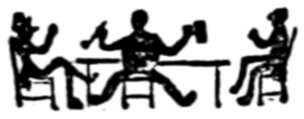 |
|||
| 9 | with a | ||
| 10 | figurative | ||
| 11 | Cayenne taken by as-salt, 1809. Enemy well peppered. | tangibility, | |
| 12 |  |
⚹ ☉ | |
| 13 | |||
| seeing they | |||
| 14 | |||
| are out of | |||
| 15 | |||
| our reach) | |||
| 16 | FROZE-OUT GARDENERS. | ||
| 17 | Poor half-starv'd, froze-out Gardeners, good gentlefolk, we be— | ♂ ♄ | |
| Hard lines for us, my masters all, as ever you did see; | |||
| 18 | We sits among the trenches in a shake and in a shiver, | ||
| And our poor little babbies are without a bit of kiver; | I do opine, | ||
| 19 | Like snails among the cabbages, they curls themselves around, | ||
| Or, like the little caterpillars, grubbing on the ground. | that | ||
| 20 | We wanders home and dreads to hear of some mishap or other, | ||
| And scarcely dares to ax the pretty darlings "how's your mother?" | whereas, | ||
| 21 | |||
| 22 | Lord Bacon born. (Query, The Fry-er.) | ♏ ♄ ☌ ♀ | |
| 23 | She sold her mangle long ago,—'twere better far nor prigging; | ||
| For we only turns up spades whene'er we tries our hands at digging. | according | ||
| 24 | Without some rain 'tis all in vain. Alack! our hearts is breaking, | ||
| And surely we should break our teeth if we should go a-raking: | to Hamlet, | ||
| 25 | So, night and day, we ever pray the frost it may be going, | ||
| No more they'll let us owe, unless we gets a little hoeing: | |||
| 26 | The parish board don't heed our word; but, looking black or blue, | ♌ ☋ | |
| They reads the Hact o' Parliament, and then cries—"Who are you?" | |||
| 27 | So help the froze-out Gardeners, kind masters every one, | there are | |
| For while you're sporting on the ice, we're starving till it's gone. | |||
| 28 | more things | ||
| 29 | in | ||
| 30 | Lecture on Heads at Whitehall. Price, a crown. | heaven and | |
| 31 | Ben Jonson born. "Shikspur—who wrote Shikspur?" | earth | |
| 1837.] | FEBRUARY. | |||
|---|---|---|---|---|
| No more the farmer's dame shall rue | ||||
| The slaughter of her poultry crew; | ||||
| Compell'd, this month, to sign a truce | ||||
| With turkey, donkey, pig, and goose, | ||||
| The Cockney Sportsman grounds his arms, | ||||
| And dicky birds are free from harms; | ||||
| Percussion guns become a jest, | ||||
| Put on their caps, and go to rest. | ||||
| D. | Great Events and Odd Matters. | Prognostifications. | ||
| 1 | New River begun, 1608. Drunk at a Temperance meeting 1836. | than | ||
| 2 | Candlemas Day. Some dark affair now brought to light. | ☍ ♀ △ ♐ | ||
| 3 | Blaise. "Farmers, look to your ricks!"—Swing. | |||
| are dreamt | ||||
| 4 | A fair warms the bosom of Old Father Thames, 1814. | |||
 |
of in our | |||
| 5 | ||||
| philosophy, | ||||
| 6 | ||||
| 7 | Shrove Tues. A great Fry-day. Mrs. Fry pan-egyrised. | ♀ ⚹ ♎ | ||
 |
||||
| 8 | ||||
| so are | ||||
| 9 | ||||
| there other | ||||
| 10 | ||||
| aspects, | ||||
| 11 | Sir Jeffery Dunstan. "No real knight." | |||
| 12 | 1 Sunday in Lent. Corporal punishment promoted by General Fast. | ⊕ ♄ ♌ ♀ | ||
| 13 | besides | |||
| 14 | Valentine. All Fools' Day. | sideral | ||
| 15 | ones, | |||
| 16 | VALENTINE TO MISS MARTINEAU. | that do | ||
| 17 | 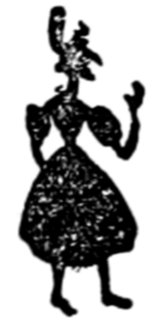 |
"Come, live with me, and be my love," | 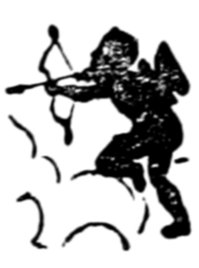 |
marvellously |
| And we to all the world will prove | ||||
| 18 | "That hill and valley, grove and field" | influence | ||
| Are waste, if Nature's stores they yield; | ||||
| 19 | While rustic joys and simple swains | ♉☊♀ | ||
| Are nought compared to rich men's gains. | ||||
| 20 | We'll demonstrate, to please the Tabbies, | and affect | ||
| That none but boobies will have babbies, | ||||
| 21 | And dose and diet all the nation, | us. | ||
| To check the growing population. | ||||
| 22 | Our virgin thoughts, as pure as "vargis," | ♐ ♋ | ||
| Will ne'er increase the public charges; | ||||
| 23 | So cease in frowns thy face to deck, | |||
| Thy mind's the best preventive check. | The configurations | |||
| 24 | ||||
 |
||||
| 25 | of the constellations | |||
| 26 | ||||
| 27 | ♀ ♅ ⚹ ☿ | |||
| do not | ||||
| 28 | Hare-hunting ends. Cats'-skins rise. | augur more | ||
| MARCH. | 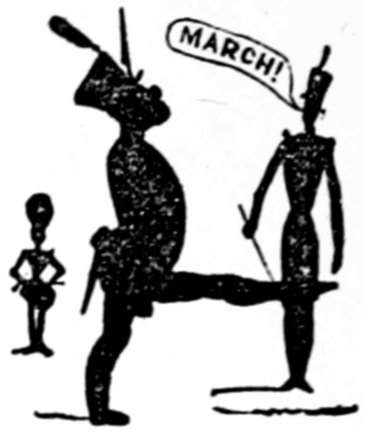 |
||
|---|---|---|---|
| Come, tell me what's March like? A bully, I trow, | |||
| Who runs up, and blinds you by giving a blow; | |||
| Or a saucy Drill Serjeant, with swaggering airs, | |||
| Who the rustic recruit by his blustering scares;— | |||
| Or a Serjeant-at-law, who so craftily tries, | |||
| In a tempest of words, to throw dust in your eyes. | |||
| D. | Great Events and Odd Matters. | Prognostifications. | |
| 1 | St. David's Day. Prince of Whales caught at the Nore, where he springs a leak. | ||
| 2 | Death of Boil-eau. Kitchen maids go into mourning. | commotions | |
| 3 | and | ||
| OPENING OF PARLIAMENT. | |||
| 4 | consternations | ||
| The tables of both Houses groan with Petitions from all classes of His Majesty's subjects. Among the most important will be found the prayer of the half-starved Hacks to be exported to Otaheite; the petition of the Dogs against the truck system; the appeal of the Cats to the King for an asylum, in Lap-land, from the suit of the Skinners' Company; the petition of the Ducks to be presented by Mr. Poulter, for the discontinuance of Bean Feasts, to be supported by Mr. Pease; the memorial of the Hogs against breakfast bacon, and offering to prove it all gammon; the humble prayer of the Whitebait of Blackwall to be excused attendance at the Cabinet Ministers' dinners; ditto from Mr. Place (it is supposed neither will be dispensed with); the memorial of the men of genius as to the foundation of a college for the cultivation of the Muses among the Happy-nine mountains, and the petition of the Royal Society of Beggars for leave to hold their court in the ruins of Rag-land Castle. | |||
| 5 | ♄ ♉ | ||
| 6 | to Great | ||
| 7 | Britain, | ||
| 8 | ♅ ☋ ♊ ☿ | ||
| 9 | than do | ||
| 10 | divers other | ||
| 11 | aspects | ||
| 12 | ♌ ♑ ♓ | ||
| 13 | denote | ||
| 14 | sundry | ||
| 15 | Isaac Walton died. | mishaps | |
| 16 | 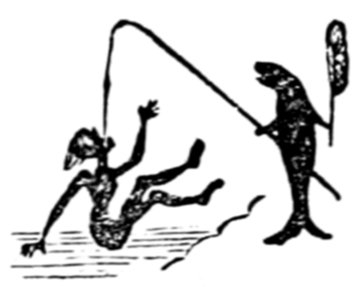 |
EPITAPH. | and |
| 17 | Rejoice, ye little fishes all! | mischances | |
| Ye tickle-bats and minnows! | |||
| 18 | A human pike without a sole, | ⚹ ☍ ♀ ♈ | |
| Has left this world of sinners. | |||
| 19 | Ye gentle gentils, grieve no more! | to Little | |
| Your pangs perhaps he feels; | |||
| 20 | For now a greedier pike, grim Death, | Britain; | |
| Has laid him by the heels. | |||
| 21 | and if | ||
| 22 | |||
| ♑ ☌ ♎ | |||
| 23 | Cannon-ization of Antwerp, 1832. | ||
| the lord of | |||
| 24 | Captain Parry among the Esquimaux. Great Seal stolen. | ||
| the Sixth | |||
| 25 |  |
||
| House, | |||
| 26 | |||
| 27 | Easter Monday. Epping Hunt. | ♊ ⚹ ♄ ♀ | |
| 28 |  |
among | |
| 29 | the | ||
| 30 | constellations, | ||
| 31 | ☋ ♌ | ||
"I tak up my pen with much pleasure to inform yew that i hav bean quiet Mizzerabl evver sins i left my plase. Evvery think has gon rong from that day to this, i hav ad no Turnups to speek of in my gardn & no Peas in my mind. i offen think of the appy days we ust to spend, partickly our Soft tewsdys wen yew ust to tos us up them nice apel friters wile the rest of the sirvents was obleigt to put up with nothink but plane pan caks without nayther apels nor sugger. O saly! i offen sets & thinks that luv is jest like a friing pan & won's art like a pan cak frizzling in the midl on it.
"Ive nevver repentid leveing but onst and thats evver sins. But i wasent agoin to stand bean dun out of my perquizzits by masters pertending he ad a rites to cum into the gardn wennever he likt & get my peeches & necktrings, jest becaws it was hisn, and giv away my Cabidges and Lettises without so much as with your Leaf or by your Leaf, to say nothink about the rumpus he maid about them 2 or 3 graps & acusing me of Boneing the Bone mannure, & wors then al, eaping them 2 tun of coles on my hed wich i no moor stole em then yew did saly, & after turning me away on account of the Coles wanting to Cokes me bak agen.
"Deer saly, my place hear is verry cumfuttabl, but i am verry uncumfuttabl in it on acount of my Bean in sich a tendar pashun with Yew. O lav, luv! i am grew as thin as a lath and hav found out wot it is not to hav cuk for a swete hart. Our under ous made is verry fond on me but wats the use of ous mades, won carnt heat brumes and skrubbin brushs. O saly saly! yew wood ardly no me i am as week as a kittin, i can scace andl my Spade & its all Hoeing to yew. i set ours & ours in the forsing ous doing nothink but thinking of yewr perty face, & i offen think ow appy we mite be with yewr 2 underd pound as yewr Grand muther left yew, & yewr 50 pound in the saveing bank, & my 5 pound as Jorge Hawl the squir's futman as is gone away ows me. We mite take a Publik ous, the Pig & wissle for instants, & get a gud bisnes & be as appy as the day is lung. Saly luv wat do yew say to me, let me no your mind, but rimmember wat i sed about the Publik is strickly Privet.
"Deer saly, i carnt abuse my noo mastr & missus, at least not at pressent, they are uncomon kind to me & so is al the fammaly. The 2 former blungs to a Linean sowsiaty & to ear em tawk aboat Bottany is rely quite Transporting. We ad the annywal sho the uther 84day wich is cunducktid in the most aprovd maner namely giving prises to al the supskribers, wich givs gennaral sattisfaxion and advarnses siance. It tuk place in the town all on wensdy last for Pinks Dailys and settera, on wich okashun master was brote in Furst mule, & missus Furst fireball, & i beg to anounce in the veggytibl line i was juged to be the Bigest cabbige head out of 40. The sowsiaty has dun a gud deal of gud hear abouts in regard of kichin gardn stuf, namely redishs so larg as not to be told from carots, & peas like Led bulits, boath wich is nothink in cumparryson of their turnups wich they hav at last suckseeded in growin em so big & ollow as is gud for nothink but litle bys to make Jack a lantans off. The sowsiaty increses annywaly evry ear, & oposishun is got to sich a hite as yew woodent bleav. The uther day 1 poor felow, Bean bete in his Carrots, axualy went ome & cut his Carrotid hartary. Annother grate advarntidge is the onnerrery members dining togather after the sho & eting up al the Best frute, by wich in Coarse they no wear to aply to annother time wen they want anny. The rest is sold to pay xpences. Allso it is a verry gud thing for the markit gardners, anny 1 of woom by paying 2 shilin entrants & sending in a 5 shilin baskit of veggytibles stands a charnse of wining a ½ crown prise.
"For my own part i am Bcuming quite bottannycle & no the lattin to evrythink. It wood sirprize my old butty James to ear me nocking the ard words about. Tel him with my best cumplyments he nose nothink. For instants Tel him a rose isent no sich thing but only a Pollyandrew, allso by the same rule a Merrygold is nuthink but a Merryandrew, and sow on of the rest. But studdiing Bottany doant Leav 1 much time for wurking in the gardn, & i am sory to say my things is luking verry bad, partickly my Dailys wich is groan quite Weekly, and my Melons cutting a verry Melon-koly apearance.
"Owevver i must cum to an end, so deer saly rimmember my cumplements to Jon butler, & Tummas futman, & Robbart cochman, & Deer saly doant Forget yourself. And saly, doant hay nothink to say to your noo Gardner, for betwene yew & me, as yew ust to say of cuks, gardners is no grate shaks. So doant nevver luv nobdy but Me for deer saly my luv for yew is Hardy Peranual. So gud Boy my deer Gal
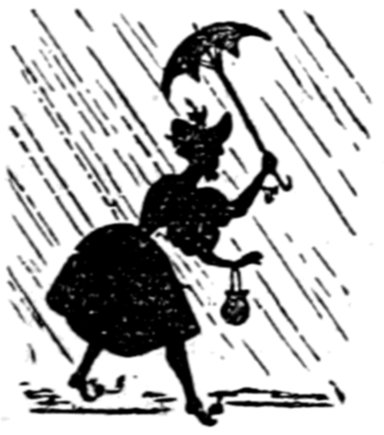 |
APRIL. | ||
|---|---|---|---|
| Hail, shopping! dear delicious pain! | |||
| Can April showers control thy reign? | |||
| Or check the pace of slippery feet, | |||
| Up Ludgate Hill or Regent Street: | |||
| Ah, me! what bliss to have a wife | |||
| So boldly dare the weather's strife! | |||
| Careful alike,—or something worse,— | |||
| Of draggled clothes and husband's purse. | |||
| D. | Great Events and Odd Matters. | Prognostifications. | |
| 1 | Sapientia. Cockneys commence angling for red-herrings. | becoming | |
| 2 | Low Sunday. Vide Whitechapel, Primrose Hill, and St. Giles's. | Lord of the | |
| 3 |  |
Ascendant, | |
| 4 | ♀ ♅ ☊ ☿ | ||
| 5 | doth | ||
| 6 | Solon born. Judge Patteson retires from the bench to take the chair of the British College of Health. Old Lady Day. | betoken | |
| 7 | civil | ||
| 8 | THE WONDERFUL PILL. | commotions | |
| 9 | A Card. | Take gamboge, as you find it, for better or worse, | in Great |
 |
And aloes,—the strongest,—a drug for a horse; | ||
| 10 | A few peppermint drops, a few turns of a mill, | France, | |
| And you get the contents of the Wonderful Pill. | |||
| 11 | Take the head of a monkey, be-whisker'd & frizzl'd, | ⚹ ♀ | |
| MORRISON | The eyes of a tiger, be-demon'd and devill'd; | ||
| 12 | And Co. | Add a magpie, a fox, and a vulture in one, | |
| Undertakers. | And a heart with less blood than a pillar of stone:— | so, in like | |
| 13 | ———— | Take of folly, stupidity, weakness—enough:— | |
| FUNERALS | Of credulity, ignorance, fear—quantum suff:— | manner, | |
| 14 | FURNISHED, | These ingredients, combin'd with discernment & skill, | |
| Corpse included. | Give the knave and the dupe of the Wonderful pill. | ||
| 15 | ♈ ♀ ♄ ⚹ | ||
| 16 | Mutiny at Spit-head. Cooks strike for wages. | doth the | |
| 17 |  |
ascendancy | |
| 18 | |||
| ☉ ☌ ♂ ☽ | |||
| 19 | |||
| of the | |||
| 20 | |||
| Lady of the | |||
| 21 | Solomon's b. d. kept. Horrible plot to burn the City of London, and murder all the inhabitants, frustrated by "Atkins, Mayor." A.D. 1817. | ||
| Seventh | |||
| 22 | |||
| House, | |||
| 23 | |||
| 'Twas enough to create a confusion and pother, | |||
| 24 | For the nest of one Mayor to be found by another. | ♓ ☍ ♀ | |
| 25 |  |
augur | |
| 26 | divers | ||
| 27 | ♌ ♈ | ||
| 28 | uncivil | ||
| 29 | Thrashing commences in London. Macready thrashes Bunn, but gets nothing but chaff. | commotions | |
| 30 | Rogueation S. A pickpocket ducked about this time. | among | |
Here's a right and true list of all the running horses! Dorling's correct card for the Derby day!——Hollo, old un! hand us up one here, will you: and let it be a good un: there, now what's to pay?
Only sixpence. Sixpence! I never gave more than a penny at Hookem Snivey in all my days.——May be not, your honour: but Hookem Snivey aint Hepsom: and sixpence is what every gemman, as is a gemman, pays.
I can buy 'em for less than that on the course, and I'll wait till I get there. Beg your honour's pardon; they sells 'em a shillin' on the course. Give you threepence. They cost me fippence ha'p'ny farden.
Well, here then, take your list back again. Come, come; your honour shall have it at your own price:——I wouldn't sell it nob'dy else for no sitch money: but I likes the sound of your wice.
Here, then, give me the change, will you?—Oh, certainly: but your honour's honcommon ard:——Let's see: you want two-and-threepence: wait a moment, there's another gentleman calling out for a card.
Hollo, coachman, stop, stop! Coachman, do you hear? stop your horses this moment, and let me get down:——The fellow's run away behind an omnibus without giving me change out of my half-crown.
That's alvays the vay they does on these here hoccasions: they calls it catching a flat:——Sorry I can't stop. Where's the new police? Pretty police truly, to suffer such work as that!
Well, if ever I come to Epsom again! but let's look at the list: it's cost me precious dear!——Ascot, Mundig, Pelops! why, good heavens, coachman! they've sold me a list for last year!
Oh, ma! look there! what a beautiful carriage! scarlet and gold liveries, and horses with long tails.——And stodge-full of gentlemen with mustaches, and cigars, and Macintoshes, and green veils:
Whose is it, ma? Don't know, my dear; but no doubt belongs to some duke, or marquis, or other great nob.——Beg your pardon, ma'am: but that carriage as you're looking at is a party of the swell mob.
And, oh my! ma: look at that other, full of beautiful ladies, dressed like queens and princesses.——Silks and satins and velvets, and gauze sleeves and ermine tippets: I never saw such elegant dresses:
And how merry they look, laughing and smiling! they seem determined to enjoy the sport:——Who are they, ma? Don't know, dear; but no doubt they're Court ladies. Yes, ma'am, Cranbourne Court.
How do, Smith? nice sort of tit you've got there. Very nice indeed: very nice sort of mare.——Beautiful legs she's got, and nicely-turned ancles, and 'pon my word, a most elegant head of hair.
How old is she? and how high does she stand? I should like to buy her if she's for sale.——Oh, she's quite young: not above five-and-twenty or thirty; and her height exactly a yard and a half and a nail:
Price eighty guineas. She'd be just the thing for you; capital hunter as ever appeared at a fixture.——Only part with her on account of her colour; not that I mind: only Mrs. S. don't like an Oxford mixture.
Hehlo! you faylow! you person smoking the pipe, I wish you'd take your quadruped out of the way.——Quadruped, eh? you be blowed! it's no quadruped, but as good a donkey as ever was fed upon hay.
Oh, my! ma; there's the course. What lots of people, and horses, and booths, 87and grand stands.——And what oceans of gipsies and jugglers, and barrel organs, and military bands!
And was ever such sights of Savoyards and French women singing and E-O-tables;——And horses rode up and down by little boys, or tied together in bundles, and put up in calimanco stables;
And look at that one, they call him Boney-parte. Did you ever in all your lifetime see a leaner?——And "Royal Dinner Saloons" (for royalty the knives might have been a little brighter, and the linen a little cleaner);
And women with last-dying speeches in one hand, and in the other all the best new comic songs;——And, dear me! how funnily that gentleman sits his horse; for all the world just like a pair of tongs.
And—clear the course! clear the course! Oh, dear! now the great Derby race is going to be run.——Twelve to one! Ten to one! Six to one! Nine to two! Sixteen to three! Done, done, done, done!
Here they come! here they come! blue, green buff, yellow, black, brown, white, harlequin, and red!——Sir, I wish you'd stand off of our carriage steps: it's quite impossible to see through your head.
There, now they're gone: how many times round? Times round, eh? why, bless your innocent face!——It's all over. All over! you don't say so! I wish I'd never come: such a take in! call that a Derby race!
After being stifled with dust almost, and spoiling all our best bonnets and shawls and cloaks!——Call that a Derby race, indeed! I'm sure it's no Derby, but nothing but a right-down, regular Oaks.
But come, let's have a bit of lunch: I'm as hungry as if I hadn't had a bit all day.——Smith, what are you staring at? why don't you make haste, and hand us the hamper this way?
We shall never have anything to eat all day if you don't stir yourself, and not go on at that horrid slow rate.——Oh, Lord! the bottom's out, and every bit of meat and drink, and worse than all, the knives and forks and plate,—
Stole and gone clean away! Good heavenlies! and I told you to keep your eye on the basket, you stupid lout!——Well, so I did, on the top of it, but who'd have thought of their taking the bottom out?
Well, never mind: they'll be prettily disappointed: for you know, betwixt you and me and the wall,——Our ivory knives and forks were nothing but bone; and our plate nothing but German silver, after all.
What race is to be run next? No more, ma'am: the others were all run afore you come.——Well, then, have the horses put to, Smith: I'll never come a Derbying again; and let us be off home.
Oh, lawk! what a stodge of carriages! I'm sure we shall never get off the course alive!——Oh, dear! do knock that young drunken gentleman off the box: I'm sure he's not in a fit state to drive.
There, I told you how it would be. Oh, law! you've broke my arm, and compound-fractured my leg!——Oh! for 'eavens sake, lift them two 'orrid osses off my darter! Sir, take your hands out of my pocket-hole, I beg!
I say, the next time you crawl out of a coach window, I wish you wouldn't put your foot on a lady's chest.——Vell, if ever I seed such a purl as that (and I've seed many a good un in my time) I'll be blest.
Oh, dear! going home's worse than coming! It's ten to one if ever we get back to Tooley Street alive.——Such jostling, and pushing, and prancing of horses! and always the tipsiest gentleman of every party will drive.
I wish I was one of those ladies at the windows; or even one of the servant 88maids giggling behind the garden walls.——And oh! there's Kennington turnpike! what shouting and hooting, and blowing those horrid cat-calls!
Ticket, Sir? got a ticket? No, I've lost it. A shilling, then. A shilling! I've paid you once to-day.——Oh, yes, I suppose so: the old tale; but it wont do. That's what all you sporting gentlemen say.
Hinsolent feller! I'll have you up before your betters. Come, sir, you musn't stop up the way. Well, I'll pay you again; but, oh Lord! somebody's stole my purse! good gracious, what shall I do!——I suppose I must leave my watch, and call for it to-morrow. Oh, ruination! blow'd if that isn't gone too!
Get on there, will you?—Well, stop a moment. Will anybody lend me a shilling? No? Well, here then, take my hat:——But if I don't show you up in Bell's Life in London next Sunday morning, my name's not Timothy Flat.
Well, this is my last journey to Epsom, my last appearance on any course as a backer or hedger:——For I see plain enough a betting-book aint a day-book, and a Derby's a very different thing from a Ledger.
A public subscription of several thousand pounds has been proposed to be raised towards Mr. Buckingham's losses in India; quickened by the threat that, if not sufficient to maintain him, he would be driven to the very dreadful necessity of "devoting the remainder of his days to useful and honourable labour!" To avert so dire a calamity, it will be proposed among Mr. B.'s friends to revive the old project, and send him round the world on a voyage of discovery and commerce. He is to sail on the first of next April, and will take with him passengers, emigrants, and merchandize. First exploring the British coast, he will establish a colony of tailors at Sheer-ness; then offer a consignment of saddles and bridles to the inhabitants of Ryde; afterwards call for Mr. Ole Bull off Cowes, as fiddler to the crew; from thence he will despatch a bale of blankets to Friez-land, and of gloves to the people of Pau, taking in exchange some cheap coffee for charitable purposes from Cham-berry. Proceeding through the Channel, he will receive a few distressed ladies at Brideport on an experimental voyage to Beau-maris. The late ministry will accompany him as far as the Ex, and at Ply-Mouth Sound he will take in the substance of his next parliamentary campaign. At the Scilly Islands he will try to dispose of a heavy consignment from Paternoster Row and some leading establishments at the west-end of the town. He will leave the Poor Law Commissioners at their headquarters at Flint; thence crossing the Atlantic, he will deposit the bones of Mr. Carus Wilson at Long Island, and offer a cargo of soft-soap at Washington. He will next despatch Stone masons to the Chipaway country, and Carpenters to the Chick-a-saws, and he will be commissioned to get a lot of old Joes exchanged at New-Found-Land. He will supply the natives of Chili with great coats, carry ham and beef to the Sandwich Islands, and broad cloth to Bombay. He will then reach the North Pole by taking up his ship in an air balloon, and remaining suspended, till, as the world goes round, the arctic circle is just under his feet, when he will drop into the midst of it. Coming home from the North, about next St. Swithin twelvemonths, he will bring us a little Blue from the Island of Skye, and call off the coast of Ayr-shire for another scheme to raise the wind. On his arrival, the wooden guns at Jack Straw's Castle will be fired, and the town illuminated with moonshine.
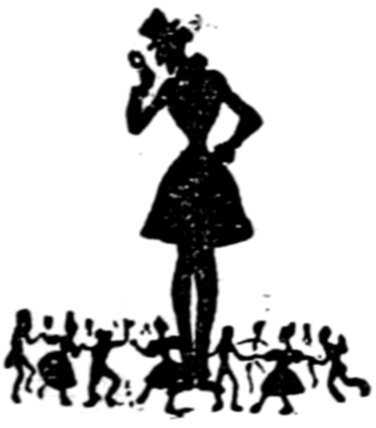 |
MAY. | ||
|---|---|---|---|
| Some modern sages, nothing can be flatter, | |||
| Find Bi-polarity 'twixt mind and matter. | |||
| There's prima facie proof, upon the whole, | |||
| It once existed in the man-maypole. | |||
| But barring manners, you'll admit no less, | |||
| He stands conspicuous for his pole-height-ness. | |||
| D. | Great Events and Odd Matters. | Prognostifications. | |
| 1 | Chimney Sweepers' Jubilee. Emancipation of the Blacks. | ||
| 2 | the lords | ||
| 3 | ARCHERY.—Miss Higgins to Miss Figgins. | and ladies | |
| 4 | This comes to tell you, dearest Coz, I've been to Beulah Spa, | ☌ ♂ | |
| And there, among the Archer folk, have shone with such éclat. | |||
| 5 | Well, I declare, 'tis charming sport to play at bows and arrows: | of all the | |
| I do not wonder little boys so love to shoot at sparrows. | |||
| 6 | Some petty, trifling accidents occurr'd, I must confess: | houses in | |
| In taking aim, I tore a hole in Mrs. Simpkin's dress, | |||
| 7 | Who gave me such a frightful look, as really made me shiver; | Petty | |
| And put my nerves in such a way as caus'd my hand to quiver. | |||
| 8 | So, just as Mr. Foozle, in his most politest manner, | France.[2] | |
| Was paying me fine compliments, and calling me Diana, | |||
| 9 | My elbow slipped, and struck him such a blow upon the nose, | ♋ ♀ ♐ | |
| As caus'd the blood to spirt about, and cover all his clothes. | |||
| 10 | The boy who picks the arrows up, I shot right thro' the ear: | Again | |
| I'm sure he'd but himself to blame,—he stood so very near: | |||
| 11 | 'Twas only just a hundred yards from where the target stood, | ☽ ♀ ♐ ♄ | |
| So how to help the hitting him would puzzle Robin Hood. | |||
| 12 | Altho' I'm sorry for the brat, I greatly pleas'd my spark, | who will | |
| Who thought me quite a heroine to shoot so near the mark. | |||
| 13 | So pr'ythee come, my dearest Coz, Diana's bow to draw, | deny, that | |
| And join the gay Toxophilites who shoot at Beulah Spa. | |||
| 14 | |||
| ♏ ♉ | |||
| 15 | Whit-Monday. | Now madcap Mirth, with reckless air, | |
| Sports down gay Pleasure's tide; | Juniper | ||
| 16 | Whit-Tuesday. | With every care cast to the winds, | |
| And all his Wits-untied. | hath a more | ||
| 17 | |||
 |
malignant | ||
| 18 | |||
| influence | |||
| 19 | |||
| than | |||
| 20 | |||
| Jupiter? | |||
| 21 | |||
| From Friars-Black and Chapel-White | |||
| 22 | They rush to Greenwich Fair, | ♅ ☉ ☊ ☽ | |
| Each donkey-cart has its asses' load, | |||
| 23 | Each chaise owns three a pair. | ||
| Some go by steam or sailing vessel, | or, that, | ||
| 24 | Some by the Elephant and Castle. | ||
| in the | |||
| 25 | The vent'rous see that famous hill, | ||
| Renown'd for fate's decree, | olden times | ||
| 26 | That they who tarry at the top | ||
| Shall soon the bottom see. | of pugilism, | ||
| 27 | There's merry frisking on the grass, | ||
| For courting sporting people; | |||
| 28 | And the curious seek the spying glass, | ♀ ♐ ♊ ♉ | |
| To peep at Barking steeple. | |||
| 29 | |||
| 30 | |||
| 31 | |||
2. A terra incognita, lying in the vicinity of Tothill Fields.
Divaricating from the beaten track of all my predecessors in the Celestial Art, whose method it hath ever been to leave the interpretation of their symbolical prefigurements to be explorated and divined by the subtlety of the ingenious reader himself,—by the which they did shroud, in a tenfold tenebrosity of Cimmerian gloom, their no-meaning mysteries, and ambiguous puzzlements;—deviating, I say, from such a course, I do herewith not only present thee, as hath been my custom, with an Hieroglyphic "adapted to the times," but lifting the veil of obscurity, wherein it is shrouded from vulgar apprehension, lay patent and exposed the hidden meaning thereof.
It hath in it the three grand postulates or requirements of a veritable Hieroglyphic, videlicet,—It is Astroscopical, Astrological, and Prophetical:—
It is Astroscopical, as it is founded on an observation of the Stars.
It is Astrological, as it is indicative of planetary potency and lunar influence; and
It is Prophetical, inasmuch as it not only presenteth the present, but futurizeth the future.
Taurus, the Bull (egregious John!), having, through a plethora of purse, fallen into a dreamy mood, yielded himself up to a somniferous influence, which becloudeth, with a misty obfuscation, his natural senses; whereupon the megrims of his crazy brain do set themselves to work, and conjure up certain airy visions of speculative aggrandizement.
Floating in nubibus before his fancy's eye, are sundry bubbles, 91blown by an Imp of Speculation, who ruleth the phantasies which do take John's imagination captive. Gemini (the Twins) in the similitude of a joint-stock Company proffer him wealth;—baseless castles, of unsubstantial fabric, resting on ether, do shadow forth his brick-and-mortar predilections;—and a rail-road betwixt Dover and Calais, uniting that which nature had dissevered, accomplisheth that propinquity, which John ever affecteth for good neighbourhood and fellowship; while Luna, who hath established a reciprocity rail-road with our planet, grinneth at his gullibility, and marketh him for her own.
Descending from the clouds, note we the state of his household matters, while he thus dreameth in complacent security.
Thou mayest observe, gentle Reader, certain satellites of Mercury (the planet of thieves), who, under the impersonation of rooks, by an immersion of their long beaks into the profundity of his pockets, are abstracting his treasure. At the right hand of the dreamer, a cutpurse knave of Spades, the apt symbol of rail-road diggers and miners, hath, by an undermining trick, possessed himself of his bullion; while the Demon of Gin, in the likelihood of a crafty serpent, entwined round his lower extremities, shadoweth forth the ruin with which the fiend spirit threateneth the props of the body politic,—the Industrious Classes. The rats, those rogues in grain, are devouring his corn; and his faithful Tray is gnawing at his dinner.
Surrounded as he is by wealth and plenty, shall we marvel, that when the master of the house sleepeth on his post, knaves will cheat, thieves will steal, and servants will pilfer?
| JUNE. | [1837. | |||
|---|---|---|---|---|
| Pattern of patience,—placid punter,—say, | ||||
| Since early dawn, when thou didst take thy stand, | ||||
| How many nibbles hast thou had? I pray,— | ||||
| How many minnows hast thou brought to land? | ||||
| Not one!—yet comfort thee, Piscator bold; | ||||
| One thing, at least, you're sure to catch,—a cold! | ||||
| D. | Great Events and Odd Matters. | Prognostifications. | ||
| 1 |  |
Crib | ||
| 2 | squaring | |||
| 3 | Transit of Venus. A ship-load of Vestals consigned to Van Diemen's land. | to Gully | ||
| 4 |  |
☍ □ ♂ ☉ | ||
| 5 | had a more | |||
| 6 | sinster | |||
| 7 | aspect than | |||
| 8 | Sun rises 3 h. 48 m. | Mercury | ||
| 9 | I wish my Son would rise as soon, | squaring to | ||
| To breathe the balmy air of June,— | ||||
| 10 | The lazy dog! | Mars? | ||
| Not snoring half his hours away, | ||||
| 11 | Lie like a torpid lump of clay, | ♎ ♃ ☿ | ||
| Or old King Log. | ||||
| 12 | To rouse the sluggard from his nest, | Then, | ||
| I've all things tried, and done my best,— | ||||
| 13 | The prig! | as touching | ||
| I've stripped the clothes, in hopes he'd mend; | ||||
| 14 | I've given him strap,—a thick rope's end,— | THE | ||
| Cold pig! | ||||
| 15 | In vain!—There lies the stupid clown, | WEATHER | ||
| As if the Night Mare held him down. | ||||
| 16 | ♈ ☍ | |||
| 17 | ♈ ☍ | |||
| 18 | Battle of Waterloo. Lobsters in season. | 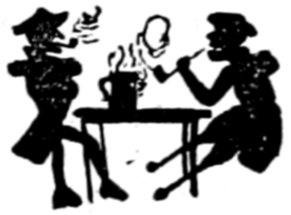 |
what better | |
| 19 |  |
index | ||
| 20 | need we of | |||
| 21 | Daniel Lambert died. Grand Diet of Worms. | ♂ ☉ ♉ ♋ | ||
| 22 | 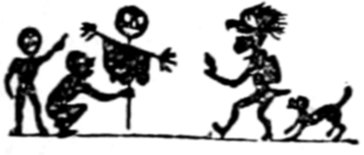 |
The grave-digger fled, all a-shiv'ring and shaking, | its | |
| For old Mother Earth she cried, | ||||
| 23 | With a terrible groan: "Why the deuce are you making | evershifting | ||
| This precious big hole in my side!" | ||||
| 24 | ♊ ♒ △ | |||
| 25 | Quarter Day. Moon hides behind a cloud, for fear of being shot. | variable | ||
| 26 | variations | |||
| 27 | ☿ □ ☊ ♍ | |||
| than the | ||||
| 28 | Ha! my lad, you've caught a Tartar, | countenance | ||
| Landlords never give no quarter. | ||||
| 29 | of | |||
| 30 | Spouse? | |||
"Dearest Julia,—Since that very unpleasant affair of pa's bankruptcy, which made it so disagreeable to stop in town, I have really not had a moment to spare. I take the first opportunity to tell you that our farming goes on quite as well as might be expected; and I hope in a few years we shall be able to hold up our heads again in our dear native Tooley Street, and among our friends at dear No. 29½.
"Haymaking is just over, and such fun! Oh, how I wished for you, dear Julia! you would so have liked it!—tedding, and windrowing, and staddle-rowing, and quilling, and above all, being rolled about and tumbled to bits by the young Browns, our handsome neighbours, who kindly offered their assistance on this occasion. Young Edwin, who paid particular attention to me, and squeezed my best transparent muslin bonnet to a mummy, and tore my green silk frock all to rags, is one of the nicest young men in these parts, and a great favourite with us all. Pa and ma sat on a bank directing our proceedings out of a book pa's got, which tells you all about farming, and agriculture, and everything. I am head shepherdess, and go out every morning with my crook and Spanish guitar, and sit all day long on a bank playing to the sheep and lambs; young Edwin Brown generally coming and keeping me company with his German flute, which makes it very pleasant. Besides having the care of the flocks, I am put in charge of the eggs and poultry; but, though I have every reason to believe that our hens lay regularly, I cannot for the life of me find their nests: and I assure you I have searched over and over again in all the trees about the premises. The only eggs I have been able to get were some brought in by pa the other day, and which I immediately set under a Bantam hen; but, unfortunately, they turned out nothing but snakes. Also a second lot, picked up by brother John in one of his walks, which unluckily proving to be pheasants, poor John has been informed against by a neighbouring gamekeeper, and will have to pay goodness knows what penalty, and has got the character of a poacher into the bargain. What a fuss is here about poaching a few eggs!
"My geese also have been very disappointing, though we have had the tank in front of the house carefully covered in with invisible wire for their accommodation, where they are kept night and day, and have fresh water given them every morning. Ducks likewise don't go on very swimmingly; and as to our horned cattle, things have gone very crooked. Pa bought a lot of cows, and thereby hangs a tale, for on bringing them up to milk we couldn't get a drop; and on inquiry found that he ought to have bought milch cows, and not feeding cows, which are only used for making beef of. But he soon bought others, and we have now a very good dairy, and Lucy is quite pat at making butter, but mamma is rather green at making cheese.
"Brother John attends the markets—not that we have anything to sell—but it is considered regular; and indeed he makes a regular thing of it by getting tipsy every market day. Emily, who, you know, was always very fond of birds, bought a lot of pigeons, and a tame hawk, and a jackdaw; but, unfortunately, the hawk got one day into the dovecot, and killed every one of the pigeons; and the jackdaw has stolen all our silver forks and spoons. Brother John purchased a lot more pigeons at the market, which flew away the next morning; and pa, in his rage, wrung the jackdaw's neck, so that we are safe to see no more of our forks and spoons.
"Ma undertook to manage the bees, and has had a glass hive fixed at her bed-room window. The first night she was very unlucky; for, getting up in the dark to open the window, she forgot the bees, and smashed one of the 95hives, whereupon the little savages flew at her and almost stung her to death; and pa, who heard her cries and jumped out of bed to her assistance, got as roughly handled as ma. Only fancy, Julia dear, being in nothing but your chemise, and two hundred thousand bees stinging at you like mad! not pleasant, is it?
"Our pig-sties, I am sorry to say, are quite empty, the pigs having strayed and got into the parish pound (unknown to us, of course), where they were at last sold to pay their expenses. Susan, however, has been very successful in rearing a litter of Guinea pigs, and Emily has got a most delightful lot of little peacocks. Also John, who has bought a hunter and means to follow the hounds, has had wonderful luck with his foxes, for whose accommodation he has planted two of our largest fields full of gorse bushes. A singular thing occurred the other day with regard to one of these creatures: he was seen retreating to the gorse covert, closely pursued by one of the turkeys; and, more singular still, the turkey has never since been heard of, and it is generally supposed that it followed the fox into one of its holes and got suffocated. Several of the chickens have also disappeared in a very mysterious way, and we can only account for it in the same manner.
"Our health is capital—except ma, who has got the lumbago by sitting without her shawl in the hay-field—and pa, who is laid up with a cold and sore throat from standing in the draught of a winnowing machine—and Emily, who has got a face as big as two with running to fetch the young ducks out of the rain—and Abraham, who has almost cut his hand off with pruning the damson trees—and John, who, I am afraid, has lamed himself for life in trying to jump his horse over a five-barred gate with spikes on it—and your humble servant, who has put out one of her wrists, and sprained one of her ancles, and fractured one of her ribs in climbing up a tree after a hen's nest—or rather, a magpie's. My wrist is so bad at this moment that you must excuse my abruptly signing myself,
"P.S. Wrist or no wrist, I must tell you of the perfidy of that villain, Edwin Brown. Ma has just been in to say that he has run away with his father's dairymaid. A perjured wretch! and a dairymaid too! I have for-sworn love for ever, and made over my sheep to Emily. Oh, Julia!
"P.S. I open this sheet to tell you of the shocking fire that happened here last night. We might have all been burnt to death in our beds. The barns, stables, and other out-buildings are reduced to cinders; and all owing to William's fine rick of hay, which it seems was put up too green, and took fire of its own accord. Very odd—pa's book never said a word about it. We are all very miserable.
A man in the last stage of destitution came before the sitting magistrate at Lambeth Street, and stated, that having by the operation of the New Poor Laws been suddenly deprived of parish assistance, he was reduced to such extremity, that, if not instantly relieved, he must be driven to do a deed that his soul abhorred. The worthy magistrate instantly ordered him five shillings from the poor-box, and after a suitable admonition against giving way to despair, asked him what dreadful deed he would have been impelled to but for this seasonable relief? "To work!" said the man, with a deep sigh, as he left the office.
| JULY. | 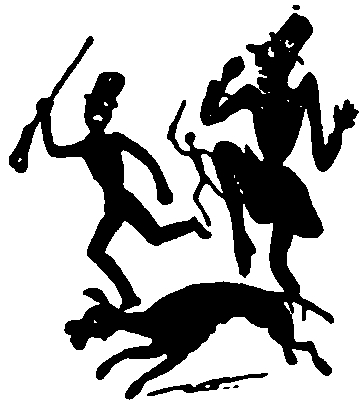 |
||
|---|---|---|---|
| Two potent elements combine | |||
| To rule the month together, | |||
| St. Swithin gives us showers of rain, | |||
| The mad dogs, biting weather. | |||
| And if you get a dubious gripe | |||
| From Pincher, Snap, or Toby, | |||
| The good saint's bucket comes right | |||
| To test the Hydro-phoby. | |||
| D. | Great Events and Odd Matters. | Prognostifications. | |
| 1 | |||
| Doth not | |||
| 2 | |||
| many | |||
| 3 | Dog Days beg. | ||
| a Benedick | |||
| 4 | 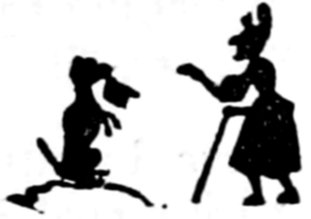 |
"Old Mother Hubbard | |
| ♋ ☍ ♐ | |||
| 5 | Went to the cupboard, | ||
| know | |||
| 6 | To get her poor dog a bone." | ||
| right well | |||
| 7 | |||
| 8 | ♏ ♈ ♎ ♉ | ||
| 9 | HOW TO MAKE A MAD DOG. | that a | |
| 10 | By a Knowing Hand. | cloudy | |
| 11 | Tie a dog that is little, and one that is large, | brow | |
| To a truck or a barrow as big as a barge; | |||
| 12 | Their mouths girded tight with a rugged old cord (or | ♄ ⚹ ♒ | |
| They'll put out their tongues) by the magistrate's order; | |||
| 13 | So you save 'em the trouble of feeding, I think, | ||
| Or the loss of your time by their stopping to drink. | on the | ||
| 14 | Lend 'em out, 'tis a neighbourly duty, of course, | ||
| And mind they've a load that would stagger a horse. | aspect of | ||
| 15 | If you've nothing to draw, why, yourselves let 'em carry (sons | ||
| Of she dogs!), or else they'll be drawing compari-sons. | his dear | ||
| 16 | With a stick or a kick make 'em gallop away, | ||
| And smoke through the streets in a piping-hot day, | |||
| 17 | Where Mac Adam is spreading his pebbles about, | ☌ ♈ | |
| And they'll pick up their feet all the quicker, no doubt; | |||
| 18 | More than all, don't allow them their noses to wet;—it | betokeneth | |
| Will keep 'em alert by the "wish they may get it." | |||
| 19 | All pleasures must end:—when they drop head and tail, | cool | |
| With their muzzles all froth, like a tankard of ale, | |||
| 20 | Turn 'em loose in the road with a whoop and a hollo, | breezes, | |
| And get all the thieves and the blackguards to follow. | |||
| 21 | It's a precious good lark for the neighbours, you'll find, | ☍ ♈ ♀ ⚹ | |
| With the mad dogs before and the sad dogs behind, | |||
| 22 | And you'll ne'er be molested, rely on my word, | probably | |
| If you keep 'em from biting a Bishop or Lord. | |||
| 23 | followed by | ||
| 24 | a storm, | ||
| 25 | |||
| ♋ ☊ ♅ | |||
| 26 | |||
| accompanied | |||
| 27 | |||
| with | |||
| 28 | |||
| showers? | |||
| 29 | |||
| 30 | ♊ ♄ ☌ ☽ | ||
| 31 | Second week of St. Swithin. Ladies sigh for "a little sun." | And that. | |
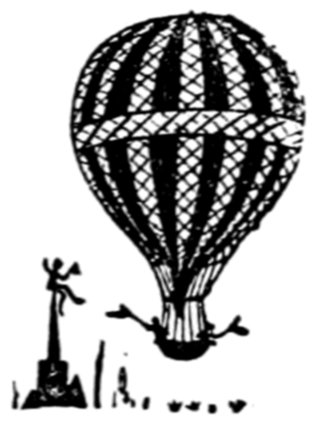 |
AUGUST. | ||
|---|---|---|---|
| The postboys clatter to the door, | |||
| Whips cracking and spurs pricking; | |||
| The hero who went up at four | |||
| Came down at five, alive and kicking. | |||
| Below is a special communication | |||
| From a private source, to inform the nation. | |||
| D. | Great Events and Odd Matters. | Prognostifications. | |
| 1 | Charles X. abdic. 1830. New issue of Sovereigns. | ||
| if he would | |||
| 2 | |||
| look for | |||
| 3 | THE BALLOON ASCENT. | ||
| sunshine, | |||
| 4 | "Only threepence more, and up goes the Donkey." | ||
| ♅ ♀ ♌ | |||
| 5 | Dear Captain! let me thank my lucky fate | ||
| That brings me safe and sound through every strait, | he must, | ||
| 6 | And when my rebel subjects tipp'd me over, | ||
| Placed between them and me the Straits of Dover: | ungrudgingly | ||
| 7 | On terra firma I've at length alighted, | ||
| More dead than living, tho' less hurt than frighted, | and | ||
| 8 | And strike me ugly—that I swear quite plain, | ||
| I'll never venture in the air again. | obediently, | ||
| 9 | To let me go the varlets scarce were willing | ||
| As long as they could show me for a shilling:— | |||
| 10 | At last however all was right and handy, | ♃ ♂ ⊕ | |
| By Madame's wondrous skill and—drops of brandy; | |||
| 11 | And while my cheeks with glowing rouge were spread, | acquiesce | |
| 'Tis false to say the white usurp'd the red. | |||
| 12 | Then as we mounted in the clear blue sky, | in and | |
| The Queen's own private Aëronaute and I, | |||
| 13 | A field of handkerchiefs waved full in view, | accede to | |
| Dirty and clean, silk, cotton, black and blue; | |||
| 14 | And while the huge machine majestic rose, | ||
| I gazed on many an elevated nose, | ♊ ♀ | ||
| 15 | And heard, and wrote it down, with great surprise, | ||
| A man in spectacles exclaim "my eyes!" | all her | ||
| 16 | Just as we threw the sand-bags quickly o'er, | ||
| And rose so high that I could hear no more. | modest | ||
| 17 | So being fairly out of mortal ken, | ||
| The fair one said, "We'll soon come down again." | requirements? | ||
| 18 | Too soon—for while I turn'd myself around, | ||
| Balloon and car came spinning to the ground: | |||
| 19 | The earth received my nob—too thick to split— | ♈ ☿ ♏ | |
| The lady fell on—what she thought most fit. | |||
| 20 | I gallop'd off as fast as steeds could fly; | when, and | |
| To bed she posted quickly, there—to lie. | |||
| 21 | not before, | ||
| 22 | |||
| ☉ ☽ ♑ | |||
| 23 | |||
| he may | |||
| 24 | |||
| reasonably | |||
| 25 | |||
| 26 | Fête Champêtre. Field-fare arrive. | ☊ ⚹ ♀ | |
| 27 | expect | ||
| 28 | fair weather | ||
| 29 | to the | ||
| 30 | end of the | ||
| 31 | Jews banished England, 1290. "New Way to Pay Old Debts." | month. | |
| SEPTEMBER. | [1837. | |||
|---|---|---|---|---|
| Soft, simple innocent!—how well you show | ||||
| The gentle pastimes of your Cockney mates; | ||||
| From him, who sparrows shoots with penny bow, | ||||
| To him who, armed with Manton, braves the fates! | ||||
| Alack! it grieves me that this shoeless boy | ||||
| Should bootless follow the delusive joy; | ||||
| For e'en the salt of attic wit doth fail | ||||
| To catch a goose:—'and thereby hangs a tale.' | ||||
| D. | Great Events and Odd Matters. | Prognostifications. | ||
| 1 | Passenger-shooting begins. Old ladies and young children deemed fair game by cab and omnibus drivers. | |||
| 2 | New Style. Eleven days stepped over. | Furthermore, | ||
| 3 | 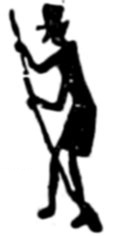 |
△ ☿ ♍ ♅ | ||
| 4 | Bartlemy Fair. | "Fair is foul, and foul is fair," | let a | |
| Dabble thro' the mud "and filthy air." | ||||
| 5 | needy man | |||
| 6 | The sun of Bartlemy is well-nigh set, and his latest rays are dull as the Dutch metal that gilds his gingerbread kings. The last fair was a foul concern--the lions roared in a saw-dust solitude and the monkeys chatter'd to empty boxes.--"Just going to begin" was a never-ending cry, because the sights waited all day for want of see-ers--Mr. Merryman was sad, for people would not down with the dumps; and though he cried "Walk up! only twopence," he failed to "take his change out of that." In vain King Richard offer'd his kingdom for a horse; there were only a few asses within ear-ing. The sausages met with no stuffers, and the dog-meat pies remained unbitten, though the chimney- sweeps looked rabid at 'em. The hot spiced nuts met with a cold reception; the baked plum pudding was at no price current; and the ginger beer, though well up, would not go down. The pyramids of apples stood as unmoved as those of Egypt; but the nuts alone looked happy, for the people gave them "none of their jaw." The temperance societies have turned the table to a T;--Men who have left off gin do not support Mr. Gingell; and water-drinkers have no affection for fire-eaters. As to the gin temples, they found their day pretty well over, so they blazed at night, but their illuminated dials have made the world suspect "what's o'clock." Even the pickpockets failed of their harvest: for as the people abandoned the knaves in spirit, they were able to guard against the rogues in grain. | ☉ ♊ | ||
| 7 | essay to | |||
| 8 | open the | |||
| 9 | heart or | |||
| 10 | draw | |||
| 11 | the purse- | |||
| strings | ||||
| 12 | ||||
| ♌ ♒ ♀ ♓ | ||||
| 13 | ||||
| of a fair- | ||||
| 14 | ||||
| weather | ||||
| 15 | ||||
| friend, | ||||
| 16 | ||||
| ☉ ☿ ♂ | ||||
| 17 | ||||
| and shall | ||||
| 18 | ||||
| he not | ||||
| 19 | ||||
| forthwith | ||||
| 20 | ||||
| experience | ||||
| 21 | ||||
| ☉ ♂ | ||||
| 22 | ||||
| a cool and | ||||
| 23 | ||||
| frosty air, | ||||
| 24 | Hare Hunting. | |||
| ☊ ♏ ♅ ♍ | ||||
| 25 | ||||
| sufficient | ||||
| 26 | ||||
| ♃ ♄ ♊ | ||||
| 27 | ||||
| to blight | ||||
| 28 | ||||
| all the | ||||
| 29 | Quarter Day. | |||
| blossoms | ||||
| 30 | The landlord seizes for his rent, but can't be called a cheat, | of hope? | ||
| For though he takes your stools and chairs, he leaves you a re-seat. | ||||
"And that's why I don't like a flinty soil," said the farmer.
"Talking of flints," said the gentleman in the India-rubber coat, white cords, and top-boots, "we'd a werry honcommon day's sport shooting, the First of September ultimo: vich there vos me and Figgins, and Wiggins, and Higgins, and young Apollo Belvidere Hicks, the poet, vot writes werses in Bell's Life, and sends wery anonymous letters to the Penny Magazine, and sings a werry good song now and then at the Adelphi Shades—a werry slap-up party, I assure you. I writ an account of it at the time, vich I sent to Bell's Life; but owing to a werry great press of matter of tempory hinterest, vosn't hable to be printed. I've got the journal in my pocket, and if you like, I'll read it."
"By all means," said a chorus of voices. Whereupon the gentleman in the India-rubber coat, white cords, and top-boots, douted his half-smoked cigar, stowed it away in his silver-mounted shagreen case, and pulling out an amateur-built note-book, made of half-a-dozen sheets of blue-lined paper, evidently purloined from the ledger, read as follows:
"Up at six.—Told Mrs. D. I'd got wery pressing business at Woolwich, and off to Old Fish Street, where a werry sporting breakfast, consisting of jugged hare, partridge pie, tally-ho sauce, gunpowder tea, and-cætera, vos laid out in Figgins's warehouse; as he didn't choose Mrs. F. and his young hinfant family to know he vos a-goin to hexpose himself vith fire-harms.— After a good blow-out, sallied forth vith our dogs and guns, namely Mrs. Wiggins's French poodle, Miss Selina Higgins's real Blenheim spaniel, young Hicks's ditto, Mrs. Figgins's pet bull-dog, and my little thorough-bred tarrier; all vich had been smuggled to Figgins's warehouse the night before, to perwent domestic disagreeables.—Got into a Paddington bus at the Bank.—Row with Tiger, who hobjected to take the dogs, unless paid hextra.—Hicks said we'd a rights to take 'em, and quoted the hact.—Tiger said the hact only allowed parcels carried on the lap.—Accordingly tied up the dogs in our pocket-handkerchiefs, and carried them and the guns on our knees.—Got down at Paddington; and, after glasses round, valked on till ve got into the fields, to a place vich Higgins had baited vith corn and penny rolls every day for a month past. Found a covey of birds feeding. Dogs wery eager, and barked beautiful. Birds got up, and turned out to be pigeons. Debate as to vether pigeons vos game or not. Hicks said they vos made game on by the new hact. Fired accordingly, and half killed two or three, vich half fell to the ground; but suddenly got up again and flew off. Reloaded, and pigeons came round again. Let fly a second time, and tumbled two or three more over, but didn't bag any. Tired at last, and turned in to the Dog and Partridge to get a snack. Landlord laughed, and asked how ve vos hoff for tumblers. Didn't understand him, but got some waluable hinformation about loading our guns; vich he strongly recommended mixing the powder and shot well up together before putting into the barrel; and showed Figgins how to charge his percussion; vich, being Figgins's first attempt under the new system, he had made the mistake of putting a charge of copper caps into 104the barrel instead of sticking von of 'em atop of the touch-hole.—Left the Dog and Partridge, and took a north-easterly direction, so as to have the adwantage of the vind on our backs. Dogs getting wery riotous, and refusing to answer to Figgins's vhistle, vich had unfortunately got a pea in it.—Getting over an edge into a field, Hicks's gun haccidentally hexploded, and shot Wiggins behind; and my gun going off hunexpectedly at the same moment, singed avay von of my viskers and blinded von of my heyes.—Carried Wiggins back to the inn: dressed his wound, and rubbed my heye with cherry brandy and my visker vith bear's grease.—Sent poor W. home by a short stage, and resumed our sport.—Heard some pheasants crowing by the side of a plantation. Resolved to stop their cockadoodledooing, so set off at a jog-trot. Passing thro' a field of bone manure, the dogs unfortunately set to work upon the bones, and we couldn't get 'em to go a step further at no price. Got vithin gun-shot of two of the birds, vich Higgins said they vos two game cocks: but Hicks, who had often been to Vestminster Pit, said no sitch thing; as game cocks had got short square tails, and smooth necks, and long military spurs; and these had got long curly tails, and necks all over hair, and scarce any spurs at all. Shot at 'em as pheasants, and believe we killed 'em both; but, hearing some orrid screams come out of the plantation immediately hafter, ve all took to our 'eels and ran avay vithout stopping to pick either of 'em up.—After running about two miles, Hicks called out to stop, as he had hobserved a covey of wild ducks feeding on a pond by the road side. Got behind a haystack and shot at the ducks, vich svam avay hunder the trees. Figgins wolunteered to scramble down the bank, and hook out the dead uns vith the but-hend of his gun. Unfortunately bank failed, and poor F. tumbled up to his neck in the pit. Made a rope of our pocket hankerchiefs, got it round his neck, and dragged him to the Dog and Doublet, vere ve had him put to bed, and dried. Werry sleepy with the hair and hexercise, so after dinner took a nap a-piece.—Woke by the landlord coming in to know if ve vos the gentlemen as had shot the hunfortunate nurse-maid and child in Mr. Smithville's plantation. Swore ve knew nothing about it, and vile the landlord vas gone to deliver our message, got out of the back vindow, and ran avay across the fields. At the end of a mile, came suddenly upon a strange sort of bird, vich Hicks declared to be the cock-of-the-woods. Sneaked behind him and killed him. Turned out to be a peacock. Took to our heels again, as ve saw the lord of the manor and two of his servants vith bludgeons coming down the gravel valk towards us. Found it getting late, so agreed to shoot our vay home. Didn't know vere ve vos, but kept going on.—At last got to a sort of plantation, vere ve saw a great many birds perching about. Gave 'em a broadside, and brought down several. Loaded again, and killed another brace. Thought ve should make a good day's vork of it at last, and was preparing to charge again, ven two of the new police came and took us up in the name of the Zolorogical Society, in whose gardens it seems ve had been shooting. Handed off to the Public Hoffice, and werry heavily fined, and werry sewerely reprimanded by the sitting magistrate.—Coming away, met by the landlord of the Dog and Doublet, who charged us with running off without paying our shot; and Mr. Smithville, who accused us of man-slaughtering his nurse-maid and child; and, their wounds not having been declared immortal, ve vos sent to spend the night in prison—and thus ended my last First of September."
At the Annual Meeting of the So-oh!-logical Society, the Chairman, in an able speech, which was highly satisfactory to himself and all present, congratulated the members on the prosperous state of the concern. He informed them that their coffers and their dens were yet undrained; that they were still able to raise the wind, though they had very little ventilation; that the shilling orders were on the increase, though the animals were in a decline; and, admitting that some of them had galloped off in a consumption, there was a consolation in the old adage, that living asses were far better than dead lions,—a truth of which they must all feel a full conviction.
He stated that 15,073 pennyworths of apples, 10,732 gingerbread cakes, and 6,532 half-pints of nuts had been sold during the year by the old lady who sits at the bear-pit; that a Sunday school had been established in the Gardens, under the superintendence of a committee of noblemen, for the purpose of instructing the apes and monkeys in the art of smoking cigars, and other usages of fashionable life; but that the throngs of ladies who crowded round them during school-hours had greatly retarded their improvement, by staring them out of countenance.
He thought it right to mention to the Meeting that the Council, in the choice of the Society's servants, had borne in mind that mere experience is but empiricism, and they had discovered that whoever could wash a coach-wheel could water a rhinoceros; that an over-grown Tiger was a proper person to feed a Lion, and the offsprings of their darlings were doubtless best qualified to fodder their deers. He congratulated the Meeting, that while common show-men were confined by their capabilities to merely exhibiting their animals alive, this collection presented exclusively the additional advantage of a speedy opportunity of dissection. He concluded by an announcement, for which he trusted they would ever prove grateful, that his Majesty had granted to the Society permission to appear at Court with long ears and a tail, and to distinguish themselves by the appendage of any letters not exceeding three to their names, but ending with an S. At this intimation the delighted Ear-ers trotted away to give orders to their tail-ers, and to search their dictionaries. They all returned suit-ed before they got far into the alphabet.
The President then read an interesting letter from a member detailing new facts in the history of the domestic cat (felis communis). 109The writer's housekeeper had been making her annual brewing of elder wine, which was left in the barrel, unstopped, secundum artem, to ferment. Hearing an extraordinary noise in the cellar, she ventured to peep through the key-hole, and to her consternation beheld about twenty strange cats, assembled, apparently on the invitation of the Tortoise-shell of the family. They were engaged in springing in succession on the barrel, plunging their tails through the bung-hole into the delicious liquid till saturated, and then sucking them dry. The old lady distinctly heard her pet grimalkin say to a grave tabby gentleman, who seemed tasting, with an air of connoisseurship, "How! How!" to which he replied, in sounds which seemed to her very like "More brandy." The worthy dame fell down in a swoon, and was found by some of the servants in a state of insensibility, with an empty brandy bottle in her hand, and she had only sufficiently recovered to narrate the above remarkable occurrence. The letter was ordered to be published in their Annual Report, and many other tails of cats formed subjects of conversation during the evening.
A learned member offered a shrewd conjecture that the common shrew was the connecting link between quadrupeds and a certain variety of woman-kind, and that the universal chain might again be traced from man to the feathered race, through the medium of the human thief, especially when he was a-robbin!
The secretary informed the society that in consequence of the discoveries of the British Association, the giraffes had been lately fed on lettuce leaves, which had so far imparted to their necks the properties of caoutchouc, that they now possessed the capability of indefinite extension. At this period of the proceedings one of the animals stretched his neck from his stable to the council room, and as the president was proceeding to offer some consolation on the head of the dead lion, by descanting on the spur in his tail, put his face into the midst of the company, and, for the first time in his life, cried out, "Bah!" which had the effect of breaking up the assembly.
| NOVEMBER. | 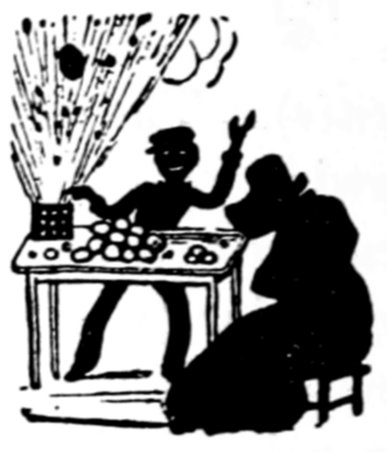 |
||
|---|---|---|---|
| The night comes on, when, braving civic law, | |||
| The little savage burns his man of straw; | |||
| Admires the hero as the crackers fly, | |||
| And fires, to emulate the glorious Guy. | |||
| With artless art he plans his victim's fall, | |||
| Some apple-woman dozing at her stall, | |||
| Who, waking, cries—half conscious of the fray— | |||
| "How very odd my pairs is blow'd away!" | |||
| D. | Great Events and Odd Matters. | Prognostifications. | |
| 1 | All Saints. Duke of Cumberland, Lord Lyndhurst, Lord Melbourne, Crockford, Joseph Hume, Dan. O'Connell. | duly | |
| 2 | First Day of Term. | Nervous epidemic among sundry idle gents, who expect to be raised to the Bench, and who are pressed to "man the Fleet." | concocted |
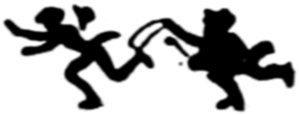 |
|||
| 3 | according | ||
| 4 | to art, | ||
| 5 | Gunpowder Plot. Guy Vaux blows up the House of Lords. | ♀ ⚹ ♏ ☽ | |
| 6 | FIFTH OF NOVEMBER. | ||
| to the | |||
| 7 | What a pity 'tis this glorious fun day | ||
| Should chance, this year, to fall on Sunday; | fulfilment | ||
| 8 | And leave us thus without the hope | ||
| Of burning Guy Fawkes and the Pope; | whereof | ||
| 9 | Balking the little blackguard boys | ||
| Of all their pretty, simple joys! | |||
| 10 | I'm sure 'twill grieve them very sadly, | ☿ ♊ ☽ | |
| And other innocents as badly, | |||
| 11 | Whose pious hate to warm and cherish, | I, | |
| The Pope, at all events, should perish; | |||
| 12 | For fires have always been the test | Rigdum | |
| For proving orthodoxy best. | |||
| 13 | But stay!—perhaps, on application, | Funnidos, | |
| His Holiness a dispensation | |||
| 14 | May grant, and, merely for this one day, | do | |
| Consent to burn with Guy on Monday. | |||
| 15 | hereby | ||
| 16 | pledge my | ||
| 17 | asstrological | ||
| 18 | reputation, | ||
| 19 | ♃ ⊕ ♒ ☉ | ||
| 20 | viz. | ||
| 21 | The doom | ||
| 22 | of Turkey | ||
| 23 | may be | ||
| 24 | looked for | ||
| 25 | ♈ ☍ | ||
| 26 | First night of Tom and Jerry. Larks in season. | as fixed | |
| 27 | |||
| ☽ ♂ ♀ ♈ | |||
| 28 | |||
| at | |||
| 29 | |||
| ♓ ♑ | |||
| 30 | Insurrection of the Poles, 1830. Ladies at the Treadmill refuse to have their hair cropped. | Christmas! | |
| DECEMBER. | [1837. | |
|---|---|---|
| "Last scene of all," that ends the year, | ||
| And ushers in brave Christmas cheer, | ||
| Come, deckt as thou wert wont to be, | ||
| In festive smiles and revelry, | ||
| With roasted beef and minced pies, | ||
| And pudding of gigantic size! | ||
| Fit emblem of our wealth's vast sum; | ||
| I'd be contented with a plum. | ||
| D. | Great Events and Odd Matters. | Prognostifications. |
| 1 | ||
| 2 | A RISING GENIUS. | about |
| 3 | Timothy Sly's own Epistle (not the Master's). | which time, |
| 4 | Dear Dick,—I copied my school letter to Father and
Mother ten times before one was good enough, and while
the teacher is putting the capitals and flourishes in I shall
slip this off on the sly. Our examination was yesterday and
the table was covered with books and things bound in gilt
and silk for prizes but were all put away again and none of
us got none only they awarded Master Key a new fourpenny
bit for his essay on Locke because his friends live next door
and little Coombe got the tooth-ake so they would not let
him try his experiments on vital air which was very scurvy.
It didnt come to my turn so I did not get a prize but as the
company was to stop tea I put the cat in the water butt
which they clean it out in the holidays and they will be sure
to find her and we were all treated with tea and I did not
like to refuse as they might have suspext something. Last
night we had a stocking and bolster fight after we went to
bed and I fougt a little lad with a big bolster his name is Bill
Barnacle and I knocked his eye out with a stone in my
stocking but no body knows who did it because we were all
in the dark so I could not see no harm in it. Dear Dick
send me directly your Wattses Hyms to show for I burnt
mine and a lump of cobblers wax for the masters chair on
breaking up day and some small shot to pepper the people
with my quill gun and eighteen pence in coppers to shy at
the windows as we ride through the villiage and make it one
and ninepence for there's a good many as Ive a spite against
yourself and meet me at the Elephant and Castle and if
there's room on the coach you can get up for I want to give
you some crackers to let off as soon as we get home while
they are all a Kissing of me Your affectionate brother Timothy Sly. |
⚹ ♒ ☿ |
| 5 | many | |
| 6 | aldermen | |
| 7 | will be | |
| 8 | hung in | |
| 9 | chains; | |
| 10 | ||
| ☽ ♀ ♊ ♍ | ||
| 11 | ||
| a dreadful | ||
| 12 | ||
| doom! | ||
| 13 | ||
| 14 | ♂ ☽ ☌ ♏ | |
| 15 | ||
| but not | ||
| 16 | ||
| so dreadful | ||
| 17 | ||
| 18 | ♏ ⚹ | |
| 19 | ||
| as | ||
| 20 | ||
| their final | ||
| 21 | ||
| sentence, | ||
| 22 | ||
| viz. | ||
| 23 | ||
| 24 | ♄ ♃ ♂ ☉ | |
| 25 | Christmas Day. Grand Council of Nice. | |
| to be | ||
| 26 | ||
| 27 | anthropophagized, | |
| 28 | Innocents. Lamb's Holiday. Celebration of Lord Melbourne's acquittal. | |
| 29 |  |
♄ ♐ ♎ |
| 30 | or | |
| 31 | Silvester (Daggerwood?) | devoured! |
['Old up the lantern, vill you, Bill?]
['Ow werry sewere the cold is, to be sure! it qvite makes von's head turn round. I might have been having a drop too much—and I'm sure I haven't: no—not a drop—too much. I only had half a pint o' beer at Mr. Simkins's—and a small glass of gin at Mr. Wiggins's—and the least drop as ever vos o' visky at Mr. Higgins's—and a pot of porter at Mr. Figgins's—and a thimbleful of brandy at Mr. Villiam Smith's—and a mug of stout at Mr. Valter Smith's—and a glass of grog at Mr. Thomas Smith's—and the share of a pint of purl at Mr. John Smith's—and a teacupful of cherry bounce at Vidow Smith's—and a draught of Dublin stout at Miss Smith's—and I'm sure that couldn't do nob'dy no harm; could it, Bill?]
[Vell, I never vos out in sech a frost in my life: I can't keep my legs the least bit as ever vos. Slippery times these is, to be sure. Hold the lantern up, vill you, Bill?]
[Vill you 'old the lantern stiddy, Bill; and not keep vhirling it about in that vay. Vot lots o' rewolving lights there is in this part of the city, to be sure!]
115[Vell, I'm blest if ever I see such printing as this: they've let the paper slip, and printed the werses twice over.]
[I vishes them there vaits vouldn't make such a nise with their 'arps and 'orns: nob'dy can't 'ear a vord as I says: they're no gentlemen, I'm sure: they might vait vaiting till I've done.]
[It's no use talking—nor reading nayther—for I can't get a vord out—it's so werry cold! Werses is qvite lost sitch rhymy veather as this. Bill, I see there's music and dancing going on at the gin shop over the vay; so never mind boxing no more to-night, but let's go and jine in the "Waults."]
Jan. 9.—At a general meeting of the Governors of Christ's Hospital, Sir John Soane's splendid architectural design for a new gateway to the school was adopted, with one dissentient only, to whom it was conceded, at his special request, that his protégé should be allowed to enter through a Pipe of Port.
Feb. 10.—An eminent apothecary in the New Road attended at Marylebone office to prosecute his errand boy, who, when sent out with medicine, being versed in Shakspeare, used to "throw physic to the dogs," and sell the empty bottles: the boy had spent the money in going to see the Bottle Imp. The doctor said his suspicions were first excited by finding his patients suddenly getting well. His worship at first threatened the culprit with the pillory and the black-hole; but afterwards changed the sentence into pills and a black draught, as more severe, and desired his master to take him home and dose him.
March 10.—A young lady at the Bucks county ball was apparently seized with convulsions in the midst of a quadrille. Her mamma ran to her assistance, and matters were soon restored. It seems that, her waist having been reduced to the minimum of magnitude, she was always obliged to be unhooked behind before she could sneeze.
May 25.—An elderly Gentleman was charged with having kissed a Lady for a Lark, in the fields near Kentish Town. He was fined five shillings for not being a better naturalist, with an admonition from the worthy magistrate, that most of the birds in that district belonged to the order "Pass-er."
June 23.—The splendid pair of yahoos, recently presented to the So-oh!-logical Society by the Duke of C——, have shown such extraordinary apt-ness, 116under the influence of example and good society, that on Sunday last, after having been submitted to the respective operations of Mr. Stulz and Madame Carson, they were allowed to walk out among the fashionables, when they deported themselves so well, that none but those in the secret could distinguish them from the rest of the company.
July 15.—The torrents which ushered in the morning led many to believe that, as this was the first day of St. Swithin's reign, so he had also selected it for his coronation; and in this they were confirmed by the streaming of the people along the streets, and the wringing of the Belles.
Aug. 26.—At the meeting of the British Association, at Bristol, Professor Buckland announced, as an indisputable fact, that the antediluvians kept cows, and vended their produce as we do; for, in the plains of Bul-garia, he had recently discovered a petrified milk walk, with a fragment of a fossil pump-handle at the end of it.
Sept. 1.—A sporting Cockney was unlucky enough to hit a cow in the calf of her leg, at Hornsey. She was no sooner in a limp than he was in a hobble, and he found to his cost that leg of beef is not always to be peppered with impunity.
Sept. 12.—Mr. Curtis announced his intention of standing for the Borough of Eye, in the event of a dissolution of Parliament, and made his opening speech to the voters amidst cries of "Ear! Ear!"
Oct. 10.—"Found, a healthy male Infant," &c., &c. That ancient sine quâ non to persons crossing the seas, a child's caul, is now a mere drug in the market. Instead of making it a compagnon de voyage, numbers cross the seas to avoid it. A child's call, in high preservation, may be picked up on any moonlight night, in any blind alley where you see "Rubbish to be shot here." A handbill headed "Desertion," formerly a monstrosity of un-English shape, is now a forme that the parish printer always keeps standing; and the beadles dryly observe, that they are become wet nurses to the children of half the parish. The Honourable Commissioners of the mechanical powers, Messrs. Leave-er, Wedge, and Screw, are indefatigable in fulfilling the intentions of their employers who have devised this happy state of things, to save themselves and their hopeful heirs from the unpleasant necessity of answering "A child's call."
Nov. 2.—A resolution was carried in the Common Council not to allow any more money for summer excursions on the water. The minority said they dreaded the vengeance of the ladies, and many members returned home in a very unhappy state, looking anxiously about for inscriptions of "Broken crockery mended here;" for they knew, by past experience, that man is the vessel that goes to pot when it comes to family jars.
Punctuality is essential to the character of a Gentleman. Early in the New Year send peremptorily for all your bills. If they do not arrive in a day or two, send again. By this exactness, you give your tradesmen confidence, and ensure their civility for some time, in the hope of a settlement. Having thus prevented any increase of charges, you can pay at your leisure. I have heard of a gentleman whose aversion to the sight of paper ruled in money columns had been indulged in as long as was consistent with his personal safety, who thus addressed a creditor for whom the shut sesame of "call again" had lost its charm. "After having for many years neglected my affairs, I have at length awakened to a sense of my error, and have resolved, by a vigorous system of economy, to retrieve them. Method, Sir, I now perceive that method is everything. From this day I set apart a certain portion of my income sacred to the payment of my debts."—"I am delighted, Sir, to hear of your noble resolution."—"I have made a schedule of all I owe, and shall begin at the top and persevere undeviatingly in regular though slow succession towards the bottom:—so that you see, my dear Mr. Figgins"—"Sir, my name is Wiggins"—"Wiggins! I had quite forgot; but I am sorry to hear it, very sorry—for my list is alphabetical. Had it been Figgins, or even Higgins, there would have been some chance for you, but the W's are so very low down.—No, I cannot say when I shall reach the W's."
If you wish to refuse the request of an old friend or a poor relation, but can hardly screw your courage to the sticking-place, put on a pair of tight shoes, and you will find it perfectly easy.
Never introduce your friends to strangers without their consent, nor permit such a liberty towards yourself, especially about November. Many have been entrapped into the hands of John Doe and Richard Roe thereby, unawares.
Choose rainy days to pay your visits on. You will thus show your sincerity, and be less likely to miss callers at home. Take your cloak and hat into the drawing-room—to leave them below would be like one of the family—but, above all, carry in your umbrella; you have no right to leave it streaming in another person's hall.
When you visit your maiden aunt, as you value your legacy expectant, preserve an amiable face, and keep you hands and feet to yourself, while her favourite tom cat reposes in you the height of his friendship by looking you full in the face and vigorously stretching himself by the aid of his ten talons hooked through your tight and tender kerseymeres.
119Though you may be a Nabob, or as rich as one, be not too anxious to parade your black servants before your friends, for both your sakes; they have, in general, two bad qualities—"stealing and giving odour."—Shakspeare, hem!
Never marry a widow (unless her first husband was hanged), or she will be always drawing unpleasant comparisons.
Never refuse a pinch of snuff, but do not become a snuff-taker: it is paying through the nose for a little pleasure.
Avoid argument with Ladies. In spinning a yarn among Silks and Satins, a man is sure to be Worsted.
It is common to speak contemptuously of tailors and dress-makers. This is bad taste; none but a rat would run down the sewers.
When a lady sits down to the pianoforte, always volunteer to turn over the leaves. To be able to read music is of no consequence, as you will know that she is at the bottom of a page when she stops short. If you turn over two leaves at once, you will probably have the secret thanks of most of the company.
When your friend enters the room instantly rise, and, though there may be half a dozen unoccupied chairs at hand, draw him with gentle force into your own. You will thus show the warmth of your friendship; for a damp seat may be as bad as a damp bed.
In driving out never make a lady treasurer of the turnpike trusts;—or, when you want twopence for a toll, you have to wait while the reticule string is snapped in two; then, out comes a lace-edged white muslin worked pocket-handkerchief, a pair of lemon-coloured kid-gloves, a smelling-bottle, a bunch of keys, and, to crown all, a five-shilling piece to change. All this time you are stuck fast in the jaws of a turnpike gate, the Brighton Quicksilver in your rear, driver raving at your back, leaders snorting over your shoulder.
Never plan a pic-nic, on pain of skulking about the town for six months after, dreading to meet, at every turn, the infuriated looks of the bereaved parents of half a dozen little innocents in white frocks and trousers, who have been washed away by an inundation; or to encounter the menacing glances of budding heroes, fierce in the rudiments of moustaches and chin-tufts, whose Celias and Delias have dropped into a decline through sitting on the damp grass at your instigation.
Never hesitate to take a friend with you when you go out to dinner. Disappointments are so frequent that the lady of the house may perhaps be glad of a spare gentleman to fill up a gap.
In carving, remember that "'twere well it were done quickly." He must be, therefore, the best carver who soonest fills the greatest number of plates. Waste no time in asking if people like a wing or a leg, this bit or that—many do not know their minds on any subject. Besides, as they cannot all have the prime cuts, nothing but discontent can ensue from giving them the choice.
As too much of a good thing is morally impossible, fill the 120plates well—the delicate can leave half, and the modest are saved the unpleasantness of a second application; besides making the hostess your eternal friend, if, through your management in the outset, some of the dishes go away uncut for another day.
Always return into the dish, before it goes from table, any portion of a ragout that your friends may leave in their plates. It is ten to one if your careless servants think of doing so afterwards.
Instead of waiting for the dessert, let your children come in with the first course—they cannot be used to good society too soon. They will furnish topics for conversation, and if any present be vulgar enough to require a second supply of soup, when the tureen is at low water mark, they will probably relieve your embarrassment by upsetting it, and so dispose of the question.
Help the darlings first—they are dearer to you than mere visitors, to whom you might, otherwise, inadvertently transfer some delicate bits on which the little cherubs had set their minds.
Do not detain the toothpick long after dinner—it's unpleasant to be kept waiting for it.
If a lady request you to select an apple for her, bite a piece out. How can you recommend it without?
Always wipe the brim of a pot of porter with your sleeve, if you are about to hand it to a lady.
| 121 | |
| JANUARY | [1838 |
|---|---|
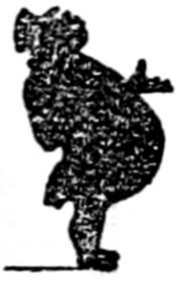
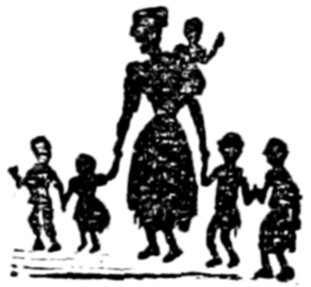
12 Lavater d. 1801.
26 Botany Bay colonized, 1788.
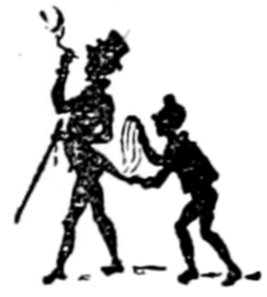
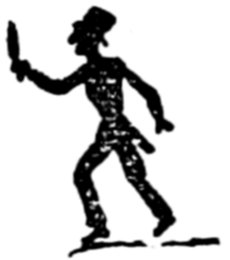
31 Young Pretender d. 1788. N.B. Race not extinct.
| 124 | |
| FEBRUARY | [1838 |
|---|---|
14 Blackstone d. 1780.
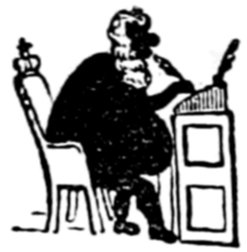
Judge of A-Size.
28 Hare Hunting ends. "Nemo est hæres viventis."—Blackstone.
| MARCH | [1838 |
|---|
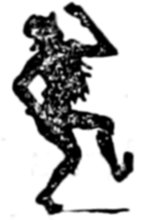

| 132 | |
| APRIL | [1838 |
|---|---|

3 Low Sunday. "Facile est descensus—"
8 Sir R. Peel resigned, 1835.
15 Clock with Sun.
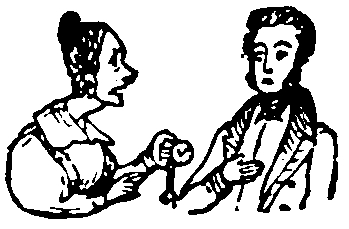
Caution.—Never undertake to get a lady's watch repaired, or you will be held responsible for its defects ever after.
24 Geological Society instituted, 1826.

3. Sir O. Moseley, who lost his election, they say, from having seconded Sir Andrews' Sunday Bill.
| 135 | |
| MAY | [1838 |
|---|---|
13 Edmund Kean d. 1833.
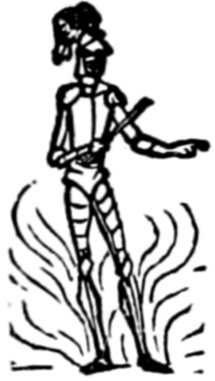
31 Joe Grimaldi d. 1836.
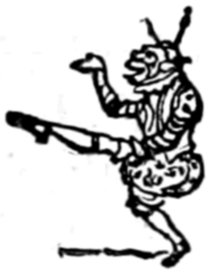
| 138 | |
| JUNE | [1838 |
|---|---|
| 141 | |
| JULY | [1838 |
|---|---|
Well, Duck, though I never did dabble in foreign parts,—Law, Ma! how I shall squeal when the engine starts.——For shame, child! as to fear it's nothing but a notion;—I declare I always feel the better for a little motion.——Pray, mister, do you call this a first-class carriage because it goes double fast?—No, ma'am, it's because we puts it behind, to be blow'd up last.——See, they're pulling us along with a rope! very odd, upon my word.—Vy, you carnt expect the hingins to go on their own ac-cord.——But just look round at Hampstead and Highgate, while they slacken their pace,—And see, they hook on the loco-motive! What's that, Pa? A thing they've a motive for hooking on at this place.——Here's Chalk Farm, where some run down a hill, and some run up a score!—And there's the famous tunnel! It looks like a bit of a bore.——Oh, dear! Oh, dear! how dreadful dark! I think I'm going to die,—And I'm so hot I can't say my prayers! but here's the light of the sky.——See what a hole in my parasole, burnt by a red-hot spark!—I only wish I knew who it was that was kissing me in the dark.——Sare! I vonder, Sare! ven dey vill put on de horses to draw!—Oh! horses don't draw here; they're all hors d'emploi.——But how the hedges run past, and the trees and the bridges, and the posts, and the cattle, and the people!—This is just like ploughing the air! Yes, and there goes Harrow Steeple.——On, on we spin, with a clack and a din, like a mighty courser snorting, blowing.—Well, how do you like the railroad now? Oh! I think it's the wonderful'st thing that's going.——Ladies, here's Watford; we can stop if you've had enough of your ride.—But perhaps you'd rather go on; there's a long tunnel on the other side.——Oh! I'm so frighted at the thought I can scarcely speak!—Gracious! I'm so delighted! I hope we shall stay in for a week.——Well, if that's the case, as you came out for a little pleasure, I shall leave you at the tunnel, and you can go through at your leisure.
20 Professor Playfair d. 1819.
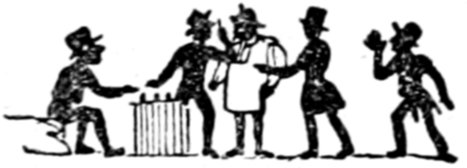
28 Infernal Machine in France, 1835.
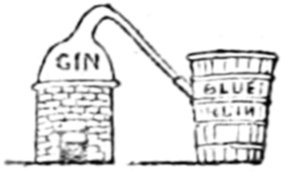
Reader, my name's Nubibus. I am "that Romeo." My ruling passion is a taste for the rurals. My love of green fields may be almost termed a green sickness. You may talk of your ottomans and your fauteuils, I never sit so easy as in a rustic chair. But, unhappily, my pleasure is not without a damper. The rain is my most mortal foe: my skies are always cloudy: my trees are continually on the drip: my Pan is always a Watering Pan. At the moment of my birth, even, it was observed that the watchman was going his rounds and crying, "Past four o'clock, and a rainy morning:" and many of my best friends think it likely that my last days will be accompanied by a drop.
Last Friday was a notable instance of my unluck. The morning was most beautiful—sun shining, birds singing, weather-glass down at Stormy, and Moore's Almanack at Heavy Rain—everything, in short, promised a fine day; and I immediately dressed myself in my most summery attire, and set off to join Mrs. Timon Duggins's pic-nic party to Battersea Fields. I found all the company already assembled in her little parlour, in Greek Street, Soho, and I could hear them greet my arrival with, "Oh! here's that Mr. Nubibus! we're sure to have rain if he comes." However, I took no notice of their impertinences, but calmly brushed the dust off my gossamer pumps, to show that I had no fear on my own account: tho', sooth to say, I had taken care not to come without my old friend, my walking-stick umbrella. Well, off we set, took boat at Hungerford Stairs, and reached our place of destination without misadventure. Miss Arabella Dix was the first lady to land, which she did by stepping into a squashy place among the rushes, from which she came out with an abundant supply of mud and water, and not without an angry look at me, as much as to say, "Ay, it's all thro' that Mr. Nubibus!" But this was not the worst. Gallantry forbade that Miss Arabella should remain in her unfortunate dampness while there were so many dry gentlemen in company: and, as it unluckily turned out that mine was the only small foot of the party, I was obliged to give up my dry pumps to Miss Arabella; tho' I own it went to my very sole to do so.
"Oh! how I do love the country!" exclaimed Miss Arabella, as soon as she had established herself in my dry shoes; "the sky, the water, the trees, how delightful!" I felt as if I could have hugged her. My taste to a T.
"And there! there's a spectacle! that lovely rainbow!" I felt as if I could have committed homicide upon the provoking creature, and clenched my walking-stick umbrella with the force of a maniac. On came the rainbow; clap went the thunder; down poured the rain—cats and dogs, puppies and kitlings. All eyes were turned upon me reproachfully. Up went umbrellas and parasols; out came cloaks and Mackintoshes. An air of triumph seemed to pervade the company as they remarked that there were no means of shelter left for me. I let them enjoy their triumph for a while, and then I 143quietly unscrewed the top of my walking-stick umbrella. My walking-stick umbrella, did I say? Alas! I had brought my bamboo telescope instead.
Young Ariel Hicks, a young gentleman of fifteen years of age, and as many stones weight, now offered me a share of his parapluie; but, as Hicks was only four feet two inches in height, and I stood five feet ten in my shoes (or rather, in Miss Arabella's), I was soon tired of doing penance in the form of a letter S, and boldly declared my utter contempt for all kinds of showers, and thunder-showers in particular. What made our situation still more provoking, was the presence of an opposition pic-nic party in the adjoining field, cosily enjoying themselves under a waterproof tent, from the entrance of which a grinning face would every now and then peep out, evidently in high glee at our miserable appearance. The weather getting clear, it was proposed to have a ramble among the green trees: but the Dryads and Hamadryads turning out to be anything but what their name imported, we were glad to escape from their dripping bowers with all possible speed. Hungry as wolves, and shivering with cold, we now addressed ourselves to Mrs. Timon Duggins, who had undertaken to be purveyor to the whole party. Mrs. Timon Duggins was as hungry as we. But where was "Mr. Gunterses young man?—Mr. Gunterses young man, that she (Mrs. D.) had ordered to be on the ground punctually at two o'clock?" Echo, and several of the young ladies and gentlemen answered "Where?" But still Mr. Gunter's young man appeared not. At last Mrs. Timon Duggins, employing one end of her spectacles as an eye-glass, exclaimed, "Why, there he is!" and there, sure enough, we saw him, standing with his baskets on his arm, watching the departure of the rival party, who were merrily sailing down the river to the tune of the Canadian Boat Song, sung by the whole strength of the company. The young jackal was soon summoned, and bid to spread the repast: but what was our horror on learning that he had mistaken the rival party for ours, and suffered them to eat up all our provisions. Half dead with cold and hunger, we turned the baskets inside out: but nothing was left except a few ices and a bottle or two of ginger-beer!
By great good fortune one of the Twickenham steamers was just then going by, and as Ariel Hicks, who was an amateur sailor, had some acquaintance with the skipper, he succeeded in procuring us some prog from the vessel. We had scarcely got our knives and forks well fixed in it, however, when the rain again began to fall in torrents, and we were glad to get away to our boats and Mackintoshes. Our voyage home was not less disastrous. The boat had been filled to about ankle deep by the late heavy rains, and we were obliged to sit all the way with our feet held up above high-water mark—except those who thought proper to put them in the wet by way of relief.
The next morning there was but one answer to all inquiries—"Our compliments, and we're very ill in bed of colds and rheumatisms; and it's all owing to that Mister Nubibus."
| 144 | |
| AUGUST | [1838 |
|---|---|
16 Andrew Marvel d. 1678. No wonder.
Joe Miller d. 1738. No joke.
18 Rebel Lords beheaded, 1746.
22 Gall d. 1828.
Never suffer a phrenologist to pass judgment on your head, or, ten to one, you may hear something unpleasant.
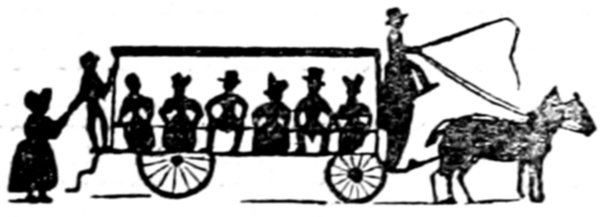
No occasion to move.
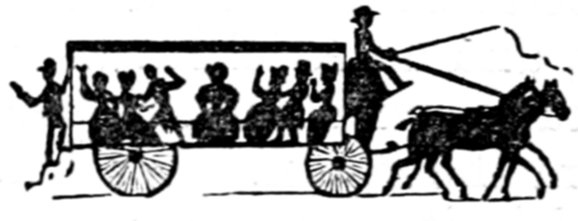
A move on occasion.
Pray, Ma'am, can you move ever such a little scrinch? Indeed, Marm, its quite unpossable for me to stir an inch.—Well, if I'd stay'd at Dorking I should have sat more at my ease, but I thought it best to leave such a nest, for we're all swarming alive with fleas.—Then I'll take my leave, Marm, to shift a little further from where you are sittin', for though I don't like to be crushed, I don't choose to be bitten.
Miss Henrietta Julia Wiggins, on her Travels, to Miss Adelaide Theresa Ditto, in Bucklersbury. With a short Postscript from Mamma, and another from Papa.
"Ma chère Sœur—According to promise, I now send you the journal of my tour; but, hélas! if you expect it has been a happy one, you trompez yourself most sadly. Mon dieu! the sufferings we have undergone! Mais voilà the journal.
"Monday, Sept. 1.—Embarked on board the "Emerald" steamer at London Bridge for Boulogne, at one o'clock in the morning, after having passed a miserable night in packing up, and trying to go to sleep in easy chairs. Pa complaining of symptoms of lumbago.—All the berths taken, mostly by gentlemen—or rather, by monsters in the form of gentlemen. Mon dieu! what brutes the English men are! to suffer us poor helpless femelles to pass the night on deck, while they are snoring away comfortably in the cabins! Ma's blue silk pelisse was soon put hors de combat by the nasty tar and stuff, and my new French-white bonnet was turned into a regular London smoke in ten minutes by the horrid chimney.—Ma has made the acquaintance of a very nice Dame Française, who speaks pretty good English, and abounds in anecdotes about la grande nation. Also, has kindly taken charge of one of Ma's sacs de nuit; as she says the French douaniers won't allow people to land more than one carpet-bag a-piece, and Ma not choosing to leave her valuables at the mercy of those vilains bêtes, the custom-house officers. Moi aussi, j'ai fait connaissance with a charming fellow, the Marquís de Mandeville, a young militaire, in black moustaches and a green foraging cap.—Marquis beginning to make himself very agreeable; in fact, becoming quite amoureux, when both taken suddenly ill, and obliged to part. Ah! Adelaide dear! it's a sad change, from love-sick to sea-sick! French lady very kind, and asked me if I had the mal de mere—thought she meant "my mother's complaint," which you know is rheumatism in the hips—answered accordingly, and got horribly laughed at by a lot of rude fellows in make-believe sailors' jackets.—Ma next attacked—Pa next—tout le monde soon in the same plight. Sensation dreadful—headache worse and worse—Ma wanted to be set down at Dover, but Captain wouldn't hear of it. French lady very attentive—would fetch tumblers of brandy and water for Pa and Ma and me—couldn't drink a drop—she did, and wasn't sick at all. Obliged to stop my journal—so very ill.
"Tuesday, Boulogne—Landed here half dead, having lost the tide, and obliged to pass another night at sea. All very ill. Pa's lumbago confirmed, and Ma's rheumatism très mal.—Unable to go to Paris; and our places having been paid for all the way, obliged to forfeit the money; Pa very cross, Ma very uncomfortable. 5 o'Clock, p.m.—Pa has just been in to say that the French lady refuses to give up Ma's sac de nuit, containing all her valuables; and that, as it was landed in her name, there's no remedy.—A call from Marquis—advises us not to make a rumpus about it, for fear of being taken up as smugglers. His lordship's valet not being yet arrived, under the unpleasant necessity of borrowing five pounds of Pa. Pa very suspicious, until Marquis showed us his passport, where they have taken him two black eyes, a nose aquilin, black cheveux, and five feet three inches of taille. Only think, Adelaide dear! what a picture of a lover!
"Wednesday.—Passed a dreadful night, not having been able to sleep a wink for the punaises. Ma bit all over, and her face as big as two. Moi aussi, my eyes completely swelled up, all but one little corner, just enough to see what a fright I am in the looking-glass. Unable to get any assistance from the people at the inn, our manuel du voyageur not containing any dialogue between a chambermaid and a lady bitten by bugs; and Pauline, Ma's maid, that she hired by advertisement, having left us the moment we landed, her only motive in engaging herself at all being to get her passage paid back to her native country.—Can't get anything that we can eat at the inn, and reduced to sea 146biscuits and water. I have again tried to make our wants known to the fille de chambre, but without success, they do speak such very bad French in the provinces—quite a patois, in fact. Hope we shall do better in Paris.—Marquis called, and recommended Pa to hire a valet de place. Kindly undertook to provide him one, who speaks French and English, and understands the horrible patois of the Boulognese. This will take a good deal off my hands, who am obliged to be interpreteur to the whole party.—Alexis, the new valet de place, arrives.—Got something eatable at last, and are to start for Paris demain matin.
"Thursday.—Up at five. Déjeûner, and start for Paris at seven—Marquis in same diligence. Weather dreadfully hot. Rival diligence got the start, and will keep before us all day, the French laws not allowing one coach to pass another. Dust dreadful—and worse for us than any of the rest, as we had taken our seats in front of the voiture, for the sake of seeing the country—and, after all, no country to see. Proposed to some gentilhommes inside to change places with Ma and me; but met with a flat refusal. Begin to think French gentlemen are not much more poli than English ones.—Dined at Abbeville, and arrived at Amiens late at night, very tired and ill.
"Friday.—Up at five, after a sleepless night. Started at seven. Heat comme hier—dust ditto: two diligences before us.—Dined, or rather table d'hôte'd (which is a very different thing) at Clermont. Didn't eat an ounce all three of us, but obliged to pay five francs a-piece for our dinners—and, as we had no francs left, the people kindly consented to take English shillings instead.—Ma and I quite ill, from heat, and dust, and fasting, and one thing or another; and Pa's lumbago much worse since the heavy thunderstorm which soaked thro' his waterproof hat, and ran off his Mackintosh into his shoes, till they were all of a squash.—Seeing our distress, three French gentlemen inside kindly consented to relinquish their seats in our favour, an offer which we gladly accepted. The French are really polite, après tout!—10 o'Clock, à la nuit!—Arrived in Paris at the Hotel de Lyon, the Marquis very politely handing us out, and seeing us to our room.—Rather annoyed by Pa's coming in and kicking up a rumpus about the gentlemen who had taken our paid places on the première banquette, and who had left him to pay for the three insides all the way from Boulogne.—Marquis very aimable, and gave us all a pressing invitation to pay him a visit at his château in La Vendée.
"Saturday.—The Marquis to breakfast.—With his Lordship to the Jardin des Plantes, where we had no sooner arrived among the lions and tigers than it began to rain cats and dogs. The noble Marquis very kind in holding the umbrella over him and me, and sending Pa to call a coach at the neighbouring coach-stand. Pa très long-tems away—at last saw him coming along in the custody of two gend'armes, covered with mud and dirt, and bleeding profusely. Learned that poor Pa, instead of calling 'cocher,' as he ought to have done, had called the man 'cochon,' which, you know, means 'pig;' at which the coachman at first laughed; but Pa persisting in calling him 'cochon,' he at last got down in a rage, and attacked Pa most furiously. I am sorry to say, poor Pa got terriblement maltraité. Ma has been in fits ever since, and Pa won't be able to go out for weeks. Pour moi, I am as ill as any one can be—nothing but the Marquis's kindness keeps me alive...."
"P.S.—Sunday.—My dearest child! Your unhappy mother sends you this. Your deluded sister disappeared last night with the Marquis de Mandevil, leaving this unfinished letter on her table, and your Pa and me both heart-broken. I am too ill to write any more.
"P.S.—Monday.—Dear daughter! Your distressed father sends you this. Your unhappy mother eloped last night with that villain Alexis—and all the luggage. I have discovered that he and the Marquis are a couple of sharpers. A pretty week we have made of it!
"Mr. Hume moved for a list of all Commissions issued between the 1st of April, 1833, and the 1st of April, 1837, and of the expenses incurred thereon."
| 149 | |
| 1830.] | SEPTEMBER. |
|---|---|
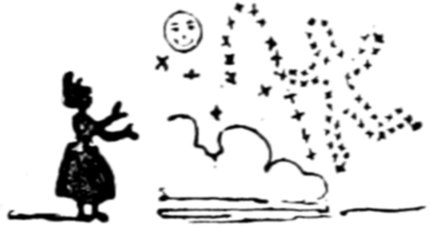
6. Stratford Jubilee, 1769.
"Mother! mother! take in the clothes: here be the players a-coming!"
15 Newspaper Stamp Duty reduced, 1836.
29 Michaelmas Day. De Goostibus non est disputandum.
| 152 | |
| OCTOBER. | [1838 |
|---|---|
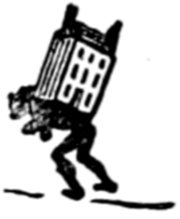
Messuages delivered.
1 London Parcels Delivery Comp. estab. 1837.
I rite to inform you our caws is quite the top of the tree in these parts, nerely all the publicks is ruined and shut up quite private, the checkers is xchecker'd—the baileaves is in at the rosemary bush—and there's not a sole to shak ands at the Salitation—nothing but whimpering at the whine waultz, instead of dancing and tostication so the wendors of spirits is quite dispirited and at the hintermedihate nobody wont go to be drunk on the premises. Our parson hoo nose the sin of spiritual lickers as inroled isself and some of the jentry as hates gin as jined us, the sqwire too sais he will sine and sail with us as long as he dosnt go out of site of port. We holds quite a strong meeting weakly but drinks nothing but Tee total and as abolisht XX intire and marches quite connubial together round the pump to the tune of Andle's water music but we as now less occasion for the spout and shall soon dew altogether without my unkle which is a relashun you will be glad to hear for as we have left off our cups we have less need of the balls, but I am sorey to sea all our happytites is sadly hincreased witch is wery detrimental and hilconvenent at this critearyon of the ear. We was extorted last weakly meeting by a new member a norrid drunkerd but now quite a reform carrikter sins his money was all gone and nobody wont trust him. His discoors was quite headyfying for he is a tailer and goos about in the good cawse since he left off gozzling. Before he jined us he was alwise stupid drunk and beatin his wif and now he never gives his mind to licker. Just at the beginning he was quite affecting and could not get on without a go of brandy which we thought very rum. He as given up his trade witch was his sole dependanse sinse he lost all his plaices and know dout he will be trew to us til somthink else befalse. Dere frind thease is the first Hoctober as we as passed without a brewin witch it looks rayther brown but hope to bear it—and we are getting quite hammerous of our tease witch at first was very tormenting but now the slow leaves goes off as fast as gunpowder and them, has as gardings makes the how-queer mixter, but I am afeard I'm a bit of a bore as the learned pig sed and so conclood
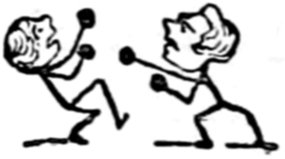
"O deer Feby sich a plase lunnun is yew Havent got a singl hidear i only wish yew was Hear yew wood sune hav al the tethe Stole out off yewr hed ass for sites Bles yewr week ize i hav sea evry think & havent had no time for Nothink only luvving yew & Sory yew rote them 4 ubbrading ninepeny leters wich rely doant Bleav as yewr Makeing me a pressant of the Kichin sithers at parting has Bean abl to Cut our luv in 2 O deerist Feby the sithers must be verry Sharp grun indede ass cood Severe sich luv ass ourn i hav bean to the Tip top of St palls & Drunk my share off 2 botls off wisky inside the bal wich is quite a rume But must confes i nevver was in sich a Bal rume in al my life the vew is rely Wunderfull nevver sea so much smoak togethar in al my Days allso hav bean to sea the lions in the towr wich their is no sich thing to be Seen & the same of the brittish mewseam wear i was Told i shood sea al sorts of Live creturs but turnt out nothink but Stuff allso hav Bean to doory lane & Comon Gardn & my i Feby sich hacting & singing Fillips partickler tawk of Garick i am sur he is ass Depe as Garick & mister Brayam sings Deper & deper stil allso hav Bean lukky anuff to sa the yung quean wich deer Feby she is no moor Like a quean then yew ar namely insted of a crown on her hed ass she orts to hav her Rial hiniss had nothink but a comon Bonit & insted of a septer in her and nothink but a Grene silk parrysawl only Think Feby of ruleing a nashun like Grate briton with a grene silk parrysawl allso hav ad a intervew with the duk of Welinton wich insted off Bean the Grate ero they giv him out to be is quite a Litel chap & deerest Feby cood Lik him my self & stand of 1 leg then theirs the parks ide Park St jamess & Regency park lately Threw open to the publik wich is a grate advarntige in regard of meting nuss mades wich ide Park & kensinton gardns was rely geting so Low did i tel yew befour of the stem pakits on the rivver they ar al as one as stage coches namely going upon weels & Carying inside & out pasingers only insted of osses is Drawd alung by nothink but Chimblys to be Short with yew i hav sea allmost evrythink But not yet ad the plessure off Bean pressant at a Dredfull fire tho they was 6 ouzes Burnt only a strete of last tewsdy nite & a hold gentel man Jumt out off a 2 pare off stares windy on to a Pattant air fetherbed only unfortynat the made forgot to Blo it up in the mornin and consiquensialy the hold gemman insted off Braking his fal only Broke 2 off his ribs i was lukky anuff to sea a yung wumman Drownded in the sirpintine wich she wood hav Savd her life if it hadent Bean for 1 off the umain sasietys men Geting intangld in her petty cotes & keping her hed too lung under Warter allso sea a hold wumman nokt Down by a noo polease & 3 men kild by Safety cabs to say nothink off hacksidents by homini-bus 154wich is no wunder seaing the number they Cary wich yew no Siting down 13 is unlukkines itself allso Bean pressant at a Dredfull drunken row in a coart in pety france wich master and me Geting into the Coart end we was quite jamd in & in Devvaring to cut our Lukky receevd sevral Unlukky blos but at last the noo polease Arivd & evry Sole tuk to his Eels & as master laffably sed insted off the Batl of a Gin court turnt out the Batl of Runnymede but deerest Feby doant Bleav in the midl off al this plessuring nayther master nor me is appy in lunnun i asure yew we ar quite Contrayry & artily Repent as evver we Consentid to becum parliment men for West stafordsheer wich befour we was hindipendant members we cood Do ass we likt But now just Revers & ar quite tide by our 4 legs master as Bean admitd at crokfuds a notoryus hel but poor feller he finds hisself quite out off his Hellyment & indede boath him & me is quite at a Los without our old friends the Cows & shepe & yew & missis & al the rest off the beests ass we hav Bean ust to al our lives & master is grew quite thin in consequents & Bleav me Feby tho i doant Take in my waste cotes so menny oles i mis yew quite ass much ass master missis missis we spend al our Spar time in Smith feeld wich is the only rele plessure we hav Smith feeld is just the same ass 1 of our own feelds in West stafordsheer only no gras nor no eges nor no riks of hay nor no Stiles to sit a coartin on But ful of orses & cows & carves & pigs & shepe & other Beestly sites O them deer pigs ow Glad i was to ear there wel none vices it quite put me in mind of yew & deer Butermilk villige & i rely cood have Stade a earin them squele al day Lung wich deerest Feby doant Bleav wat i say about the pigs is al Gammon we hav got a Bewtifull ous in pel mel & the yung ladys ar verry Gay mis Jewlia is verry fond off Sowlogical gardning & gos evry day to Studdy the hannimils at the regency Park allso mis Jawgeny rides out evry mornin on her pony with James the noo sirvent beind on 1 off the hold coch orses wich as Bean clipt & his tale Cut thurrow bred for the okasion the sirvents is al very wel & my duty to yewr farther & ow is yewr sister Suzn & poor litl nock need Nely & abuv al deerest luv Ows yewr muther Respecktiv cumps to al yewr old felow sirvents & Pleas exept yewrself deerest Feby
P. S. O Feby Feby wear al in a huprore sins Riting my abuv we hav found out mis Jewlia only went Sowlogical gardning for a xcuse to mete her luvver & is boath loped away gudnes or rather Badnes nose wear Allso the same of mis Jawgeny & James the noo sirvent ass i told yew off but Bles yewr art was no sich thing but only a luvver in disgize & wen we al thort him a Real lakky turnt out nothink but a Vally de Sham.
| 155 | |
| NOVEMBER | [1838 |
|---|---|
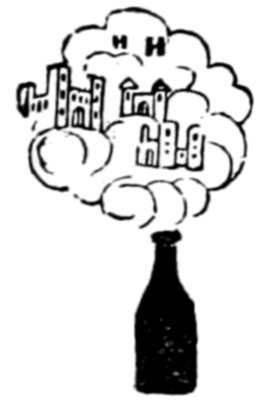
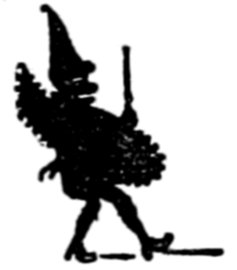
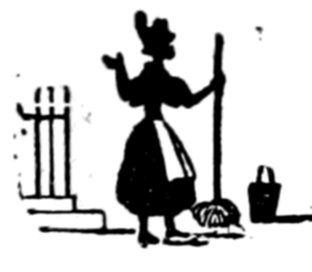
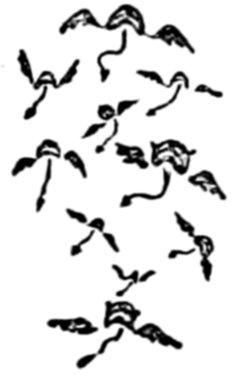
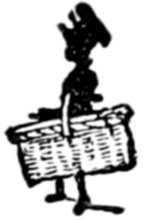
| 158 | |
| DECEMBER | [1838. |
|---|---|
The approaching vacation devolves on me the pleasing duty of reporting to you, by the hands of Master Timothy, the general progress of his studies. In some respects his extraordinary precocity has even exceeded my wishes. I have directed his reading principally to Biography, and his ardour has led him to add to my selection the lives of Turpin and Moore Carew, together with the instructive narratives of the Newgate Calendar. His progress in penmanship has been so great, that he has not only written all his own letters, but many for his school-fellows, to which the versatility of his genius has led him to append their names so accurately, as to enable him to obtain from their parents, with the help of the post-boy, a considerable addition to his pocket-money. I have cleared up a few of these little shades of character, which have been brought to light, as you will perceive at the foot of my bill. In Arithmetic, Subtraction has been his favourite rule, as all the drawers in the house can testify. He has also worked some complicated sums in Vulgar Fractions, and proved them, by the glazier's bill enclosed. His skill in Division has also been displayed in his setting all the school together by the ears. In Composition, his forte is romance and general fiction; indeed his conversation is of so flowery a nature, as to have been compared to a wreath of li-lies. At our races he greatly improved his acquaintance with the Greeks—Late-in, of course, included—and my servants picked him up at midnight, land-measuring, at length, on the Turnpike road. He has progressed in Logic, though rather addicted to strange premises, which may lead to serious conclusions. He has become an accomplished natural philosopher—his pursuit of Ornithology has led him to every hen-roost in the village, and all my eggs have been constantly exhausted in his experiments on suction. During his inquiries into the nature of animal heat, my favourite cat caught a severe cold, from which she never recovered, through his turning her out without her skin, on a frosty night. I have inserted a small item from my surgeon's bill, for repairs of his companions' noses, damaged by his passion for Conchology; and a charge, which I fear you will think heavy, for a skylight, destroyed by Master Timothy's falling through, while crawling along the parapet on a dark night, to seek some information at my gardener's daughter's window—an extraordinary instance of the pursuit of knowledge under difficulties. His decided turn for the belles lettres has deprived me of two of my best maids; for I have been obliged to discharge them on suspicion of irregularly participating in his studies, contrary to the rules of my establishment. As I do not feel competent, however, to do justice to the education of so talented a youth, I shall not expect to see Master Timothy again after the holidays.
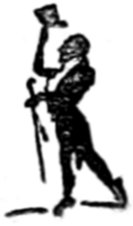
25 Apotheosis of Vauxhall Simpson, 1835.
160Here's "Wax and Wick-toria" (Cowan, in gloria), "May she long wear her Crown (Alderman Brown), "Ourselves and the Queen" (Pellatt and Green), "She'll ne'er have her match if she reads the Dispatch" (says that jolly farmer, Alderman Harmer), "Success to Regina and Essence of Bina" (inscription good, by Matthew Wood), "Long live the Queen, to drink Black and Green" (Mr. Twining, in bright lamps shining), "None shall dare to affront her" (Sir Claudius Hunter), "In a lot we'll knock down all the foes of the crown" (a desperate go, by Farebrother and Co.).
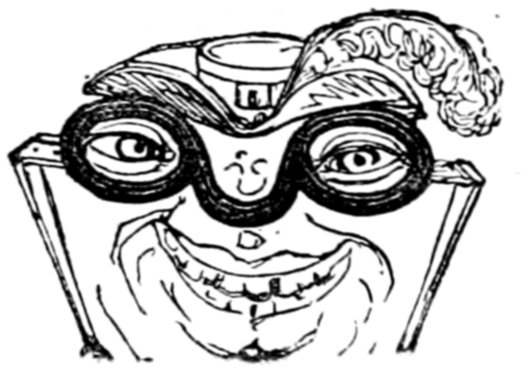
| 162 | |
| JANUARY | [1839 |
|---|---|
Some poet has observed, that if any man would write down what has really happened to him in this mortal life, he would be sure to make a good book, though he never had met with a single adventure from his birth to his burial; how much more, then, must I, who have had adventures, most singular, pathetic, and unparalleled, be able to compile an instructive and entertaining volume for the use of the public!
I don't mean to say that I have killed lions, or seen the wonders of travel in the deserts of Arabia or Prussia: or that I have been a very fashionable character, living with dukes and peeresses, and writing my recollections of them as the way now is. I never left this my native isle, nor spoke to a lord (except an Irish one, who had rooms in our house, and forgot to pay three weeks' lodging and extras); but, as our immortal bard observes, I have in the course of my existence been so eaten up by the slugs and harrows of outrageous fortune, and have been the object of such continual and extraordinary ill-luck, that I believe it would melt the heart of a mile-stone to read of it—that is, if a mile-stone had a heart of anything but stone.
Twelve of my adventures, suitable for meditation and perusal during the twelve months of the year, have been arranged by me for this Almanack. They contain a part of the history of a great, and, confidently I may say, a good man. I was not a spendthrift like other men. I never wronged any man of a shilling, though I am as sharp a fellow at a bargain as any in Europe. I never injured a fellow-creature; on the contrary, on several occasions, when injured myself, have shown the most wonderful forbearance. I come of a tolerably good family; and yet, born to wealth—of an inoffensive disposition, careful of the money that I had, and eager to get more, I have been going down hill ever since my journey of life began, and have been pursued by a complication of misfortunes such as surely never happened to any man but the unhappy Bob Stubbs.
Bob Stubbs is my name; and I haven't got a shilling: I have borne the commission of lieutenant in the service of King George, and am now—but never mind what I am now, for the public will know in a few pages more. My father was of the Suffolk Stubbses—a well-to-do gentleman of Bungay. My grandfather had been a respected attorney in that town, and left my papa a pretty little fortune. I was thus the inheritor of competence, and ought to be at this moment a gentleman.
My misfortunes may be said to have commenced about a year before my birth, when my papa, a young fellow pretending to study the law in London, fell madly in love with Miss Smith, the daughter of a tradesman, who did not give her a sixpence, and afterwards became bankrupt. My papa married this Miss Smith and carried her off to the country, where I was born, in an evil hour for me.
Were I to attempt to describe my early years, you would laugh at me as an impostor; but the following letter from mamma to a friend after her marriage, will pretty well show you what a poor foolish creature she was; and what a reckless extravagant fellow was my other unfortunate parent.
O Eliza! your Susan is the happiest girl under heaven! My Thomas is an angel! not a tall grenadier-like looking fellow, such as I always vowed I would marry:—on the contrary, he is what the world would call dumpy, and I hesitate not to confess that his eyes have a cast in them. But what then? when one of his eyes is fixed on me, and one on my babe, they are lighted up with an affection 164which my pen cannot describe, and which, certainly, was never bestowed upon any woman so strongly as upon your happy Susan Stubbs.
When he comes home from shooting, or the farm, if you could see dear Thomas with me and our dear little Bob! as I sit on one knee, and baby on the other, and as he dances us both about. I often wish that we had Sir Joshua, or some great painter, to depict the group; for sure it is the prettiest picture in the whole world, to see three such loving merry people.
Dear baby is the most lovely little creature that can possibly be,—the very image of papa; he is cutting his teeth, and the delight of everybody. Nurse says, that when he is older, he will get rid of his squint, and his hair will get a great deal less red. Doctor Bates is as kind, and skilful, and attentive as we could desire. Think what a blessing to have had him! Ever since poor baby's birth, it has never had a day of quiet; and he has been obliged to give it from three to four doses every week;—how thankful ought we to be that the dear thing is as well as it is! It got through the measles wonderfully; then it had a little rash; and then a nasty hooping cough; and then a fever, and continual pains in its poor little stomach, crying, poor dear child, from morning till night.
But dear Tom is an excellent nurse; and many and many a night has he had no sleep, dear man! in consequence of the poor little baby. He walks up and down with it for hours, singing a kind of song (dear fellow, he has no more voice than a tea-kettle), and bobbing his head backwards and forwards, and looking, in his night-cap and dressing-gown, so droll. Oh, Eliza! how you would laugh to see him.
We have one of the best nursemaids in the world,—an Irishwoman, who is as fond of baby almost as his mother (but that can never be). She takes it to walk in the Park for hours together, and I really don't know why Thomas dislikes her. He says she is tipsy very often, and slovenly, which I cannot conceive;—to be sure, the nurse is sadly dirty, and sometimes smells very strong of gin.
But what of that? These little drawbacks only make home more pleasant. When one thinks how many mothers have no nursemaids; how many poor dear children have no doctors: ought we not to be thankful for Mary Malowney, and that Dr. Bates's bill is forty-seven pounds? How ill must dear baby have been, to require so much physic!
But they are a sad expense, these dear babies, after all. Fancy, Eliza, how much this Mary Malowney costs us. Ten shillings every week; a glass of brandy or gin at dinner, three pint bottles of Mr. Thrale's best porter every day,—making twenty-one in a week; and nine hundred and ninety in the eleven months she has been with us. Then, for baby, there is Dr. Bates's bill of forty-five guineas, two guineas for christening, twenty for a grand christening supper and ball (rich Uncle John mortally offended because he was made godfather, and had to give baby a silver cup: he has struck Thomas out of his will; and old Mr. Firkin quite as much hurt because he was not asked: he will not speak to me or John in consequence); twenty guineas for flannels, laces, little gowns, caps, napkins, and such baby's ware: and all this out of £300 a year! But Thomas expects to make a great deal by his farm.
We have got the most charming country-house you can imagine; it is quite shut in by trees, and so retired that, though only thirty miles from London, the post comes to us but once a week. The roads, it must be confessed, are execrable: it is winter now, and we are up to our knees in mud and snow. But oh, Eliza! how happy we are: with Thomas (he has had a sad attack of rheumatism, dear man!) and little Bobby, and our kind friend Dr. Bates, who comes so far to see us, I leave you to fancy that we have a charming merry party, and do not care for all the gaieties of Ranelagh.
Adieu! dear baby is crying for his mamma: a thousand kisses from your affectionate
There it is. Doctor's bills, gentleman-farming, twenty-one pints of porter a week; in this way my unnatural parents were already robbing me of my property.
| 165 | |
| FEBRUARY | [1839 |
|---|---|
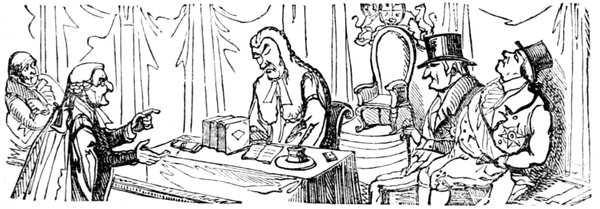
i am sory to say, in anser to yure lofeing letter, that we are all like to want bred, for i have gained my law sute quite sattisfactury, witch it greves me the more that hou tell me the rufe of the cottige is tumbled in for the lawyers say it is now mine for me and my hares for ever witch i fere you have all got wet skins, but it is a comfurt i follered my sute, so you shall here the upshot of my downfal witch is this—arter the big wig in the big hall had givd it aginst me my lawyers sed if i had any money left i shud vindickit the law and stand up for my famley and my rites so with no more seremony sais he ile cary it afore the lords—so arter a long time it cum to my turn afore all the parlyment howse—thinks i wen the nobs ears it all the hares of there heds will stand on end; so i went to the great place were all the lords, as i thote, was all awating for me, wen dash me if there was but too fat old fellers aslepe—(i thote i shud see 2 dosin,) and the same judg as eard about it afore—blest if i arnt done thinks i—so wen my countsillers got up and told it agen he nodded his hed evry now and then, seemmily to say its all rite, for my part i cudnt elp crien wen i herd ow ill ide been used: but eather becos he had a bigger wig on than afore or becos he was aslepe like the others, he givd it all on my side this time, so my lawyers sed i was a lucky feller and they wanted sum more mony from me, but as i ad no more to give em they put me in this plase its calld the Fleet tho its not a ship board tho they say its very much among the knavey. But now ime in for it and can't get out unles i can melt the arts of the lawyers, witch they say is verry ard, xcept by the solvent act. Won cumfort heres plenty of gude satiety, moastly jentilmen, and non so bad off as begars and balot singers tho they seem in a staite of universle sufferige. Dere Molly, if the wals is tumbil'd down its no use to mind your rexpextabilaty, but think of leafing in the spring for i fere it will be too hairy for the heds of the children witch they have always been used to a thatch, and sel the stiks and send me the munny if its ever so little its ofe yure mind, as i say to miself wen i lye awak a nites for i cant get no slepe for thinking of yew and the piggs, witch i wish we wos all in the churchyard for its verry cold and ive no fire witch is grately dettrementil to my rest. Ive jist eard of a fine plase cauld the Swan, were i shal hop to get wen i cum out, were theres no law nor lawyers nor cottiges nor law-sutes nor no nothin but jist the world afore us to do as we like, and if there's rume ile send for yew and the children arter. So no moar your affeckshinate husban,
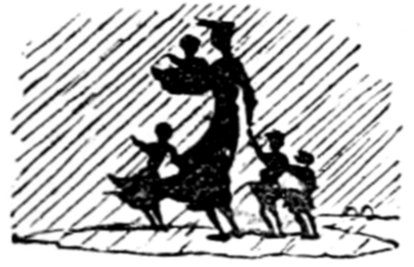
An Appeal Case.
Cold, without.
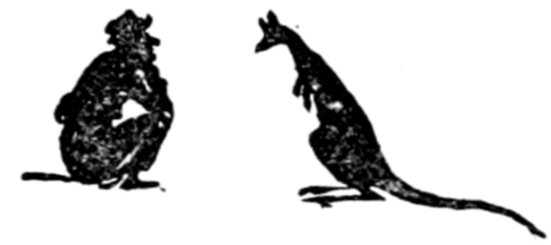
"Who are you?"
Rumi-nation.
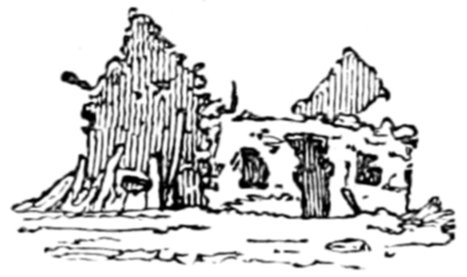
"The Master's Report."
A Tail of a Chancery Suit.
I have called this chapter "cutting weather," partly in compliment to the month of February, and partly in respect of my own misfortunes which you are going to read about, for I have often thought that January (which is mostly twelfth cake and holiday time) is like the first four or five years of a little boy's life; then comes dismal February, and the working days with it, when chaps begin to look out for themselves, after the Christmas and the New Year's hey-day and merry-making are over, which our infancy may well be said to be. Well can I recollect that bitter first of February, when I first launched out into the world and appeared at Dr. Swishtail's academy.
I began at school that life of prudence and economy, which I have carried on ever since. My mother gave me eighteen-pence on setting out (poor soul! I thought her heart would break as she kissed me, and bade God bless me); and besides, I had a small capital of my own, which I had amassed for a year previous. I'll tell you what I used to do. Wherever I saw six half-pence I took one. If it was asked for, I said I had taken it, and gave it back;—if it was not missed, I said nothing about it, as why should I?—those who don't miss their money don't lose their money. So I had a little private fortune of three shillings, besides mother's eighteen-pence. At school they called me the copper-merchant, I had such lots of it.
Now, even at a preparatory school, a well-regulated boy may better himself: and I can tell you I did. I never was in any quarrels: I never was very high in the class or very low; but there was no chap so much respected: and why? I'd always money. The other boys spent all their's in the first day or two, and they gave me plenty of cakes and barley-sugar then, I can tell you. I'd no need to spend my own money, for they would insist upon treating me. Well, in a week, when their's was gone, and they had but their threepence a week to look to for the rest of the half-year, what did I do? Why, I am proud to say that three-halfpence out of the threepence a week of almost all the young gentlemen at Dr. Swishtail's, came into my pocket. Suppose, for instance, Tom Hicks wanted a slice of gingerbread, who had the money? Little Bob Stubbs to be sure. "Hicks," I used to say, "I'll buy you three-halfp'orth of gingerbread, if you'll give me threepence next Saturday:" and he agreed, and next Saturday came, and he very often could not pay me more than three-halfpence, then there was the threepence I was to have the next Saturday. I'll tell you what I did for a whole half-year:—I lent a chap by the name of Dick Bunting three-halfpence the first Saturday, for threepence the next; he could not pay me more than half when Saturday came, and I'm blest if I did not make him pay me three-halfpence for three and twenty weeks running, making two shillings and tenpence-halfpenny. But he was a sad dishonourable fellow, Dick Bunting; for, after I'd been so kind to him, and let him off for three-and-twenty weeks the money he owed me, holidays came, and threepence he owed me still. Well, according to the common principles of practice, after six weeks' holidays, he ought to have paid me exactly sixteen shillings, which was my due. For the
| First week the 3d. would be | 6d. |
| Second week | 1s. |
| Third week | 2s. |
| Fourth week | 4s. |
| Fifth week | 8s. |
| Sixth week | 16s. |
Nothing could be more just; and yet, will it be believed? when Bunting came back, he offered me three-halfpence! the mean, dishonest scoundrel!
However, I was even with him, I can tell you.—He spent all his money in a fortnight, and then I screwed him down! I made him, besides giving me a penny for a penny, pay me a quarter of his bread and butter at breakfast, and a quarter of his cheese at supper; and before the half-year was out, I got from him a silver fruit knife, a box of compasses, and a very pretty silver-laced waistcoat, in which I went home as proud as a king: and, what's more, I had no less than three golden guineas in the pocket of it, besides fifteen shillings, the knife, and a brass bottle-screw, which I got from another chap. It wasn't bad interest for twelve shillings, which was all the money I'd had in the year, was it? Heigh ho! I've often wished that I could get such a chance again in this wicked world; but men are more avaricious now than they used to be in those early days.
167Well, I went home in my new waistcoat as fine as a peacock; and when I gave the bottle-screw to my father, begging him to take it as a token of my affection for him, my dear mother burst into such a fit of tears as I never saw, and kissed and hugged me fit to smother me. "Bless him, bless him," says she, "to think of his old father! And where did you purchase it, Bob?"—"Why, mother," says I, "I purchased it out of my savings" (which was as true as the gospel).—When I said this, mother looked round to father, smiling, although she had tears in her eyes, and she took his hand, and with her other hand drew me to her. "Is he not a noble boy?" says she to my father: "and only nine years old!" "Faith!" says my father, "he is a good lad, Susan. Thank thee, my boy: and here is a crown piece in return for thy bottle-screw;—it shall open us a bottle of the very best, too," says my father; and he kept his word. I always was fond of good wine (though never, from a motive of proper self-denial, having any in my cellar); and, by Jupiter! on this night I had my little skin full,—for there was no stinting—so pleased were my dear parents with the bottle-screw.—The best of it was, it only cost me threepence originally, which a chap could not pay me.
Seeing this game was such a good one, I became very generous towards my parents: and a capital way it is to encourage liberality in children. I gave mamma a very neat brass thimble, and she gave me a half-guinea piece. Then I gave her a very pretty needle-book, which I made myself with an ace of spades from a new pack of cards we had, and I got Sally, our maid, to cover it with a bit of pink satin her mistress had given her; and I made the leaves of the book, which I vandyked very nicely, out of a piece of flannel I had had round my neck for a sore throat. It smelt a little of hartshorn, but it was a beautiful needle-book, and mamma was so delighted with it, that she went into town, and bought me a gold-laced hat. Then I bought papa a pretty china tobacco-stopper; but I am sorry to say of my dear father that he was not so generous as my mamma or myself, for he only burst out laughing, and did not give me so much as a half-crown piece, which was the least I expected from him "I shan't give you anything, Bob, this time," says he; "and I wish, my boy, you would not make any more such presents,—for, really, they are too expensive." Expensive, indeed! I hate meanness,—even in a father.
I must tell you about the silver-edged waistcoat which Bunting gave me. Mamma asked me about it, and I told her the truth,—that it was a present from one of the boys for my kindness to him. Well, what does she do but writes back to Dr. Swishtail, when I went to school, thanking him for his attention to her dear son, and sending a shilling to the good and grateful little boy who had given me the waistcoat!
"What waistcoat is it?" said the Doctor to me, "and who gave it you?"
"Bunting gave it me, sir," says I.
"Call Bunting:" and up the little ungrateful chap came. Would you believe it? he burst into tears,—told that the waistcoat had been given him by his mother, and that he had been forced to give it for a debt to Copper Merchant, as the nasty little blackguard called me. He then said, how, for three-halfpence, he had been compelled to pay me three shillings (the sneak! as if he had been obliged to borrow the three-halfpence!)—how all the other boys had been swindled (swindled!) by me in like manner,—and how, with only twelve shillings, I had managed to scrape together four guineas.
My courage almost fails as I describe the shameful scene that followed. The boys were called in, my own little account-book was dragged out of my cupboard, to prove how much I had received from each, and every farthing of my money was paid back to them. The tyrant took the thirty shillings that my dear parents had given me, and said that he should put them into the poor-box at church; and, after having made a long discourse to the boys about meanness and usury, he said, "Take off your coat, Mr. Stubbs, and restore Bunting his waistcoat." I did, and stood without coat and waistcoat in the midst of the nasty, grinning boys. I was going to put on my coat,—
"Stop," says he, "TAKE DOWN HIS BREECHES!"
Ruthless, brutal villain! Sam Hopkins, the biggest boy, took them down—horsed me—and I was flogged, sir; yes, flogged! Oh, revenge! I, Robert Stubbs, who had done nothing but what was right, was brutally flogged at ten years of age.—Though February was the shortest month, I remembered it long.
| 168 | |
| MARCH. | [1839. |
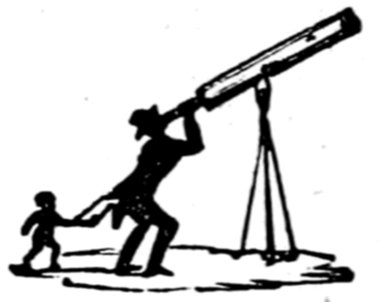
25. Equi-noctial Gales now about.
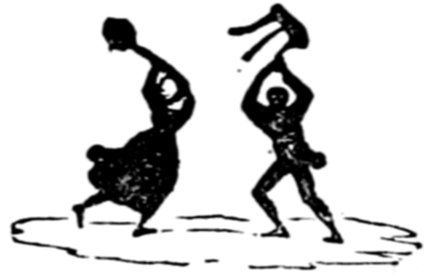
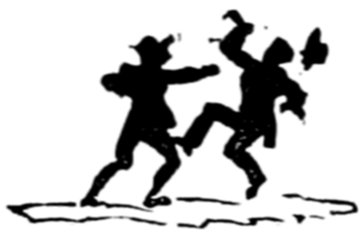
When my mamma heard of the treatment of her darling she was for bringing an action against the schoolmaster, or else for tearing his eyes out (when, dear soul! she would not have torn the eyes out of a flea, had it been her own injury), and, at the very least, for having me removed from the school where I had been so shamefully treated. But papa was stern for once, and vowed that I had been served quite right, declared that I should not be removed from the school; and sent old Swishtail a brace of pheasants for what he called his kindness to me. Of these the old gentleman invited me to partake, and made a very queer speech at dinner, as he was cutting them up, about the excellence of my parents, and his own determination to be kinder still to me, if ever I ventured on such practices again; so I was obliged to give up my old trade of lending, for the doctor declared that any boy who borrowed should be flogged, and any one who paid should be flogged twice as much. There was no standing against such a prohibition as this, and my little commerce was ruined.
I was not very high in the school: not having been able to get further than that dreadful Propria quæ maribus in the Latin grammar, of which, though I have it by heart even now, I never could understand a syllable—but, on account of my size, my age, and the prayers of my mother, was allowed to have the privilege of the bigger boys, and on holidays to walk about in the town; great dandies we were, too, when we thus went out. I recollect my costume very well: a thunder-and-lightning coat, a white waistcoat, embroidered neatly at the pockets, a lace frill, a pair of knee-breeches, and elegant white cotton or silk stockings. This did very well, but still I was dissatisfied, I wanted a pair of boots. Three boys in the school had boots—I was mad to have them too.
There was a German bootmaker who had just set up in our town in those days, who afterwards made his fortune in London; I determined to have the boots from him, and did not despair, before the end of a year or two, either to leave the school, when I should not mind his dunning me, or to screw the money from mamma, and so pay him.
So I called upon this man, Stiffelkind was his name, and he took my measure for a pair.
"You are a vary young gentleman to wear dop boots," said the shoemaker.
"I suppose, fellow," says I, "that is my business and not yours; either make the boots or not—but when you speak to a man of my rank, speak respectfully;" and I poured out a number of oaths, in order to impress him with a notion of my respectability.
They had the desired effect.—"Stay, sir," says he, "I have a nice littel pair of dop boots dat I tink will jost do for you," and he produced, sure enough, the most elegant things I ever saw. "Day were made," said he, "for de Honourable Mr. Stiffney, of de Gards, but were too small."
"Ah, indeed!" said I, "Stiffney is a relation of mine: and what, you scoundrel, will you have the impudence to ask for these things?" He replied, "Three pounds."
"Well," said I, "they are confoundedly dear, but as you will have a long time to wait for your money, why I shall have my revenge, you see." The man looked alarmed, and began a speech: "Sare, I cannot let dem go vidout;"—but a bright thought struck me, and I interrupted—"Sir! don't sir me—take off the boots, fellow, and, hark ye! when you speak to a nobleman, don't say—Sir."
"A hundert tousand pardons, my lort," says he: "if I had known you were a lort, I vood never have called you, Sir. Vat name shall I put down in my books?"
"Name?—oh! why—Lord Cornwallis, to be sure," said I, as I walked off in the boots.
"And vat shall I do vid my lort's shoes?" "Keep them until I send for them," said I; and, giving him a patronizing bow, I walked out of the shop, as the German tied up my shoes in a paper....
This story I would not have told, but that my whole life turned upon these 170accursed boots. I walked back to school as proud as a peacock, and easily succeeded in satisfying the boys as to the manner in which I came by my new ornaments.
Well, one fatal Monday morning, the blackest of all black-Mondays that ever I knew—as we were all of us playing between school-hours—I saw a posse of boys round a stranger, who seemed to be looking out for one of us—a sudden trembling seized me—I knew it was Stiffelkind: what had brought him here? He talked loud, and seemed angry—so I rushed into the school-room, and, burying my head between my hands, began reading for the dear life.
"I vant Lort Cornvallis," said the horrid bootmaker. "His lortship belongs, I know, to dis honourable school, for I saw him vid de boys at church, yesterday."
"Lord who?"
"Vy, Lort Cornvallis, to be sure—a very fat yong nobleman, vid red hair, he squints a little, and svears dreadfully."
"There's no Lord Cornvallis here," said one—and there was a pause.
"Stop! I have it!" says that odious Bunting. "It must be Stubbs;" and "Stubbs! Stubbs!" every one cried out, while I was so busy at my book as not to hear a word.
At last, two of the biggest chaps rushed into the school-room, and seizing each an arm, run me into the play-ground—bolt up against the shoemaker.
"Dis is my man—I beg your lortship's pardon," says he, "I have brought your lortship's shoes, vich you left—see, dey have been in dis parcel ever since you vent avay in my boots."
"Shoes, fellow!" says I, "I never saw your face before;" for I knew there was nothing for it but brazening it out. "Upon the honour of a gentleman," said I, turning round to the boys—they hesitated; and if the trick had turned in my favour, fifty of them would have seized hold of Stiffelkind, and drubbed him soundly.
"Stop!" says Bunting (hang him!), "let's see the shoes—if they fit him, why, then, the cobbler's right." They did fit me, and not only that, but the name of STUBBS was written in them at full length.
"Vat?" said Stiffelkind, "is he not a lort? so help me himmel, I never did vonce tink of looking at de shoes, which have been lying, ever since, in dis piece of brown paper;" and then gathering anger as he went on, thundered out so much of his abuse of me, in his German-English, that the boys roared with laughter. Swishtail came in in the midst of the disturbance, and asked what the noise meant.
"It's only Lord Cornwallis, sir," said the boys, "battling with his shoemaker, about the price of a pair of top-boots."
"O, sir" said I, "it was only in fun that I called myself Lord Cornwallis."
"In fun! Where are the boots? And you, sir, give me your bill." My beautiful boots were brought; and Stiffelkind produced his bill. "Lord Cornwallis to Samuel Stiffelkind, for a pair of boots—four guineas."
"You have been fool enough, sir," says the doctor, looking very stern, "to let this boy impose upon you as a lord; and knave enough to charge him double the value of the article you sold him. Take back the boots, sir, I wont pay a penny of your bill; nor can you get a penny. As for you, sir, you miserable swindler and cheat, I shall not flog you as I did before, but I shall send you home: you are not fit to be the companion of honest boys."
"Suppose we duck him before he goes," piped out a very small voice. The doctor grinned significantly, and left the school-room; and the boys knew by this they might have their will. They seized me, and carried me to the play-ground pump—they pumped upon me until I was half dead, and the monster, Stiffelkind, stood looking on for the half-hour the operation lasted.
I suppose the doctor, at last, thought I had had pumping enough, for he rung the school-bell, and the boys were obliged to leave me; as I got out of the trough, Stiffelkind was alone with me. "Vell, my lort," says he, "you have paid something for dese boots, but not all; by Jubider! you shall never hear de end of dem." And I didn't.
| 171 | |
| 1839.] | APRIL. |
|---|---|
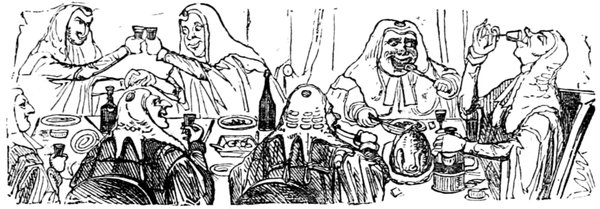
15. Judges breakfast with the Lord Chancellor.
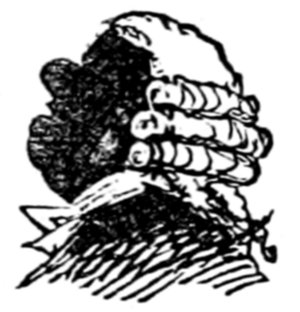
THIS FRONT
TO BE
SOLD
6. Old Lady Day.
After this, as you may fancy, I left this disgusting establishment, and lived for some time along with pa and mamma at home. My education was finished, at least mamma and I agreed that it was: and from boyhood until hobbadyhoyhood (which I take to be about the sixteenth year of the life of a young man, and may be likened to the month of April when spring begins to bloom), from fourteen until seventeen, I say, I remained at home, doing nothing, for which I ever since have had a great taste, the idol of my mamma, who took part in all my quarrels with father, and used regularly to rob the weekly expenses in order to find me in pocket-money. Poor soul! many and many is the guinea I have had from her in that way; and so she enabled me to cut a very pretty figure.
Papa was for having me at this time articled to a merchant, or put to some profession; but mamma and I agreed that I was born to be a gentleman, and not a tradesman, and the army was the only place for me. Everybody was a soldier in those times, for the French war had just begun, and the whole country was swarming with militia regiments. "We'll get him a commission in a marching regiment," said my father; "as we have no money to purchase him up, he'll fight his way, I make no doubt;" and papa looked at me, with a kind of air of contempt, as much as to say he doubted whether I should be very eager for such a dangerous way of bettering myself.
I wish you could have heard mamma's screech, when he talked so coolly of my going out to fight. "What, send him abroad! across the horrid, horrid sea—to be wrecked and, perhaps, drowned, and only to land for the purpose of fighting the wicked Frenchmen,—to be wounded, and perhaps kick—kick—killed! Oh, Thomas, Thomas! would you murder me and your boy?" There was a regular scene;—however it ended, as it always did, in mother's getting the better, and it was settled that I should go into the militia. And why not? the uniform is just as handsome, and the danger not half so great. I don't think in the course of my whole military experience I ever fought anything, except an old woman, who had the impudence to hallo out, "Heads up, lobster!"—Well, I joined the North Bungays and was fairly launched into the world.
I was not a handsome man, I know; but there was something about me—that's very evident—for the girls always laughed when they talked to me, and the men, though they affected to call me a poor little creature, squint-eyes, knock-knees, red-head, and so on, were evidently annoyed by my success, for they hated me so confoundedly. Even at the present time they go on, though I have given up gallivanting, as I call it. But in the April of my existence—that is, in Anno Domini 1791, or so—it was a different case; and having nothing else to do, and being bent upon bettering my condition, I did some very pretty things in that way. But I was not hot-headed and imprudent, like most young fellows.—Don't fancy I looked for beauty! Pish!—I wasn't such a fool. Nor for temper; I don't care about a bad temper: I could break any woman's heart in two years. What I wanted was to get on in the world. Of course, I didn't prefer an ugly woman, or a shrew; and, when the choice offered, would certainly put up with a handsome, good-humoured girl, with plenty of money, as any honest man would.
Now there were two tolerably rich girls in our parts: Miss Magdalen Crutty, with twelve thousand pounds (and, to do her justice, as plain a girl as ever I saw), and Miss Mary Waters, a fine, tall, plump, smiling, peach-cheeked, golden-haired, white-skinned lass, with only ten. Mary Waters lived with her uncle, the Doctor, who had helped me into the world, and who was trusted with this little orphan charge very soon after. My mother, as you have heard, was so fond of Bates, and Bates so fond of little Mary, that both, at first, were almost always in our house: and I used to call her my little wife, as soon as I could speak, and before she could walk, almost. It was beautiful to see us, the neighbours said.
Well, when her brother, the lieutenant of an India ship, came to be captain, and actually gave Mary five thousand pounds, when she was about ten years old, and promised her five thousand more, there was a great talking, and bobbing, and smiling, between the Doctor and my parents, and Mary and I were left together more than ever, and she was told to call me her little husband: and she did, and it was considered a settled thing from that day. She was really amazingly fond of me.
173Can any one call me mercenary after that? Though Miss Crutty had twelve thousand, and Mary only ten (five in hand, and five in the bush), I stuck faithfully to Mary. As a matter of course, Miss Crutty hated Miss Waters. The fact was, Mary had all the country dangling after her, and not a soul would come to Magdalen, for all her £12,000. I used to be attentive to her, though (as it's always useful to be); and Mary would sometimes laugh and sometimes cry at my flirting with Magdalen. This I thought proper very quickly to check. "Mary," said I, "you know that my love for you is disinterested,—for I am faithful to you, though Miss Crutty is richer than you. Don't fly into a rage, then, because I pay her attentions, when you know that my heart and my promise are engaged to you."
The fact is, to tell a little bit of a secret, there is nothing like the having two strings to your bow. "Who knows?" thought I, "Mary may die; and then where are my £10,000?" So I used to be very kind indeed to Miss Crutty; and well it was that I was so: for when I was twenty, and Mary eighteen, I'm blest if news did not arrive that Captain Waters, who was coming home to England with all his money in rupees, had been taken—ship, rupees, self and all—by a French privateer; and Mary, instead of £10,000, had only £5000, making a difference of no less than £350 per annum betwixt her and Miss Crutty.
I had just joined my regiment (the famous North Bungay Fencibles, Colonel Craw commanding) when this news reached me; and you may fancy how a young man, in an expensive regiment and mess, having uniforms and whatnot to pay for, and a figure to cut in the world, felt at hearing such news! "My dearest Robert," wrote Miss Waters, "will deplore my dear brother's loss: but not, I am sure, the money which that kind and generous soul had promised me. I have still five thousand pounds, and with this and your own little fortune (I had £1000 in the five per cents.!) we shall be as happy and contented as possible."
Happy and contented, indeed! Didn't I know how my father got on with his £300 a-year, and how it was all he could do out of it to add a hundred a-year to my narrow income, and live himself! My mind was made up—I instantly mounted the coach, and flew to our village,—to Mr. Crutty's, of course. It was next door to Doctor Bates's; but I had no business there.
I found Magdalen in the garden. "Heavens, Mr. Stubbs!" said she, as in my new uniform I appeared before her, "I really did never—such a handsome officer—expect to see you;" and she made as if she would blush, and began to tremble violently. I led her to a garden seat. I seized her hand—it was not withdrawn. I pressed it;—I thought the pressure was returned. I flung myself on my knees, and then I poured into her ear a little speech which I had made on the top of the coach. "Divine Miss Crutty," said I; "idol of my soul! It was but to catch one glimpse of you that I passed through this garden. I never intended to breathe the secret passion (oh, no! of course not) which was wearing my life away. You know my unfortunate pre-engagement,—it is broken, and for ever! I am free!—free, but to be your slave,—your humblest, fondest, truest slave:" and so on.....
"O, Mr. Stubbs," said she, as I imprinted a kiss upon her cheek, "I can't refuse you; but I fear you are a sad, naughty man...."
Absorbed in the delicious reverie which was caused by the dear creature's confusion, we were both silent for a while, and should have remained so for hours, perhaps, so lost were we in happiness, had I not been suddenly roused by a voice exclaiming from behind us,
"Don't cry, Mary; he is a swindling, sneaking scoundrel, and you are well rid of him!"
I turned round! O, Heaven! there stood Mary, weeping on Doctor Bates's arm, while that miserable apothecary was looking at me with the utmost scorn. The gardener who had let me in had told them of my arrival, and now stood grinning behind them. "Imperence!" was my Magdalen's only exclamation, as she flounced by with the utmost self-possession, while I, glancing daggers at the spies, followed her. We retired to the parlour, where she repeated to me the strongest assurances of her love.
I thought I was a made man. Alas! I was only an APRIL FOOL!
| 174 | |
| MAY | [1839 |
|---|---|
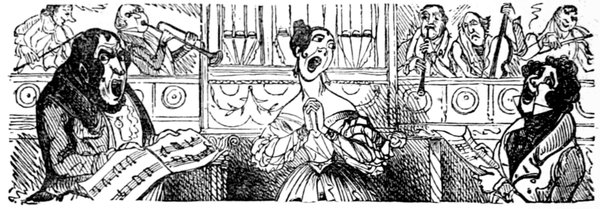
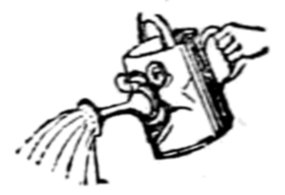

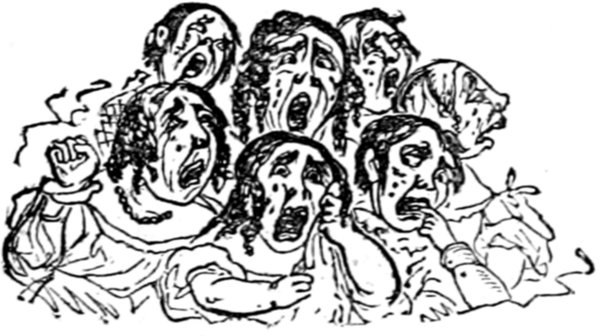
"A small Music Party."
As the month of May is considered, by poets and other philosophers, to be devoted by Nature to the great purpose of love-making, I may as well take advantage of that season and acquaint you with the result of my amours.
Young, gay, fascinating, and an ensign, I had completely won the heart of my Magdalen; and as for Miss Waters and her nasty uncle the Doctor, there was a complete split between us, as you may fancy; Miss, pretending, forsooth, that she was glad I had broken off the match, though she would have given her eyes, the little minx, to have had it on again. But this was out of the question. My father, who had all sorts of queer notions, said I had acted like a rascal in the business; my mother took my part, in course, and declared I acted rightly, as I always did: and I got leave of absence from the regiment in order to press my beloved Magdalen to marry me out of hand—knowing, from reading and experience, the extraordinary mutability of human affairs.
Besides, as the dear girl was seventeen years older than myself, and as bad in health as she was in temper, how was I to know that the grim king of terrors might not carry her off before she became mine? With the tenderest warmth, then, and most delicate ardour, I continued to press my suit. The happy day was fixed—the ever-memorable 10th of May, 1792; the wedding clothes were ordered; and, to make things secure, I penned a little paragraph for the county paper to this effect:—"Marriage in High Life. We understand that Ensign Stubbs, of the North Bungay Fencibles, and son of Thomas Stubbs, of Sloffemsquiggle, Esquire, is about to lead to the hymeneal altar the lovely and accomplished daughter of Solomon Crutty, Esquire, of the same place. A fortune of twenty thousand pounds is, we hear, the lady's portion. 'None but the brave deserve the fair....'"
"Have you informed your relatives, my beloved," said I to Magdalen one day after sending the above notice; "will any of them attend at your marriage?"
"Uncle Sam will, I daresay," said Miss Crutty, "dear mamma's brother."
"And who was your dear mamma?" said I, for Miss Crutty's respected parent had been long since dead, and I never heard her name mentioned in the family.
Magdalen blushed, and cast down her eyes to the ground. "Mamma was a foreigner," at last she said.
"And of what country?"
"A German; papa married her when she was very young:—she was not of a very good family," said Miss Crutty, hesitating.
"And what care I for family, my love," said I, tenderly kissing the knuckles of the hand which I held; "she must have been an angel who gave birth to you."
"She was a shoemaker's daughter."
A German shoemaker! hang 'em, thought I, I have had enough of them, and so I broke up this conversation, which did not somehow please me....
Well, the day was drawing near: the clothes were ordered; the banns were read. My dear mamma had built a cake about the size of a washing-tub: and I was only waiting for a week to pass to put me in possession of twelve thousand pounds in the five per cents., as they were in those days, Heaven bless em! Little did I know the storm that was brewing, and the disappointment which was to fall upon a young man who really did his best to get a fortune.
"O Robert!" said my Magdalen to me, two days before the match was to come off, "I have such a kind letter from uncle Sam, in London. I wrote to him as you wished. He says that he is coming down to-morrow; that he has heard of you often, and knows your character very well, and that he has got a very handsome present for us! What can it be, I wonder?"
"Is he rich, my soul's adored?" says I.
"He is a bachelor with a fine trade, and nobody to leave his money to."
"His present can't be less than a thousand pounds," says I.
"Or, perhaps, a silver tea-set, and some corner dishes," says she.
But we could not agree to this: it was too little—too mean for a man of her uncle's wealth; and we both determined it must be the thousand pounds.
176"Dear, good uncle! he's to be here by the coach," says Magdalen. "Let us ask a little party to meet him." And so we did, and so they came. My father and mother, old Crutty in his best wig, and the parson who was to marry us next day. The coach was to come in at six. And there was the tea-table, and there was the punch-bowl, and everybody ready and smiling to receive our dear uncle from London.
Six o'clock came, and the coach, and the man from the Green Dragon with a portmanteau, and a fat old gentleman walking behind, of whom I just caught a glimpse—a venerable old gentleman—I thought I'd seen him before....
Then there was a ring at the bell; then a scuffling and bumping at the passage: then old Crutty rushed out, and a great laughing and talking, and "How are you?" and so on, was heard at the door; and then the parlour-door was flung open, and Crutty cried out with a loud voice—
"Good people all! my brother-in-law, Mr. STIFFELKIND!"
Mr. Stiffelkind!—I trembled as I heard the name!
Miss Crutty kissed him; mamma made him a curtsey, and papa made him a bow; and Dr. Snorter, the parson, seized his hand and shook it most warmly—then came my turn!
"Vat," says he, "it is my dear goot yong friend from Doctor Schvis'hentail's! is dis the yong gentleman's honourable moder" (mamma smiled and made a curtsey), "and dis his fader! Sare and madam, you should be broud of soch a sonn. And you, my niece, if you have him for a husband you vil be locky, dat is all. Vat dink you, broder Crotty, and Madame Stobbs, I ave made your sonn's boots, ha! ha!"
My mamma laughed, and said, "I did not know it, but I am sure, sir, he has as pretty a leg for a boot as any in the whole county."
Old Stiffelkind roared louder. "A very nice leg, ma'am, and a very sheap boot too! Vat, you did not know I make his boots! Perhaps you did not know someting else too—p'rhaps you did not know" (and here the monster clapped his hand on the table, and made the punch-ladle tremble in the bowl), "p'rhaps you did not know as dat yong man, dat Stobbs, dat sneaking, baltry, squinting fellow, is as vicked as he is ogly. He bot a pair of boots from me and never paid for dem. Dat is noting, nobody never pays; but he bought a pair of boots, and called himself Lord Cornvallis. And I was fool enough to believe him vonce. But look you, niece Magdalen, I ave got five tousand pounds, if you marry him I vil not give you a benny; but look you, what I will gif you, I bromised you a bresent, and I vil give you DESE!"
And the old monster produced THOSE VERY BOOTS which Swishtail had made him take back....
I didn't marry Miss Crutty: I am not sorry for it though. She was a nasty, ugly, ill-tempered wretch, and I've always said so ever since.
And all this arose from those infernal boots, and that unlucky paragraph in the county paper—I'll tell you how.
In the first place, it was taken up as a quiz by one of the wicked, profligate, unprincipled organs of the London press, who chose to be very facetious about the "Marriage in High Life," and made all sorts of jokes about me and my dear Miss Crutty.
Secondly, it was read in this London paper by my mortal enemy, Bunting, who had been introduced to old Stiffelkind's acquaintance by my adventure with him, and had his shoes made regularly by that foreign upstart.
Thirdly, he happened to want a pair of shoes mended at this particular period, and as he was measured by the disgusting old High-Dutch Cobbler, he told him his old friend Stubbs was going to be married.
"And to whom?" said old Stiffelkind, "to a voman wit gelt, I vil take my oath."
"Yes," says Bunting, "a country girl—a Miss Magdalen Carotty or Crotty, a place called Sloffemsquiggle."
"Schloffemschwiegel!" bursts out the dreadful bootmaker, "Mein Gott, mein Gott! das geht nicht—I tell you, sare, it is no go. Miss Crotty is my niece. I vill go down myself. I vill never let her marry dat goot-for-noting schwindler and teif." Such was the language that the scoundrel ventured to use regarding me!
| 177 | |
| 1839] | JUNE |
|---|---|
20. Mr. Serjt. Talfourd withdrew his Copyright Bill, 1838.
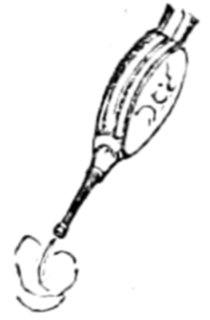
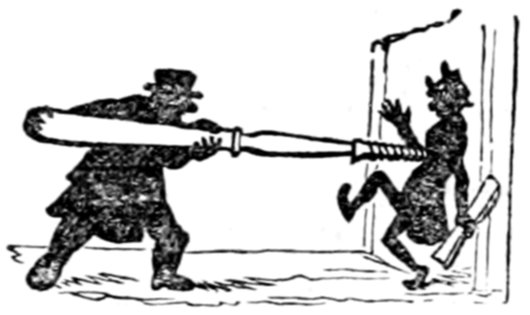
Was there ever such confounded ill-luck? My whole life has been a tissue of ill luck: although I have laboured, perhaps, harder than any man to make a fortune, something always tumbled it down. In love and in war I was not like others. In my marriages, I had an eye to the main chance; and you see how some unlucky blow would come and throw them over. In the army I was just as prudent, and just as unfortunate. What with judicious betting, and horse-swapping, good luck at billiards, and economy, I do believe I put by my pay every year,—and that is what few can say who have but an allowance of a hundred a-year.
I'll tell you how it was. I used to be very kind to the young men; I chose their horses for them, and their wine; and showed them how to play billiards, or écarté, of long mornings, when there was nothing better to do. I didn't cheat: I'd rather die than cheat; but if fellows will play, I wasn't the man to say no—why should I? There was one young chap in our regiment of whom I really think I cleared 300l. a-year.
His name was Dobble. He was a tailor's son, and wanted to be a gentleman. A poor, weak young creature; easy to be made tipsy: easy to be cheated; and easy to be frightened. It was a blessing for him that I found him; for if anybody else had, they would have plucked him of every shilling.
Ensign Dobble and I were sworn friends. I rode his horses for him, and chose his champagne: and did everything, in fact, that a superior mind does for an inferior—when the inferior has got the money. We were inseparables—hunting everywhere in couples. We even managed to fall in love with two sisters, as young soldiers will do, you know; for the dogs fall in love with every change of quarters.
Well: once, in the year 1793 (it was just when the French had chopped poor Louis's head off), Dobble and I, gay young chaps as ever wore sword by side, had cast our eyes upon two young ladies, by the name of Brisket, daughters of a butcher in the town where we were quartered. The dear girls fell in love with us, of course. And many a pleasant walk in the country; many a treat to a tea-garden; many a smart riband and brooch, used Dobble and I (for his father allowed him 600l., and our purses were in common) to present to these young ladies. One day, fancy our pleasure at receiving a note couched thus:—
"Deer Capting Stubbs and Dobble—Miss Briskets presents their compliments, and as it is probble that our papa will be till 12 at the corprayshun dinner, we request the pleasure of their company to tea."
Didn't we go! Punctually at six we were in the little back parlour; we quaffed more Bohea, and made more love, than half-a-dozen ordinary men could. At nine, a little punch-bowl succeeded to the little tea-pot; and, bless the girls! a nice fresh steak was frizzling on the gridiron for our supper. Butchers were butchers then, and their parlour was their kitchen, too; at least old Brisket's was.—One door leading into the shop, and one into the yard, on the other side of which was the slaughter-house.
Fancy, then, our horror when, just at this critical time, we heard the shop door open, a heavy staggering step on the flags, and a loud husky voice from the shop, shouting, "Hallo, Susan! hallo, Betsy! show a light!" Dobble turned as white as a sheet; the two girls each as red as a lobster; I alone preserved my presence of mind. "The back door," says I.—"The dog's in the court," says they. "He's not so bad as the man," says I. "Stop," cries Susan, flinging open the door, and rushing to the fire: "take this, and perhaps it will quiet him."
What do you think "this" was? I'm blest if it was not the steak!
She pushed us out, patted and hushed the dog, and was in again in a minute. The moon was shining on the court, and on the slaughter-house, where there hung a couple of white, ghastly-looking carcasses of a couple of sheep; a great gutter ran down the court—a gutter of blood!—the dog was devouring his beefsteak (our beefsteak) in silence,—and we could see through the little window the girls bustling about to pack up the supper-things, and presently the shop door opened, old Brisket entered, staggering, angry, and drunk. What's more, we could see, perched on a high stool, and nodding politely, as if to salute old Brisket, the feather of Dobble's cocked hat! When Dobble saw it he turned white, and deadly sick; and the poor fellow, in an agony of fright, sunk shivering down upon one of the butcher's cutting blocks which was in the yard.
179We saw old Brisket look steadily (as steadily as he could) at the confounded impudent, pert waggling feather; and then an idea began to dawn upon his mind, that there was a head to the hat; and then he slowly rose up—he was a man of six feet, and fifteen stone—he rose up, put on his apron and sleeves, and took down his cleaver.
"Betsy," says he, "open the yard door." But the poor girls screamed, and flung on their knees, and begged, and wept, and did their very best to prevent him. "OPEN THE YARD DOOR," says he, with a thundering loud voice; and the great bull-dog, hearing it, started up, and uttered a yell which sent me flying to the other end of the court.—Dobble couldn't move; he was sitting on the block, blubbering like a baby.
The door opened, and out Mr. Brisket came.
"To him, Jowler," says he, "keep him, Jowler,"—and the horrid dog flew at me, and I flew back into the corner, and drew my sword, determining to sell my life dearly.
"That's it," says Brisket, "keep him there,—good dog,—good dog! And now, sir," says he, turning to Dobble, "is this your hat?"
"Yes," says Dobble, fit to choke with fright.
"Well, then," says Brisket, "it's my—(hick)—my painful duty to—(hick)—to tell you, that as I've got your hat, I must have your head;—it's painful, but it must be done. You'd better—(hick)—settle yourself com—comfumarably against that—(hick)—that block, and I'll chop it off before you can say Jack—(hick)—no, I mean Jack Robinson."
Dobble went down on his knees, and shrieked out, "I'm an only son, Mr. Brisket! I'll marry her, sir; I will, upon my honour, sir.—Consider my mother, sir; consider my mother."
"That's it, sir," says Brisket—"that's a good boy—(hick)—a good boy; just put your head down quietly—and I'll have it off—yes, off—as if you were Louis the Six—the Sixtix—the Sixtickleteenth.—I'll chop the other chap afterwards."
When I heard this, I made a sudden bound back, and gave such a cry as any man might who was in such a way. The ferocious Jowler, thinking I was going to escape, flew at my throat; screaming furious, I flung out my arms in a kind of desperation,—and, to my wonder, down fell the dog, dead, and run through the body!
At this moment a posse of people rushed in upon old Brisket—one of his daughters had had the sense to summon them—and Dobble's head was saved. And when they saw the dog lying dead at my feet, my ghastly look, my bloody sword, they gave me no small credit for my bravery. "A terrible fellow, that Stubbs," said they; and so the mess said, the next day.
I didn't tell them that the dog had committed suicide—why should I? And I didn't say a word about Dobble's cowardice. I said he was a brave fellow, and fought like a tiger; and this prevented him from telling tales. I had the dog-skin made into a pair of pistol-holsters, and looked so fierce, and got such a name for courage in our regiment, that when we had to meet the regulars, Bob Stubbs was always the man put forward to support the honour of the corps. The women, you know, adore courage; and such was my reputation at this time, that I might have had my pick out of half-a-dozen, with three, four, or five thousand pounds a-piece, who were dying for love of me and my red coat. But I wasn't such a fool. I had been twice on the point of marriage, and twice disappointed; and I vowed by all the Saints to have a wife, and a rich one. Depend upon this, as an infallible maxim to guide you through life—It's as easy to get a rich wife as a poor one;—the same bait that will hook a fly will hook a salmon.
| 180 | |
| JULY. | [1839 |
|---|---|
1. New registration of births commenced, 1837.
| THE FORCE OF HABIT. | {"Now, Sir, the father's name—this column—so— |
{There, very well—what is it?"— |
At the annual July meeting of this renowned establishment, petitions were presented from the animals of the menagerie, respecting their grievances: the following were the greatest cases of hardship:—The Carnivora, in a body, complained of a diminution and recent alteration in their diet; the Society having, from a regard to economy and its diminished finances, changed their food from good ox beef to asses' flesh. They feared that, should they become addicted to this kind of viand, they might, in a moment of desperation, be tempted, from the similarity, to make free with the bodies of any of the members that came in their way, a piece of ingratitude of which the great brown bruin, in particular, said he could not bear the thought. The Royal Tigers complained that some of their family had been carried off by a disorder resembling the "King's evil;" this they attributed to the Society's being under Royal patronage, which they had, in the course of their travels, observed to be fatal in many other establishments. The Dogs begged that, if they were to have no more meat, they might, at least, be indulged with a copy of "South on the Bones." The beasts and birds, generally, declared themselves ashamed of the shabby appearance of their friends in the Museum, asserting that, living and dead, they were alike badly stuffed. The Parrots spoke of the smallness of their cages, which, they entreated, might be enlarged in dimensions by at least a perch or two. The whole tribe of Simiæ, like the Baronets, prayed for a badge of distinction. They stated that their appearance was so closely imitated by numerous individuals who crowded around their cages on fine days in the fashionable season, that their visitors did not know one from the other, and frequently asked "Which are the monkeys?"
All the animals prayed the benefit of clergy for the remission of their Sunday fasts, and implored the Bishop of London, though he could not get them a holiday on that day, to at least interfere to procure them a dinner.
15. St Swithin begins to reign. Umbrellas look up.
Dobble's reputation for courage was not increased by the butcher's-dog adventure; but mine stood very high: little Stubbs was voted the boldest chap of all the bold North-Bungays. And though I must confess, what was proved by subsequent circumstances, that Nature has not endowed me with a large, or even, I may say, an average share of bravery, yet a man is very willing to flatter himself of the contrary; and, after a little time, I got to believe that my killing the dog was an action of undaunted courage; and that I was as gallant as any one of the hundred thousand heroes of our army. I always had a military taste—it's only the brutal part of the profession, the horrid fighting, and blood, that I don't like.
I suppose the regiment was not very brave itself—being only militia; but, certain it was that Stubbs was considered a most terrible fellow, and I swore so much, and looked so fierce, that you would have fancied I had made half a hundred campaigns. I was second in several duels; the umpire in all disputes; and such a crack-shot myself that fellows were shy of insulting me. As for Dobble, I took him under my protection; and he became so attached to me that we ate, drank, and rode together, every day; his father didn't care for money, so long as his son was in good company—and what so good as that of the celebrated Stubbs? Heigho! I was good company in those days, and a brave fellow, too, as I should have remained, but for—what I shall tell the public immediately.
It happened, in the fatal year ninety-six, that the brave North-Bungays were quartered at Portsmouth; a maritime place, which I need not describe, and which I wish I had never seen. I might have been a General now, or, at least, a rich man.
The red-coats carried everything before them in those days; and I, such a crack character as I was in my regiment, was very well received by the towns-people; many dinners I had; many tea-parties; many lovely young ladies did I lead down the pleasant country-dances.
Well; although I had had the two former rebuffs in love, which I have described, my heart was still young; and the fact was, knowing that a girl with a fortune was my only chance, I made love here as furiously as ever. I shan't describe the lovely creatures on whom I had fixed whilst at Portsmouth. I tried more than—several—and it is a singular fact, which I never have been able to account for, that, successful as I was with ladies of maturer age, by the young ones I was refused regular.
But "faint heart never won fair lady;" and so I went on, and on, until I had really got a Miss Clopper, a tolerably rich navy-contractor's daughter, into such a way that I really don't think she could have refused me. Her brother, Captain Clopper, was in a line regiment, and helped me as much as ever he could; he swore I was such a brave fellow.
As I had received a number of attentions from Clopper, I determined to invite him to dinner; which I could do without any sacrifice of my principle, upon this point; for the fact is, Dobble lived at an inn—and as he sent all his bills to his father, I made no scruple to use his table. We dined in the coffee-room; Dobble bringing his friend, and so we made a party carry, as the French say. Some naval officers were occupied in a similar way at a table next to ours.
Well—I didn't spare the bottle, either for myself or my friends; and we grew very talkative, and very affectionate as the drinking went on. Each man told stories of his gallantry in the field, or amongst the ladies, as officers will, after dinner. Clopper confided to the company his wish that I should marry his sister, and vowed that he thought me the best fellow in Christendom.
Ensign Dobble assented to this—"But let Miss Clopper beware," says he, "for Stubbs is a sad fellow; he has had I don't know how many liaisons already; and he has been engaged to I don't know how many women."
"Indeed!" says Clopper. "Come, Stubbs, tell us your adventures."
"Psha!" said I, modestly, "there is nothing, indeed, to tell; I have been in love, my dear boy—who has not?—and I have been jilted—who has not?"
Clopper swore that he would blow his sister's brains out if ever she served me so.
182"Tell him about Miss Crutty," said Dobble; "he! he! Stubbs served that woman out, any how; she didn't jilt him, I'll be sworn."
"Really, Dobble, you are too bad, and should not mention names; the fact is, the girl was desperately in love with me, and had money—sixty thousand pounds, upon my reputation. Well, everything was arranged, when, who should come down from London, but a relation."
"Well; and did he prevent the match?"
"Prevent it—yes, sir, I believe you, he did; though not in the sense that you mean; he would have given his eyes: ay, and ten thousand pounds more, if I would have accepted the girl, but I would not."
"Why, in the name of goodness?"
"Sir, her uncle was a shoemaker. I never would debase myself by marrying into such a family."
"Of course not," said Dobble, "he couldn't, you know. Well, now—tell him about the other girl, Mary Waters, you know."
"Hush, Dobble, hush! don't you see one of those naval officers has turned round and heard you? My dear Clopper, it was a mere childish bagatelle."
"Well, but let's have it," said Clopper, "let's have it; I won't tell my sister, you know;" and he put his hand to his nose, and looked monstrous wise.
"Nothing of that sort, Clopper—no, no—'pon honour—little Bob Stubbs is no libertine; and the story is very simple. You see that my father has a small place, merely a few hundred acres, at Sloffemsquiggle. Isn't it a funny name? Hang it, there's the naval gentleman staring again,—(I looked terribly fierce as I returned this officer's stare, and continued in a loud, careless voice) well—at this Sloffemsquiggle there lived a girl, a Miss Waters, the niece of some blackguard apothecary in the neighbourhood; but my mother took a fancy to the girl, and had her up to the park, and petted her. We were both young—and—and—the girl fell in love with me, that's the fact. I was obliged to repel some rather warm advances that she made me; and here, upon my honour as a gentleman, you have all the story about which that silly Dobble makes such a noise."
Just as I finished this sentence, I found myself suddenly taken by the nose, and a voice shouting out,—
"Mr. Stubbs, you are a Liar and a Scoundrel! take this, sir,—and this, for daring to meddle with the name of an innocent lady."
I turned round as well as I could, for the ruffian had pulled me out of my chair, and beheld a great marine monster, six feet high, who was occupied in beating and kicking me, in the most ungentlemanly manner, on my cheeks, my ribs, and between the tails of my coat. "He is a liar, gentlemen, and a scoundrel; the bootmaker had detected him in swindling, and so his niece refused him. Miss Waters was engaged to him from childhood, and he deserted her for the bootmaker's niece, who was richer;"—and then sticking a card between my stock and my coat-collar, in what is called the scruff of my neck, the disgusting brute gave me another blow behind my back, and left the coffee-room with his friends.
Dobble raised me up; and taking the card from my neck, read, CAPTAIN WATERS. Clopper poured me out a glass of water, and said in my ear, "If this is true, you are an infernal scoundrel, Stubbs; and must fight me, after Captain Waters," and he flounced out of the room.
I had but one course to pursue. I sent the Captain a short and contemptuous note, saying, that he was beneath my anger. As for Clopper, I did not condescend to notice his remark; but in order to get rid of the troublesome society of these low blackguards, I determined to gratify an inclination I had long entertained, and make a little tour. I applied for leave of absence, and set off that very night. I can fancy the disappointment of the brutal Waters, on coming, as he did, the next morning, to my quarters and finding me gone, ha! ha!
After this adventure I became sick of a military life—at least, the life of my own regiment, where the officers, such was their unaccountable meanness and prejudice against me, absolutely refused to see me at mess. Colonel Craw sent me a letter to this effect, which I treated as it deserved.—I never once alluded to it in any way, and have since never spoken a single word to any man in the North-Bungays.
[We have been specially favoured with an account of some of the most important affairs to be transacted at the 1839 meeting; many of which, from the general inaccuracy of the published report, will, perhaps, not meet the public eye in any other way.]
The Lions of the day from all parts of the world are pledged to be present, among others those of Mr. Van Amburgh. The man with the goats and monkeys as yet sticks out for terms. Miss Amany Amal and sisters will remain in this country, and attend, by permission from the Adelphi, to communicate their interesting discoveries in Indian Toe-pography. The president of the Nose-all-ogical Society will be engaged, as also Grace Darling, if not too dear.
A Deputation from the Female Temperance Society will wait on the section devoted to the investigation of mesmerism, to know if they may take infinitesimal doses of brandy in their tea; and the section of moral science will be requested, for the satisfaction of the scrupulous, to state whether persons who abjure gin, rum, and brandy, because they do not like them, are, therefore, fit members of a temperance society.
Professor Murphy will announce his discovery of the real philosopher's stone, by which he will prove to them the possibility of converting all sorts of rubbish into gold. It is intended to present to him the freedom of the town in a brass snuff-box.
Dr. Crow will read a paper on the sagacity of rooks, in which he will propound and defend the extraordinary conjecture that they never make a noise without caws.
A Deputation from the Fellows of the Zoological Society will attend, to request the Homœopathic section to devise some means for the application of animal magnetism to the purpose of drawing more visitors to the menagerie. Many of the public, it seems, are cured of their wish for seeing "by smelling only;" and as it is supposed that the council "nose" all about it, they will now begin to vent-too-late.
Mr. Owen will attempt to explain his plans for getting rid of old discord by the establishment of New Harmony, and his peculiar notions of the preservation of peace, by the disposal of the ladies on the circulating library principle. Should he prove unable to make his views clear, either to his auditors or himself, he will finish with a catalogue of his own perfections, accompanied on the trumpet stop of the town organ.
Mrs. Graham and her husband will cause to be read to the meeting a paper, detailing numerous experiments, all tending to prove that it is a popular fallacy to suppose that balloons have a tendency to rise in the air.
Mr. Curtis will exhibit his celebrated acoustic chair, and explain 184its capabilities. He will display the gold medal presented to him by Government for the loan of it during the last year, and will show how a foreign or colonial secretary may slumber in it from morn till night, and yet hear what is going on all over the world. Mr. Curtis will further develope, by experiments on all who choose to try, its amazing property, by which a gentleman has only to sit in the chair, and appear to sleep, when he will be astonished to hear what all the world says of him.
Mr. Serjeant Talfourd will read a paper on the wrongs of authors, and instance many affecting cases in which, after having been allowed to live in splendour for a few years, they have been so reduced, by the illiberality of the trade and the ingratitude of the public, as to actually want a bottle of Champagne. He will illustrate the state of civil degradation to which they are reduced by the fact that at one of his literary dinners, a gentleman who had laboured in the Grub Street line all his life, actually did not know the names of some of the dishes set before him. Mr. Babbage will follow, with calculations produced by his machine, proving that every book is profitable, and that booksellers have neither rent, taxes, stock, nor bad debts to trouble them. He will allude to the fact of a West-end publisher having lately retired with a competence, and will suggest the propriety of a special meeting to inquire into the circumstances of such an atrocity. He will be supported by Captain Ross, who, however, will not state that author-ship is the worst vessel in which he ever put to sea.
Professor Fang, of Manchester, will present an interesting series of tests for ascertaining the existence of the vital principle in Factory children after they drop; and will suggest various novel stimulants when the billy roller has ceased to be effective. He will point out the evil of legislating on the subject of their ages, of which he will show the impossibility of obtaining the requisite proofs, arising from that beautiful economy of nature which bestows nothing in vain, and, therefore, withholds from them the usual supply of teeth, seeing that they have no time to use them.
Dr. Doubledose will communicate some interesting discoveries in the science of taw-tology, illustrated with real marbles. All the town's boys will be allowed to stand at this sitting.
Many other elaborate papers will be read to the various sections; but, as they will generally be about nothing, it is considered that they need trouble nobody.
Mrs. Williams, of the Old Bailey, will attend, for the accommodation of the visitors, with a copious supply of pewter plates, two-pronged forks, and handsome waiting maids; and a constant succession of buttocks and flanks, hot and hot, will be received by every train from Euston Square.
The inhabitants of the town are determined to shew their hospitality to the illustrious strangers they expect, and all the bachelors of arts and unmarried professors will be warmly welcomed at the houses of the single ladies.
| 185 | |
| 1839.] | AUGUST. |
|---|---|
1. Abolition of Negro Slavery, 1834; of Negro Apprenticeship, 1838.
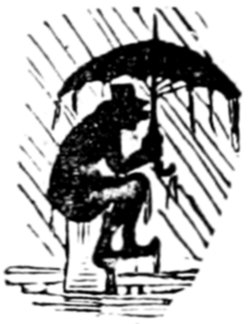
St. Swithin at his post.
See, now, what life is; I have had ill-luck on ill-luck from that day to this. I have sunk in the world, and, instead of riding my horse and drinking my wine, as a real gentleman should, have hardly enough now to buy a pint of ale; ay, and am very glad when anybody will treat me to one. Why, why was I born to undergo such unmerited misfortunes?
You must know that very soon after my adventure with Miss Crutty, and that cowardly ruffian, Captain Waters (he sailed the day after his insult to me, or I should most certainly have blown his brains out; now he is living in England, and is my relation; but, of course, I cut the fellow). Very soon after these painful events another happened, which ended, too, in a sad disappointment. My dear papa died, and instead of leaving five thousand pounds as I expected, at the very least, left only his estate, which was worth but two. The land and house were left to me; to mamma and my sisters he left, to be sure, a sum of two thousand pounds in the hands of that eminent firm, Messrs. Pump, Aldgate, and Co., which failed within six months after his demise; and paid in five years about one shilling and ninepence in the pound; which really was all my dear mother and sisters had to live upon.
The poor creatures were quite unused to money matters; and, would you believe it? when the news came of Pump and Aldgate's failure, mamma only smiled, and threw her eyes up to Heaven, and said, "Blessed be God, that we have still wherewithal to live: there are tens of thousands in this world, dear children, who would count our poverty riches." And with this she kissed my two sisters, who began to blubber, as girls always will do, and threw their arms round her neck, and then round my neck, until I was half stifled with their embraces, and slobbered all over with their tears.
"Dearest mamma," said I, "I am very glad to see the noble manner in which you bear your loss; and more still to know that you are so rich as to be able to put up with it." The fact was, I really thought the old lady had got a private hoard of her own, as many of them have—a thousand pounds or so in a stocking. Had she put by thirty pounds a year, as well she might, for the thirty years of her marriage, there would have been nine hundred pounds clear, and no mistake. But still I was angry to think that any such paltry concealment had been practised—concealment too of my money; so I turned on her pretty sharply, and continued my speech. "You say, ma'am, that you are rich, and that Pump and Aldgate's failure has no effect upon you. I am very happy to hear you say so, ma'am—very happy that you are rich; and I should like to know where your property, my father's property, for you had none of your own,—I should like to know where this money lies—where you have concealed it, ma'am, and permit me to say, that when I agreed to board you and my two sisters for eighty pounds a year, I did not know that you had other resources than those mentioned in my blessed father's will."
This I said to her because I hated the meanness of concealment, not because I lost by the bargain of boarding them, for the three poor things did not eat much more than sparrows; and I've often since calculated that I had a clear twenty pounds a year profit out of them.
Mamma and the girls looked quite astonished when I made the speech. "What does he mean?" said Lucy to Eliza.
Mamma repeated the question, "My beloved Robert, what concealment are you talking of?"
"I am talking of concealed property, ma'am," says I, sternly.
"And do you—what—can you—do you really suppose that I have concealed—any of that blessed sa-a-a-aint's prop-op-op-operty?" screams out mamma. "Robert," says she, "Bob, my own darling boy—my fondest, best beloved, now he is gone" (meaning my late governor—more tears), "you don't, you cannot fancy that your own mother, who bore you, and nursed you, and wept for you, and would give her all to save you from a moment's harm—you don't suppose that she would che-e-e-eat you?" and here she gave a louder screech than ever, and flung back on the sofa, and one of my sisters went and tumbled into her arms, and t'other went round, and the kissing and slobbering scene went on again, only I was left out, thank goodness; I hate such sentimentality.
187"Che-e-e-at me," says I, mocking her. "What do you mean, then, by saying you're so rich? Say, have you got money or have you not?" (and I rapped out a good number of oaths, too, which I don't put in here; but I was in a dreadful fury, that's the fact).
"So help me, Heaven," says mamma, in answer, going down on her knees, and smacking her two hands; "I have but a Queen Anne's guinea in the whole of this wicked world."
"Then what, madam, induces you to tell these absurd stories to me, and to talk about your riches, when you know that you and your daughters are beggars, ma'am—beggars?"
"My dearest boy, have we not got the house, and the furniture, and a hundred a year still; and have you not great talents which will make all our fortunes?" says Mrs. Stubbs, getting up off her knees, and making believe to smile as she clawed hold of my hand and kissed it.
This was too cool. "You have got a hundred a year, ma'am," says I, "you got a house: upon my soul and honour this is the first I ever heard of it, and I'll tell you what, ma'am," says I (and it cut her pretty sharply too), "as you've got it, you'd better go and live in it. I've got quite enough to do with my own house, and every penny of my own income."
Upon this speech the old lady said nothing, but she gave a screech loud enough to be heard from here to York, and down she fell—kicking and struggling in a regular fit.
I did not see Mrs. Stubbs for some days after this, and the girls used to come down to meals, and never speak; going up again and stopping with their mother. At last, one day, both of them came in very solemn to my study, and Eliza, the eldest, said, "Robert, mamma has paid you our board up to Michaelmas."
"She has," says I; for I always took precious good care to have it in advance.
"She says, John, that on Michaelmas day we'll—we'll go away, John."
"Oh, she's going to her own house, is she, Lizzy? very good; she'll want the furniture, I suppose, and that she may have, too, for I'm going to sell the place myself;" and so that matter was settled.
On Michaelmas day, and during these two months, I hadn't, I do believe, seen my mother twice (once, about two o'clock in the morning, I woke and found her sobbing over my bed). On Michaelmas day morning, Eliza comes to me and says, "John, they will come and fetch us at six this evening." Well, as this was the last day, I went and got the best goose I could find (I don't think I ever saw a primer, or ate more hearty myself), and had it roasted at three, with a good pudding afterwards; and a glorious bowl of punch. "Here's a health to you, dear girls," says I, "and you, ma, and good luck to all three, and as you've not eaten a morsel, I hope you wont object to a glass of punch. It's the old stuff, you know, ma'am, that that Waters sent to my father fifteen years ago."
Six o'clock came, and with it came a fine barouche, as I live! Captain Waters was on the box (it was his coach); that old thief, Bates, jumped out, entered my house, and before I could say Jack Robinson, whipped off mamma to the carriage, the girls followed, just giving me a hasty shake of the hand, and as mamma was helped in, Mary Waters, who was sitting inside, flung her arms round her, and then round the girls, and the Doctor, who acted footman, jumped on the box, and off they went; taking no more notice of me than if I'd been a nonentity.
There's the picture of the whole business: That's mamma and Miss Waters sitting kissing each other in the carriage, with the two girls in the back seat; Waters driving (a precious bad driver he is, too); and that's me, standing at the garden door, and whistling. You can't see Mary Malowney; the old fool is crying behind the garden gate: she went off next day along with the furniture; and I got into that precious scrape which I shall mention next.
| 188 | |
| SEPTEMBER. | [1839. |
|---|---|
7. Jerusalem demolished by Titus, A.D. 70.
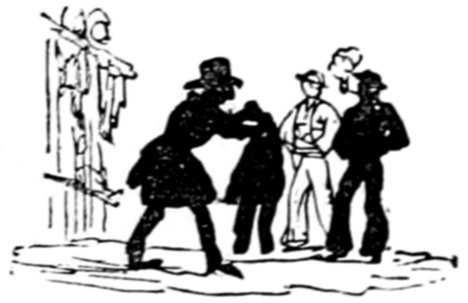
Land Sharks and Sea Gulls.
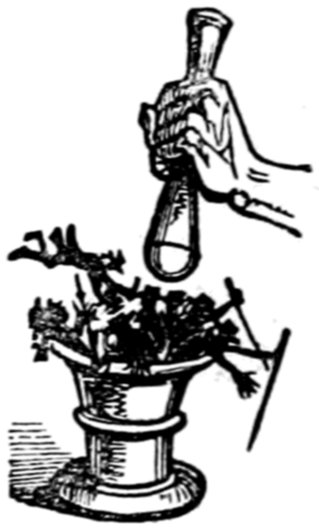
23. College of Physicians incorporated, 1518.
After my papa's death, as he left me no money, and only a little land, I put my estate into an auctioneer's hands, and determined to amuse my solitude with a trip to some of our fashionable watering-places. My house was now a desert to me. I need not say how the departure of my dear parent, and her children, left me sad and lonely.
Well, I had a little ready money, and, for the estate, expected a couple of thousand pounds. I had a good military-looking person; for though I had absolutely cut the old North-Bungays (indeed, after my affair with Waters, Colonel Craw hinted to me, in the most friendly manner, that I had better resign), though I had left the army, I still retained the rank of Captain; knowing the advantages attendant upon that title, in a watering-place tour.
Captain Stubbs became a great dandy at Cheltenham, Harrogate, Bath, Leamington, and other places. I was a good whist and billiard-player; so much so, that in many of these towns the people used to refuse, at last, to play with me, knowing how far I was their superior. Fancy, my surprise, about five years after the Portsmouth affair, when strolling one day up the High Street, in Leamington, my eyes lighted upon a young man, whom I remembered in a certain butcher's yard, and elsewhere—no other, in fact, than Dobble. He, too, was dressed en militaire, with a frogged coat and spurs; and was walking with a showy-looking, Jewish-faced, black-haired lady, glittering with chains and rings, with a green bonnet, and a bird of Paradise—a lilac shawl, a yellow gown, pink silk stockings, and light blue shoes. Three children, and a handsome footman, were walking behind her, and the party, not seeing me, entered the Royal Hotel together.
I was known, myself, at the Royal, and calling one of the waiters, learned the names of the lady and gentleman. He was Captain Dobble, the son of the rich army clothier, Dobble (Dobble, Hobble, and Co., of Pall Mall); the lady was a Mrs. Manasseh, widow of an American Jew, living quietly at Leamington with her children, but possessed of an immense property. There's no use to give one's self out to be an absolute pauper, so the fact is, that I myself went everywhere with the character of a man of very large means. My father had died, leaving me immense sums of money, and landed estates—ah! I was the gentleman then, the real gentleman, and everybody was too happy to have me at table.
Well, I came the next day, and left a card for Dobble, with a note: he neither returned my visit, nor answered my note. The day after, however, I met him with the widow, as before; and, going up to him, very kindly seized him by the hand, and swore I was—as really was the case—charmed to see him. Dobble hung back, to my surprise, and I do believe the creature would have cut me, if he dared; but I gave him a frown, and said—
"What, Dobble, my boy, don't you recollect old Stubbs, and our adventure with the butcher's daughters, ha?"
Dobble gave me a sickly kind of grin, and said, "Oh! ah! yes! It is—yes! it is, I believe, Captain Stubbs."
"An old comrade, madam, of Captain Dobble's, and one who has heard so much, and seen so much, of your ladyship, that he must take the liberty of begging his friend to introduce him."
Dobble was obliged to take the hint; and Captain Stubbs was duly presented to Mrs. Manasseh; the lady was as gracious as possible: and when, at the end of the walk, we parted, she said, "she hoped Captain Dobble would bring me to her apartments that evening, where she expected a few friends." Everybody, you see, knows everybody at Leamington; and I, for my part, was well known as a retired officer of the army; who, on his father's death, had come into seven thousand a year. Dobble's arrival had been subsequent to mine, but putting up, as he did, at the Royal Hotel, and dining at the ordinary there with the widow, he had made his acquaintance before I had. I saw, however, that if I allowed him to talk about me, as he could, I should be compelled to give up all my hopes and pleasures at Leamington; and so I determined to 190be short with him. As soon as the lady had gone into the hotel, my friend Dobble was for leaving me likewise; but I stopped him, and said, "Mr. Dobble, I saw what you meant just now: you wanted to cut me, because, forsooth, I did not choose to fight a duel at Portsmouth; now look you, Dobble, I am no hero, but I'm not such a coward as you—and you know it. You are a very different man to deal with from Waters; and I will fight this time."
Not, perhaps, that I would: but after the business of the butcher, I knew Dobble to be as great a coward as ever lived: and there never was any harm in threatening, for you know you are not obliged to stick to it afterwards. My words had their effect upon Dobble, who stuttered, and looked red, and then declared, he never had the slightest intention of passing me by; so we became friends, and his mouth was stopped.
He was very thick with the widow: but that lady had a very capacious heart, and there were a number of other gentlemen who seemed equally smitten with her. "Look at that Mrs. Manasseh," said a gentleman (it was droll, he was a Jew, too), sitting at dinner by me; "she is old and ugly, and yet because she has money, all the men are flinging themselves at her."
"She has money, has she?"
"Eighty thousand pounds, and twenty thousand for each of her children. I know it for a fact," said the strange gentleman. "I am in the law, and we, of our faith, you know, know pretty well what the great families amongst us are worth."
"Who was Mr. Manasseh?"
"A man of enormous wealth—a tobacco-merchant—West Indies; a fellow of no birth, however; and who, between ourselves, married a woman that is not much better than she should be. My dear sir," whispered he, "she is always in love—now it is with that Captain Dobble; last week it was somebody else; and it may be you next week, if—ha! ha! ha!—you are disposed to enter the lists."
"I wouldn't, for my part, have the woman with twice her money."
What did it matter to me, whether the woman was good or not, provided she was rich? My course was quite clear. I told Dobble all that this gentleman had informed me, and being a pretty good hand at making a story, I made the widow appear so bad, that the poor fellow was quite frightened, and fairly quitted the field. Ha! ha! I'm dashed if I did not make him believe that Mrs. Manasseh had murdered her last husband.
I played my game so well, thanks to the information that my friend the lawyer had given me, that, in a month, I had got the widow to show a most decided partiality for me. I sat by her at dinner; I drank with her at the Wells; I rode with her; I danced with her; and at a pic-nic to Kenilworth, where we drank a good deal of champagne, I actually popped the question, and was accepted. In another month, Robert Stubbs, Esq., led to the altar Leah, widow of the late Z. Manasseh, Esq., of St. Kitt's!
We drove up to London in her comfortable chariot; the children and servants following in a post-chaise. I paid, of course, for everything; and until our house in Berkeley Square was painted, we stopped at Stevens's Hotel.
My own estate had been sold, and the money was lying at a bank, in the city. About three days after our arrival, as we took our breakfast in the hotel, previous to a visit to Mrs. Stubbs's banker, where certain little transfers were to be made, a gentleman was introduced, who, I saw at a glance, was of my wife's persuasion.
He looked at Mrs. Stubbs, and made a bow. "Perhaps it will be convenient to you to pay this little bill, one hundred and fifty-two poundsh?"
"My love," says she, "will you pay this? It is a trifle which I had really forgotten." "My soul!" said I, "I have really not the money in the house."
"Vel, denn, Captain Shtubbsh," says he, "I must do my duty—and arrest you—here is the writ! Tom, keep the door!"—My wife fainted—the children screamed, and I—fancy my condition, as I was obliged to march off to a sponging house, along with a horrid sheriff's officer!
| 191 | |
| 1839.] | OCTOBER. |
|---|---|
1. Abolition of arrest on suspicion of debt, 1838.
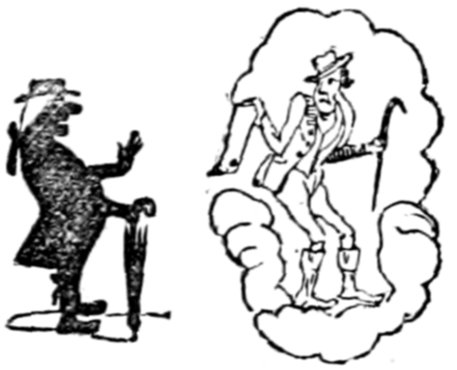
The ghost of a "Bailey.'
"Remember thee? Ay, thou poor ghost!"
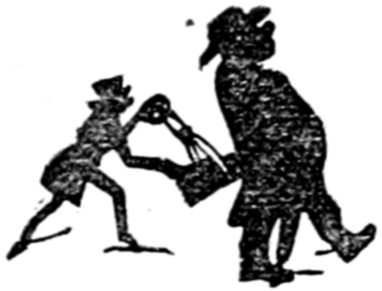
Share and share alike.
10. Dividends due.
20. Battle of Navarino, 1827.
I shall not describe my feelings when I found myself in a cage in Cursitor-street, instead of that fine house in Berkeley Square, which was to have been mine as the husband of Mrs. Manasseh. What a palace!—in an odious, dismal street leading from Chancery Lane,—a hideous Jew boy opened the second of three doors; and shut it when Mr. Nabb and I (almost fainting) had entered: then he opened the third door, and then I was introduced to a filthy place, called a coffee-room, which I exchanged for the solitary comfort of a little dingy back-parlour, where I was left for a while to brood over my miserable fate. Fancy the change between this and Berkeley Square! Was I, after all my pains, and cleverness, and perseverance, cheated at last? Had this Mrs. Manasseh been imposing upon me, and were the words of the wretch I met at the table-d'hôte at Leamington, only meant to mislead me and take me in? I determined to send for my wife, and know the whole truth. I saw at once that I had been the victim of an infernal plot, and that the carriage, the house in town, the West India fortune, were only so many lies which I had blindly believed. It was true the debt was but a hundred and fifty pounds: and I had two thousand at my bankers. But was the loss of her £80,000 nothing? Was the destruction of my hopes nothing?—The accursed addition to my family of a Jewish wife, and three Jewish children, nothing? And all these I was to support out of my two thousand pounds. I had better have stopped at home, with my mamma and sisters, whom I really did love, and who produced me eighty pounds a-year.
I had a furious interview with Mrs. Stubbs; and when I charged her, the base wretch! with cheating me, like a brazen serpent, as she was, she flung back the cheat in my teeth, and swore I had swindled her. Why did I marry her, when she might have had twenty others? She only took me, she said, because I had twenty thousand pounds. I had said I possessed that sum; but in love, you know, and war, all's fair.
We parted quite as angrily as we met; and I cordially vowed that when I had paid the debt into which I had been swindled by her, I would take my £2,000, and depart to some desert island; or, at the very least, to America, and never see her more, or any of her Israelitish brood. There was no use in remaining in the sponging-house (for I knew that there were such things as detainers, and that where Mrs. Stubbs owed a hundred pounds, she might owe a thousand), so I sent for Mr. Nabb, and tendering him a cheque for £150, and his costs, requested to be let out forthwith. "Here, fellow," said I, "is a cheque on Child's for your paltry sum."
"It may be a shech on Shild's," says Mr. Nabb, "but I should be a baby to let you out on such a paper as dat."
"Well," said I, "Child's is but a step from this; you may go and get the cash,—just giving me an acknowledgment."
Nabb drew out the acknowledgment with great punctuality, and set off for the Bankers, whilst I prepared myself for departure from this abominable prison.
He smiled as he came in. "Well," said I, "you have touched your money; and now, I must tell you, that you are the most infernal rogue and extortioner I ever met with."
"O no, mishter Shtubbsh," says he, grinning still, "dere is som greater roag dan me,—mosh greater."
"Fellow," says I, "don't stand grinning before a gentleman; but give me my hat and cloak, and let me leave your filthy den."
"Shtop, Shtubbsh," says he, not even Mistering me this time, "here ish a letter, vich you had better read."
I opened the letter: something fell to the ground:—it was my cheque.
The letter ran thus: "Messrs. Child and Co. present their compliments to Captain Stubbs, and regret that they have been obliged to refuse payment of the enclosed, having been served this day with an attachment by Messrs. Solomonson and Co., which compels them to retain Captain Stubbs's balance of £2010 11s. 6d. until the decision of the suit of Solomonson v. Stubbs.
"Fleet Street."
"You see," says Mr. Nabb, as I read this dreadful letter, "you see, Shtubbsh, 193dere vas two debts,—a littel von, and a big von. So dey arrested you for de littel von, and attashed your money for de big von."
Don't laugh at me for telling this story: if you knew what tears are blotting over the paper as I write it; if you knew that for weeks after I was more like a madman than a sane man,—a madman in the Fleet Prison, where I went, instead of to the desert island. What had I done to deserve it? Hadn't I always kept an eye to the main chance? Hadn't I lived economically, and not like other young men? Had I ever been known to squander or give away a single penny? No! I can lay my hand on my heart, and, thank Heaven, say, No! Why—why was I punished so?
Let me conclude this miserable history. Seven months—my wife saw me once or twice, and then dropped me altogether—I remained in that fatal place. I wrote to my dear mamma, begging her to sell her furniture, but got no answer. All my old friends turned their backs upon me. My action went against me—I had not a penny to defend it. Solomonson proved my wife's debt, and seized my two thousand pounds.—As for the detainer against me, I was obliged to go through the court for the relief of insolvent debtors. I passed through it, and came out a beggar. But, fancy the malice of that wicked Stiffelkind; he appeared in court as my creditor for £3, with sixteen years' interest, at five per cent., for a PAIR OF TOP-BOOTS. The old thief produced them in court, and told the whole story—Lord Cornwallis, the detection, the pumping, and all.
Commissioner Dubobwig was very funny about it. "So Doctor Swishtail would not pay you for the boots, eh, Mr. Stiffelkind?"
"No; he said, ven I ask him for payment, dey was ordered by a yong boy, and I ought to have gone to his schoolmaster."
"What, then, you came on a bootless errand, eh, sir?" (A laugh.)
"Bootless! no, sare. I brought de boots back vid me; how de devil else could I show dem to you?" (Another laugh.)
"You've never soled 'em since, Mr. Tickleshins?"
"I never vood sell dem; I svore I never vood, on porpus to be revenged on dat Stobbs."
"What, your wound has never been healed, eh?"
"Vat do you mean vid your bootless errants, and your soling and healing? I tell you I have done vat I svore to do; I have exposed him at school, I have broak off a marriage for him, ven he vould have had twenty tousand pound, and now I have showed him up in a court of justice; dat is vat I ave done, and dat's enough." And then the old wretch went down, whilst everybody was giggling and staring at poor me—as if I was not miserable enough already.
"This seems the dearest pair of boots you ever had in your life, Mr. Stubbs," said Commissioner Dubobwig, very archly, and then he began to inquire about the rest of my misfortunes.
In the fulness of my heart I told him the whole of them; how Mr. Solomonson the attorney had introduced me to the rich widow, Mrs. Manasseh, who had fifty thousand pounds, and an estate in the West Indies. How I was married, and arrested on coming to town, and cast in an action for two thousand pounds, brought against me by this very Solomonson for my wife's debts.
"Stop," says a lawyer in the court. "Is this woman a showy black-haired woman, with one eye? very often drunk, with three children—Solomonson, short, with red hair?"
"Exactly so," says I, with tears in my eyes.
"That woman has married three men within the last two years. One in Ireland, and one at Bath. A Solomonson is, I believe, her husband, and they both are off for America ten days ago."
"But why did you not keep your £2000?" said the lawyer.
"Sir, they attached it."
"O! well, we may pass you; you have been unlucky, Mr. Stubbs, but it seems as if the biter had been bit in this affair."
"No," said Mr. Dubobwig, "Mr. Stubbs is the victim of a FATAL ATTACHMENT."
A remarkably successful operation has just been performed by Mr. Curtis, on the eyes of an elderly lady, who had been blind and deaf from her birth. The following letter to her niece has been sent to us by her friends, to show the rapidity of her literary acquirements, immediately on her attainment of the power of vision; and such of our readers as can fancy themselves deaf will certainly see it to consist of capital rhymes.
The Emigration Committee have thought it right to give publicity to the following very intelligent letter, lately written by a settler to his mother, on account of the valuable statistical information it contains.
My dere Muther,—Yer mustent wunder if you havnt herd of me for sume time, but grate grefe is dumb as Shaxpire sais, and I was advised to hop my twig and leaf old ingland, witch indede I was verry sorrorful, but now I am thanks gudnes saf, and in amerrykey. i ardly no ware miself, but the hed of this will tel my tail. I ham a sqwatter in the far wurst, about ½ a-mile this side sundown, an if i ad gone mutch father i should av found nothin but son, an no nite at all. Yu kno how the hummeggrating Agent tolde me that if peepel cudnt liv in Sent Gileses amerrykey was capitle to dy in; besides ses he if youre not verry nere you can ade yure mother in distres, so i went aborde a skip wat was going to Noo Orlines. Ive herd peepel tawk abowt rodes at C but the rodes on the attalantick is the verry ruffest i iver rode on and it was very long an very cold an we had nothing 2 heat hardly, but we founde a ded rat in a warter cask witch the flavur was grately increased thareby.
195at last we cam to the arbur at the citty of Noo Orlines witch is all under the bottum of the top of the rivver and we ad a ankering to go a-shore. I ad no idear as the rivers was so hi in this contry, but as the assent is so verry esy i didn't fele it at al. The noo orlines peepel is odd fishis and not at all commun plaice; wen all the peepel in the stretes is musterd it is a pepper an sault poppulashun, there is blak wites an wite blaks an a sorte of mixt peepel caled quadruunts because they are of fore colers blak, an wite, an wite blaks, and blak wites. Has the rivver is so verry hi it is alwys hi water, an the munnifold advantiges of the citty dipends on the gudnes of its banks. there is loks in em to let the water out and keys to kepe it in. munny here is very common and is cald sentse, and evvery thing is cheep in Noo Orlines 5 dollers bills bein only worth 2 dollers. We went up the rivver in a large bote like a noise ark only more promiscus. the current acount was aginst us it dont turn and turn agen like at putny bridg, and as it runs alwys won way i wunder it dont run away altogethir. Thire is no towns nor tailer shops nor palisses as I expectorated there wood be. the wood was all quite wilde not a bit of tame no ware nor no sines of the blessedniss of civilazashun as jales an jin shops nor no kitching gardins nor fields nor ouses nor lanes nor alleys nor gates nothin but alleygators. after a grate dale of settlin I settled to settle as abuv ware yu will rite to me. These staits is caled the united staits becawse theire mails and femails all united. there's six of them wimmin staits. 2 Carrolinas, Miss Sourry, Miss Sippy, Louesa Anna, an Vargina, all the rest is mails. i have sene no cannibels an verry few ingins besides steam ingins they're quite unhedducated and dont employ no tailers. I dont like fammin mutch but praps I shal wen i get used to it, tho its very ilconvenient at furst. i am obliged to wurk very ard and if I have to chop my one wood much longer I have determined to cut my stick.
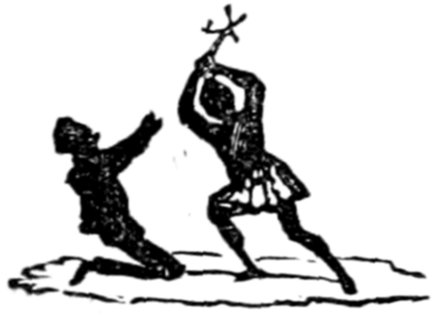
A Settler.
Dere muther, i think i shud be more cumfurtable if I had a few trifels witch you culd bye me, if yew wud onley sel sumthing and send me all the bils partickular, and I'l be sure to owe it you—namly sum needils and thred, and sum odd buttens, but thems of little use without you send me sum shirts, and a waistcote, and upper cote, to put em on, when those tumbles off thats on when you sends em, and sum brads, and some hammers do drive em with, and a spade an a pikax, an a saw, and some fish hooks, and gunpowdr, an sum shot, witch they wil be of the gratest conveniency, if you can send me a gun. likewis som stockins, an shues and other hardwares, only its no use to send me any bank nots, for my nerest naybours is sum ingun wagwams abuve 70 miles of, and I cudnt get change thare, so dont forgit some led, and some bullit moldes, for some blak fellers has been fishin close by, jist within 10 miles and I wants to have a pop at em with luv to all yore dutiful sone
| 196 | |
| NOVEMBER. | [1839. |
|---|---|

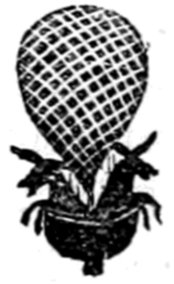
23. First balloon ass-sent, 1782.
29. Insurrection of the Poles, 1830.

A Collection of National Hairs, with variations.
I was a free man when I went out of the Court; but I was a beggar—I, Captain Stubbs, of the bold North-Bungays, did not know where I could get a bed or a dinner.
As I was marching sadly down Portugal Street, I felt a hand on my shoulder, and a rough voice which I knew well.
"Vell, Mr. Stobbs, have I not kept my bromise? I told you dem boots would be your ruin."
I was much too miserable to reply; and only cast up my eyes towards the roofs of the houses, which I could not see for the tears.
"Vat! you begin to gry and blobber like a shild? you vood marry, vood you, and noting vood do for you but a vife vid monny—ha, ha—but you vere de pigeon, and she vas de grow. She has plocked you, too, pretty vell—eh? ha! ha!"
"Oh, Mr. Stiffelkind," said I, "don't laugh at my misery; she has not left me a single shilling under heaven. And I shall starve—I do believe I shall starve." And I began to cry fit to break my heart.
"Starf! stoff and nonsense—you vil never die of starfing—you vil die of hanging, I tink, ho! ho! and it is moch easier vay too." I didn't say a word, but cried on, till everybody in the street turned round and stared.
"Come, come," said Stiffelkind, "do not gry, Gaptain Stobbs—it is not goot for a Gaptain to gry, ha! ha! Dere, come vid me, and you shall have a dinner, and a bregfast too—vich shall gost you nothing, until you can bay vid your earnings."
And so this curious old man, who had persecuted me all through my prosperity, grew compassionate towards me in my ill-luck: and took me home with him as he promised. "I saw your name among de Insolvents—and I vowed, you know, to make you repent dem boots. Dere now, it is done and forgotten, look you. Here, Betty, Bettchen, make de spare bed, and put a clean knife and fork; Lort Cornvallis is come to dine vid me."
I lived with this strange old man for six weeks. I kept his books, and did what little I could to make myself useful: carrying about boots and shoes, as if I had never borne his Majesty's commission. He gave me no money, but he fed and lodged me comfortably. The men and boys used to laugh, and call me General, and Lord Cornwallis, and all sorts of nicknames—and old Stiffelkind made a thousand new ones for me.
One day, I can recollect—one miserable day, as I was polishing on the trees a pair of boots of Mr. Stiffelkind's manufacture, the old gentleman came into the shop with a lady on his arm.
"Vere is Gaptain Stobbs," says he; "vere is dat ornament to his Majesty's service?"
I came in from the back shop, where I was polishing the boots, with one of them in my hand.
"Look, my dear," says he, "here is an old friend of yours, his Excellency Lord Cornvallis! Who would have thought such a nobleman vood turn shoe-black? Gaptain Stobbs, here is your former flame, my dear niece, Miss Grotty. How could you, Magdalen, ever leaf soch a lof of a man? Shake hands vid her, Gaptain;—dere, never mind de blacking:" but Miss drew back.
"I never shake hands with a shoe-black," says she, mighty contemptuous.
"Bah! my lof, his fingers von't soil you. Don't you know he has just been vite-vashed?"
"I wish, uncle," says she, "you would not leave me with such low people."
"Low, because he cleans boots? de Gaptain prefers pumps to boots, I tink, ha! ha!"
"Captain, indeed! a nice Captain," says Miss Crutty, snapping her fingers in my face, and walking away: "a Captain, who has had his nose pulled? ha! ha!"—And how could I help it? it wasn't by my own choice that that ruffian Waters took such liberties with me; didn't I show how averse I was to all quarrels by refusing altogether his challenge?—but such is the world: and thus the people at Stiffelkind's used to tease me until they drove me almost mad.
198At last, he came home one day more merry and abusive than ever. "Gaptain," says he, "I have goot news for you—a goot place. Your lortship vil not be able to geep your garridge, but you vil be gomfortable, and serve his Majesty."
"Serve his Majesty!" says I. "Dearest Mr. Stiffelkind, have you got me a place under Government?"
"Yes, and someting better still—not only a place, but a uniform—yes, Gabdain Stobbs, a red goat."
"A red coat! I hope you don't think I would demean myself by entering the ranks of the army? I am a gentleman, Mr. Stiffelkind—I can never—no, I never."
"No, I know you will never—you are too great a goward, ha! ha!—though dis is a red goat, and a place where you must give some hard knocks too, ha! ha!—do you gomprehend?—and you shall be a general, instead of a gabtain—ha! ha!"
"A general in a red coat! Mr. Stiffelkind?"
"Yes, a GENERAL BOSTMAN! ha! ha! I have been vid your old friend, Bunting, and he has an uncle in the Post-office, and he has got you de place—eighteen shillings a veek, you rogue, and your goat. You must not oben any of de letters, you know."
And so it was—I, Robert Stubbs, Esquire, became the vile thing he named—a general postman!
I was so disgusted with Stiffelkind's brutal jokes, which were now more brutal than ever, that when I got my place in the Post-office I never went near the fellow again—for though he had done me a favour in keeping me from starvation, he certainly had done it in a very rude, disagreeable manner, and showed a low and mean spirit in shoving me into such a degraded place as that of postman. But what had I to do? I submitted to fate, and for three years or more, Robert Stubbs, of the North-Bungay Fencibles, was——
I wonder nobody recognised me. I lived in daily fear the first year; but, afterwards, grew accustomed to my situation, as all great men will do, and wore my red coat as naturally as if I had been sent into the world only for the purpose of being a letter carrier.
I was first in the Whitechapel district, where I stayed nearly three years, when I was transferred to Jermyn Street and Duke Street—famous places for lodgings. I suppose I left a hundred letters at a house in the latter street, where lived some people who must have recognised me had they but once chanced to look at me.
You see, that when I left Sloffem, and set out in the gay world, my mamma had written to me a dozen times at least, but I never answered her, for I knew she wanted money, and I detest writing. Well, she stopped her letters, finding she could get none from me: but when I was in the Fleet, as I told you, I wrote repeatedly to my dear mamma, and was not a little nettled at her refusing to notice me in my distress, which is the very time one most wants notice.
Stubbs is not an uncommon name; and though I saw MRS. STUBBS on a little bright brass plate, in Duke Street, and delivered so many letters to the lodgers in her house, I never thought of asking who she was, or whether she was my relation, or not.
One day the young woman who took in the letters had not got change, and she called her mistress;—an old lady in a poke bonnet came out of the parlour, and put on her spectacles, and looked at the letter, and fumbled in her pocket for eight-pence, and apologized to the postman for keeping him waiting; and when I said, "Never mind, ma'am, it's no trouble," the old lady gave a start, and then she pulled off her spectacles, and staggered back; and then she began muttering, as if about to choke; and then she gave a great screech, and flung herself into my arms, and roared out, "MY SON! MY SON!"
"Law, mamma," said I, "is that you?" and I sat down on the hall bench with her, and let her kiss me as much as ever she liked. Hearing the whining and crying, down comes another lady from upstairs,—it was my sister Eliza; and down come the lodgers. And the maid gets water, and what not, and I was the regular hero of the group. I could not stay long then, having my letters to deliver. But, in the evening, after mail-time, I went back to my mamma and sister: and, over a bottle of prime old Port, and a precious good leg of boiled mutton and turnips, made myself pretty comfortable, I can tell you.
Beware of false prophets, who predict of the times, which, but for thy simplicity, would be for them "out of joint"—of the seasons, of which they know not, save that they yield them a profitable harvest,—and of the winds, for which they care not, so that they blow them good; but turn from them awhile, and regard the Hieroglyphicum in Obscuro I here set before thee, and the interpretation thereof; and, if it come not as I predict, thou may'st guess the reason why. Unlucky planets rule the State Kitchen; and the great kettle being filled by Aquarius, with Sol in opposition, an unfriendly boil is produced, which maketh the place so hot that the Cooks find it hard to stay within, though loth to go out. Moreover, being of one mind as to the making of a mess, but differing as to the manner thereof, they have fallen to fighting, to settle the question, and are all going to pot together. By a touch of my wand, behold them transmogrified into a Lamb's head, served with a plentiful dressing of strong Durham mustard, a little Jack clinging to the side, as though he wished himself out of this pretty kettle of fish, and a fowl, though, by his looks, no chicken, attempting his escape in the form of a winged Cupid. He does not like his company, and has made his bow—behold it in his hand. Another fish, more like a Sir John than a sturgeon, seems as though his berth was far from pleasant. The Mistress, alarmed by the noise, comes to the window to see what is the matter; an ancient Master Cook, from Arthur's, stands, ladle in hand, his fingers itching to skim the scum off as it rises. An old Kitchen Maid, who, though pensioned off, will still have a finger in every pie, hath been stirring the fire with a worn-out broom-handle, (perchance she hath slyly put in a pinch of gunpowder) and is now playing the part of blow-bellows. She seemeth, by the satisfactionated curl of her nose, to be happy to see them all in hot water.
Now, as to the application hereof, every man must judge for himself; but of a verity it doth to me appear, that too many cooks will spoil any broth. And, while I speak of cookery, let me advise thee as to thy treatment of that which a departed wiseacre denominated the "worse than useless root." If, rejecting his advice, none but this fruit will content thee, let me counsel thee to follow my example—having well roasted my Murphy, I take him "cum grano salis." Now, touching other mundane matters, thou wilt herein find copious instructions, sage predictions, and wholesome advice, on which thou mayest surely rely, though I am no M.N.S., which can but mean Member of No Society.
| 200 | |
| 1839.] | DECEMBER. |
|---|---|
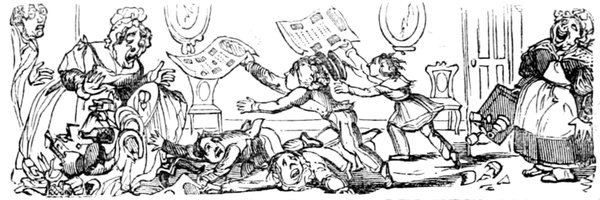
Here come December and the brats again! what pain! rushing like untamed kittens o'er a cataract. Tables turn'd, bottles broke, cups crack'd—All conspire to add to my distractions, to shew their skill in Christmas pieces, and in fractions.

Family Ties.
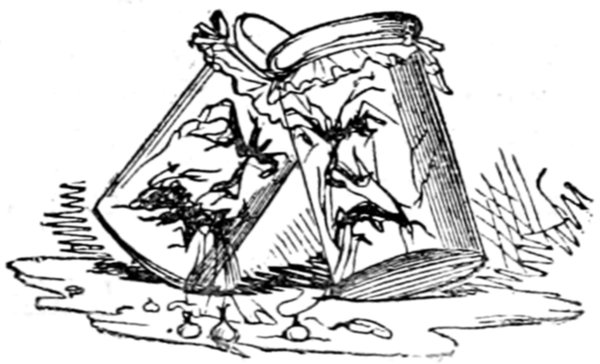
Mamma had kept the house in Duke Street for more than two years. I recollected some of the chairs and tables, from dear old Squiggle, and the bowl in which I had made that famous rum-punch, the evening she went away, which she and my sisters left untouched, and I was obliged to drink after they were gone; but that's not to the purpose.
Think of my sister Mary's luck! That chap, Waters, fell in love with her, and married her; and she now keeps her carriage, and lives in state near Squiggle. I offered to make it up with Waters; but he bears malice, and never will see or speak to me. He had the impudence, too, to say that he took in all letters for mamma at Squiggle; and that, as mine were all begging letters, he burned them, and never said a word to her concerning them. He allowed mamma fifty pounds a year, and, if she were not such a fool, she might have had three times as much; but the old lady was high and mighty, forsooth, and would not be beholden, even to her own daughter, for more than she actually wanted. Even this fifty pounds she was going to refuse; but when I came to live with her, of course I wanted pocket money as well as board and lodging, and so I had the fifty pounds for my share, and eked out with it as well as I could.
Old Bates and the Captain, between them, gave mamma a hundred pounds when she left me (she had the deuce's own luck, to be sure—much more than ever fell to me, I know), and as she said she would try and work for her living, it was thought best to take a house and let lodgings, which she did. Our first and second floor paid us four guineas a week, on an average; and the front parlour and attic made forty pounds more. Mamma and Eliza used to have the front attic; but I took that, and they slept in the servants' bed room. Lizzy had a pretty genius for work, and earned a guinea a week that way; so that we had got nearly two hundred a year over the rent to keep house with,—and we got on pretty well. Besides, women eat nothing; my women didn't care for meat for days together sometimes,—so that it was only necessary to dress a good steak or so for me.
Mamma would not think of my continuing in the Post-office. She said her dear John, her husband's son, her gallant soldier, and all that, should remain at home, and be a gentleman—which I was, certainly, though I didn't find fifty pounds a year very much to buy clothes and be a gentleman upon; to be sure, mother found me shirts and linen, so that that wasn't in the fifty pounds. She kicked a little at paying the washing too; but she gave in at last, for I was her dear John, you know; and I'm blest if I could not make her give me the gown off her back. Fancy! once she cut up a very nice rich black silk scarf, which my sister Waters sent her, and made me a waistcoat and two stocks of it. She was so very soft, the old lady!
I'd lived in this way for five years or more, making myself content with my fifty pounds a year (perhaps, I'd saved a little out of it; but that's neither here nor there). From year's end to year's end I remained faithful to my dear mamma, never leaving her except for a month or so in summer, when a bachelor may take a trip to Gravesend or Margate, which would be too expensive for a family. I say a bachelor, for the fact is, I don't know whether I am married or not—never having heard a word since of the scoundrelly Mrs. Stubbs.
I never went to the public house before meals; for, with my beggarly fifty pounds, I could not afford to dine away from home; but there I had my regular seat, and used to come home pretty glorious, I can tell you. Then, bed till eleven; then, breakfast and the newspaper; then, a stroll in Hyde Park or Saint James's; then, home at half-past three to dinner, when I jollied, as I call it, for the rest of the day. I was my mother's delight; and thus, with a clear conscience, I managed to live on.
How fond she was of me, to be sure! Being sociable myself, and loving to have my friends about me, we often used to assemble a company of as hearty fellows as you would wish to sit down with, and keep the nights up royally. "Never mind, my boys," I used to say, "send the bottle round: mammy pays for all," as she did, sure enough; and sure enough we punished her cellar too. The good old lady used to wait upon us, as if for all the world she had been my servant, instead of 202a lady and my mamma. Never used she to repine, though I often, as I must confess, gave her occasion (keeping her up till four o'clock in the morning, because she never could sleep until she saw her "dear Bob" in bed, and leading her a sad anxious life). She was of such a sweet temper, the old lady, that I think in the course of five years I never knew her in a passion, except twice; and then with sister Lizzy, who declared I was ruining the house, and driving the lodgers away, one by one. But mamma would not hear of such envious spite on my sister's part. "Her Bob" was always right, she said. At last Lizzy fairly retreated, and went to the Waterses,—I was glad of it, for her temper was dreadful, and we used to be squabbling from morning till night.
Ah, those were jolly times! but ma was obliged to give up the lodging-house at last—for, somehow, things went wrong after my sister's departure—the nasty uncharitable people said, on account of me; because I drove away the lodgers by smoking and drinking, and kicking up noises in the house; and because mamma gave me so much of her money:—so she did, but if she would give it, you know, how could I help it? Heigho! I wish I'd kept it.
No such luck.—The business I thought was to last for ever; but at the end of two years a smash came—shut up shop—sell off everything. Mamma went to the Waterses: and, will you believe it, the ungrateful wretches would not receive me! that Mary, you see, was so disappointed at not marrying me. Twenty pounds a year they allow, it is true; but what's that for a gentleman? For twenty years I have been struggling manfully to gain an honest livelihood, and, in the course of them, have seen a deal of life, to be sure. I've sold segars and pocket-hand-kerchiefs at the corners of streets; I've been a billiard-marker; I've been Director (in the panic year) of the Imperial British Consolidated Mangle and Drying Ground Company. I've been on the stage (for two years as an actor, and about a month as a cad, when I was very low); I've been the means of giving to the police of this empire some very valuable information (about licensed victuallers, gentlemen's carts, and pawnbrokers' names); I've been very nearly an officer again—that is, an assistant to an officer of the Sheriff of Middlesex: it was my last place.
On the last day of the year 1837, even that game was up. It's a thing that has very seldom happened to a gentleman, to be kicked out of a sponging-house; but such was my case. Young Nabbs (who succeeded his father) drove me ignominiously from his door, because I had charged a gentleman in the coffee-rooms seven-and-sixpence for a glass of ale and bread and cheese, the charge of the house being only six shillings. He had the meanness to deduct the eighteen-pence from my wages, and, because I blustered a bit, he took me by the shoulders and turned me out—me, a gentleman, and, what is more, a poor orphan!
How I did rage and swear at him when I got out in the street!—There stood he, the hideous Jew monster, at the double door, writhing under the effect of my language. I had my revenge! Heads were thrust out of every bar of his windows, laughing at him. A crowd gathered round me, as I stood pounding him with my satire, and they evidently enjoyed his discomfiture. I think the mob would have pelted the ruffian to death (one or two of their missiles hit me, I can tell you), when a policeman came up, and, in reply to a gentleman, who was asking what was the disturbance, said, "Bless you, Sir, it's Lord Cornwallis." "Move on, Boots," said the fellow to me, for, the fact is, my misfortunes and early life are pretty well known—and so the crowd dispersed.
"What could have made that policeman call you Lord Cornwallis and Boots?" said the gentleman, who seemed mightily amused, and had followed me. "Sir," says I, "I am an unfortunate officer of the North Bungay Fencibles, and I'll tell you willingly for a pint of beer." He told me to follow him to his chambers at the Temple, which I did (a five pair back), and there, sure enough, I had the beer; and told him this very story you've been reading. You see he is what is called a literary man—and sold my adventures for me to the booksellers: he's a strange chap; and says they're moral.
I'm blest if I can see anything moral in them. I'm sure I ought to have been more lucky through life, being so very wide awake. And yet here I am, without a place, or even a friend, starving upon a beggarly twenty pounds a year—not a single sixpence more, upon my honour.
"Well, I never!—this the Great Western Railway: the Paddington Station? What a beautiful place:—ugh! ugh! ugh!—and that's the engine: did I ever!—What a funny noise it makes; and what elegant carriages—all plate-glass and silk-lace!" Thus rattled a lively little matron, as fine as a milliner's pattern-doll, to her dapper lord and master, as they seated themselves vis-à-vis, in the nine-o'clock down train, first-class, on the morning of the last anniversary of Ascot Cup Day. Anon they were darting onwards for their destination, and again the dame's loquacities were at high pressure. "It is charming, and that's all about it: for all the world like travelling by balloon; and as free from dust and dirt as if one was borne through the air. Why, we shall get down, I do declare, as clean as new pins." "No danger of being soiled on this line, marm," remarked a stout personage in nankeen leggings, a wig, and a very red face, "'cause why, we escape Staines and avoid Slough, you know: ha! ha!"
At the end of five-and-forty minutes, bump, bump, bump, and a hissing, as of a universe of boa-constrictors, were succeeded by the interrogatory, from officials in green and much brass, of—"Now Windsor?" and all the crew bound for the races descended of course. Then rose the clamour of 'bus cads and go-cart touters—
when, after a scuffle, and some energetic demonstrations, our little dame and second-self found themselves once more in company with the gentleman in the leggings and red face. The trio were seated in a lateral inconvenience on enormous wheels, the charioteer, with his behind before them, urging to utmost speed a gaunt but sinewy bit of blood, who flew onwards as if a herd of hungry wolves were at his haunches. Our travellers were soon on the best of terms: good fellowship generally results when people are thus thrown together. Windsor was quickly reached, and as they turned the corner beyond the White Hart, which leads to Ascot, an equipage at the door of the hostelry attracted, by its splendour, the go-carter's attention. "That's L——'s carriage," said the married male; "he that cut such a dash last season; gave balls to one half of London;"—"and rifled the other," rejoined the man with the rosy countenance: it was manifest that he was a wag. "A correct list of all the wonderful high-bred horses, and how they will come in for every heat during the day." "The modern Hercules, ladies and gentlemen; the modern Hercules: he will take and tie that ere donkey to this here ladder, and balance the astonishing conjunction on the tip of his nose. Waiting for a ha'penny, ladies and gentlemen; make it another 204brown, and—up—he—goes." Such is the chorus of the Olympic song, chanted what time Ascot celebrates her right-royal revels; but we tarry not for the ladder, or the staves.
Through streets of canvas caravanseras, all soliciting their custom, our tria juncta reach the ropes as the word runs along the lines, "The Queen is coming!" "Let me see her," ejaculated the lady voyager: "bless her heart! it was for that I came here; and is that Her Majesty? She is a darling, that's what she is! so amiable, so kind-looking, and so little to be a queen!" "And who is that in green, with the costly golden couples over his shoulders?" "Oh, that's the master of the dear hounds." "And all those lovely, smiling ladies?" "More of the sweet." "Clear the course, clear the course!" and straightway there is a movement of gold, precious stones, silk, and paradise plumes, enough to astonish the Genii of the Wonderful Lamp.
"Here they come!" Grey Momus, and Epirus, and Caravan, with "little Pavis, the rara avis." "Another round for it. Well done, grey; hurrah! dismal jacket." "Who's the favourite?" "The belles are all for Bowes; I'm for Suffield, he's such a good fellow." "I'm for Lord George, he's a better." "Hurrah! splendid race." "Oh! you villain, you've stolen my watch; but I've got you, and I'll give it you." "That ere's never no prigging. Didn't I hear you promise to give it him?" "Get away, do—you'll break the springs: you're not to climb up my steps for a stare." The Royal Stand is now vacated, and the cause reaches our little inquisitive friend. "Her Majesty has retired to luncheon." "Law, is she, indeed! how I should like to see her eat: I'm dying to know what sort of meals they provide for her." "All the delicacies in season," explained the wit, with a sinister smile, "and Lamb the whole year round." The matchless cavalcade has passed in all its gorgeous simplicity, bearing the cynosure of all eyes, where waves the banner of St. George a welcome to
This, and a rain, descending à l'Anglaise, gave notice to quit to all save those who, by the grace of Mackintosh and neat brandy, had set the elements at defiance. "Let us return to our conveyance," said the lively little matron, "and make our way back to the station of the Great Western Railway; my parasol is wet through already." "Here is the spot where we left it," ejaculated her spruce and dapper lord and master, "and no trace of it can I discover: what is to be done now? And the rascal was paid beforehand for stopping." "You could hardly have expected he would stay, however," remarked the stout personage in the nankeen leggings, the wig, and the very red face, proving thereby that he was not only a wit but a philosopher; "you could hardly, in reason, expect the vehicle to stop so long. You should remember it was a Go-cart."
January 15.—A tradesman at the West End was thrown into convulsions, by the surprise of receiving payment of a Christmas bill!
February 9.—An elderly "Signer of Fives," who has, for thirty years past, walked from Walworth to the Bank, without picking up one new idea by the way, hearing that a deputation of paper-makers had applied to Mr. Murphy for a little more rain to make their wheels go round, exclaimed, "Don't tell me, they never can need it; have I not wanted my umbrella every morning for above a week?"
March 15.—The City Forensic Club applied to the Court of Aldermen for a contribution; the grant was opposed by one of the Court, on the ground that they could have nothing to spare for any Foreign-sick Society while there was so much illness at home.
The same gentleman thought it his duty to inform the Court, that there was a report on 'Change of an alarming rise in Sperma-City. He said he had been taken from school so long ago, that he had forgotten its locality, and requested the Remembrancer to remind him. That learned gentleman, after referring to a map, said he could not exactly find the place, but he believed it was somewhere in Wales.
April 1.—At the annual meeting of the Humane Society, medals were offered for the quickest method of putting disappointed authors out of their misery—for the means of supplying aldermen, at city feasts, with hot dinners, and—for the best plan for relieving the baronets from the agonies they are suffering, on account of their neglected claims.
May 15.—Legacy extraordinary.—A poor old woman, living at Clapham, a few weeks ago, was given over by the doctor. Her only anxiety was for her grandson, a scapegrace lad whom she had brought up, and of whom she was the only relative. He had been placed under the care of a neighbouring waggoner, and the man was sent for. "Thomas," said the old woman, "I feel that I'm not long here, and I fear for Dick when I'm gone. He's a wild lad, and I've nothing to leave him, but I hope you'll look after him,"—the man nodded assent,—"and try to make a good lad of him,"—nod—"and do your duty by him,"—nod again,—"and now and then do give him a cut or two!" The authorities at Somerset House have not yet been troubled to fix the duty payable on this bequest.
June 15.—The following advertisement having appeared in the daily papers, "Found—The wig and gown of a barrister unknown," the place of reference was next day blocked up with applicants answering the description.
July 21.—Lord Durham, in the midst of the cares of his government, has not been unmindful of the promotion of science. Among other of his original projects was one for exporting Canada geese, and domesticating them in the Bermudas. It was discovered, however, that the attempt was not likely to succeed, since his Lordship, though he might send them, could not make them stay there.
August 9.—The recent default in Clerkenwell parish has been the cause of the following notice on the Church doors:—"The inhabitants are requested to remember when their taxes were collected, or they will be recollected."
October 1.—The Greenwich Pensioners who have lost their legs, this day presented a petition to the Commissioners of Woods and Forests praying to be re-membered.
206November 15.—The Linendrapers' Shopmen held a public meeting to agitate for earlier hours. Some of the masters, who attended, manifested a very unaccommodating spirit, and seemed inclined to subject their complaint to that dangerous system of treatment, counter-irritation.
December 7.—Lord Durham safely arrived at his house in Cleveland Row this day. We can vouch for the accuracy of the following particulars. His Lordship, as he alighted, was observed to look up and down the street, in an impressive manner, and nodded his head significantly to the porter who stood to receive him—there seemed to be something in it. His Lordship passed rapidly through the hall, upstairs, and shortly after his dressing-room bell was heard to ring. Our reporter, who was stationed at the window of the opposite house, was not able to ascertain who answered it, but he observed servants pass out in various directions, and one of them, by his anxious looks, seemed to manifest peculiar solicitude. Soon afterwards, a butcher's boy presented himself at the area, with a tray containing three mutton chops; he received some communication from within, and disappeared rapidly, but shortly returned, bearing a leg of mutton. No movement of importance being observed for the next seven minutes, our reporter withdrew to the nearest public-house for refreshment, and had scarcely taken his seat, when a servant, in his Lordship's livery, entered, and whispered to the man at the bar. The words were not heard, but the pot-boy was observed to leave the house in great haste, having in his tray three pints of half-and-half. It was rumoured in the private public room, where our reporter was making his notes, that his Lordship's return was not attributable to political causes solely, but to the dread of a Canadian winter; for that, though he was amply furnished with warm feather beds, he had been disappointed in receiving a supply of bolsters from home.—[Intended for a Morning Paper.]
The principal novel publishers at the West End announce that, in the course of the ensuing season, they will publish a great many fictions on reduced terms. These will all be derived from the most authentic sources of information, arrangements having been made with several retired lady's-maids for original communications, and the contents of all slop-pails, sent under cover, will be considered confidential, and used with discretion. Gentlemen's gentlemen, who have dismissed their masters, and are of a literary turn, will meet with every encouragement.
The Marquis of Waterford is preparing for publication a new edition of Wild Sports of the West, with original illustrations.
Early in the new year will be published,
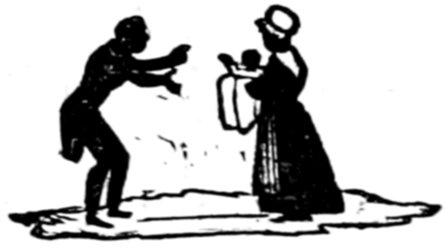
A PRESENTATION COPY.
| 208 | |
| JANUARY. | [1840. |
|---|---|
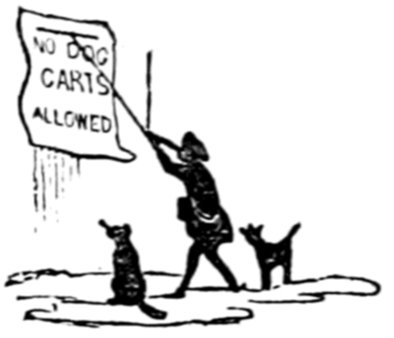
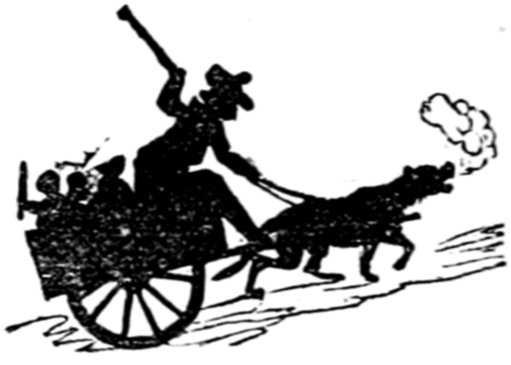
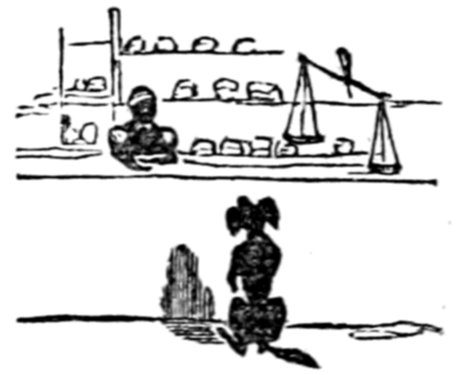
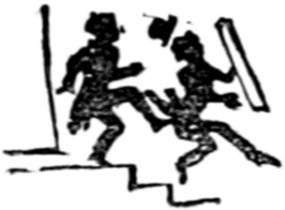
Ordered to be considered below.
On the 1st of January, 1838, I was the master of a lovely shop in the neighbourhood of Oxford market; of a wife, Mrs. Cox; of a business, both in the shaving and cutting line, established three-and-thirty years; of a girl and boy respectively of the ages of eighteen and thirteen; of a three-windowed front, both to my first and second pair; of a young foreman, my present partner, Mr. Orlando Crump; and of that celebrated mixture for the human hair, invented by my late uncle, and called Cox's Bohemian Balsam of Tokay, sold in pots at two-and-three, and three-and-nine; the balsam, the lodgings, and the old-established cutting and shaving business, brought me in a pretty genteel income. I had had my girl, Jemimarann, at Hackney, to school; my dear boy, Tuggeridge, plaited hair already beautifully; my wife at the counter (behind the tray of patent soaps, &c.) cut as handsome a figure as possible; and it was my hope that Orlando and my girl, who were mighty soft upon one another, would, one day, be joined together in Hyming: and, conjointly with my son Tug, carry on the business of hairdressers, when their father was either dead or a gentleman; for a gentleman me and Mrs. C. determined I should be.
Jemima was, you see, a lady herself, and of very high connexions: though her own family had met with crosses, and was rather low. Mr. Tuggeridge, her father, kept the famous tripe-shop, near the Pigtail and Sparrow, in the Whitechapel Road, from which place I married her; being myself very fond of the article, and especially when she served it to me—the dear thing!
Jemima's father was not successful in business: and I married her, I am proud to confess it, without a shilling. I had my hands, my house, and my Bohemian balsam to support her!—and we had hopes from her uncle, a mighty rich East India merchant, who, having left this country sixty years ago, had arrived to be the head of a great house in India, and was worth millions, we were told.
Three years after Jemimarann's birth (and two after the death of my lamented father-in-law), Tuggeridge (head of the great house of Budgurow and Co.), retired from the management of it; handed over his shares to his son, Mr. John Tuggeridge, and came to live in England, at Portland Place and Tuggeridgeville, Surrey, and enjoy himself. Soon after, my wife took her daughter in her hand and went, as in duty bound, to visit her uncle; but whether it was that he was proud and surly, or she somewhat sharp in her way (the dear girl fears nobody, let me have you to know), a desperate quarrel took place between them; and from that day to the day of his death he never set eyes on her. All that he would condescend to do was to take a few dozen of lavender water from us in the course of the year, and to send his servants to be cut and shaved by us. All the neighbours laughed at this poor ending of our expectations, for Jemmy had bragged not a little; however, we did not care, for the connexion was always a good one, and we served Mr. Hock, the valet; Mr. Bar, the coachman; and Mrs. Breadbasket, the housekeeper, willingly enough. I used to powder the footman, too, on great days, but never in my life saw old Tuggeridge, except once; when he said, "O, the barber!" tossed up his nose, and passed on.
One day—one famous day last January—all our market was thrown into a high state of excitement by the appearance of no less than three vehicles at our establishment. As me, Jemmy, my daughter, Tug, and Orlando, were sitting in the back parlour over our dinner (it being Christmas time, Mr. Crump had treated the ladies to a bottle of port, and was longing that there should be a mistletoe bough; at which proposal my little Jemimarann looked as red as a glass of negus):—we had just, I say, finished the port, when, all of a sudden, Tug bellows out, "Law, pa, here's uncle Tuggeridge's housekeeper in a cab!"
And Mrs. Breadbasket it was, sure enough—Mrs. Breadbasket in deep mourning, who made her way, bowing and looking very sad, into the back shop. My wife, who respected Mrs. B. more than anything else in the world, set her a chair, offered her a glass of wine, and vowed it was very kind of her to come. "Law, mem," says Mrs. B., "I'm sure I'd do anything to serve your family, for the sake of that poor dear Tuck-Tuck-tug-guggeridge, that's gone."
210"That's what?" cries my wife.
"What, gone?" cried Jemimarann, bursting out crying (as little girls will about anything or nothing); and Orlando looking very rueful, and ready to cry too.
"Yes, gaw——" Just as she was at this very "gaw," Tug roars out, "Law pa! here's Mr. Bar, uncle Tug's coachman!"
It was Mr. Bar: when she saw him Mrs. Breadbasket stepped suddenly back into the parlour with my ladies. "What is it, Mr. Bar?" says I; and, as quick as thought, I had the towel under his chin, Mr. Bar in the chair, and the whole of his face in a beautiful foam of lather: Mr. Bar made some resistance. "Don't think of it, Mr. Cox," says he; "don't trouble yourself, sir;" but I lathered away and never minded. "And what's this melancholy event, sir," says I, "that has spread desolation in your family's bosoms? I can feel for your loss, sir—I can feel for your loss."
I said so out of politeness, because I served the family, not because Tuggeridge was my uncle—no, as such I disown him.
Mr. Bar was just about to speak. "Yes, sir," says he, "my master's gaw——" When at the "gaw" in walks Mr. Hock, the own man!—the finest gentleman I ever saw.
"What, you here, Mr. Bar?" says he.
"Yes, I am, sir; and haven't I a right, sir?"
"A mighty wet day, sir," says I to Mr. Hock, stepping up and making my bow. "A sad circumstance too, sir—and is it a turn of the tongs that you want to-day, sir? Ho, there! Mr. Crump!"
"Turn, Mr. Crump, if you please, sir," said Mr. Hock, making a bow; "but from you, sir, never, no never, split me!—and I wonder how some fellows can have the insolence to allow their MASTERS to shave them!" With this Mr. Hock flung himself down to be curled: Mr. Bar suddenly opened his mouth in order to reply; but, seeing there was a tiff between the gentlemen, and wanting to prevent a quarrel, I rammed the "Advertiser" into Mr. Hock's hands, and just popped my shaving brush into Mr. Bar's mouth—a capital way to stop angry answers.
Mr. Bar had hardly been in the chair a second, when whirr comes a hackney-coach to the door, from which springs a gentleman in a black coat with a bag.
"What, you here?" says the gentleman. I could not help smiling, for it seemed that everybody was to begin by saying, "What, you here?" "Your name is Cox, sir," says he; smiling, too, as the very pattern of mine. "My name, sir, is Sharpus—Blunt, Hone, and Sharpus, Middle Temple-lane,—and I am proud to salute you, sir; happy,—that is to say, sorry to say, that Mr. Tuggeridge, of Portland Place, is dead, and your lady is heiress, in consequence, to one of the handsomest properties in the kingdom."
At this I started, and might have sunk to the ground, but for my hold of Mr. Bar's nose; Orlando seemed putrified to stone, with his irons fixed to Mr. Hock's head; our respective patients gave a wince out:—Mrs. C., Jemimarann, and Tug, rushed from the back shop, and we formed that splendid tableau which the great Cruikshank has here depicted!
"And Mr. John Tuggeridge, sir?" says I.
"Why—hee, hee, hee!" says Mr. Sharpus; "surely you know that he was only the—hee, hee, hee!—the natural son!"
You now can understand why the servants from Portland Place had been so eager to come to us: one of the housemaids heard Mr. Sharpus say there was no will, and that my wife was heir to the property, and not Mr. John Tuggeridge: this she told in the housekeeper's room; and off, as soon as they heard it, the whole party set, in order to be the first to bear the news.
We kept them, every one, in their old places; for, though my wife would have sent them about their business, my dear Jemimarann just hinted, "Mamma, you know they have been used to great houses, and we have not; had we not better keep them for a little?"—Keep them then, we did, to show us how to be gentlefolks.
I handed over the business to Mr. Crump without a single farthing of premium, though Jemmy would have made me take four hundred pounds for it; but this I was above: Crump had served me faithfully, and have the shop he should.
| 211 | |
| FEBRUARY. | [1840. |
|---|---|
My dear Friend,—I write you this letter to explain to you why you have next to nothing to pay for it. The Government has settled the business; and the Chancellor of the Exchequer has resolved to set his revenue a going by the Post. We are to pay a penny for a letter, which is expected to have upon it the stamp of the Post Office, and of public approbation at the same time. I hardly think it will. Some of the community are looking dull about it already. There is a pence-ive air about the two—I beg pardon, the—one penny postmen, which strikes every one. They intimate that it is gammon to load a man with an additional hundredweight of paper, and to call that a reduction of public duty. It clearly affects people of that stamp; and the public surmise it may even touch the Newspapers. In short, they say that the Times will be quite altered by the Post. Ladies generally seem to like the idea, but there is a visible depression in the mails. Many a coachman has been thrown off his guard, and surprised into a most determined alteration of carriage. The Government will be a political mid-wife, engaged in an everlasting delivery. London is already afflicted with a metropolitan rheumatism, produced by the introduction of fresh draughts into passages, the carpenters having cut holes in all the street-doors. Sanguine people, however, retain their knockers, in the hope of getting the reward offered for the discovery of perpetual motion! They say there is to be an issue of more than a million of letters a day; but men are a little at issue about this. There must be some truth in it, however, as two thousand counters have been engaged,—one thousand to count them, and the other to count them upon. Sorters of all sorts are employed. At the Post Offices, at all hours, the pigeon holes will be surrounded by carriers. The poor fellows will be like muskets, perpetually going off. Rowland Hill has invented this scheme; but the postmen do not complain of him so much as of the other hills they must trudge over with their great bags of letters. The only district there is any contention for is Bag shot heath, once famous for highwaymen; they say, however, that we are all highwaymen now, and do nothing but make them "stand and deliver" from morning till night. Some mercantile quarrels have sprung out of the new regulation. For instance, there is a good deal of milling among the paper-makers. The march of paper will be prodigious—the French say we shall have none left, that it will be all papier marché! Men, women, and children are to write—right or wrong. Enjoinments to this duty—now the other duty is off—press from all quarters. "Be sure you send me plenty of notes," says the son, departing for College. "Write to me often, Billy, do," asks the affectionate mother of her school-going child. Love-letters, containing mutual pledges, will be popped into the post by thousands; and hearts gone passed redemption will be slipped recklessly through a hole in the door. It is uncertain whether orators will not cease spouting, and singers write the notes which they formerly would have uttered. Ironmongers are looking up—and forgery is going on famously—in consequence of the great demand for steam steal pens. Manifold-writers are quite exhausted. I confess, I do not like the system myself—as it's Hill's, it has its ills; any good in it will appear on an examination—
We were speedily installed in our fine house: but what's a house without friends? Jemmy made me cut all my old acquaintances in the market, and I was a solitary being, when, luckily, an old acquaintance of ours, Captain Tagrag, was so kind as to promise to introduce us into distinguished society. Tagrag was the son of a baronet, and had done us the honour of lodging with us for two years; when we lost sight of him, and of his little account, too, by the way. A fortnight after, hearing of our good fortune, he was among us again, however; and Jemmy was not a little glad to see him, knowing him to be a baronet's son, and very fond of our Jemimarann; indeed, Orlando (who is as brave as a lion) had, on one occasion, absolutely beaten Mr. Tagrag for being rude to the poor girl; a clear proof, as Tagrag said afterwards, that he was always fond of her.
Mr. Crump, poor fellow, was not very much pleased by our good fortune, though he did all he could to try, at first; and I told him to come and take his dinner regular, as if nothing had happened. But to this Jemima very soon put a stop, for she came very justly to know her stature, and to look down on Crump, which she bid her daughter to do; and, after a great scene, in which Orlando showed himself very rude and angry, he was forbidden the house—for ever!
So much for poor Crump. The Captain was now all in all with us. "You see, sir," our Jemmy would say, "we shall have our town and country mansion, and a hundred and thirty thousand pounds in the funds to leave between our two children; and, with such prospects, they ought surely to have the first society of England." To this Tagrag agreed, and promised to bring us acquainted with the very pink of the fashion; ay, and what's more, did.
First, he made my wife get an opera-box, and give suppers on Tuesdays and Saturdays. As for me, he made me ride in the park; me and Jemimarann, with two grooms behind us, who used to laugh all the way, and whose very beards I had shaved. As for little Tug, he was sent straight off to the most fashionable school in the kingdom, the Rev. Doctor Pigney's, at Richmond.
Well, the horses, the suppers, the opera-box, the paragraphs in the papers about Mr. Coxe Coxe (that's the way, double your name, and stick an 'e' to the end of it, and you are a gentleman at once), had an effect in a wonderfully short space of time, and we began to get a very pretty society about us. Some of old Tug's friends swore they would do anything for the family, and brought their wives and daughters to see dear Mrs. Cox and her charming girl; and when, about the first week in February, we announced a grand dinner and ball, for the evening of the twenty-eighth, I assure you there was no want of company; no, nor of titles neither; and it always does my heart good even to hear one mentioned.
Let me see, there was, first, my Lord Dunbooze, an Irish peer, and his seven sons, the Honourable Messieurs Trumper (two only to dinner); there was Count Mace, the celebrated French nobleman, and his Excellency Baron Von Punter, from Baden; there was Lady Blanch Bluenose, the eminent literati, author of "The Distrusted," "The Distorted," "The Disgusted," "The Disreputable One," and other poems; there was the Dowager Lady Max, and her daughter, the Honourable Miss Adelaide Blueruin; Sir Charles Codshead, from the City; and Field-Marshal Sir Gorman O'Gallagher, K.A., K.B., K.C., K.W., K.X., in the service of the republic of Guatemala: my friend Tagrag, and his fashionable acquaintance, little Tom Tufthunt, made up the party; and when the doors were flung open, and Mr. Hock, in black, with a white napkin, three footmen, coachman, and a lad, whom Mrs. C. had dressed in sugar-loaf buttons, and called a page, were seen round the dinner-table, all in white gloves, I promise you I felt a thrill of elation, and thought to myself—Sam Cox, Sam Cox, who ever would have expected to see you here?
After dinner, there was to be, as I said, an evening party; and to this Messieurs Tagrag and Tufthunt had invited many of the principal nobility that our metropolis has produced. When I mention, among the company to tea, her Grace the Duchess of Zero, her son the Marquis of Fitzurse, and the Ladies North Pole, her daughters; when I say that there were yet others, whose names may be found in the Blue Book, but shan't, out of modesty, be mentioned here, I think I've said enough to show that, in our time, No. 96, Portland Place, was the resort of the best company.
213It was our first dinner, and dressed by our new cook, Munseer Cordongblew. I bore it very well, eating, for my share, a filly dysol allamater dotell, a cutlet soubeast, a pully bashymall, and other French dishes: and, for the frisky sweet wine, with tin tops to the bottles, called Champang, I must say that me and Mrs. Coxe-Tuggeridge-Coxe drank a very good share of it (but the Claret and Jonnysberger, being sour, we did not much relish); however, the feed, as I say, went off very well, Lady Blanch Bluenose sitting next to me, and being so good as to put me down for six copies of all her poems; the Count and Baron Von Punter engaging Jemimarann for several waltzes, and the Field-Marshal plying my dear Jemmy with Champang until, bless her! her dear nose became as red as her new crimson satin gown, which, with a blue turban and Bird-of-Paradise feathers, made her look like an Empress, I warrant.
Well, dinner past, Mrs. C. and the ladies went off:—thunder-under-under came the knocks at the door; squeedle-eedle-eedle, Mr. Wippert's fiddlers began to strike up; and, about half-past eleven, me and the gents thought it high time to make our appearance. I felt a little squeamish at the thought of meeting a couple of hundred great people; but Count Mace, and Sir Gorman O'Gallagher taking each an arm, we reached, at last, the drawing-room.
The young ones in company were dancing, and the Duchess and the great ladies were all seated, talking to themselves very stately, and working away at the ices and macaroons. I looked out for my pretty Jemimarann amongst the dancers, and saw her tearing round the room along with Baron Punter, in what they call a gallypard; then I peeped into the circle of the Duchesses, where, in course, I expected to find Mrs. C.; but she wasn't there! She was seated at the farther end of the room, looking very sulky; and I went up, and took her arm, and brought her down to the place where the Duchesses were. "O, not there!" said Jemmy, trying to break away. "Nonsense, my dear," says I, "you are Missis, and this is your place:"—then, going up to her Ladyship the Duchess, says I, "Me and my Missis are most proud of the honour of seeing of you."
The Duchess (a tall red-haired grenadier of a woman) did not speak.
I went on. "The young ones are all at it, ma'am, you see: and so we thought we would come and sit down among the old ones. You and I, ma'am, I think, are too stiff to dance."
"Sir?" says her Grace.
"Ma'am," says I, "don't you know me? my name's Cox—nobody's introduced me; but, dash it, it's my own house, and I may present myself—so give us your hand, ma'am."
And I shook hers in the kindest way in the world: but, would you believe it? the old cat screamed as if my hand had been a hot 'tater. "Fitzurse! Fitzurse!" shouted she; "help! help!" Up scuffled all the other Dowagers—in rushed the dancers. "Mamma! mamma!" squeaked Lady Julia North Pole. "Lead me to my mother," howled Lady Aurorer; and both came up and flung themselves into her arms. "Wawt's the raw?" said Lord Fitzurse, sauntering up quite stately.
"Protect me from the insults of this man," says her Grace. "Where's Tufthunt? he promised that not a soul in this house should speak to me."
"My dear Duchess," said Tufthunt, very meek.
"Don't Duchess me, sir. Did you not promise they should not speak; and hasn't that horrid tipsy wretch offered to embrace me? Didn't his monstrous wife sicken me with her odious familiarities? Call my people, Tufthunt! Follow me, my children!"
"And my carriage; and mine, and mine!" shouted twenty more voices; and down they all trooped to the hall: Lady Blanch Bluenose, and Lady Max among the very first; leaving only the Field-Marshal, and one or two men, who roared with laughter ready to split.
"O, Sam," said my wife, sobbing, "why would you take me back to them? they had sent me away before! I only asked the Duchess whether she didn't like rum-shrub better than all your Maxarinos and Curasosos: and, would you believe it? all the company burst out laughing; and the Duchess told me just to keep off, and not speak till I was spoken to. Imperence! I'd like to tear her eyes out."
And so I lo believe my dearest Jemmy would!
It was a little past the noon of a lovely day in the last Autumn, that, as I rode towards the Doncaster race-course, to enjoy an hour of its rural revelries, before the serious business of the Leger commenced, I found myself hailed by a voice, and an arm of a red silk robe de chambre, from a drawing-room window of the "Salutation." Now, when we set out in prepense search of adventure, it don't require the song of the Syrens to induce us to luff up to a hail. Turning under the gateway, therefore, I dismounted, and taking my way upstairs, made the apartment for which I was bound, with but little difficulty. The chamber was, certainly, not the worst specimen I had ever seen of the unfortunate world whereof it formed an item. The appointments combined no ordinary degree of comfort and elegance, while a table, placed at one of the windows, was stocked after a manner that would have done honour to the corporation of Bristol. Among various plats, consisting of cold partridges, French patés, devil'd grouse, and varieties of choice fruit, arose the graceful forms of tapering flasks, eloquent of many a rare and precious vintage. The lord or all, arrayed in a robe of scarlet silk, lined with purple of a like material, lay, dishevelled, in Sybarite indulgence, upon a sofa adjoining this teeming board. "Couchant," I knew him not; but as he rose to receive me, there, in that silk attire, stood confessed the worthy, a fragment of whose biography I am now in the act of perpetuating—the veritable hero of these presents, even Tom the Devil himself. As my acquaintance with him at the time (and indeed in all subsequent experience) was of a very desultory character, this introduction of him to the reader must be of a similar nature. Ireland was the land of his birth; but the particulars of his parentage were less definitely ascertained. I was assured he had an uncle (from an episode in his life that it is not convenient here to enter upon), and, indeed, he himself admitted that he was in the habit of frequent intercourse with a person distinguished by that appellation. However, for our present purpose, it is enough that he was an eccentric, endowed with little of the tedious coherence of the merely common-place. When we laugh at the samples of his compatriots, put before us by the playwright and the actor, we regard them as pleasant burlesques, cleverly, though unnaturally, got up. Reader! if haply thou hast had no personal experience of Erin as it is, permit me to offer thee this characteristic fragment.
"Ould fellow," said the fiend, clutching my hand in a monstrous horny fist, "by my sowl, I'm grately plazed to meet ye in these parts: when did ye come to Doncaster? and where do ye hang out? and how long do ye stop?" "Came by the Edinburgh mail yesterday morning; at my old lodgings at the saddler's, nearly opposite the Rooms: leave for town to-morrow," said I. "That's a nate way of doing business, sure enough," was the commentary; "ounly I can't larn the sinse of going to a private lodging, where, if you ordher a kidney for breakfast, you're expected to fork out to the butcher. See how I carry on the war, and never hard the ghost of an inquiry about coin sense I sot fut in the house. A hotel's the place for me! I've thried 'em all, from the Club-house at Kilkinny to the Clarendon, and, by the holy poker, never wish mysilf worse luck than such cantonments! Arrah! what more does a man require than a place where, if he wants a bottle of claret, all he has to do is to ring the bell for it? Dine with me to-night," continued the social economist; "they put you to trough very respectably in this same shop: ask, and have, that's the ticket." I declined, with thanks; urging a 215previous engagement, and made a demonstration of leave-taking.—"Fill a bumper of sparkling burgundy before you go, any how," said my hospitable host; "you'll find it a gentlemanly morning tipple! if this be war, may we never have pace; here's to our next merry meeting, and may we never know the want of oceans of wine, plantations of tobacco, cart-loads of pipes, lots of purty girls, and a large room to swear in.—Farewell."
About a fortnight after the date to which the foregoing refers, chance placed me in Dublin, and the coffee-room of Morisson's hotel, towards eight, P.M., with the remnant of a bottle of Sneyd and Barton's "twenty-two" before me. With his back to one of the fires stood what had all the outward appearance of a scare-crow—a figure made up of a coat that no respectable old clothesman would degrade his bag withal, and a superlatively "shocking bad hat." The waiters were eyeing it in a most suspicious manner, and I was wondering why they didn't kick it into the street, when, to my utter amazement, the "horrible illusion" stalked towards the place where I sat, and, in accents familiar to my ear, wheezed out, "Ould fellow, by my sowl I'm grately plazed to meet ye in these parts!" There could be no mistake about it—Tom, it was—"sed quanto mutatus ab illo diabolo." "A chair," said I, to a waiter who was now staring at us both, like the Trojan who drew Priam's curtain—"bring a chair and another wine-glass;" and pouring a bumper, I pushed it towards my vis-à-vis. "Drink, Tom," I continued; "whatever maybe your object in this masquerading, a drain of Bordeaux will never hurt you: drink, and then, unless it's treason, leave off your damnable faces and begin." "Masquerading!" exclaimed the scurvy libel upon the Doncaster Sardanapalus, with a smile as much out of character on such a face as a rose in an undertaker's button-hole; "by the piper of Blessingtown, it's rale arnest! Unless the smell of mate be disagreeable to you after dinner, for the honour of dacency tell them to get me a few steakes without delay: I'm as full of wind as a blown blather: like my ould coat, I'm dying of the stitches." Several handsome sections of a sirloin having been disposed of, without the ceremony of oyster sauce, and a wish for materials for punch (expressed with a look of intense yearning), duly administered to, "the Devil" thus detailed his progress since our parting:—
"It's mighty nice for philosophers, on three courses and a dessert, to talk about the uses of adversity being sweet; but if they'll thry a genuine sample of it, say a can of poorhouse soup (biling dish-wather, flavoured with a farthing rushlight to the gallon), perhaps they would alther their opinions a leetle. However, there's no need for these reflections now. How did the Leger serve you?—I lost (that was of very little consequence)—but I didn't win, and that was, as I was entirely without funds just thin. Well, I wint to ould——'s, at night (having transmogrified what odd togs I could muster into cash, by the assistance of my father's brother), and if it had been 'vingt un,' or 'loo,' we were playing, my fortune would have been made, for I got aces by the baker's dozen. But at hazard they're not the thing: so I was turned inside out as clane as a pudden-bag—indeed rather claner, as they got out of me about four times as much as ever I contained. Whin I rose to lave the house (who was to stay there with such a run against him?), the blaggards objected to my taking my Macintosh and hat with me, bad luck to them! and so I had to return home as classically undressed as William the Third in College Green. A man without hat or coat, however, isn't so well thought of now-a-days as among the ancient Romans; and, as misfortunes never come alone, without half a score to keep them company, I found my credit at the hotel had gone to look after that which I left at ould——'s hazard-table. No gentleman should ever demane himself by running the risk of a notice to quit; so, instead of stopping at the race-ground next morning, I walked 216quietly on to Newark. It's raly a purty walk from Doncaster to Liverpool—that is to say, for those who are fond of pedesthrian exercise—I like riding better; and so I wasn't sorry whin I seen the Mersey rowling away on my right. Having left my body-coat in pledge for the last night's lodging, I had to borry one that was hanging on a stick in a pay-field, and as my shoes had given in at Norman Cross, I was not just the cut for a fashionable hotel. A bit of an ague I was lucky enough to pick up at Grantham, however, qualified me for a berth in the hospital, where I remained till I was convalescent—which manes on the brink of the grave; so I left, to save them the trouble of burying me. There's no stepping from the pier-head at Liverpool to the North Wall here, so that there was nothing left for it but an application, in form of a distriss'd Irish agriculturist, to the export committee, and they furnished me with a pass for the hould of a steamer, and a fourpenny loaf for sea-store. If our passage hadn't been a bad one, I should have done well enough; but my provision was out before we reached the Orme's Head, and I was ready to ate my brogues whin I caught sight of you. Never mind! worse luck now—better another time; as Shakspeare says—'Life's a stage, and every man plays many parts.' Anthony to-day, Scrub to-morrow."
| 218 | |
| MARCH. | [1840. |
|---|---|
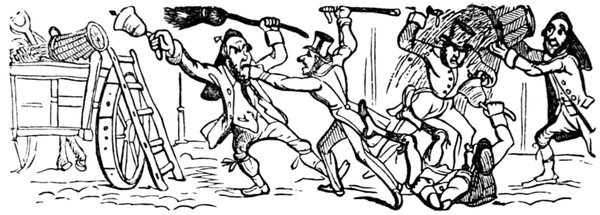
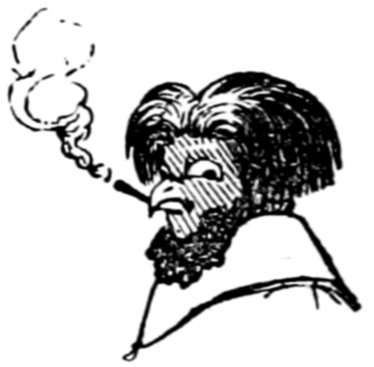
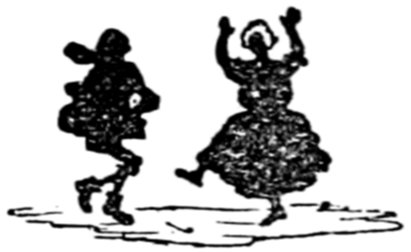
15. Animal Magnetism Exhibitions stopped at the North London Hospital.
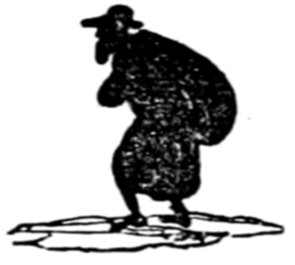
25. Gold-dust robbery. New version of "The Golden Fleece."
Our ball had failed so completely, that Jemmy, who was bent still upon fashion, caught eagerly at Tagrag's suggestion, and went down to Tuggeridgeville. If we had a difficulty to find friends in town, here there was none; for the whole county came about us, ate our dinners and suppers, danced at our balls—ay, and spoke to us too. We were great people, in fact; I a regular country gentleman; and, as such, Jemmy insisted that I should be a sportsman, and join the county hunt. "But," says I, "my love, I can't ride." "Pooh! Mr. C.," she said, "you're always making difficulties; you thought you couldn't dance a quadrille; you thought you couldn't dine at seven o'clock; you thought you couldn't lie in bed after six; and haven't you done every one of these things? You must and you shall ride!" And when my Jemmy said "must and shall," I knew very well there was nothing for it: so I sent down fifty guineas to the hunt, and, out of compliment to me, the very next week I received notice that the meet of the hounds would take place at Squashtail Common, just outside of my lodge-gates.
I didn't know what a meet was; and me and Mrs. C. agreed that it was most probable the dogs were to be fed there: however, Tagrag explained this matter to us, and very kindly promised to sell me a horse, a delightful animal of his own; which, being desperately pressed for money, he would let me have for a hundred guineas, he himself having given a hundred and fifty for it.
Well, the Thursday came; the hounds met on Squashtail Common; Mrs. C. turned out in her barouche to see us throw off; and being helped up on my chestnut horse, Trumpeter, by Tagrag and my head groom, I came presently round to join them.
Tag mounted his own horse; and as we walked down the avenue, "I thought," he said, "you told me you knew how to ride; and that you had ridden once fifty miles on a stretch!"
"And so I did," says I: "to Cambridge, and on the box too."
"On the box?" says he; "but did you ever mount a horse before?"
"Never," says I, "but I find it mighty easy."
"Well," says he, "you're mighty bold for a barber; and I like you, Coxe, for your spirit;" and so we came out of the gate.
As for describing the hunt, I own, fairly, I can't. I've been at a hunt, but what a hunt is—why the horses will go among the dogs and ride them down—why the men cry out "yooooic"—why the dogs go snuffling about in threes and fours, and the huntsman says, "Good Towler—good Betsy;" and we all of us after him, say, "Good Towler—good Betsy" in course: then, after hearing a yelp here, and a howl there, tow, row, yow, yow, yow! bursts out, all of a sudden, from three or four of them, and the chap in the velvet cap screeches out (with a number of oaths I shan't repeat here), "Hark, to Ringwood!" and then, "There he goes!" says some one; and all of a sudden, helter skelter, skurry hurry, slap bang, hooping, screeching, and hurraing, blue coats and red coats, bays and greys, horses, dogs, donkeys, butchers, baronets, dustmen, and blackguard boys, go tearing, all together, over the common after two or three of the pack that yowl the loudest. Why all this is, I can't say, but it all took place the second Thursday of last March, in my presence.
Up to this I'd kept my seat as well as the best, for we'd only been trotting gently about the field until the dogs found: and I managed to stick on very well; but directly the tow-rowing began, off went Trumpeter like a thunderbolt, and I found myself playing among the dogs like the donkey among the chickens. "Back, Mr. Coxe," holloas the huntsman; and so I pulled very hard, and cried out, Wo! but he wouldn't; and on I went galloping for the dear life. How I kept on is a wonder; but I squeezed my knees in very tight, and shoved my feet very hard into the stirrups, and kept stiff hold of the scruff of Trumpeter's neck, and looked betwixt his ears as well as ever I could, and trusted to luck, for I was in a mortal fright, sure enough, as many a better man would be in such a case, let alone a poor hairdresser.
As for the hounds, after my first riding in among them, I tell you, honestly, I never saw so much as the tip of one of their tails; nothing in this world did I see except Trumpeter's dun-coloured mane, and that I gripped firm: riding, 220by the blessing of luck, safe through the walking, the trotting, the galloping, and never so much as getting a tumble.
There was a chap at Croydon, very well known as the "Spicy Dustman," who, when he could get no horse to ride to the hounds, turned regularly out on his donkey; and on this occasion made one of us. He generally managed to keep up with the dogs, by trotting quietly through the cross roads, and knowing the country well. Well, having a good guess where the hounds would find, and the line that sly Reynolds (as they call the fox) would take, the Spicy Dustman turned his animal down the lane, from Squashtail to Cutshins Common, across which, sure enough, came the whole hunt. There's a small hedge and a remarkably fine ditch here; some of the leading chaps took both, in gallant style; others went round by a gate, and so would I, only I couldn't; for Trumpeter would have the hedge, and be-hanged to him, and went right for it.
Hoop! if ever you did try a leap! Out go your legs, out fling your arms, off goes your hat; and the next thing you feel, that is, I did, is a most tremendous thwack across the chest, and my feet jerked out of the stirrups; me left in the branches of a tree; Trumpeter gone clean from under me, and walloping and floundering in the ditch underneath. One of the stirrup-leathers had caught in a stake, and the horse couldn't get away; and neither of us, I thought, ever would have got away; but, all of sudden, who should come up the lane but the Spicy Dustman!
"Holloa!" says I, "you gent, just let us down from this here tree!"
"Lor!" says he, "I'm blest if I didn't take you for a robin."
"Let's down," says I; but he was all this time employed in disengaging Trumpeter, whom he got out of the ditch, trembling and as quiet as possible. "Let's down," says I. "Presently," says he; and taking off his coat, he begins whistling and swishing down Trumpeter's sides and saddle; and, when he had finished, what do you think the rascal did?—he just quietly mounted on Trumpeter's back, and shouts out, "Git down yourself, old Bears-grease; you've only to drop! I'll give your oss a hairing arter them 'ounds; and you, vy you may ride back my pony to Tuggeridgeweal!" And with this, I'm blest if he didn't ride away, leaving me holding, as for the dear life, and expecting every minute the branch would break.
It did break too, and down I came into the slush; and when I got out of it, I can tell you I didn't look much like the Venuses or the Apollor Belvidearis what I used to dress and titivate up for my shop-window, when I was in the hairdressing line, or smell quite so elegant as our rose-oil. Faugh! what a figure I was!
I had nothing for it but to mount the dustman's donkey (which was very quietly cropping grass in the hedge), and to make my way home; and after a weary, weary journey, I arrived at my own gate.
A whole party was assembled there. Tagrag, who had come back; their Excellencies Mace and Punter, who were on a visit; and a number of horses walking up and down before the whole of the gentlemen of the hunt, who had come in after losing their fox! "Here's Squire Coxe!" shouted the grooms. Out rushed the servants, out poured the gents of the hunt, and on trotted poor me, digging into the donkey, and everybody dying with laughter at me.
Just as I got up to the door, a horse came galloping up, and passed me; a man jumped down, and taking off a fantail-hat, came up, very gravely, to help me down.
"Squire," says he, "how came you by that there hanimal? Jist git down, will you, and give it to its howner."
"Rascal!" says I, "didn't you ride off on my horse?"
"Was there ever sich ingratitude?" says the Spicy. "I found this year oss in a pond, I saves him from drowning, I brings him back to his master, and he calls me a rascal!"
The grooms, the gents, the ladies in the balcony, my own servants, all set up a roar at this; and so would I, only I was so deucedly ashamed as not to be able to laugh just then.
And so my first day's hunting ended. Tagrag and the rest declared I showed great pluck, and want me to try again; but "no," says I, "I have been."
| 221 | |
| 1840.] | APRIL. |
|---|---|
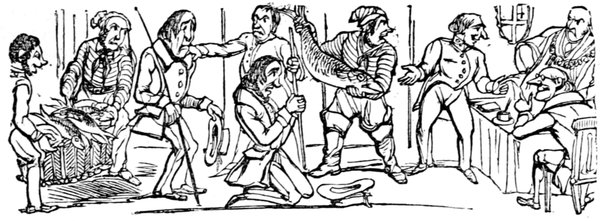
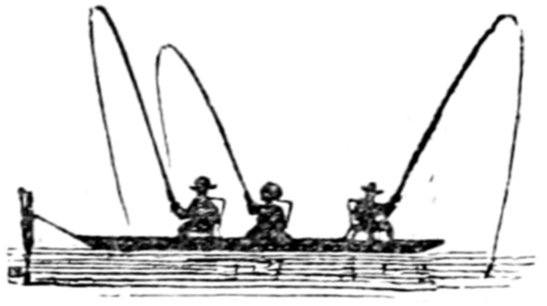

Taking to their Eels. "The Bailiffs are coming, Oh dear! oh dear!"
I was always fond of billiards: and in former days, at Grogram's, in Greek Street, where a few jolly lads of my acquaintance used to meet twice a week for a game, and a snug pipe and beer, I was generally voted the first man of the club; and could take five from John the marker himself. I had a genius, in fact, for the game; and now that I was placed in that station of life where I could cultivate my talents, I gave them full play, and improved amazingly. I do say that I think myself as good a hand as any chap in England.
The Count, and his Excellency Baron von Punter, were, I can tell you, astonished by the smartness of my play; the first two or three rubbers Punter beat me, but when I came to know his game, I used to knock him all to sticks; or, at least, win six games to his four: and such was the betting upon me: his Excellency losing large sums to the Count, who knew what play was, and used to back me. I did not play except for shillings, so my skill was of no great service to me.
One day I entered the billiard-room when these three gentlemen were high in words. "The thing shall not be done," I heard Captain Tagrag say. "I won't stand it."
"Vat, begause you would have de bird all to yourzelf, hey?" said the Baron.
"You sall not have a single fezare of him, begar," said the Count. "Ve vill blow you, M. de Taguerague; parole d'honneur, ve vill."
"What's all this, gents," says I, stepping in, "about birds and feathers?"
"Oh," says Tagrag, "we were talking about—about—pigeon-shooting. The Count, here, says he will blow a bird all to pieces at twenty yards, and I said I wouldn't stand it, because it was regular murder."
"Oh, yase, it was bidgeon-shooting," cries the Baron: "and I know no better sport. Have you been bidgeon-shooting, my dear Squire? De fon is gabidal." "No doubt," says I, "for the shooters, but mighty bad sport for the pigeon;" and this joke set them all a laughing ready to die. I didn't know then what a good joke it was, neither; but I gave Master Baron that day a precious good beating, and walked off with no less than fifteen shillings of his money.
As a sporting man, and a man of fashion, I need not say that I took in the "Flare-up," regularly; ay, and wrote one or two trifles in that celebrated publication (one of my papers, which Tagrag subscribed for me, Philo-pestitiæamicus, on the proper sauce for teal and widgeon; and the other, signed Scru-tatos, on the best means of cultivating the kidney species of that vegetable, made no small noise at the time, and got me in the paper a compliment from the editor). I was a constant reader of the Notices to Correspondents, and my early education having been rayther neglected (for I was taken from my studies and set, as is the custom in our trade, to practise on a sheep's-head at the tender age of nine years, before I was allowed to venture on the human countenance), I say, being thus curtailed and cut off in my classical learning, I must confess I managed to pick up a pretty smattering of genteel information from that treasury of all sorts of knowledge, at least sufficient to make me a match in learning for all the noblemen and gentlemen who came to our house. Well, on looking over the "Flare-up" notices to correspondents, I read, one day last April, among the notices, as follows:—
"'Automodon.' We do not know the precise age of Mr. Baker, of Covent Garden Theatre; nor are we aware if that celebrated son of Thespis is a married man.
"'Ducks and Green-peas' is informed, that when A plays his rook to B's second Knight's square, and B, moving two squares with his Queen's pawn, gives check to his adversary's Queen, there is no reason why B's Queen should not take A's pawn, if B be so inclined.
"'F. L. S.' We have repeatedly answered the question about Madame Vestris: her maiden name was Bartolozzi, and she married the son of Charles Mathews, the celebrated comedian.
"'Fair Play.' The best amateur billiard and écarté player in England, is Coxe Tuggeridge Coxe, Esq., of Portland Place, and Tuggeridgeville: Jonathan, who knows his play, can only give him two in a game of a hundred: and at the cards, no man is his superior. Verbum sap.
223"'Scipio Americanus' is a blockhead."
I read this out to the Count and Tagrag, and both of them wondered how the Editor of that tremendous Flare-up should get such information; and both agreed that the Baron, who still piqued himself absurdly on his play, would be vastly annoyed by seeing me preferred thus to himself. We read him the paragraph, and preciously angry he was. "Id is," he cried, "the tables (or 'de dabels,' as he called them), de horrid dabels; gom viz me to London, and dry a slate-table, and I vill beat you." We all roared at this; and the end of the dispute was, that, just to satisfy the fellow, I agreed to play his Excellency at slate-tables, or any tables he chose.
"Gut," says he, "gut; I lif, you know, at Abednego's, in de Quadrant; his dabels is goot; ve vill blay dere, if you vill;" and I said, I would: and it was agreed that, one Saturday night, when Jemmy was at the Opera, we should go to the Baron's rooms, and give him a chance.
We went, and the little Baron had as fine a supper as ever I saw; lots of champagne (and I didn't mind drinking it), and plenty of laughing and fun. Afterwards, down we went to billiards. "Is dish Mishter Coxsh, de shelebrated player?" says Mr. Abednego, who was in the room, with one or two gentlemen of his own persuasion, and several foreign noblemen, dirty, snuffy, and hairy, as them foreigners are. "Is dish Mishter Coxsh? blesh ma hart, it is a honer to see you, I have heard so much of your play."
"Come, come," says I, "sir;" for I'm pretty wide awake; "none of your gammon; you're not going to hook me."
"No, begar, dis fish you not catch," says Count Mace.
"Dat is gut! haw! haw!" snorted the Baron: "hook him! lieber himmel, you might dry and hook me as well. Haw! haw!"
Well, we went to play. "Fife to four on Coxe," screams out the Count.—"Done and done," says another nobleman. "Ponays," says the Count.—"Done," says the nobleman. "I vill take your six crowns to four," says the Baron.—"Done," says I; and, in the twinkling of an eye, I beat him;—once making thirteen off the balls without stopping.
We had some more wine after this; and if you could have seen the long faces of the other noblemen, as they pulled out their pencils and wrote I O U's for the Count. "Va toujours, mon cher," says he to me, "you have von for me tree hundred pounds."
"I'll blay you guineas dis time," says the Baron. "Zeven to four you must give me, though;" and so I did: and in ten minutes that game was won, and the Baron handed over his pounds. "Two hundred and sixty more, my dear, dear Coxe," says the Count; "you are mon ange gardien!" "Wot a flat Mishter Coxsh ish, not to back his luck," I heard Abednego whisper to one of the foreign noblemen.
"I'll take your seven to four, in tens," said I to the Baron. "Give me three," says he, "and done." I gave him three, and lost the game by one. "Dobbel, or quits," says he. "Go it," says I, up to my mettle; "Sam Coxe never says no;"—and to it we went. I went in, and scored eighteen to his five. "Holy Moshesh!" says Abednego, "dat little Coxsh is a vonder! who'll take odds?"
"I'll give twenty to one," says I, "in guineas."
"Ponays, yase, done," screams out the Count.
"Bonies, done," roars out the Baron: and before I could speak, went in, and, would you believe it?—in two minutes he somehow made the game!
Oh, what a figure I cut when my dear Jemmy heard of this afterwards!—In vain I swore it was guineas: the Count and the Baron swore to ponies; and when I refused, they both said their honour was concerned, and they must have my life, or their money. So when the Count showed me actually that, in spite of this bet (which had been too good to resist) won from me, he had been a very heavy loser by the night; and brought me the word of honour of Abednego, his Jewish friend, and the foreign noblemen, that ponies had been betted;—why, I paid one thousand pounds sterling of good and lawful money;—but I've not played for money since: no, no; catch me at that again, if you can.
| 224 | |
| MAY. | [1840. |
|---|---|
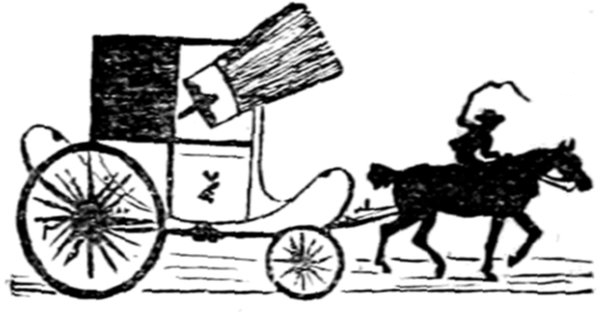
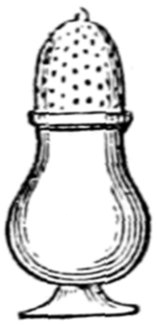
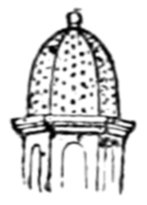
4. Exhibition of the Royal Academy opens, at the National Gallery.
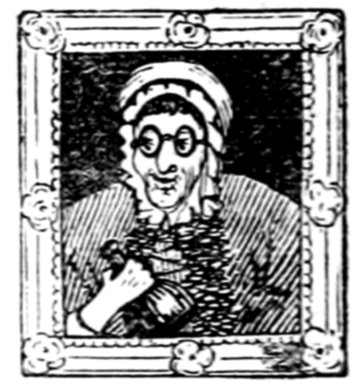
408. Portrait of the President. ☞

409. Red Deer, after Landseer.
No lady is a lady without having a box at the Opera: so my Jemmy, who knew as much about music,—bless her!—as I do about sanscrit, algebra, or any other foreign language, took a prime box on the second tier. It was what they called a double box; it really could hold two, that is, very comfortably; and we got it a great bargain—for five hundred a year! Here, Tuesdays and Saturdays we used regularly to take our places, Jemmy and Jemimarann sitting in front; me, behind: but as my dear wife used to wear a large fantail gauze hat, with ostrich feathers, birds of paradise, artificial flowers, and tags of muslin or satin, scattered all over it, I'm blest if she didn't fill the whole of the front of the box; and it was only by jumping and dodging, three or four times in the course of the night, that I could manage to get a sight of the actors. By kneeling down, and looking steady under my darling Jemmy's sleeve, I did contrive, every now and then, to have a peep of Senior Lablash's boots, in the Puritanny, and once saw Madame Greasi's crown and head-dress in Annybalony.
What a place that Opera is, to be sure! and what enjoyments us aristocracy used to have! Just as you have swallowed down your three courses (three curses I used to call them; for so, indeed, they are, causing a deal of heartburns, headaches, doctor's bills, pills, want of sleep, and such like)—just, I say, as you get down your three courses, which I defy any man to enjoy properly, unless he has two hours of drink and quiet afterwards, up comes the carriage, in bursts my Jemmy, as fine as a duchess, and scented like our shop. "Come, my dear," says she, "it's Normy to-night (or Annybalony, or the Nosey di Figaro, or the Gazzylarder, as the case may be); Mr. Coster strikes off punctually at eight, and you know it's the fashion to be always present at the very first bar of the aperture;" and so off we budge, to be miserable for five hours, and to have a headache for the next twelve, and all because it's the fashion!
After the aperture, as they call it, comes the opera, which, as I am given to understand, is the Italian for singing. Why they should sing in Italian, I can't conceive; or why they should do nothing but sing: bless us, how I used to long for the wooden magpie in the Gazzylarder, to fly up to the top of the church-steeple, and see the chaps with the pitchforks to come in and carry off that wicked Don June. Not that I don't admire Lablash, and Rubini, and his brother, Tomrubini, him who has that fine bass voice, I mean, and acts the Corporal in the first piece, and Don June in the second; but three hours is a little too much, for you can't sleep on those little rickety seats in the boxes.
The opera is bad enough; but what is that to the bally? You should have seen my Jemmy the first night when she stopped to see it; and when Madamsalls Fanny and Theresa Hustler came forward, along with a gentleman, to dance, you should have seen how Jemmy stared, and our girl blushed, when Madamsall Fanny, coming forward, stood on the tips of only five of her toes, and raising up the other five, and the foot belonging to them, almost to her shoulder, twirled round, and round, and round, like a teetotum, for a couple of minutes or more; and as she settled down, at last, on both feet, in a natural decent posture, you should have heard how the house roared with applause, the boxes clapping with all their might, and waving their handkerchiefs; the pit shouting, "Bravo!" Some people, who, I suppose, were rather angry at such an exhibition, threw bunches of flowers at her; and what do you think she did? why, hang me, if she did not come forward, as though nothing had happened, gather up the things they had thrown at her, smile, press them to her heart, and began whirling round again, faster than ever!—Talk about coolness, I never saw such in all my born days.
"Nasty thing!" says Jemmy, starting up in a fury; "if women will act so, it serves them right to be treated so."
"O, yes! she acts beautifully," says our friend, his Excellency, who, along with Baron von Punter, and Tagrag, used very seldom to miss coming to our box.
"She may act very beautifully, Munseer, but she don't dress so; and I am very glad they threw that orange-peel and all those things at her, and that the people waved to her to get off."
226Here his Excellency, and the Baron, and Tag, set up a roar of laughter. "My dear Mrs. Coxe," says Tag, "those are the most famous dancers in the world; and we throw myrtle, geraniums, and lilies, and roses, at them, in token of our immense admiration!"
"Well, I never!" said my wife; and poor Jemimarann slunk behind the curtain, and looked as red as it almost. After the one had done, the next begun; but when, all of a sudden, a somebody came skipping and bounding in, like an Indian-rubber ball, flinging itself up at least six feet from the stage, and there shaking about its legs like mad, we were more astonished than ever!
"That's Anatole," says one of the gentlemen.
"Anna who?" says my wife, and she might well be mistaken; for this person had a hat and feathers, a bare neck and arms, great black ringlets, and a little calico frock, which came down to the knees.
"Anatole; you would not think he was sixty-three years old, he's as active as a man of twenty."
"He!" shrieked out my wife; "what, is that there a man? For shame! Munseer. Jemimarann, dear, get your cloak, and come along; and I'll thank you, my dear, to call our people and let us go home."
You wouldn't think, after this, that my Jemmy, who had shown such a horror at the bally, as they call it, should ever grow accustomed to it; but she liked to hear her name shouted out in the crush-room, and so would stop till the end of everything; and, law bless you! in three weeks from that time she could look at the ballet as she would at a dancing-dog in the streets, and would bring her double-barrelled opera-glass up to her eyes as coolly as if she had been a born duchess. As for me, I did at Rome as Rome does, and precious fun it used to be, sometimes.
My friend the Baron insisted, one night, on my going behind the scenes, where, being a subscriber, he said I had what they call my ontray. Behind then I went; and such a place you never saw nor heard of! Fancy lots of young and old gents, of the fashion, crowding round and staring at the actresses practising their steps. Fancy yellow, snuffy foreigners, chattering always, and smelling fearfully of tobacco. Fancy scores of Jews, with hooked noses, and black muzzles, covered with rings, chains, sham diamonds, and gold waistcoats. Fancy old men, dressed in old night-gowns, with knock-knees, and dirty flesh-coloured cotton stockings and dabs of brickdust on their wrinkled old chops, and tow wigs (such wigs!) for the bald ones, and great tin spears in their hands, mayhap, or else shepherd's crooks, and fusty garlands of flowers, made of red and green baize! Fancy troops of girls, giggling, chattering, pushing to and fro, amidst old black canvas, Gothic halls, thrones, pasteboard Cupids, dragons, and such like; such dirt, darkness, crowd, confusion, and gabble of all conceivable languages was never known!
If you could but have seen Munseer Anatole! Instead of looking twenty, he looked a thousand. The old man's wig was off, and a barber was giving it a touch with the tongs; Munseer was taking snuff himself, and a boy was standing by, with a pint of beer from the public-house at the corner of Charles-street.
I met with a little accident, during the three-quarters of an hour which they allow for the entertainment of us men of fashion on the stage, before the curtain draws up for the bally, while the ladies in the boxes are gaping, and the people in the pit are drumming with their feet and canes in the rudest manner possible, as though they couldn't wait.
Just at the moment before the little bell rings, and the curtain flies up, and we scuffle off to the sides (for we always stay till the very last moment), I was in the middle of the stage, making myself very affable to the fair figgerantys which was spinning and twirling about me, and asking them if they wasn't cold, and such like politeness, in the most condescending way possible, when a bolt was suddenly withdrawn, and down I popped, through a trap in the stage, into the place below. Luckily, I was stopped by a piece of machinery, consisting of a heap of green blankets, and a young lady coming up as Venus rising from the sea. If I had not fallen so soft, I don't know what might have been the consequence of the collusion. I never told Mrs. Coxe, for she can't bear to hear of my paying the least attention to the fair sex.
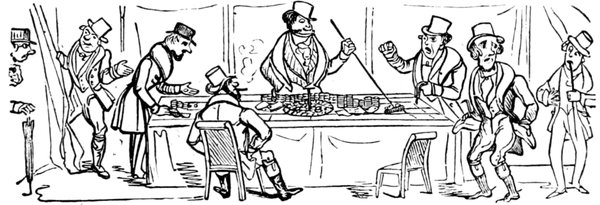
2. Epsom Races.—"Surrey for the Field."
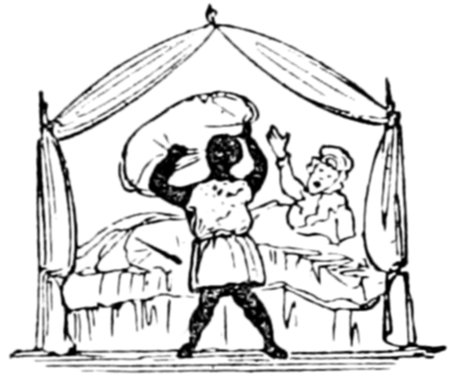
Death of Desdemona.
Foul—from the Moor.
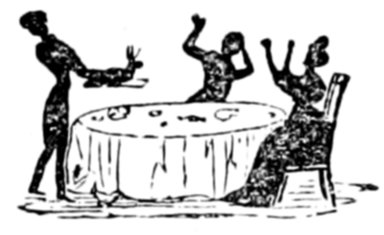
High game.
5. Boniface, (first Alderman of Port-soken?)
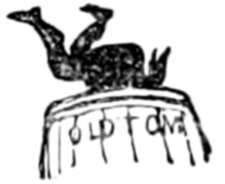
Cordial reception.
Caught in his own gin.
12. Mr. Wakley declared, that Gin was his best friend—it was equal to 1000 inquests a year.
228JUNE.—Striking a Balance.
Next door to us, in Portland-place, lived the Right Honourable the Earl of Kilblazes, of Kilmacrasy Castle, county Kildare, and his mother, the Dowager Countess. Lady Kilblazes had a daughter, Lady Juliana Matilda Mac Turk, of the exact age of our dear Jemimarann; and a son, The Honourable Arthur Wellington Anglesea Blucher Bulow Mac Turk, only ten months older than our boy, Tug.
My darling Jemmy is a woman of spirit, and, as became her station, made every possible attempt to become acquainted with the Dowager Countess of Kilblazes, which her ladyship (because, forsooth, she was the daughter of the Minister, and the Prince of Wales's great friend, the Earl of Portansherry) thought fit to reject. I don't wonder at my Jemmy growing so angry with her, and determining, in every way, to put her ladyship down. The Kilblazes' estate is not so large as the Tuggeridge property, by two thousand a-year, at least; and so my wife, when our neighbours kept only two footmen, was quite authorized in having three; and she made it a point, as soon as ever the Kilblazes' carriage-and-pair came round, to have her own carriage-and-four.
Well, our box was next to theirs at the Opera; only twice as big. Whatever masters went to Lady Juliana, came to my Jemimarann; and what do you think Jemmy did? she got her celebrated governess, Madam de Flicflac, away from the Countess, by offering a double salary. It was quite a treasure, they said, to have Madame Flicflac; she had been (to support her father, the Count, when he emigrated) a French dancer at the Italian Opera. French dancing, and Italian, therefore, we had at once, and in the best style: it is astonishing how quick and well she used to speak—the French especially.
Master Arthur Mac Turk was at the famous school of the Reverend Clement Coddler, along with a hundred and ten other young fashionables, from the age of three to fifteen; and to this establishment Jemmy sent our Tug, adding forty guineas to the hundred and twenty paid every year for the boarders. I think I found out the dear soul's reason, for, one day, speaking about the school to a mutual acquaintance of ours and the Kilblazes, she whispered to him, that "she never would have thought of sending her darling boy at the rate which her next-door neighbour paid; their lad, she was sure, must be starved: however, poor people! they did the best they could on their income."
Coddler's, in fact, was the tip-top school near London; he had been tutor to the Duke of Buckminster, who had set him up in the school, and, as I tell you, all the peerage and respectable commoners came to it. You read in the bill (the snopsis, I think Coddler called it), after the account of the charges for board, masters, extras, &c.: "Every young nobleman (or gentleman) is expected to bring a knife and fork, spoon, and goblet, of silver (to prevent breakage), which will not be returned; a dressing-gown and slippers; toilet-box, pomatum, curling-irons, &c. &c. The pupil must, on NO ACCOUNT, be allowed to have more than ten guineas of pocket-money, unless his parents particularly desire it, or he be above fifteen years of age. Wine will be an extra charge; as are warm, vapour, and douche baths; carriage exercise will be provided at the rate of fifteen guineas per quarter. It is earnestly requested that no young nobleman (or gentleman) be allowed to smoke. In a place devoted to the cultivation of polite literature, such an ignoble enjoyment were profane
To this establishment our Tug was sent. "Recollect, my dear," said his mamma, "that you are a Tuggeridge by birth, and that I expect you to beat all the boys in the school, especially that Wellington Mac Turk, who though he is a lord's son, is nothing to you, who are the heir of Tuggeridgeville."
Tug was a smart young fellow enough, and could cut and curl as well as any young chap of his age; he was not a bad hand at a wig either, and could shave, too, very prettily; but that was in the old time, when we were not great people: when he came to be a gentleman, he had to learn Latin and Greek, and had a deal of lost time to make up for on going to school.
However we had no fear; for the Reverend Mr. Coddler used to send monthly 229accounts of his pupils' progress, and if Tug was not a wonder of the world, I don't know who was. It was
| General behaviour | excellent |
| English | very good |
| French | très bien |
| Latin | optimé. |
and so on; he possessed all the virtues, and wrote to us every month for money. My dear Jemmy and I determined to go and see him, after he had been at school a quarter; we went, and were shown by Mr. Coddler, one of the meekest, smilingest little men I ever saw, into the bed-rooms and eating rooms (the dromitaries and refractories he called them), which were all as comfortable as comfortable might be. "It is a holiday to-day," said Mr. Coddler; and a holiday it seemed to be. In the dining-room were half a dozen young gentlemen playing at cards ("all tip-top nobility," observed Mr. Coddler);—in the bed-rooms there was only one gent; he was lying on his bed, reading a novel and smoking cigars. "Extraordinary genius!" whispered Coddler; "Honourable Tom Fitz-Warter, cousin of Lord Byron's; smokes all day; and has written the sweetest poems you can imagine. Genius, my dear madam, you know, genius must have its way." "Well, upon my word," says Jemmy, "if that's genus, I had rather that Master Tuggeridge Coxe Tuggeridge remained a dull fellow."
"Impossible, my dear madam." said Coddler. "Mr. Tuggeridge Coxe couldn't be stupid if he tried."
Just then up comes Lord Claude Lollypop, third son of the Marquis of Allycompane. We were introduced instantly, "Lord Claude Lollypop, Mr. and Mrs. Coxe:" the little lord wagged his head, my wife bowed very low, and so did Mr. Coddler, who, as he saw my lord making for the play-ground, begged him to show us the way.—"Come along," says my lord; and as he walked before us, whistling, we had leisure to remark the beautiful holes in his jacket and elsewhere.
About twenty young noblemen (and gentlemen) were gathered round a pastrycook's shop, at the end of the green. "That's the grub-shop," said my lord, "where we young gentlemen wot has money buys our wittles, and them young gentlemen wot has none, goes tick."
Then he passed a poor red-haired usher, sitting on a bench alone. "That's Mr. Hicks, the Husher, ma'am," says my lord, "we keep him, for he's very useful to throw stones at, and he keeps the chaps' coats when there's a fight, or a game at cricket.—Well, Hicks, how's your mother? what's the row now?" "I believe, my lord," said the usher, very meekly, "there is a pugilistic encounter somewhere on the premises—the Honourable Mr. Mac——"
"O! come along," said Lord Lollypop, "come along, this way, ma'am! Go it, ye cripples!" and my lord pulled my dear Jemmy's gown in the kindest and most familiar way, she trotting on after him, mightily pleased to be so taken notice of, and I after her. A little boy went running across the green. "Who is it, Petitoes?" screams my lord. "Turk and the barber," pipes Petitoes, and runs to the pastrycook's like mad. "Turk and the ba—," laughs out my lord, looking at us: "hurrah! this way, ma'am;" and, turning round a corner he opened a door into a court-yard, where a number of boys were collected and a great noise of shrill voices might be heard. "Go it, Turk!" says one "Go it, barber!" says another. "Punch hith life out," roars another, whose voice was just cracked, and his clothes half a yard too short for him!
Fancy our horror, when, on the crowd making way, we saw Tug pummelling away at the Honourable Master Mac Turk! My dear Jemmy, who don't understand such things, pounced upon the two at once, and, with one hand tearing away Tug, sent him spinning back into the arms of his seconds, while, with the other, she clawed hold of Master Mac Turk's red hair, and, as soon as she got her second hand free, banged it about his face and ears like a good one.
"You nasty—wicked—quarrelsome—aristocratic (each word was a bang)—aristocratic, oh! oh! oh!" Here the words stopped; for, what with the agitation, maternal solicitude, and a dreadful kick on the shins which, I am ashamed to say, Master Mac Turk administered, my dear Jemmy could bear it no longer, and sunk, fainting away, in my arms.
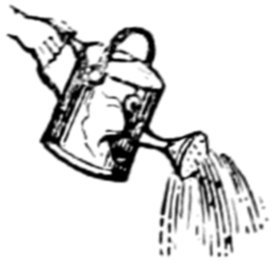
See Swithin spout
The water out;
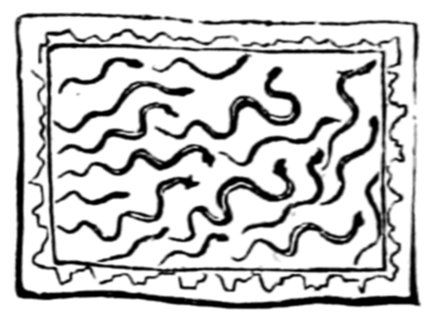
A Wiper-snake pattern
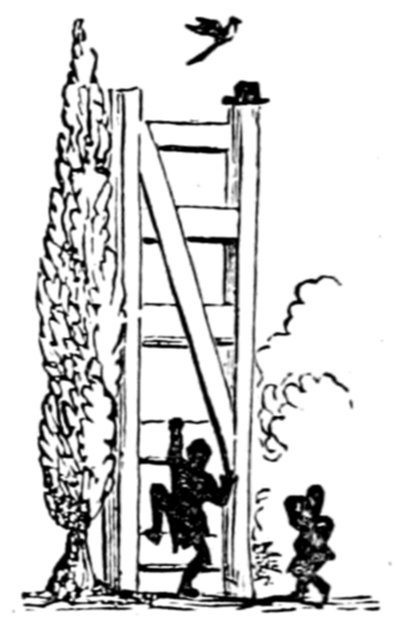
While wet sustains
Highgate.
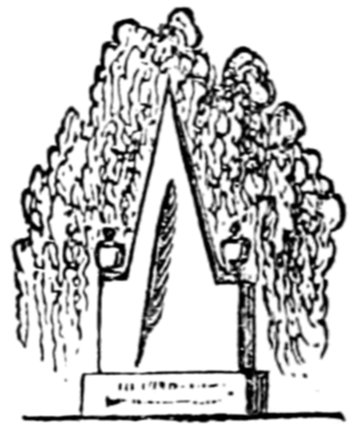
Rains and drains.
23. Newspaper born, 1588.—Editor I.
30. William Penn died, 1718.
231JULY.—Down at Beulah.
Although there was a regular cut between the next-door people and us, yet Tug and the Honourable Master Mac Turk kept up their acquaintance over the back-garden wall, and in the stables, where they were fighting, making friends, and playing tricks from morning to night, during the holidays. Indeed, it was from young Mac that we first heard of Madame de Flicflac, of whom my Jemmy robbed Lady Kilblazes, as I before have related. When our friend, the Baron, first saw Madame, a very tender greeting passed between them, for they had, as it appeared, been old friends abroad. "Sapristie," said the Baron, in his lingo, "que fais tu ici, Aménaïde?" "Et toi, mon pauvre Chicot," says she, 'est ce qu'on t'a mis à la retraite? Il parait, que tu n'est plus Général chez Franco—" "Chut!" says the Baron, putting his finger to his lips.
"What are they saying, my dear?" says my wife to Jemimarann, who had a pretty knowledge of the language by this time.
"I don't know what 'Sapristie' means, mamma; but the Baron asked Madame what she was doing here? and Madame said, 'And you, Chicot, you are no more a general at Franco.' Have I not translated rightly, Madame?"
"Oui, mon chou, mon ange; yase, my angel, my cabbage, quite right. Figure yourself, I have known my dear Chicot dis twenty years."
"Chicot is my name of baptism," says the Baron; "Baron Chicot de Punter is my name." "And, being a general at Franco," says Jemmy, "means, I suppose, being a French General?"
"Yes, I vas," said he, "General Baron de Punter, n'est il pas, Aménaïde?"
"O, yes!" said Madame Flicflac, and laughed; and I and Jemmy laughed out of politeness: and a pretty laughing matter it was, as you shall hear.
About this time my Jemmy became one of the Ladies-Patronesses of that admirable Institution, "The Washerwoman's Orphans' Home;" Lady de Sudley was the great projector of it; and the manager and chaplain, the excellent and Reverend Sidney Slopper. His salary, as chaplain, and that of Doctor Leitch, the physician (both cousins of her Ladyship's), drew away five hundred pounds from the six subscribed to the Charity: and Lady de Sudley thought a fête at Beulah Spa, with the aid of some of the foreign Princes who were in town last year, might bring a little more money into its treasury. A tender appeal was accordingly drawn up, and published in all the papers:
"APPEAL.
"BRITISH WASHERWOMAN'S ORPHANS' HOME.
"The 'Washerwoman's Orphans' Home' has now been established seven years; and the good which it has effected is, it may be confidently stated, incalculable. Ninety-eight orphan children of washerwomen have been lodged within its walls. One hundred and two British washerwomen have been relieved when in the last state of decay. One hundred and ninety-eight thousand articles of male and female dress have been washed, mended, buttoned, ironed, and mangled, in the Establishment. And, by an arrangement with the governors of the Foundling, it is hoped that the Baby-linen of that Hospital will be confided to the British Washerwoman's Home!
"With such prospects before it, is it not sad, is it not lamentable to think, that the Patronesses of the Society have been compelled to reject the applications of no less than three thousand eight hundred and one British Washerwomen, from lack of means for their support? Ladies of England! Mothers of England! to you we appeal. Is there one of you that will not respond to the cry in behalf of these deserving members of our sex?
"It has been determined by the Ladies-Patronesses to give a fête at Beulah Spa, on Thursday, July 25; which will be graced with the first foreign and native TALENT, by the first foreign and native RANK; and where they beg for the attendance of every WASHERWOMAN'S FRIEND."
Her Highness the Princess of Schloppenzollernschwigmaringen, the Duke of Sacks Tubbingen, His Excellency Baron Strumpff, His Excellency Lootf-Allee-Koolee-Bismillah-Mohamed-Rusheed-Allah, the Persian Ambassador, Prince Futtee-Jaw, Envoy from the King of Oude, His Excellency Don Alonzo Di Cachachero-y-Fandango-y-Castañete, the Spanish Ambassador, Count 232Ravioli, from Milan, the Envoy of the Republic of Topinambo, and a host of other fashionables, promised to honour the festival: and their names made a famous show in the bills.
I leave you to fancy what a splendid triumph for the British Washerwoman's Home was to come off on that day. A beautiful tent was erected, in which the Ladies-Patronesses were to meet; it was hung round with specimens of the skill of the washerwomen's orphans, ninety-six of whom were to be feasted in the gardens, and waited on by the Ladies-Patronesses.
There was a fine cold collation, to which the friends of the Ladies-Patronesses were admitted; after which, my ladies and their beaux went strolling through the walks; Tagrag and the Count having each an arm of Jemmy; the Baron giving an arm a-piece to Madame and Jemimarann. Whilst they were walking whom should they light upon but poor Orlando Crump, my successor in the perfumery and hair-cutting.
"Orlando!" says Jemimarann, blushing as red as a label, and holding out her hand.
"Jemimar!" says he, holding out his, and turning as white as pomatum.
"Sir!" says Jemmy, as stately as a Duchess.
"What! madame," says poor Crump, "don't you remember your shopboy?"
"Dearest mamma, don't you recollect Orlando?" whimpers Jemimarann.
"Miss Tuggeridge Coxe," says Jemmy, "I'm surprised of you. Remember, sir, that our position is altered, and oblige me by no more familiarity."
"Insolent fellow!" says the Baron; "vat is dis canaille?"
"Canal yourself, Mounseer," says Orlando, now grown quite furious; he broke away, quite indignant, and was soon lost in the crowd. Jemimarann, as soon as he was gone, began to look very pale and ill; and her mamma, therefore, took her to a tent, where she left her along with Madame Flicflac and the Baron; going off herself with the other gentlemen, in order to join us.
It appears they had not been seated very long when Madame Flicflac suddenly sprung up, with an exclamation of joy, and rushed forward to a friend whom she saw pass.
The Baron was left alone with Jemimarann; and, whether it was the champagne, or that my dear girl looked more than commonly pretty, I don't know; but Madame Flicflac had not been gone a minute when the Baron dropped on his knees, and made her a regular declaration.
Poor Orlando Crump had found me out by this time, and was standing by my side, listening, as melancholy as possible, to the famous Bohemian Minne-singers, who were singing the celebrated words of the poet Gothy:
They were standing with their hands in their waistcoats, as usual, and had just come to the o-o-o, at the end of the chorus of the forty-seventh stanza, when Orlando started: "That's a scream!" says he. "Indeed it is," says I; "and, but for the fashion of the thing, a very ugly scream too:" when I heard another shrill "O!" as I thought; and Orlando bolted off, crying, "By heavens, it's her voice!" "Whose voice?" says I. "Come and see the row," says Tag; and off we went, with a considerable number of people, who saw this strange move on his part. We came to the tent, and there we found my poor Jemimarann fainting; her mamma holding a smelling-bottle; the Baron, on the ground, holding a handkerchief to his bleeding nose; and Orlando squaring at him, and calling on him to fight if he dared.
My Jemmy looked at Crump very fierce. "Take that feller away," says she, "he has insulted a French nobleman, and deserves transportation, at the least."
Poor Orlando was carried off. "I've no patience with the little minx," says Jemmy, giving Jemimarann a pinch. "She might be a Baron's lady; and she screams out because his Excellency did but squeeze her hand."
"Oh, mamma! mamma!" sobs poor Jemimarann, "but he was t-t-tipsy."
"T-t-tipsy! and the more shame for you, you hussy, to be offended with a nobleman who does not know what he is doing."
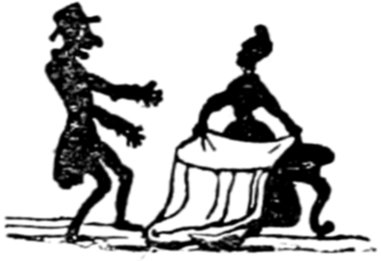
17. Metropolitan Police Bill passed.
29. Eglintoun Tournament.
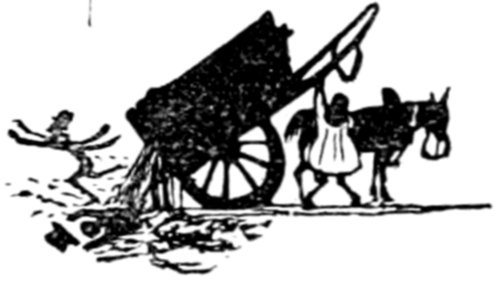
Running a-muck.
"I say, Tug," said Mac Turk, one day, soon after our flare-up at Beulah, "Kilblazes comes of age in October, and then we'll cut you out, as I told you: the old barberess will die of spite when she hears what we are going to do. What do you think? we're going to have a tournament!" "What's a tournament?" says Tug, and so said his mamma, when she heard the news; and when she knew what a tournament was, I think, really, she was as angry as Mac Turk said she would be, and gave us no peace for days together. "What!" says she, "dress up in armour, like play-actors, and run at each other with spears? the Kilblazes must be mad!" And so I thought, but I didn't think the Tuggeridges would be mad too, as they were; for, when Jemmy heard that the Kilblazes festival was to be, as yet, a profound secret, what does she do but send down to the Morning Post a flaming account of
"The days of chivalry are not past. The fair Castellane of T-gg-r-dgeville, whose splendid entertainments have so often been alluded to in this paper, has determined to give one which shall exceed in splendour even the magnificence of the middle ages. We are not at liberty to say more; but a tournament, at which His Ex—l—ncy B-r-n de P-nt-r, and Thomas T-gr-g, Esq., eldest son of Sir Th—s T-gr-g, are to be the knights-defendants against all comers; a Queen of Beauty, of whose loveliness every frequenter of fashion has felt the power; a banquet, unexampled in the annals of Gunter; and a ball, in which the recollections of ancient chivalry will blend sweetly with the soft tones of Weippert and Collinet, are among the entertainments which the Ladye of T-gg-ridgeville has prepared for her distinguished guests."
And now—O that I had twenty pages, instead of these miserable two, to describe the wonders of the day!—Twenty-four knights came from Ashley's, at two guineas a-head. We were in hopes to have had Miss Woolcombe, in the character of Joan of Arc, but that lady did not appear. We had a tent for the challengers, at each side of which hung what they called escoachings (like hatchments, which they put up when people die), and underneath sat their pages, holding their helmets for the tournament. Tagrag was in brass armour (my city connexions got him that famous suit); his Excellency in polished steel. My wife wore a coronet, modelled exactly after that of Queen Catharine, in Henry V.; a tight gilt jacket, which set off dear Jemmy's figure wonderfully, and a train of at least forty feet. Dear Jemimarann was in white, her hair braided with pearls. Madame de Flicflac appeared as Queen Elizabeth; and Lady Blanche Bluenose as a Turkish princess. An alderman of London, and his lady; two magistrates of the county, and the very pink of Croydon; several Polish noblemen; two Italian Counts (besides our Count); one hundred and ten young officers, from Addiscombe College, in full uniform, commanded by Major-General Sir Miles Mulligatawney, K.C.B., and his lady; the Misses Pimminy's Finishing Establishment, and fourteen young ladies, all in white; the Reverend Doctor Wapshot, and forty-nine young gentlemen, of the first families, under his charge; were some only of the company. I leave you to fancy that, if my Jemmy did seek for fashion, she had enough of it on this occasion. They wanted me to have mounted again, but my hunting day had been sufficient; besides, I ain't big enough for a real knight: so, as Mrs. Coxe insisted on my opening the Tournament—and I knew it was in vain to resist—the Baron and Tagrag had undertaken to arrange so that I might come off with safety, if I came off at all. They had procured, from the Strand Theatre, a famous stud of hobby-horses, which they told me had been trained for the use of the great Lord Bateman. I did not know exactly what they were till they arrived; but as they had belonged to a Lord, I thought it was all right, and consented; and I found it the best sort of riding, after all, to appear to be on horseback and walk safely a-foot at the same time, and it was impossible to come down as long as I kept on my own legs; besides, I could cuff and pull my steed about as much as I liked, without fear of his biting or kicking in return. As Lord of the Tournament, they placed in my hands a lance, ornamented spirally, in blue and gold. I 235thought of the pole over my old shop-door, and almost wished myself there again, as I capered up to the battle in my helmet and breastplate, with all the trumpets blowing and drums beating at the time. Captain Tagrag was my opponent, and preciously we poked each other, till prancing about, I put my foot on my horse's petticoat behind, and down I came, getting a thrust from the Captain, at the same time, that almost broke my shoulder-bone. "This was sufficient," they said, "for the laws of chivalry;" and I was glad to get off so.
After that, the gentlemen riders, of whom there were no less than seven, in complete armour, and the professionals, now ran at the ring; and the Baron was far, far the most skilful.
"How sweetly the dear Baron rides," said my wife, who was always ogling at him, smirking, smiling, and waving her handkerchief to him. "I say, Sam," says a professional to one of his friends, as, after their course, they came cantering up, and ranged under Jemmy's bower, as she called it;—"I say, Sam, I'm blowed if that chap in harmer musn't have been one of hus." And this only made Jemmy the more pleased; for the fact is, the Baron had chosen the best way of winning Jemimarann by courting her mother.
The Baron was declared conqueror at the ring; and Jemmy awarded him the prize, a wreath of white roses, which she placed on his lance; he receiving it gracefully, and bowing, until the plumes of his helmet mingled with the mane of his charger, which backed to the other end of the lists, and then, galloping back to the place where Jemimarann was seated, he begged her to place it on his helmet: the poor girl blushed very much, and did so. As all the people were applauding, Tagrag rushed up, and, laying his hand on the Baron's shoulder, whispered something in his ear, which made the other very angry, I suppose, for he shook him off violently. "Chacun pour soi," says he, "Monsieur de Taguerague;" which means, I am told, "every man for himself."
After this came the "Passage of Arms." Tagrag and the Baron run courses against the other champions; ay, and unhorsed two a-piece; whereupon the other three refused to turn out; and preciously we laughed at them, to be sure!
"Now, it's our turn, Mr. Chicot," says Tagrag, shaking his fist at the Baron: "look to yourself, you infernal mountebank, for, by Jupiter! I'll do my best;" and before Jemmy and the rest of us, who were quite bewildered, could say a word, these two friends were charging away, spears in hand, ready to kill each other. In vain Jemmy screamed; in vain I threw down my truncheon: they had broken two poles before I could say "Jack Robinson," and were driving at each other with the two new ones. The Baron had the worst of the first course, for he had almost been carried out of his saddle. "Hark you, Chicot!" screamed out Tagrag, "next time look to your head;" and, next time, sure enough, each aimed at the head of the other.
Tagrag's spear hit the right place; for it carried off the Baron's helmet, plume, rose-wreath and all; but his Excellency hit truer still—his lance took Tagrag on the neck, and sent him to the ground like a stone.
"He's won! he's won!" says Jemmy, waving her handkerchief; Jemimarann fainted, Lady Blanche screamed, and I felt so sick that I thought I should drop. All the company were in an uproar; only the Baron looked calm, and bowed very gracefully, and kissed his hand to Jemmy; when, all of a sudden, a Jewish-looking man, springing over the barrier, and followed by three more, rushed towards the Baron. "Keep the gate, Bob!" he holloas out. "Baron, I arrest you, at the suit of Samuel Levison, for——"
But he never said for what; shouting out, "Aha!" and "Sapprrrristie!" and I don't know what, his Excellency drew his sword, dug his spurs into his horse, and was over the poor bailiff and off before another word: he had threatened to run through one of the bailiff's followers, Mr. Stubbs, only that gentleman made way for him; and when we took up the bailiff, and brought him round by the aid of a little brandy-and-water, he told us all. "I had writ againsht him, Mishter Coxsh, but I didn't vant to shpoil shport; and, beshidesh, I didn't know him until dey knocked off his shteel cap!"
Here was a pretty business!
| 236 | |
| SEPTEMBER. | [1840. |
|---|---|
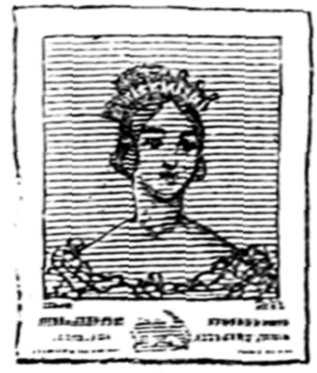
A line engraving of Her Majesty.
I'll have an excursion, a bit of desertion, September diversion, and where shall I go? If pleasure you mean, sir, at Windsor's the Queen, sir, I'd have you go in, sir, and see all the show.—At once, gay of heart, then for Windsor I start, and at Paddington see me in train to depart; and as steam's all the go, as you very well know, if we go slow to Windsor, we'll go quick to Slough.—The engine's a great 'un (at desperate rate on, 'twill speed us nor heed us, while we laugh and scoff), all happy go merry, like gunpowder, werry, as soon as it's fired the train will go off!—How rapid our pace is! I swear all the places, like horses at races, do seem to fly by! Oh! how precious quick now, and see if you're sick now, there's Ealing to cure you, so physic's my eye! See old Mr. Zitters, who dotes upon bitters, and, in the West Indies, put wormwood in shrubs: behold him alight now, to get appetite now (still bitters for ever!) at famed Wormwood Scrubs.—Here's Hanwell, where Smilem now weeps in th' Asylum; through moonshine and credit his trade cut its stick; woe followed his laughter, his wits they went after; a lunatic victim to Luna and tick!—Well now we're at Slough, and no farther need go, our raillery's over, the train has cried "wo!"—But the "bus," out and in, stows away thick and thin; dirt and clean, fat and lean, there for Windsor they pack; the sorry nags speed, very sorry indeed, with a whip at the flank and a load at the back.—Now all in a bustle, we rush to the Castle, and here comes the Queen ever smiling and gay, Hurrah! and God save her! she could not look braver; but those jockies in livery, pray who are they?—Oh! keep back your sneers, and hold in your jeers, they're her Majesty's ministers, princes, and peers. With their dingy blue jackets, and collars of red, their old Windsor uniforms, looking so dead; they might well pass for "Uniform Postmen" instead!—Now farewell and adieu to the Queen's retinue: for onward we strode, in the Royal abode, where fine ancient paintings, paraded to view, are shown by an ignorant thick-headed dunce, whose brogue murders Masters and English at once.—"Look, here is, an' plase ye, Paul-very-unaisy, and bad luck if there an't a rale Remembrant:" so if Dan did but follow the old fellow's tail, he'd be quite pleased to hear him call Raphael "Rapale!"—But it's going to rain, and although, to a man, we would have the Queen's reign be as long as it can; yet as soaking's "no go," we must rush back to Slough, where panting and gasping for breath we are dinn'd, sir—with "What is the matter? you're quite out of Wind-sir."
We had no great reason to brag of our tournyment at Tuggeridgeville: but, after all, it was better than the turn-out at Kilblazes, where poor Lord Heydownderry went about in a black velvet dressing-gown, and the Emperor Napoleon Bonypart appeared in a suit of armour, and silk stockings, like Mr. Pell's friend, in "Pickwick;" we, having employed the gentlemen from Ashley's Anti-theatre, had some decent sport for our money.
We never heard a word from the Baron, who had so distinguished himself by his horsemanship, and had knocked down (and very justly) Mr. Nabb, the bailiff, and Mr. Stubbs, his man, who came to lay hands upon him. My sweet Jemmy seemed to be very low in spirits after his departure, and a sad thing it is to see her in low spirits: on days of illness she no more minds giving Jemimarann a box on the ear, or sending a plate of muffins across a table at poor me, than she does taking her tea.
Jemmy, I say, was very low in spirits; but, one day (I remember it was the day after Captain Higgins called, and said he had seen the Baron at Boulogne), she vowed that nothing but change of air would do her good, and declared that she should die unless she went to the sea-side in France. I knew what this meant, and that I might as well attempt to resist her, as to resist Her Gracious Majesty in Parliament assembled; so I told the people to pack up the things, and took four places on board the "Grand Turk" steamer for Boulogne.
The travelling carriage, which, with Jemmy's thirty-seven boxes and my carpet-bag, was pretty well loaded, was sent on board the night before; and we, after breakfasting in Portland Place (little did I think it was the—but, poh! never mind), went down to the Custom House in the other carriage, followed by a hackney-coach and a cab, with the servants and fourteen band-boxes and trunks more, which were to be wanted by my dear girl in the journey.
The road down Cheapside and Thames Street need not be described; we saw the Monument, a memento of the wicked popish massacre of Saint Bartholomew;—why erected here I can't think, as Saint Bartholomew's is in Smithfield,—we had a glimpse of Billingsgate, and of the Mansion House, where we saw the two-and-twenty shilling coal-smoke coming out of the chimneys, and were landed at the Custom House in safety.
Fourteen porters came out, and each took a package with the greatest civility; calling Jemmy her ladyship, and me your honour; ay, and your honouring and my ladyshipping even my man and the maid in the cab.
I somehow felt all over quite melancholy at going away: "Here, my fine fellow," says I to the coachman, who was standing very respectful, holding his hat in one hand and Jemmy's jewel-case in the other, "here, my fine chap," says I, "here's six shillings for you;" for I did not care for the money.
"Six what?" says he.
"Six shillings, fellow!" shrieks Jemmy; "and twice as much as your fare."
"Feller, marm!" says this insolent coachman; "feller yourself, marm: do you think I'm a-going to kill my horses, and break my precious back, and bust my carriage, and carry you, and your kids, and your traps, for six hog?" And with this the monster dropped his hat, with my money in it, and doubling his fist, put it so very near my nose that I really thought he would have made it bleed. "My fare's heighteen shillings," says he, "haint it?—hask hany of these gentlemen."
"Why, it ain't more than seventeen and six," says one of the fourteen porters; "but, if the gen'l'man is a gen'l'man, he can't give no less than a suffering any how."
I wanted to resist, and Jemmy screamed like a Turk: but, "Holloa!" says one; "What's the row?" says another; "Come, dub up!" roars a third: and I don't mind telling you, in confidence, that I was so frightened that I took out the sovereign and gave it. My man and Jemmy's maid had disappeared by this time; they always do when there's a robbery or a row going on.
I was going after them. "Stop, Mr. Ferguson," pipes a young gentleman of about thirteen, with a red livery waistcoat that reached to his ankles, and every variety of button, pin, string, to keep it together: "Stop, Mr. Heff," says he, taking a small pipe out of his mouth, "and don't forgit the cabman."
238"What's your fare, my lad?" says I.
"Why, let's see—yes—ho!—my fare's seven-and-thirty and eightpence eggs—ackly."
The fourteen gentlemen, holding the luggage, here burst out and laughed very rudely indeed; and the only person who seemed disappointed was, I thought, the hackney-coachman. "Why, you rascal!" says Jemmy, laying hold of the boy, "do you want more than the coachman?"
"Don't rascal me, marm!" shrieks the little chap in return. "What's the coach to me? Vy, you may go in an omlibus for sixpence if you like; vy don't you go and buss it, marm? Vy did you call my cab, marm? Vy am I to come forty mile, from Scarlot Street, Po'tl'nd Place, and not git my fare, marm?"
This speech, which takes some time to write down, was made in about the fifth part of a second; and, at the end of it, the young gentleman hurled down his pipe, and, advancing towards Jemmy, doubled his fist, and seemed to challenge her to fight. My dearest girl now turned from red to be as pale as white Windsor, and fell into my arms; what was I to do? I called, "Policeman!" but a policeman wont interfere in Thames Street; robbery is licensed there: what was I to do? Oh! my heart beats when I think of what my Tug did!
As soon as this young cab chap put himself into a fighting attitude, Master Tuggeridge Coxe—who had been standing by, laughing very rudely, I thought—Master Tuggeridge Coxe, I say, flung his jacket suddenly into his mamma's face (the brass buttons made her start, and recovered her a little), and, before we could say a word, was in the ring in which we stood (formed by the porters, nine orangemen and women, I don't know how many newspaper boys, hotel cads, and old clothesmen), and, whirling about two little white fists in the face of the gentleman in the red waistcoat, who brought a great pair of black ones up to bear on the enemy, was engaged in an instant.
But, law bless you! Tug hadn't been at Richmond School for nothing; and milled away—one, two, right and left—like a little hero as he is, with all his dear mother's spirit in him: first came a crack which sent his white hat spinning over the gentleman's cab, and scattered among the crowd a vast number of things which the cabman kept in it,—such as a ball of string, a piece of candle, a comb, a whip-lash, a little warbler, a slice of bacon, &c. &c.
The cabman seemed sadly ashamed of this display, but Tug gave him no time: another blow was planted on his cheek-bone; and a third, which hit him straight on the nose, sent this rude cabman straight down to the ground.
"Brayvo, my lord!" shouted all the people around.
"I won't have no more, thank yer," said the little cabman, gathering himself up; "give us over my fare, vil yer, and let me git away?"
"What's your fare now, you cowardly little thief?" says Tug.
"Vy, then, two-and-eightpence," says he, "go along,—you know it is:" and two-and-eightpence he had; and everybody applauded Tug, and hissed the cab-boy, and asked Tug for something to drink.
I now thought our troubles would soon be over; mine were very nearly so in one sense at least; for after Mrs. Coxe, and Jemimarann, and Tug, and the maid, and valet, and valuables had been handed across, it came to my turn. I had often heard of people being taken up by a plank, but seldom of their being set down by one. Just as I was going over, the vessel rode off a little, the board slipped, and down I soused into the water. You might have heard Mrs. Coxe's shriek as far as Gravesend; it rung in my ears as I went down, all grieved at the thought of leaving her a disconsolate widder. Well, up I came again, and caught the brim of my beaver hat—though I have heard that drowning men catch at straws:—I floated, and hoped to escape by hook or by crook; and, luckily, just then I felt myself suddenly jerked by the waist-band of my whites, and found myself hauled up in air at the end of a boat-hook, to the sound of "yeho! yeho! yehoi! yehoi!" and so I was dragged aboard. I was put to bed, and had swallowed so much water that it took a very considerable quantity of brandy to bring it to a proper mixture in my inside; in fact, for some hours I was in a very deplorable state.
1. Medical Schools open.
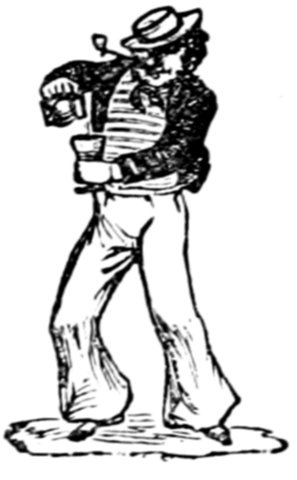
Jack and gill.
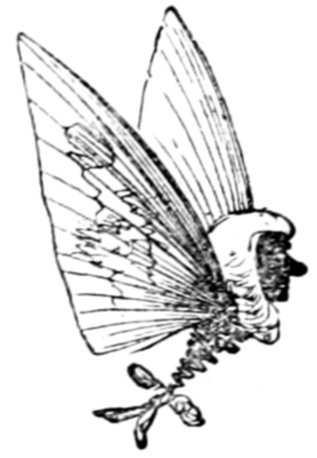
Brougham Butterfly.
22. Lord Brougham reported dead.
"The Brougham or Meadow Brown Butterfly, is seen in October, flies low, and wanders about all parts of England and Scotland. Between its wings it carries a remarkable profile of Lord Brougham. The Caterpillar is chequered in green and black squares, resembling those on plaid trousers."—Juvenile Natural History.

Heartless Hoax.
Well, we arrived at Boulogne; and Jemmy, after making inquiries, right and left, about the Baron, found that no such person was known there; and being bent, I suppose, at all events, on marrying her daughter to a lord, she determined to set off for Paris, where, as he had often said, he possessed a magnificent——, hotel he called it; and I remember Jemmy being mightily indignant at the idea; but hotel, we found afterwards, means only a house in French, and this reconciled her. Need I describe the road from Boulogne to Paris? or, need I describe that Capitol itself? Suffice it to say that we made our appearance there, at Murisse's Hotel, as became the family of Coxe Tuggeridge; and saw everything worth seeing in the metropolis in a week. It nearly killed me, to be sure; but, when you're on a pleasure party in a foreign country you must not mind a little inconvenience of this sort.
Well: there is, near the city of Paris, a splendid road and row of trees, which, I don't know why, is called the Shandeleezy, or Elysian Fields, in French: others, I have heard, call it the Shandeleery; but mine I know to be the correct pronunciation. In the middle of this Shandeleezy is an open space of ground, and a tent, where, during the summer, Mr. Franconi, the French Ashley, performs with his horses and things. As everybody went there, and we were told it was quite the thing, Jemmy agreed that we should go too; and go we did. It's just like Ashley's: there's a man just like Mr. Piddicombe, who goes round the ring in a huzzah-dress, cracking a whip; there are a dozen Miss Woolfords, who appear like Polish Princesses, Dihannas, Sultannas, Cachuchas, and heaven knows what! There's the fat man, who comes in with the twenty-three dresses on, and turns out to be the living skeleton! There's the clowns, the sawdust, the white horse that dances a hornpipe, the candles stuck in hoops, just as in our own dear country.
My dear wife, in her very finest clothes, with all the world looking at her, was really enjoying this spectacle (which doesn't require any knowledge of the language, seeing that the dumb animals don't talk it), when there came in, presently, "the great Polish act of the Sarmatian horse-tamer," on eight steeds, which we were all of us longing to see. The horse-tamer, to music twenty miles an hour, rushed in on four of his horses, leading the other four, and skurried round the ring. You couldn't see him for the sawdust, but everybody was delighted, and applauded like mad. Presently you saw there were only three horses in front; he had slipped one more between his legs, another followed, and it was clear that the consequences would be fatal, if he admitted any more. The people applauded more than ever; and when, at last, seven and eight were made to go in, not wholly, but sliding dexterously in and out, with the others, so that you did not know which was which, the house, I thought, would come down with applause; and the Sarmatian horse-tamer bowed his great feathers to the ground. At last the music grew slower, and he cantered leisurely round the ring; bending, smirking, see-sawing, waving his whip, and laying his hand on his heart, just as we have seen the Ashley's people do.
But fancy our astonishment, when, suddenly, this Sarmatian horse-tamer, coming round with his four pair at a canter, and being opposite our box, gave a start, and a—hupp! which made all of his horses stop stock-still at an instant!
"Albert!" screamed my dear Jemmy: "Albert! Bahbahbah—baron!"
The Sarmatian looked at her for a minute; and turning head over heels three times, bolted suddenly off his horses, and away out of our sight.
It was His Excellency the Baron de Punter!
Jemmy went off in a fit, as usual, and we never saw the Baron again; but we heard afterwards that Punter was an apprentice of Franconi's, and had run away to England, thinking to better himself, and had joined Mr. Richardson's army; but Mr. Richardson, and then London, did not agree with him; and we saw the last of him as he sprung over the barriers at the Tuggeridgeville tournament.
"Well, Jemimarann," says Jemmy, in a fury, "you shall marry Tagrag; and if I can't have a baroness for a daughter, at least you shall be a baronet's lady!" Poor Jemimarann only sighed; she knew it was of no use to remonstrate.
241Paris grew dull to us after this; and we were more eager than ever to go back to London; for what should we hear, but that that monster, Tuggeridge, of the city—old Tug's black son, forsooth!—was going to contest Jemmy's claim to the property, and had filed I don't know how many bills against us in Chancery! Hearing this, we set off immediately, and we arrived at Boulogne, and set off in that very same Grand Turk which had brought us to France.
If you look in the bills, you will see that the steamers leave London on Saturday morning, and Boulogne on Saturday night; so that there is often not an hour between the time of arrival and departure. Bless us! bless us! I pity the poor Captain that, for twenty-four hours at a time, is on a paddle-box, roaring out, "Ease her! Stop her!" and the poor servants, who are laying out breakfast, lunch, dinner, tea, supper;—breakfast, lunch, dinner, tea, supper again;—for layers upon layers of travellers, as it were; and, most of all, I pity that unhappy steward, with those unfortunate tin basins that he must always keep an eye over.
Little did we know what a storm was brooding in our absence, and little were we prepared for the awful, awful fate that hung over our Tuggeridgeville property.
Biggs, of the great house of Higgs, Biggs, and Blatherwick, was our man of business: when I arrived in London I heard that he had just set off to Paris after me. So we started down to Tuggeridgeville instead of going to Portland Place. As we came through the lodge-gates we found a crowd assembled within them; and there was that horrid Tuggeridge on horseback, with a shabby-looking man, called Mr. Scapgoat, and his man of business, and many more. "Mr. Scapgoat," says Tuggeridge, grinning, and handing him over a sealed paper, "here's the lease; I leave you in possession, and wish you good morning."
"In possession of what?" says the rightful lady of Tuggeridgeville, leaning out of the carriage-window. She hated black Tuggeridge, as she called him, like poison: the very first week of our coming to Portland Place, when he called to ask restitution of some plate which he said was his private property, she called him a base-born blackamoor, and told him to quit the house. Since then there had been law-squabbles between us without end, and all sorts of writings, meetings, and arbitrations.
"Possession of my estate of Tuggeridgeville, madam," roars he, "left me by my father's will, which you have had notice of these three weeks, and know as well as I do."
"Old Tug left no will," shrieked Jemmy; "he didn't die to leave his estates to blackamoors—to negroes—to base-born mulatto story-tellers; if he did, may I be——"
"Oh hush! dearest mamma," says Jemimarann. "Go it again, mother!" says Tug, who is always sniggering.
"What is this business, Mr. Tuggeridge?" cried Tagrag (who was the only one of our party that had his senses); "what is this will?"
"Oh, it's merely a matter of form," said the lawyer, riding up. "For Heaven's sake, madam, be peaceable; let my friends, Higgs, Biggs, and Blatherwick, arrange with me. I am surprised that none of their people are here. All that you have to do is to eject us; and the rest will follow, of course."
"Who has taken possession of this here property?" roars Jemmy, again.
"My friend, Mr. Scapgoat," said the lawyer. Mr. Scapgoat grinned.
"Mr. Scapgoat," said my wife, shaking her fist at him (for she is a woman of no small spirit), "if you don't leave this ground, I'll have you pushed out with pitchforks, I will, you and your beggarly blackamoor, yonder." And, suiting the action to the word, she clapped a stable-fork into the hands of one of the gardeners, and called another, armed with a rake, to his help, while young Tug set the dog at their heels, and I hurrahed for joy to see such villainy so properly treated.
"That's sufficient, ain't it?" said Mr. Scapgoat, with the calmest air in the world. "Oh, completely," said the lawyer. "Mr. Tuggeridge, we've ten miles to dinner. Madam, your very humble servant." And the whole posse of them rode away.
| 242 | |
| NOVEMBER. | [1840. |
|---|---|
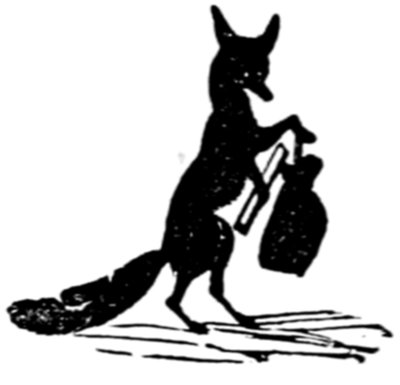
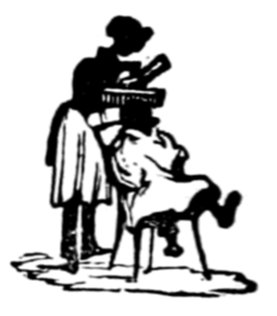
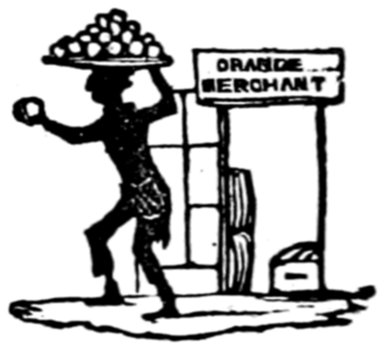
5. William the Third landed.
11. St. Martin. (Patron of Betty.)
We knew not what this meant, until we received a strange document from Higgs, in London; which begun, "Middlesex to wit. Samuel Cox, late of Portland Place, in the city of Westminster, in the said County, was attached to answer Samuel Scapgoat, of a plea, wherefore, with force and arms he entered into one messuage, with the appurtenances, which John Tuggeridge, Esq., demised to the said Samuel Scapgoat, for a term which is not yet expired, and ejected him." And it went on to say, that "we, with force of arms, viz., with swords, knives, and staves, had ejected him." Was there ever such a monstrous falsehood? when we did but stand in defence of our own; and isn't it a sin, that we should have been turned out of our rightful possessions upon such a rascally plea?
Higgs, Biggs, and Blatherwick had evidently been bribed; for, would you believe it? they told us to give up possession at once, as a will was found, and we could not defend the action. My Jemmy refused their proposal with scorn, and laughed at the notion of the will: she pronounced it to be a forgery, a vile blackamoor forgery; and believes to this day that the story of its having been made thirty years ago in Calcutta, and left there with old Tug's papers, and found there, and brought to England, after a search made by order of Tuggeridge, junior, is a scandalous falsehood.
Well, the cause was tried. Why need I say anything concerning it? What shall I say of the Lord Chief Justice but that he ought to be ashamed of the wig he sits in? What of Mr.——, and Mr.——, who exerted their influence against justice and the poor? On our side, too, was no less a man than Mr. Serjeant Binks, who, ashamed I am, for the honour of the British bar, to say it, seemed to have been bribed too; for he actually threw up his case! Had he behaved like Mr. Mulligan, his junior—and to whom, in this humble way, I offer my thanks—all might have been well. I never knew such an effect produced, as when Mr. Mulligan, appearing for the first time in that court, said, "Standing here, upon the pidestal of secred Thamis, seeing around me the arnymints of a profission I rispict; having before me a vinnerable Judge, and an elightened Jury—the counthry's glory, the netion's cheap defender, the poor man's priceless palladium—how must I thrimble, my Lard, how must the blush bejew my cheek—(somebody cried out 'O cheeks!' In the court there was a dreadful roar of laughing; and when order was established, Mr. Mulligan continued)—my Lard, I heed them not; I come from a counthry accustomed to opprission, and as that counthry—yes, my Lard, that Ireland (do not laugh, I am proud of it)—is ever, in spite of her tyrants, green, and lovely, and beautiful; my client's cause, likewise, will rise shuperior to the malignant imbecility—I repeat, the MALIGNANT IMBECILITY of those who would thrample it down; and in whose teeth, in my client's name, in my counthry's, aye, and my own, I, with folded arrums, hurl a scarnful and eternal defiance!"
"For Heaven's sake, Mr. Milligan"—"Mulligan, me Lard," cried my defender—"Well, Mulligan, then; be calm, and keep to your brief."
Mr. Mulligan did; and, for three hours and a quarter, in a speech crammed with Latin quotations, and unsurpassed for eloquence, he explained the situation of me and my family; the romantic manner in which Tuggeridge, the elder, gained his fortune, and by which it afterwards came to my wife; the state of Ireland; the original and virtuous poverty of the Coxes—from which he glanced passionately, for a few minutes (until the Judge stopped him), to the poverty of his own country; my excellence as a husband, father, landlord; my wife's, as a wife, mother, landlady. All was in vain—the trial went against us.
I was soon taken in execution for the damages; five hundred pounds of law expenses of my own, and as much more of Tuggeridge's. He would not pay a farthing, he said, to get me out of a much worse place than the Fleet.
I need not tell you that along with the land went the house in town and the money in the funds. Tuggeridge, he who had thousands before, had it all.
And when I was in prison who do you think would come and see me? None 244of the Barons, nor Counts, nor Foreign Ambassadors, nor Excellencies, who used to fill our house, and eat and drink at our expense,—not even the ungrateful Tagrag!
I could not help now saying to my dear wife, "See, my love, we have been gentlefolks for exactly a year, and a pretty life we have had of it. In the first place, my darling, we gave grand dinners, and everybody laughed at us."
"Yes, and recollect how ill they made you," cries my daughter.
"Then you must make a country gentleman of me."
"And send pa into dunghills," roared Tug.
"Then you must go to operas, and pick up foreign Barons and Counts."
"O, thank heaven! dearest papa, that we are rid of them," cries my little Jemimarann, looking almost happy, and kissing her old pappy.
"And you must make a fine gentleman of Tug, and send him to a fine school."
"And I give you my word," says Tug, "I'm as ignorant a chap as ever lived."
"You're an insolent saucebox," says Jemmy; "you've learned that at your fine school."
"I've learned something else, too, ma'am; ask the boys if I haven't," grumbles Tug.
"You hawk your daughter about, and just escape marrying her to a swindler."
"And drive off poor Orlando," whimpered my girl. "Silence, Miss," says Jemmy, fiercely.
"You insult the man whose father's property you inherited, and bring me into this prison, without hope of leaving it; for he never can help us after all your bad language." I said all this very smartly; for the fact is, my blood was up at the time, and I determined to rate my dear girl soundly.
"Oh! Sammy," said she, sobbing (for the poor thing's spirit was quite broken), "it's all true; I've been very, very foolish and vain, and I've punished my dear husband and children by my follies, and I do so, so repent them!" Here, Jemimarann at once burst out crying, and flung herself into her mamma's arms, and the pair roared and sobbed for ten minutes together; even Tug looked queer: and as for me, it's a most extraordinary thing, but I'm blest if seeing them so miserable didn't make me quite happy. I don't think for the whole twelve months of our good fortune I had ever felt so gay as in that dismal room in the Fleet where I was locked up.
Poor Orlando Crump came to see us every day; and we, who had never taken the slightest notice of him, in Portland Place, and treated him so cruelly that day, at Beulah Spa, were only too glad of his company now. He used to bring books for my girl, and a bottle of sherry for me; and he used to take home Jemmy's fronts, and dress them for her; and when locking-up time came, he used to see the ladies home to their little three-pair bed-room, in Holborn, where they slept now, Tug and all. "Can the bird forget its nest?" Orlando used to say (he was a romantic young fellow, that's the truth, and blew the flute, and read Lord Byron, incessantly, since he was separated from Jemimarann); "Can the bird, let loose in eastern climes, forget its home? Can the rose cease to remember its beloved bulbul?—Ah! no. Mr. Cox, you made me what I am, and what I hope to die—a hairdresser. I never see a curling-irons before I entered your shop, or knew Naples from brown Windsor. Did you not make over your house, your furniture, your emporium of perfumery, and nine-and-twenty shaving customers, to me? Are these trifles? Is Jemimarann a trifle? if she will allow me to call her so. O, Jemimarann! your pa found me in the workhouse, and made me what I am. Conduct me to my grave, and I never, never shall be different!" When he had said this, Orlando was so much affected, that he rushed suddenly on his hat, and quitted the room.
Then Jemimarann began to cry too. "O, pa!" said she, "isn't he, isn't he a nice young man?"
"I'm hanged if he ain't," says Tug. "What do you think of his giving me eighteenpence yesterday, and a bottle of lavender water for Mimarann?"
"He might as well offer to give you back the shop, at any rate," says Jemmy.
"What! to pay Tuggeridge's damages? My dear, I'd sooner die than give Tuggeridge the chance."
| 245 | |
| 1840.] | DECEMBER. |
|---|---|
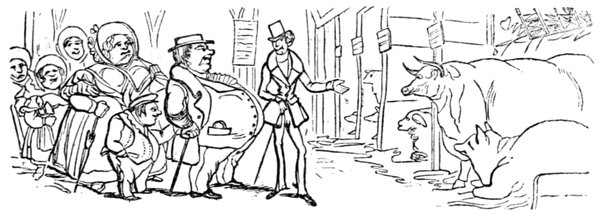
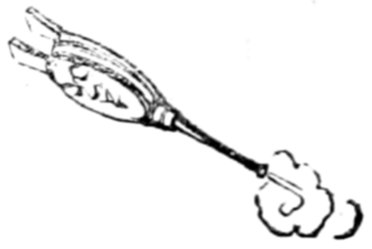
Grate Wind.
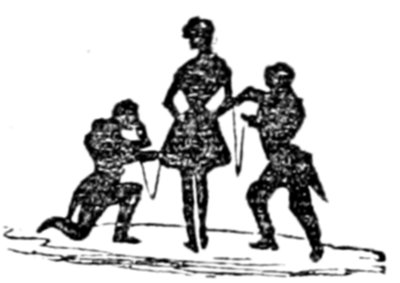
Men and Measures.
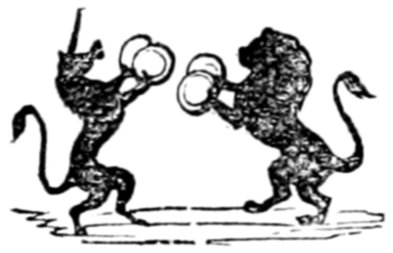
Boxing Day.
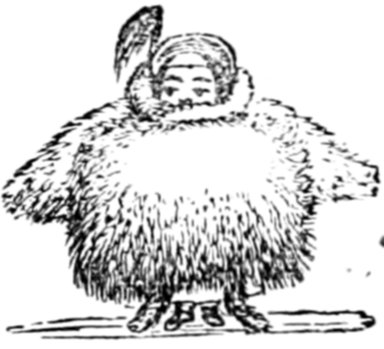
A Muff-in-Belle.
December should be a cheerful month, weather or no. It should be a warm one too, though never so cold. People blow their fires and use their bellows within, while the wind bellows without. Lawyers are glad over Coke. Men take measures to secure the comfort of their bodies, and preserve the coats of their stomachs. Though the Legislature does not sit, the middle classes rejoice in the carrying of many of their bills. Pastrycooks begin to mince matters; and "eyes" are turned towards "pies." Politicians affect sincerity; and Peel, tout sweet, becomes candid. Gross acts of plum-puddingizing are effected by means of a grocer; and Plum-tree-street is then the sweetest locality in St. Giles's. The Irish daily find fresh raisins for flocking there. With the sale of plums money gets current; but the sovereign is just now more valued than ever, and, at the great theatres, Stirling is all the go. The markets grow lively, and Smithfield puts forth its show. Pigs have lots of stuffing, and get so heavy that it is quite common to ask for a pig of lead. About oxen and sheep there is a decided ignis fat-you-us. Beasts visit beasts, and human fat cattle—to survey the quadrupedal—walk in, plump. Butchers display fine traits. Boxing day arrives, and with it the knocks of tradesmen, but they only make a hit when they are paid. People are obliged to wait for their own Nox till night. Merry drinks and games then stir not the fire, but the fire-side. The younger branches of families are indulged in wine that is elder, universal supperage supplies the place of universal suffrage; and the only ballot is for the bean in the cake. Christmas is as brave a fellow on land as ever Admiral Winter was at sea, and should be toasted accordingly. He lights our fires, and leaves few without fuel:—he tows up our colliers to warm our toes; and, though he is too kind to sink the barges, he always scuttles the coals! He is no revolutionist, for, whilst warming the little, he has a respect for the grate. "He is," says the Frenchman, "our defender, by de fender; and if he do seem cold, it is only because he is neither a bore nor a muff."
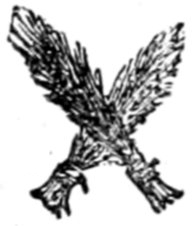
15. Mrs. Trimmer d. 1810.
Tuggeridge vowed that I should finish my days there, when he put me in prison. It appears that we both had reason to be ashamed of ourselves, and were, thank God! I learned to be sorry for my bad feelings towards him, and he actually wrote to me, to say,—
"Sir,—I think you have suffered enough for faults which, I believe, do not lie with you, so much as your wife; and I have withdrawn my claims which I had against you while you were in wrongful possession of my father's estates. You must remember that when, on examination of my father's papers, no will was found, I yielded up his property, with perfect willingness, to those who I fancied were his legitimate heirs. For this I received all sorts of insults from your wife and yourself (who acquiesced in them); and when the discovery of a will in India proved my just claims you must remember how they were met, and the vexatious proceedings with which you sought to oppose them.
"I have discharged your lawyer's bill; and, as I believe you are more fitted for the trade you formerly exercised than for any other, I will give five hundred pounds for the purchase of a stock and shop when you shall find one to suit you.
"I enclose a draft for twenty pounds, to meet your present expenses. You have, I am told, a son, a boy of some spirit; if he likes to try his fortune abroad, and go on board an Indiaman, I can get him an appointment; and am, Sir, your obedient servant,
It was Mrs. Breadbasket, the housekeeper, who brought this letter, and looked mighty contemptuous as she gave it.
"I hope, Breadbasket, that your master will send me my things, at any rate," cries Jemmy. "There's seventeen silk and satin dresses, and a whole heap of trinkets, that can be of no earthly use to him."
"Don't Breadbasket me, mem, if you please, mem. My master says that them things is quite obnoxious to your spere of life. Breadbasket, indeed!" and so she sailed out.
Jemmy hadn't a word; she had grown mighty quiet since we had been in misfortune: but my daughter looked as happy as a queen; and Tug, when he heard of the ship, gave a jump that nearly knocked down poor Orlando. "Ah, I suppose you'll forget me now," says he, with a sigh; and seemed the only unhappy person in company.
"Why, you conceive, Mr. Crump," says my wife, with a great deal of dignity, "that, connected as we are, a young man born in a work——"
"Woman!" cried I (for once in my life determined to have my own way), "hold your foolish tongue. Your absurd pride has been the ruin of us, hitherto; and, from this day, I'll have no more of it. Hark ye, Orlando, if you will take Jemimarann, you may have her; and if you'll take five hundred pounds for a half share of the shop, they're yours; and that's for you, Mrs. Coxe."
And here we are, back again. And I write this from the old back shop, where we are all waiting to see the new year in. Orlando sits yonder, plaiting a wig for my Lord Chief Justice, as happy as may be; and Jemimarann and her mother have been as busy as you can imagine all day long, and are just now giving the finishing touches to the bridal dresses; for the wedding is to take place the day after to-morrow. I've cut seventeen heads off (as I say) this very day; and as for Jemmy, I no more mind her than I do the Emperor of China and all his Tambarins. Last night we had a merry meeting of our friends and neighbours, to celebrate our re-appearance among them; and very merry we all were. We begun with quadrilles, but I never could do 'em well; and, after that, to please Mr. Crump and his intended, we tried a gallopard, which I found anything but easy: for since I am come back to a life of peace and comfort, it's astonishing how stout I'm getting; so we turned at once to what Jemmy and me excels in—a country dance; which is rather surprising, as we was both brought up to a town life. As for young Tug, he showed off in a sailor's hornpipe; which Mrs. Coxe says is very proper for him to learn, now he is intended for the sea. But stop! here comes in the punchbowls; and if we are not happy, who is? I say I am like the Swish people, for I can't flourish out of my native hair.
Jan. 9.—Discovery of the real Vegetable Pills:—A patient hoaxed the vendor, and, instead of taking them, sowed them in his garden. A fine crop of peas was the result. The man had been selling those pleasant vegetables, in boxes, disguised as pills by being covered with an outer coating of flour; but, from having been always in flower, they were now thoroughly blown!
In the north, a Coroner's inquest was held upon the body of a man who died from taking another kind of Vegetable Pills. On opening the body the interior was discovered to be one huge cabbage, of great dimensions, but dead, to its heart's core, of confinement and want of water—a beverage which the patient unfortunately never drank. The jury returned a verdict of "quits." "Quits, gentlemen!" exclaimed the dismayed Coroner—"never heard of such a thing! What do you mean?" "Why," replied the foreman, with some warmth, "we find that if the cabbage killed the man, the man most certainly killed the cabbage; and if that ain't quits, blow me!"
Jan. 24.—Her Majesty went on to the stage of Drury Lane Theatre, to inspect Van Amburgh and his beasts. The Queen was mistaken by many for the Lady of Lyons.
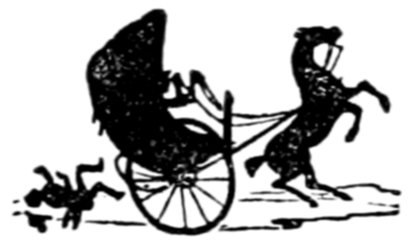
Cab-rearer.
Feb. 18.—Maroto did a bit of important slaughter, and murdered twelve generals, upon the plea of the general welfare. Rather a contradictory reason; but Don Carlos entered France in consequence. They say his chiefs were bribed by a palmer's stone, and it is certain there was some palming, any way. The only commander that now sticks to him is Cabrera, and he's not unlikely to be upset.
March 3.—Vestris attempted to be blown up. A private box given her in her own theatre—loaded with combustibles. Drawing cover—and discovery in consequence.
May 21.—Procession of the Temperance Society.
May 23.—Queen Adelaide returned:—
June 30.—The Sultan of Turkey died of delirium tremens; the Father of the Faithful going drunk to the seventh heaven! His son—scion of the same die-nasty—ascended the throne; but taught, by example, not to wine, hid his grief and drowned his father's cellars in the Bosphorus. Shortly after this his whole fleet abstained from Port—and absconded to Mehemet Ali.
July 2.—Birmingham riots. A smart fire, but no "Burns's Justice,"—down-fall of much uphold-stery. Beds in flames—among the mattresses great destruction of tick—credit vanishing. Sacrifice of property not unlike sacking. Town in a storm.
July 21.—Rage for publishing portraits of the Queen—some in the Lane and some in the line-manner: some done by Doo, and some engraved by Cousins—not by Cousin George, or Cousin Albert,—not by a Prince man, but a man of Prints. But muzzy-tinto seems the favourite style.
Aug. 30.—The Cinque Ports gave a banquet to the Duke of Wellington, where they did not sink port at all; on the contrary, the feast was carried on with much wine, and a great deal of spirit; and, although the room was surrounded with banners, nothing was found to flag. There were plenty of rations, and orations, and Lord Brougham's Waterloo Eulogy was a eulogy of the first water.
Sept. 7.—The Secretary of War dated a letter from Windsor Castle, mistaking it for his Home Office. As it was, it was only a blunder, but he might as well have kissed Her Majesty by mistake, and then it would have been a blunder-buss.
Sept. 12.—Poulett Thomson went to Canada, in the Pique frigate; and many people were much piqued at the circumstance. The ejaculation of "Shiver my timbers!" became prevalent, at the same time, with the great wood-dealers of British America.
Sept. 22.—Pump locked up at Ramsgate, during divine service.
249Sept. 28.—The Lord Mayor's chaplain preached his annual sermon before the Corporation; and took for his text, "A citizen of no mean city." The Corporation, however, got offended at the discourse, which induced them to withhold the usual fifty-pound donation. The sermon contained such a dressing that they considered themselves overdone; and, refusing to be rated after that fashion, took their own notes, but withheld the fifty. The reverend gentleman is now of opinion that they are citizens of a very mean city indeed; and, if he has not a text, he has, at least, a pretext for saying so.
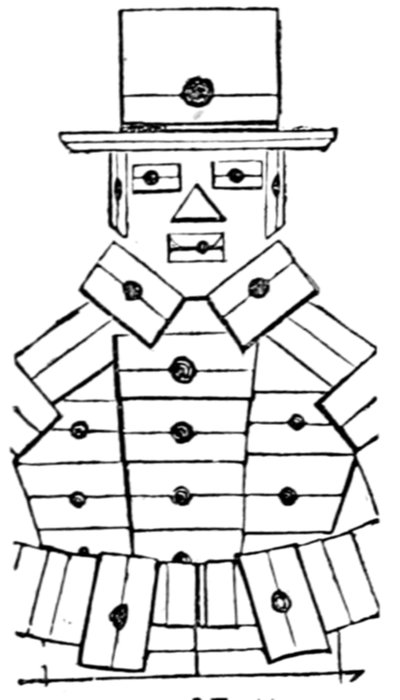
A Man of Letters.
Nov. 8.—Post-office arrangements proposed. Treasury issues one minute, which it takes twenty to read. Postage, not uniform, but promoted to a groat, to promote the circulation of fourpenny-pieces. The Chancellor of the Exchequer, having looked at the question in its every Baring—declines throwing the letters more open—to distribution. Nevertheless, correspondence will be so much increased, that this may be called a post age—and Lord Lichfield, A MAN OF LETTERS.
[We have been requested to insert the following selections from the proceedings of the Institution, in consequence of the unhandsome conduct of some of the newspapers, in refusing to publish any further reports unless they were paid for as advertisements.]
A great feature, in the meeting this year, has been the elegant and intelligible simplicity of the subjects and papers discussed; the following are a few of the most interesting:—
Mr. Bewdlite's paper "On the retrograde Progression of vegetable Ærolites, supposed to be caused by the flowing Stagnation of diurnal Currents, coming in Contact with a Board of Guardians," was much admired; as well as Dr. Terncow's admirable paper "On the Tendency of extreme Nervous Filaments to form Photogenic Conventions," and "The Advantages derived from forcing condensed Air into the Brain, to sharpen the Powers of Hearing," by which means a whisper at Dover could be distinctly heard at Boulogne.
Under the head of Section W, an interesting report was read by Dr. Buckleband, on some important geological and antiquarian discoveries, which were made, in the neighbourhood of Holborn, by the workmen employed in a lying down gas-pipes. It appeared that, at the depth of six feet below the mud formation, having passed through a stratum of London dirt, teeming with interesting reliquiæ of blacking-bottles and tobacco-pipes, in a fine state of 250petrifaction, together with traces of decayed vegetable matter, interspersed with bones of feline mammalia, they struck upon a mass of regular brickwork, which was, at first, supposed to be the remains of the Roman road which formerly ran from King's Cross to Evans's Hotel, in Covent Garden. On carefully removing the masonry, they arrived at a curiously constructed apartment, or cella, containing several dozen bottles, of modern form, reclining in sawdust round the walls. The wine in the bottles was found to be perfectly unimpaired by its long repose, and tasted fresh and sweet. One gentleman pronounced it to be the Massican wine so lauded by Pliny. Another, who had hitherto pretended to be a judge of old wine, stated that it was merely a compound of inferior port (fine rough flavour, 30s.) and red currant, with a small admixture of English brandy. The learned professor merely mentioned this absurd opinion as a matter of entertainment. One of the most singular features of this gratifying discovery, was one of the everlasting lamps, of which curious light a small jet was burning over the bins, with a flame exactly resembling gas. He expected a further report of their proceedings by the seven o'clock train. While the learned gentleman was speaking, the communication arrived. Much excitement prevailed as he read the paper; and one of the audience, in his nervous agitation, took another's snuff-box by mistake. It appeared that the workmen had descended, in company with several contributors to the "Gentleman's Magazine," and, following a long passage, similarly adorned with bottles, began to contemplate the idea of bringing to light an entire subterranean Roman city; probably destroyed by one of the early volcanic eruptions of the Mons Primula, or Primrose Hill, of the ancients. On ascending a flight of steps they came to a small door, which they eagerly forced open, and the astonished group found themselves in the "bottling department" of what had been apparently an early Roman "wine vaults."
Mr. Lyme Stone produced a fine fossil specimen of the claw of some extinct animal, which had been discovered by the excavators of the Southampton Railroad. He had shown it to the learned professor, who had drawn the entire animal from this single specimen; and, on comparing it with the Munkorsensauros, it was found to be correct, with the exception of the tail being curly instead of straight. Mr. Planecence inquired if it was not likely to be the claw of an eagle, in composition similar to those displayed in the New Road, where the two gentlemen, without any clothes, are represented as playing at single-stick. He was strengthened in this idea by observing an iron pin running through the claw, probably to fix it to the pedestal. Mr. Lyme Stone was sorry that the honourable and learned gentleman was such a confounded fool. The pin with which it was transfixed was evidently a weapon of chase, proving the existence of man upon the earth to be coeval with his desire for food.
An angry discussion would doubtless have taken place had not the hour sounded for dinner. The company speedily separated, and proved the superiority of the attraction that ducks and salmon possessed over inorganic incomprehensibles.
Hold thy breath lightly, while I outpour to thee, in gentle diction, my prediction of events. Behold the Hieroglyphic Interpreter of the symbols of the present and the future; and what a posse of things—both in posse and in esse—it closes and discloses under its mystic mantle. Imagine thyself, for a moment, like the topmost sails of some goodly vessel,—the moon-raker—the star-gazer—the sky-scraper of the Firm-i-meant; and peruse what my prophecy doth, by a ruse, foretel. See the signs of my designs. Now, high in the mid-heaven, behold Albertus Sagittarius as the Cupid Archer, driving his love-dart through the window of that constellatory hotel, known in great and little Britain by the sign of the Virgo and Crown. Behold the Miss is hit. This is portentous of hymen; but other high men, lo! are typified in those dejected falling stars, pursuing their downward decadence from the court-yard of the palatial Inn. Now, then, shall marriage spread wide its pinions among people of all opinions, and the cord of con-cord 252shall be tied. See that gorgeous hecatomb of hearts, which the young trump, Love, fires and inspires with fame and flame. He, behold, is the rightful Duke of Victoria; husbanding his resources, and yet setting the tide of conquest through the world. Baby linen becomes shortly at a premium, and my art foresees a prevalence of Sun and Air!
Whirled into fire, see the political world, and ire burst from the soil of Ire-land. In fancy, I behold the flames, now in in-fancy, mount and swell. Jack Frost sits melancholy mad, and burns his fingers by the blaze he essays to raise; but there are other Jacks that want roasting, which the courteous Reader will smoke. The broils are not over; and, though the fierceness of the fire of politics will not evaporate the Thames, yet, from Westminster to the Tower, it shall send forth a hissing noise.
But sit thou lightly on thy throne, Victoria! for the tumult shall be tumultum in parvo; and thy people, convinced that it was infra dig. to abandon the spade for the pike, and assume the habits of the rake, will leave the fields of speculation for those of agriculture; and their sons and daughters, emulating thy good example, will betake them to arts of husbandry, cast away their divisions for multiplication, and thus enjoy the Irish sunshine of a genial reign.
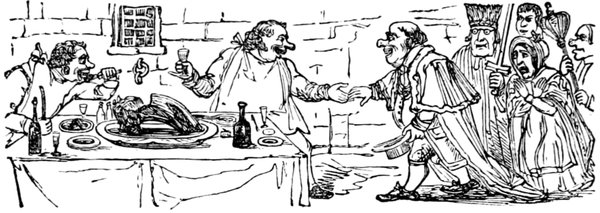
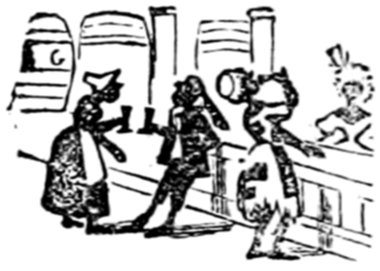
The bar of the House.
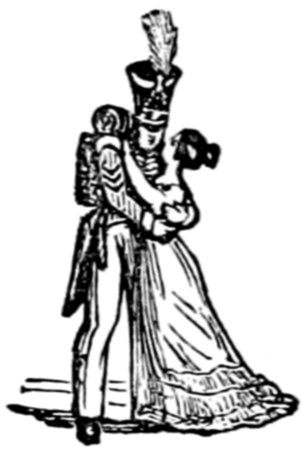
A sergeant at arms.
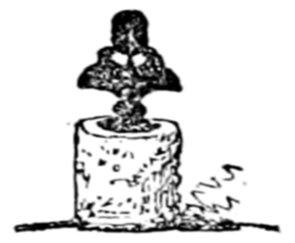
Milton on Stilton.
6. Twelfth Day.
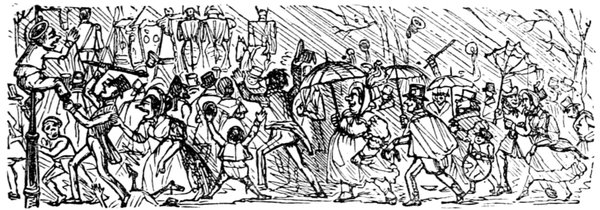
10. Queen Victoria's marriage.
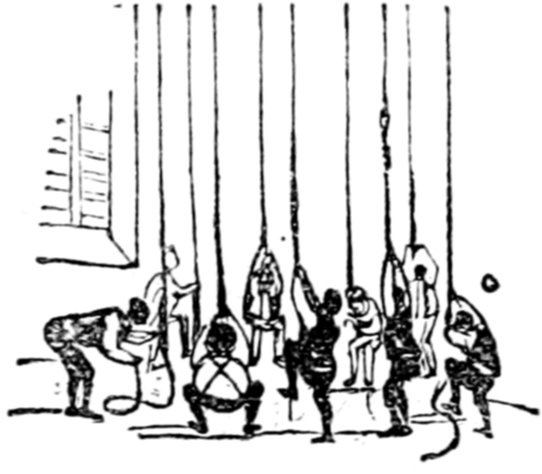
A wedding ring.
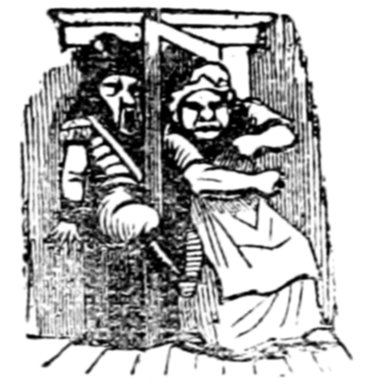
General Jam.
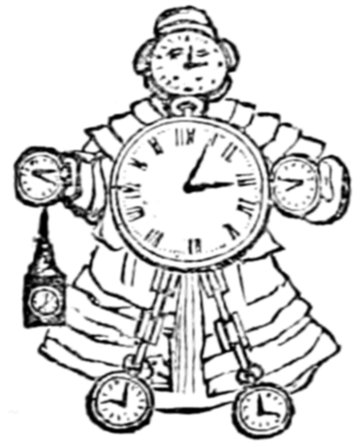
A Watchman in Seven Dials.
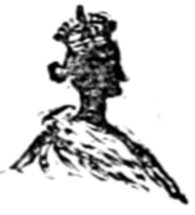
The new Belle and Crown.
12. 11th Hussars, called Prince Albert's own.
| 260 | |
| MARCH. | [1841. |
|---|---|
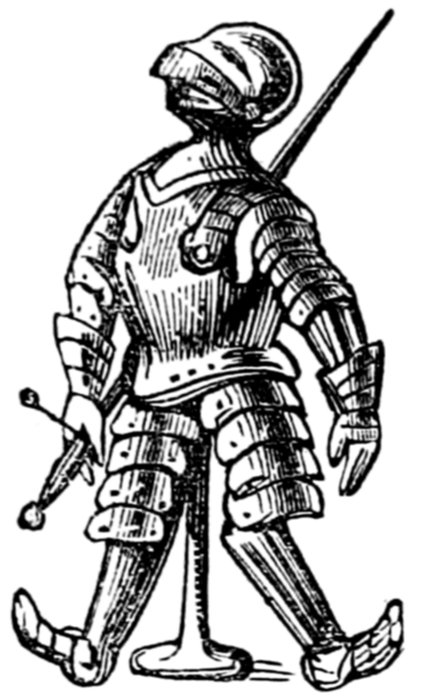
Alderman Armour.
Vell, I'd give a farden to know vy they calls this here Hatton Garden. I'm sartain sure it must be done in jest; for if every hat aint hoff instead of hon, I'm blest! Hat on, indeed! vell, sartinly it's vindy; and here's a pretty shindy. They've rose the flat'lent element at last, and here it's peppering on, a precious blast! It's nuffin but a reglar blast of ruin, undoin' every von vith vot it's doin. Vell, blacksmiths must be most unconscionable fellows, if, such a day as this, they vants a bellows. I can't even svear; my pals u'd hardly know me: I don't feel no occasion to say "blow me." Oh! oh! here's a go! The voman's blowing over; she's a reglar charmer, but so unkimmon fat it can't much harm her. Vont there be chimbley accidents:—ay! lots. Look, look at Harmer and Flower's flower-pots; they're a fallin' on that old gentleman's head as valks below; and vot's vurse, it's too vindy for him to return the "blow." [They say as Alderman Harmer has left the town off, and he's made a breeze in the city vith the vind as he vhisk'd his gown off.] Vell, I'm hoff, so here goes; my eyes, how it blows! That ere image-boy can't hold his tray; ain't his kings and queens, and dukes, a rattlin avay. There goes a couple slick; the vind's broke Vellington and little Vic. Go it, my hearty! that's it, you've shivered Bonyparty; and, notwithstanding the furious vay in vich it blows and rains, if he ain't a stopping to pick up Napoleon's remains! Vell, I've heard of "mad as a March air," and precious mad I find it is, still I can't say as I care: as long as I get home safe, and there's nobody killed, I sees no great harm in it; only I hopes that them as vere particularly anxious to raise the vind, is vell satisfied this very minit!
| 16. Gibbon died, 1794. | "De gustibus non est disputandum." |
| High winds, and no mistake. |
"Will you not take another cup?" said the mistress of the tea-party. "No," answered the awkward gentleman, who had prematurely risen to depart; but, upon the word, his foot slipped over the hearth-rug, and he fell. "In refusing that cup of tea, and tumbling so soon after, you remind me of 'Gibbon's Roman Empire,'" said the wag of the tea-party. "Why?" "Because you are a living illustration of the decline and fall."
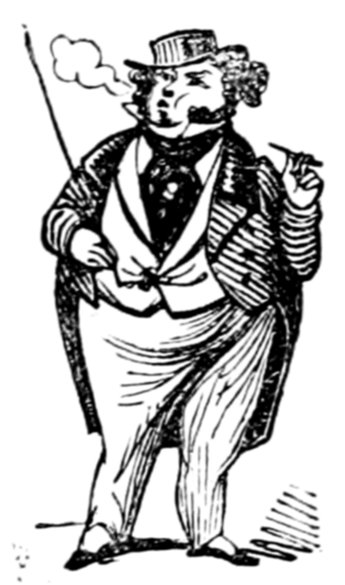
A heavy swell.
12. Easter Monday.
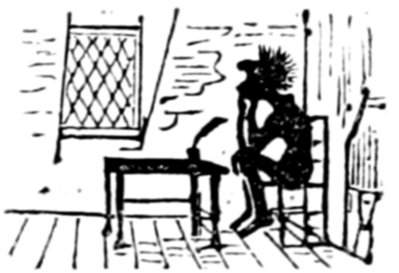
Poet's corner.
23. Death of Shakspeare, 1616.

I wish
you may
get it.
Polish Fate.
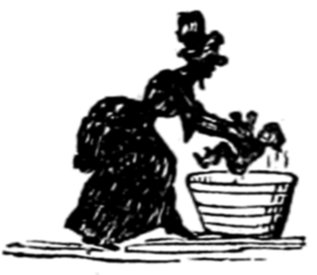
Cotter's Saturday Night.
27. Order of the Bath. 1725. Water witch.
31. Wit Monday.
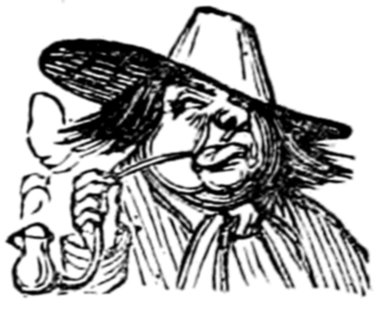
Admiral De Witt.
| 269 | |
| 1841.] | JUNE. |
|---|---|
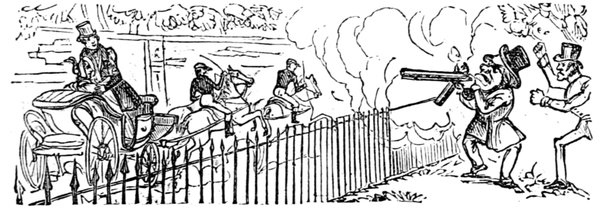
I set up all Knigt to set down to rite u a bout a horrit deed that has put all the grate Law yers to work, and has been a drawin Thiers from the Nayshuns hies. It is a shock King crime, no less than a shoot in at the Queen. The assassin-hating will-in was quite in low life—nort but a pot-boy! (not as that is any dis-a-peerage-ment; for I here there is Potts a arch deecon, and Fill pots a Bishup;) but he did not ware his best to go before her Mad-jest-i, but own lie his work-a-day close, which I think was tatterd and torne, for I hurd mast her say he went there with ragged Side intenshuns. One thing is de-litefull to no, that the Queen got off as well as the pistoll, witch the will-in tuk. From the way he prescented the weppon, it is thort he is one of the leveling classes, though it is won-durd what his aim could be. Sum say he wos like Sir Wall-ter scots True Bar door,
which I cant see, as that true bar door came "beneath his lades windo;" but this pot-boy went into the O pen park, and turn'd the Queen quite pail, a shoot in thru the pail-ings! The Public in dig Nashun nose no bounds: the Public Houses of the People, with their benches and their bar, are to Congrat tulerate the Queen on her he scape from the pot-boy. He was a errand will-in; and as he was tuk in one Park, i understand he is to be tried by another, wot is as good a Judge as he. His name is oxford, and a hug lie feller he is, tho no feller, I am tolld, of the Oxford wot has a call edge on the banks of the Ices, which is a river, you No, and, I spoze, is all ways froze. They say the grand jury cant help find in a true Bill aginst him, which reminds me of my own true Bill, who lives with farm her Constant. Give my luv to him, and all so kep it for yourself; and so for the present good buy. Yours till deth,
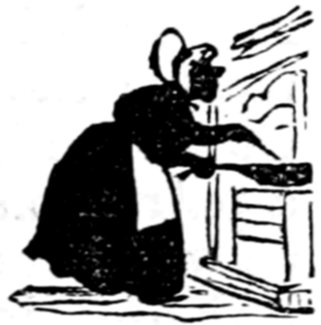
A Bacon Frier.
11. Bacon died. 1294.
19. Queen Victoria's Accession.
Pray, sir, what has been your largest undertaking in life?
Why, I once took ten shillings in the pound on a debt of ten thousand, and that was the largest undertaking I ever had.
The dinner of the Licensed Victuallers is better to them than the wisdom of Solomon, or the ore of lore: it is their feast of literature, for they consider it in the light of a splendid annual—magnificently bound in calf for society—with the cloth edition especially reserved for themselves. It is a pleasure to behold their spread, the chairman soaring into Epicurean sublimity, like the spread eagle, or feasting like the golden vulture upon quid vult. See, they have gathered in the strength of their conviviality. Every one of them is a landlord, if not a lord of the land; how they labour at their vocation of cram! Their festive board has become a board of works; and they are all busy about the pleasantest half of the trade of carver and gilder. Every man, like a tailor, is taking his full measure; their whole vision is given to the pro-vision; and they are now, more than doctors and lawyers, among the feed. Pollok's "Course of Time" is nothing to the course of victuals now produced. All the creatures that figure on their sign-boards have been brought up and dressed for the nonce. Rarities are here, which it must have required a new edition of "Cook's Voyages" to procure. The Goose with the Gridiron, the Magpie without the Stump, the Swan with two Necks, and the throttle of some youthful Boniface acting Lad-lane for the luxury: a joint from the Pig in the Pound; the Blue Boar done thoroughly brown; the meek Lamb sent saucey from the Mint; the Dolphin, by off-slicing process, changing its size and not its dyes; the "Cock" with exquisite stuffing, so that it emulates a firm of city silversmiths, and becomes "Cock Savoury;" the Hen and Chickens, quite a gentle brood, roasted for food; "the Salmon," accustomed to swim, now beginning in consequence to sink; and last, not least, the Peacock assisting at the spread! Sure here is food for reflection, and the great body of Licensed Victuallers may rejoice in the victuals thereof.
Dinner is now over. The "Queen" is disposed of; the "Royal Family" are settled; the "Army and Navy" are dispatched. Although it is not an ordinary, they have gone through the ordinary toasts: the business of the evening is about to be commenced; the Chairman is on his mettle, and on his legs. He is a wit and a wittler; a patriot on the side of the public-houses and the public. Bodily, as well as oratorically, he is a great speaker, and his eloquence is now let loose. He informs the company before him of the great importance of the humane and intoxicating society to which he belongs. He tells them that the Licensed Victuallers are connected with all that is elevating (spirits for instance), civilizing, and admirable, in town and country. They are identified equally with the lush and the literature of the land; for he is prepared to contend that whatever has been great in literature is deducible from lush. Every author of eminence has been more or less inspired from the tap, the bin, the cellar, or the bar. The Edinburgh Castle has never been a Castle 271of Indolence; and taverns must be regarded as the fountains of the mind. Vehement cries of "bravo!" and "draw it mild!" here interrupt the speaker; but he declares he cannot draw it any milder, and that it would be stale, flat, and unprofitable if he did. He would prove his case. The poet who quaffs British brandy is filled with patriotic spirit, and writes nobly for native land. The wit confines himself to what is rum. The nautical novelist sticks to port. Gin inspires the great delineators of human life. What, for instance, but gin-twist could have brought Oliver Twist to light? He would repeat—that lush and literature were indissolubly connected, and that the press and the punch-bowl were one. Yes, the very press was nothing but a great punch-bowl. Its thunder, devilism, and vituperation, were the spirit; its bland praises were the sweets; its sarcastic truths and stings were the blended bitter and acid; its pleasant news was the aroma from the lemon-peel; its quarrels were the hot water; its sneers were the cold: it sometimes created a terrible stir; but then punch was nothing without that; and, finally, the newsmen were the glasses, and when all was done, the editors were the ladles—he said ladles emphatically, lest they should be taken for spoons—that doled it out to the eager-swallowing community. (Loud cries of "capital," and incessant cheering.) All these things incontestably proved that the kings of the lush were the kings of the literature of the land; and, therefore, the Licensed Victuallers were at the head of the civilization of the empire. It was said that "knowledge is power;" very well—then the public had to thank them and their brewers. They might talk of their cheap periodicals, but, he would ask, would there be any circulation of instruction in this kingdom if it was not for the respectable firm of Read and Co.? Another gentleman was a Whitbread—he might say, a wit-bred and born: but there was no end of illustration; and, if knowledge was power, it was a brewer's dray-horse power; it passed to the public through the cellars of the publicans, and all he could say was, if it came up "heavy," it went down light. "He should, therefore, give—Prosperity to the Licensed Victuallers' Institution."
The toast is drunk with applause—the Chairman shortly after follows its example, and by two in the morning the company have got under the table over their wine.
Did you ever know a sentinel who could tell what building he was keeping guard over?
Did you ever know a cabman, or a ticket-porter, with any change about him?
Did you ever know a tradesman asking for his account who had not "a bill to take up on Friday?"
272Did you ever know an omnibus cad who would not engage to set you down within a few yards of any place within the bills of mortality?
Did you ever know a turnpike-man who could be roused in less than a quarter of an hour, when it wanted that much of midnight?
Did you ever see a pair of family snuffers which had not a broken spring, a leg deficient, or half-an-inch of the point knocked off?
Did you ever know a lodging-house landlady who would own to bugs?
Did you ever know the Boots at an inn call you too early for the morning coach?
Did you ever know a dancing-master's daughter who was not to excel Taglioni?
Did you ever know a man who did not think he could poke the fire better than you could?
Did you ever know a Frenchman admire Waterloo Bridge?
Did you ever know a housemaid who, on your discovering a fracture in a valuable China jar, did not tell you it was "done a long time ago?" or that it was "cracked before?"
Did you ever know a man who didn't consider his walking-stick a better walking-stick than your walking-stick?
Did you ever know a penny-a-liner who was not on intimate terms with Lytton Bulwer, Capt. Marryat, Sheridan Knowles, Tom Hood, Washington Irving, and Rigdum Funnidos?
Did you ever know a hatter who was not prepared to sell you as good a hat for ten-and-sixpence as the one you've got on at five-and-twenty shillings?
Did you ever know a red-haired man who had a very clear notion of where scarlet began and auburn terminated?
Did you ever know a beef-eater go to the play in his uniform?
Did you ever know a subscriber to the Anti-Cruelty-to-Animals Society who didn't kick the cat?
Did you ever know a lady with fine eyes wear green spectacles?
Did you ever know an amateur singer without "a horrid bad cold?"
Did you ever see a cool fat woman in black in the dog-days?
Did you ever go to see Jack Sheppard without feeling a propensity to run home and rob your mother?
Did you ever know an author who had not been particularly ill-used by the booksellers?
Did you ever know fifty killed and fifty wounded by a railroad accident, without the fifty who were not killed being congratulated by the directors that they were only wounded?
Did you ever know a man who did not consider that he added ten years to his life by reading the "Comic Almanack?"
| 273 | |
| 1841.] | JULY. |
|---|---|
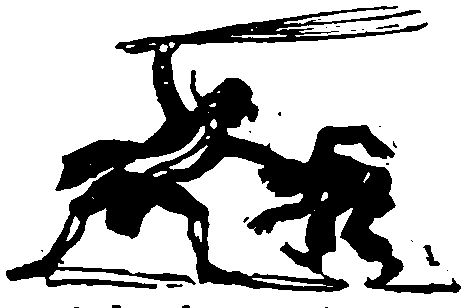
School exercise.
23. Chinese Expedition blockaded Canton. Sailed for Chusan.
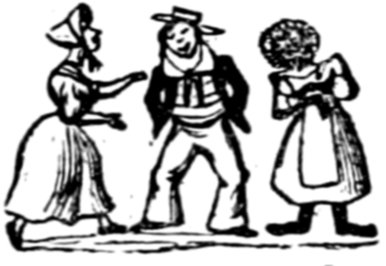
Picking and choosing.
Wooing in black and white.
[Here you are, my lady. Bathe you for a shilling. Comfortablest machine on the beach; and no hextry charge for soap and towels.]
[Try a donkey, ma'am. He'll carry you as quviet as a lamb, and nuffink von't tire him.]
[Take a pair o' sculls, ma'am. I'll row you a mile out and a mile in for half-a-crown; and there aint a trimmer little craft in all Margate, than "Moll o' Wapping."]
[Buy a Wenus's ear, Miss? or a box o' powders to perwent sea-sickness? Only von and sixpence the lot.]
[Here's a prime box o' smuggled cigars, Miss, for your sweet-heart! or a nice little keg o' rale French brandy, for yourself! Let you have 'em a bargain.]
[Yoi-hoi!—Yoi-ee-ho!—Yow!—Yoi-ee-hey!—Eiugh?—Yoi-oi!—Oi-yoi!—Ee-ow-oi-yo hough! &c. &c.]
[Here's your perriwinkles! penny a pint! Winkle-winkle-winkle-winkle-winkle-man! Fine fresh winkles, only a penny a pint!]
[Oh! crikey, Bill; vot a conch that lady's got!]
[Try your luck, marm, in the Lottery? A musical box, two paper nautiluses, and a piece of the wreck of the Royal George. Only von shilling a ticket, and only two numbers wacant.]
[Ease her!—Ease her!]
[Half turn astarn!—Half turn astarn! Go on!—Go on!]
[Holloa, marm, you can't get back! you've let the tide come up all roun you, and if you attempt to stir you're a drownded woman. Stop where you are, and hold fast by your camp-stool till the man comes; and he'll bring you ashore wery comfortable on his back for half-a-crown.]
4. Oyster days begin. Milton's Paradise Lost. 11. Dog days end.

Company's Terminus at Houndsditch
From Henry Dobbs, Stoker on Board the City of Edinburgh Steamer, to Bill Ball, Touter to the Commercial Company in London.
"O Criky Bil—ven i tuk my Last tender partin off yew down in the cole ole off the citty off Heddinborow and Himprinted that here kis on the hafecshonat mouth of yewr sister kate vich she sed she wood nevver wash off the Blak til it wore away in the riglar Coarse off natur, litel did i think i shood evver cum to be puld up afore a lot of frensh Beaks and cald upon to comit Purgatory by swaring my name was mountseer Hornree Doe insted of plain Harry Dobbs. Arter a deal of bother and giberish, Gilty or not gilty, ses they. Parly voo fronsy, ses i, at vich the juge de Pay (so cald i supose becaws yew ar obleegt to Bribe him befour yew can get anny justiss out off him) busted out a laffin; arter vich the Porkipine du Raw repeted the kestin, Gilty or not gilty, ses he, Non mi recordo, ses i, at vich off vent the old juge agen, wors nor evver the Lord mare and mister obler, tho i ust to Think they vas the Rumist chaps for Larkin a feler off to the gallass as evver i seed. Thinks i if yew vonts to cum down uppon me with yewr Burns justiss i shal cum down uppon yew vith my Cokes.
"But to Begin at the beginin. at Blakvall ve tuk on board a Grate menny of the mountseers, most on em cummin down by the Stand-up train—vich gravesend Dito and Dito Dito hern Bay and margit. Bean my 1st interduxion in frensh sosiaty i may say i vos tuk ½ a turn astarn at fust But sune got my steem up and vos awl rite in no time. Vot i most admires in the frensh carekter is vot devvels they ar to Drink! theyde got lots off sperrits vith em, and ass i say Ven yewr goin a Long viage theres nothink like sumthink Short. Afore ve vos fairly out off the rivver the gemmen vos ½ seas over, and sich Rummy felers for Brandy i nevver clapt my iis on. Allso hosions of lemmonaid and neguss, and ass nateraly concludes amung so menny papishes lots of pop-ery. The same of soder vater and ginger bear, spannish juce vater and O sucree, so that ass the capten sed instid off bean at Hern bay yew mite have fancied yewrself at the Cove of Cork. And deer Bil alow me to say in regard of Drinkin there aint no cumparrison between the O D V and the O Sucree. The fust is rely a cappital O.
"Onfortinat the vind began to get up ven ve got into Blew vater, and sune arter cummin on a gale vas a deth Blow to their merryment, the grate guns sune clering avay their pokket Pistols. From ramsgit ve run to Rye, vich yew mite hav told by the Rye faces, and the fowl vether continnying the mountseers vos awl sicks and sevens. Arter a vile there vos a bit of a lul, vich yung Bony tuk the hopertunity of the sea sicknes makin him a litel moor Sober to adres his joly cumpanyons everry 1, vich such ass dared ventur their ankerchers from their mouths Waved em in the air cryin ip ip huray! in their frensh lingo, and then awl vent down into the salloon and sune arter cum up agen Togd out ass genralls and Kernels, vich vos fine Nuts for our felers, and deer Bill my opinyan is they vood hav tuk franse prisoner Esy anuff only for 1 thing vich is this, Bean awl Listed ass Comandin ofisirs and no Privets their vosent nobdy to obay orders ven the vord vos gev to Fire, and next time they atemts a hinwasion they must take out less Musk and moor Muskits, and not fancy they can konker a kingdum vith nothink but sedlits Powder.
"The 1st land ve made in franse vas Cape Greeny,[4] vich vos werry 278appropo. But dident go ashore til ve got to neer Bulloan, ven the chap ass had got the Live egle in the cage bean too Drunk to make him Go threw his performenses and me haveing tuk the hopertunaty of Toggin myself out in 1 off the hoffisirs castoff sutes, jined the xpedishun ass a Vollunteer, vith the egle atop off my hed and 1 off the Cole saks under my cote to Bring avay the Lewy nappolions in. Ve then marcht to Bulloan and jined by several werry Respectabel fish wimmen enterd the barrax, vere there vos a Rigler shindy betwixt the sham solgers and the Real vons. Yung Bony shot 1 poor feler, ass he sed for the Meer fun off the thing and to kepe the game alive, vich deer Bil it seems werry Ard dont it for a chap vot refusis a Napolion to be put off vith a Pistole. Ass sune ass wede got kikt out of the barrax Prince lewy gev a Permotion in honner. 1 chap vos created a Leegun of honner, a nuther a Shivvileer, a nuther a Gennerrallissimmo and so on, and deer Bill i beleav i vos created Sumthink, but not bean quite perfict in my frensh ar unable to say vot i am, so pleas Direct at pressant ass nuthink but Nite off the egle, and ven i No myself Betor vil drop yew ½ a hounse to inform.
4. Query—Cape Grisnez?—Rig. Fun.
"Ve next marcht to the Hi toun vich tawk of frensh Perlitenes they shet the Dore in our fases; and then Repared to the Grand collum Bilt by the riginal Bony to comensurate the Grand viktry ass vos to have bean hobtained by the Grand army ass vos to hav hinvaded ingland. Hear, arter bilkin the dorekeper out off his 6 pense, the chap vot carred the standerd mounted up to the top, and me Thinkin that vos the safist place for the pressant Followd his leder vith the egle, vich as sune as ve arived at the sumat had a Werry hextensif vew off Prinse lewy a cuttin his unlukky, folowd by his folowers at Hi pressure spede, and awl makin for the coast ass if the devvle ad em. In coarse the collum vos sune surounded and ve vos sumond to cum down. Poor mountseer havein the frensh union Jak found upon him vos sune tuk up and sent to Prisn. But deer Bil takin the Hopertunaty off a rigement off the nashonal gards and a kumpny off the John Dams and a batalyan of the perventif sirvis Rushin on the poor standerd barer at the Botom of the collum i Let fly the egle from the Top and takein out the cole sak Blakt myself awl over and rented my cloas into a meer Stoker, so ass ven they come to xamen me Found nothink like Proof pozitif, and insted off bean brote in a frensh Hero shal turn myself out to be nothink but a Halibi.
"Ass for the Grand army most off em ran into the vater and vos Tuk prizners by the bathin wimen. Sum got Pepperd by the John Dams and sum got Salted by the oshun, but deer Bil to conclude i shal nevver jine a Bony party agen as lungs i breathe, and Prinse lewy will xcuse me sayin he showd himself a Propper goose for ingagin in sich a war of Propper gander.
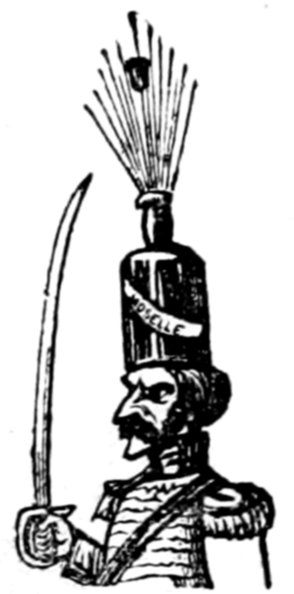
Escape from Cork Jail.
New Chaco for P. Albert's Own.
10. Quadruple Treaty ratified, 1840.
| 282 | |
| OCTOBER. | [1841. |
|---|---|
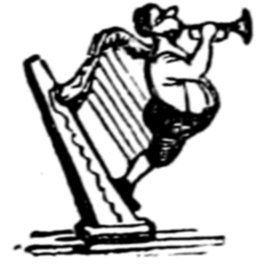
Harper.
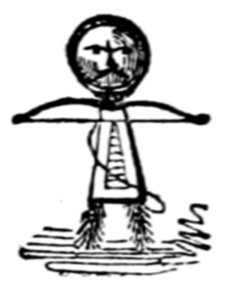
Bowman.
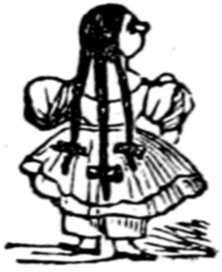
Platt.
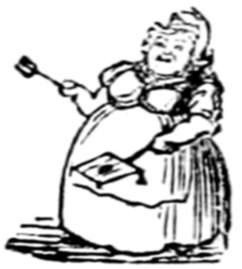
Cooke.
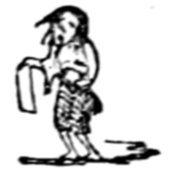
Low note.
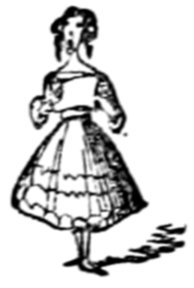
High note.
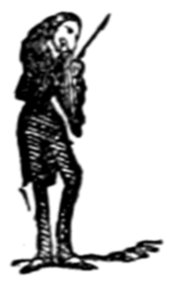
Sharp.
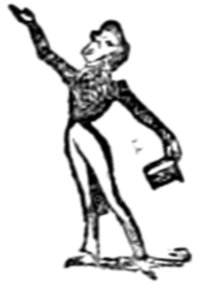
Flat.
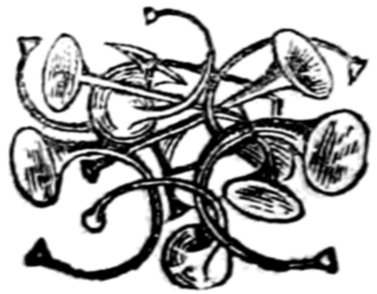
A flourish of Trumpets.
"i now Take up my cast mettle pen & ink to inform yew that i arived safe in lundun by the Hup train without bean Blowd to attoms, haveing proffidenshally tuk my plase in a fust clas carige, wich the charges is for bean Blew to bits in a 2nd class twenty shilin & bean Only yewr arm broke in the fust clas 30 shilin. Allso their is a 3rd clas lately aded, wear in adision yew may catch a Bad cold & rewmatisum for life for the smal charge of 14 shilin. But to return to ariving in lundun, my i! it is a rare plase. Off its size yew may juge wen i tel yew i have Bean hear a weak & hav not yet seed awl, But i hav seen a grate menny wunders—plays & conserts & cosmyrammers & diarammers & call-and-see-ems & one think or anuther. But i wish i had cum herlier in the seson, ass threw the fog i hav Mist a gud dele.
"Ass naturaly xpex i 1st pade my cumplements to Sent Pawl: it is a Bewtifull bilding—only the lower ½ wich yew carnt sea for the sut & the hupper ½ wich yew carnt sea for the fog. Leastways such was the case the day i was their: allso the Same afterwoods at West minster aby, partickly the poets korner bean quite cuvverd with Rhyme. And appropo i doant advize strangers to vissit lundun like me by the Gide buke, ass i found the disadvarntige of taking the lions ass they ar set down, namely 1st goin to Sent Pawls, then to West minster aby, then to sent Marys witechappel then to sent Looks chelsy & cettera. And the same of uther xibisions, ass from axual xperiance canot recummend going from the sologgicle gardns in the regensy park to the sologgicles in the Sorry side, & then to the diarammer & then to the tems tunnel.
"But to return to sent Pawls, i went inside & was lost in Asstonishment, partickly at the smal space ass is aloud for servess, wich deer wilyam, it is just ass if at Trent hall master was to shut up the Drawing rume, & the dining rume & the liberary & the sirvents awl & so forth & only live in the Butlers pantry. After lissenin to the singin for about ¾ of a nour i axt 2 off the beetles as was crawling about wen theyde begin to pray, but insted off replying the 2 blak beetles busted their selves out a laffin & ran off like Devvles coach orses.
"My next vissit was Doory lane, which is the 1st Inglish theater going——for frensh fidlers and Jerman orn bloers. The musick was verry Bewtifull, partickly the basune, which quite went to my art, & put me in mind off Deer ome & the grene feelds & meddows & evrythink—it was so like the cryin of a yung carf that had Lost its muther. Wat aded verry hi to the Afect off the musik was the yung gentel men & ladys a beatin time with there walkin stix & umberrellows, wich aded to sum Humming the hair and uthers a marching about exact to the tune rely shows wat may be Dun in such a plase ass lundun & ow sirvissable sich things is to improve the Nashonal taste. Allso the same of dres, wich it cumbines the hellegancys off a maskerade & fancy bawl, menny of the yung men bean Drest in the karecters of plowmen with smok froks & cettera, and uthers like hakny coach men & homynibus cads, and sum Disgized in likker. Allso it is verry pleesing to sea how atentif the yung men ar to the percedings, for even if a lady cums in during the performense they woant so much ass Stir from there seats—for feerd off Disturbing the musik.
284"Next morning i went to take a walk in covven Gardin, but was verry disapinted, insted off finding it Lade out in gravvel walks & flour beds, edged with box and twiggy hosiery, was ful of shops & grate lung gallerys, & insted off at 1 end a Prety litel arber like ware i ust to sit corting yewr Deer sister mary is nuthink but a Grate church with a luminated clok & a lot of grave stones lying about.
"Allso, deer wilyam, i musent forget the briges. they ar realy Wunderfull & ass for the arches i nevver sea sich Archery in awl my Days. But Wat yew woodent Like is makeing yew pay tol, just ass if yew was a hoss or a has, only with this difrance, not alowing yew to cum Bak the same day without paing afresh, which the 1st time i went over Waterloo brige i ad quite a Waterloo batel with the man about it, & wat was wuss for the unperlitenes of the thing, a Bewtifull yung lady cuming that way, i axualy cort the feller a Tolling the bell. But the most curus of awl the briges is 1 bilt by mister brunel wich goes Hunder the warter insted off Hover it, & in lew off entering threw a turnpike gate as usuel, yew are obleegt to go down a Wel ole, tho for my own part i Declind the later, ass the old maxum ses Let wel alone.
"From their i perceded to the blue cote skule, a wunderfull site, wear underds & underds of litel bys & gels of boath sexxs is tort evrythink free, & ass befour observd the bys is nown by their Blu cotes & the gels by their Blu stokkins. Same day went to sea Gys ospital, so cawld on acount off the yung docters makin sich Gys off them selvs: allso from there to Sent tommasses, but unfortynat coodent gane admision, not bean 1 off Sent tommases Days. Consequensialy, wishing to have a pepe at the shiping, i inquired my way to the flete, but insted off Old inglands wudden wals found nuthink but sum uncomon big Stone wals & on axing a noo polease wear i cood sea a gud large Ship or 2 was Derected to Smithfeeld.
"Anuther day i went to sea the towr, wear is anuff guns and canons to canonize old Maimit aley & all his raskly egipsions put together. Allso the mint ust to be hear, but not off late ears, tho they stil presserve the ax as cut off the hed off Hanna Bullion.
"Yestoday i vissitted the ile of Dogs and spent the hevening at the indyan Bow Wow, wich, deer wilyam, a indyan Bow Wow is the same thing ass a inglish Row de Dow. But to conclude, deer wilyam, in spite of lundun & awl its wikkidnes i shal be glad to cum down to deer natif stafordsheer agen, for ass i say, Ome's ome after awl—wen yewr munnys spent & deer wilyam, giv my Tru luv to yewr sister mary & beg her exceptence off the inclosd smawl trifl off a steal bodkin wich i wood have maid it a silver thimbull but unfortynat wayed moor then ½ a ounse, & deer wilyam, if theirs anythink i can dew for yew in lundun doant say no, i wood go threw fire and warter to serv yew, but pleas to send the munny, & rite ass sune ass yew can, not forgeting to pay the post, wich is ass follos namely for ½ a oz. 1 peece of stikkin plaster, for a hole 2 ditos or 1 Blu un, for 1½ oz. 3 ditos or a Blak & blu, and so on up to a pound, abuv wich, as a pork pi or a stilton chese or anythink of that sort, it wood be Beter to send it by the Rale rode or pikfords van. So no moor from yewr umbel sirvent
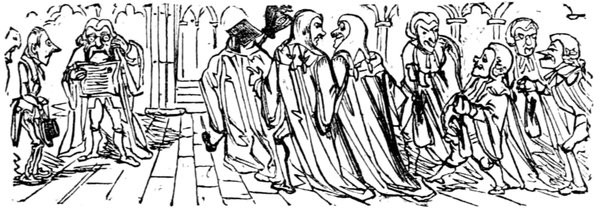
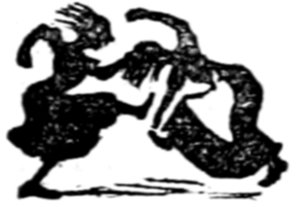
Termagants.
5. France in a state of spontaneous combustion.
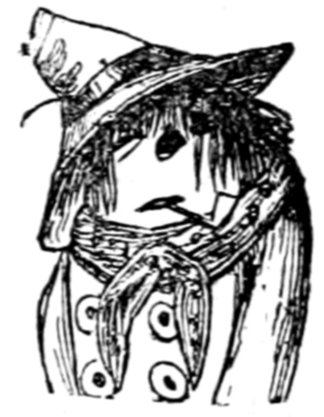
21. Princess Royal born, 1840.
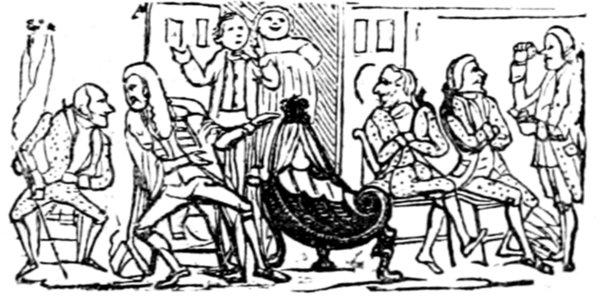
Lords in waiting.
Now, the sun, after a vain attempt to catch a glimpse of St. Paul's, or the Monument, gives it up in despair; while his morning herald, Lucifer, finds the fog more than a Lucifer match for him, and goes out like a damp Jones-and-Co. of a windy night. Now, the sleepy housemaid is in a fine trepidation, on discovering that her missis was right in giving her seven-o'clock ring an hour ago; she (the maid) having just counted eight in full, on the kitchen clock. Now, hook noses and cries of "clo" are more rife than ever; and, somehow or other, silver spoons and forks disappear more frequently from the "domestic hearth." Now, the poor behind-hand city clerk, who must be at his desk, in Lombard-street, by nine (it is now half-past eight by Lambeth Palace clock), determines to sacrifice fourpence on the Iron-boat Company; and, having passed an agonizing ten minutes in the cold, sloppy cabin, is at last annihilated by the steward's informing him that, in consequence of the denseness of the fog, the captain has determined not to run the boat this morning. Now, invisible cabmen drive unseen horses along viewless thoroughfares, and omnibusses go, flitting like so many Flying Dutchmen, through the mist and fog. Now, the two young gentlemen who have a coffee-and-pistol appointment at Chalk Farm, find it anything but agreeable to be set up only three yards asunder, instead of having the length of Primrose Hill between them, so as to have had a reasonable chance of missing one another. Now, a walk in the neighbourhood of Smithfield is by no means improved in its desirableness; it was bad enough before, but nothing to what it is under the "Bull's new system." Now, young Government clerks, who have to trudge "from the west," as they call it (namely—Marylebone-lane, "Chesterfield-street, Portland-place," and so forth), are highly indignant, and more than usually vituperative of the superiors of their departments, whom they commonly describe (particularly if of a political turn) as vile sinecurists, "grinding the last drop of blood from the brows of a suffering people, to pay for their own pleasures, and to minister to their own inordinate desires!" Now, nursemaids not "accustomed to the care of children" (in a fog), suddenly find their tender charges minus divers coral necklaces, ostrich feathers, gold lockets, &c. &c.; while the interesting young lady who leads dear little Fido about the parks, in a string, and reads Lord Byron the while, is horrified on finding that, for the last half hour, she has been engaged in dragging after her a mere remnant of blue ribbon. Now, omnibus cads only shake their heads in reply to your most earnest appeals and uplifted fingers, for their vehicles are all full, and can take in "no more." Now, "blacks" come down in torrents; and coal-heavers and chimney-sweepers are the only persons that can show a decent face on the occasion. Now, wood pavements are in nice condition; particularly that in the pleasing bend by St. Giles's church; where
Now, housemaids do their work in no time; for it's of no use looking out for raps from chamber windows. Now, on the 5th, little boys exhibit their Guys in all parts of the town; and, on the 9th, "children of a larger growth" make Guys of themselves all the way from Guildhall to Westminster and back. Now, 287everybody has got a shawl, comforter, boa, or bandana, round his or her neck—except the philosophers, who appear in respirators; the result of which is, that the shawl, comforter, boa, and bandana-ites, escape scott free, while the philosophers catch most confounded bad colds and sore throats. Now, unhappy is that mamma who has a juvenile party for an excursion to the Monument; for, of course, they'll all twelve cry their twenty-four little eyes out—equally if they go and can't see anything, or are kept at home because nothing is to be seen. Now, on the river is confusion worse confounded, and smuggling is going on most prosperously in all its branches. Now, the "old traveller," just arrived by the Antwerp packet, who will carry his own portmanteau and great coat, finds, on stopping to change arms, at the nearest post, that one or other of the commodities has disappeared while he was comfortably adjusting its fellow. Now, telegraph captains and weathercocks have a nice easy time of it, and the guide to the York column is gone to see his cousins in the country. Now, men with wooden legs look very independent, as they stump over the slushy pavement; and people who have the misfortune to possess complete sets, are sadly perplexed at the crossings of the Royal Exchange, Charing Cross, and the Regent's Circus. Now, hare skins and worsted comforters are hung out prominently at the haberdashers' shops, and furs, "at this season," are, by no means, "selling at reduced prices." Now, the man "wot lights the lamps" in St. James's Park, is in a regular state of bewilderment, and not unfrequently is found running up one of the saplings instead of the lamp-post. Now, the young gentleman who has an assignation in the "grove at the end of the vale," begins to wish he hadn't been quite so urgent in the matter, and would give his ears for a decent excuse to be off the bargain. Now, honest John Sloman, the grocer, at the corner of Cannon-street, in consideration of the werry orrid state of the weather, is inveigled by his wife and daughter to visit one of the promenade concerts; to which end, having never been at a promenade concert before, honest John provides himself with a stout cane and his easy walking boots, warranted to do four miles an hour over any turnpike-road in the kingdom. Now, clubs are crammed, particularly the Oriental, where enormous fires are kept up, and the chilly old nabobs cling round one another like bats in a cellar. Now, as the plot (alias the fog) thickens, torches make their appearance; first by dozens, then by dozens of dozens, then by dozens of dozens of dozens: Charing-cross is as difficult to navigate as the North-west passage, and the parks are impossible; hackney coaches drive up against church windows; old men tumble down cellar holes: old women and children stand crying up against lamp-posts, lost within a street of their own homes; omnibus horses dash against one another, and are handed over to the knacker; a gentleman, having three ladies and a young family of children to escort home from Astley's (on foot, of course), is in a nice predicament; all the little boys in London are out, increasing, by their screams and halloos, the bewilderment of the scene (scene, did I say?); pickpockets are on the alert; ditto, burglars; policemen are not to be found; watchmen are missing; in short, the whole town is in such a state of commotion and panic, that it only requires a well-organized banditti to carry off all London into the next county.
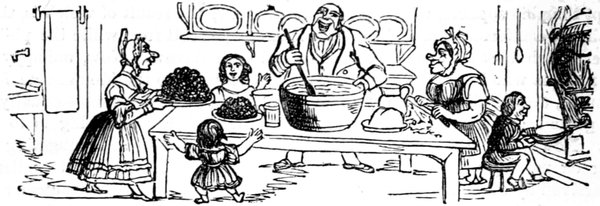

De Porkey's Tresor.
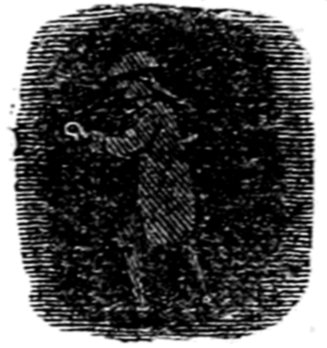
Shortest Day.
So dark, I can't see my hand.
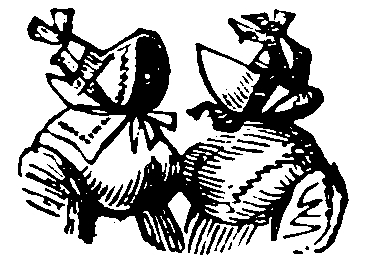
Bosom Friends.
Puddings, as well as people, begin to go to pot; cooks, as well as drunkards, get their coppers hot. Lemons excel hypocrites in getting candid: currants, from house to house, like crooked legs, are bandied. At moist sugar, instead of white, the busy servants jump; and wisely begin to like that which they cannot lump. Mothers who beat their children, whenever the whim comes in their head, now actively betake themselves to beating eggs instead. The family assemble, but it's no longer "my lovely Rose," or my sweet William, with his pretty stock, the flour of the Christmas pudding is now the flower of the flock! Father, the only one who never would to their low obscurity demur, is now just as anxious as any to join in a general stir. Ambition, alive in his breast, awakens a mighty surprise, to think that he, who was always mincing matters, should begin to mince pies! and they prophesy, as he rakes the plums, in the bowl of China or delf, that he'll live to a Christmas-day that shall see him worth a plum himself. "How fond he is on 'em all," says nurse, meaning to be clever; "I declare he's a mixing with his family more than ever!" "Yes, nurse," responds his spouse, who thought she could do no less, "your master's acting the part of president of the family mess!" and so on—nothing whatever their placid temper a-spoiling, until the pudding's made, and tied up, and shut down, and in the copper a-boiling!
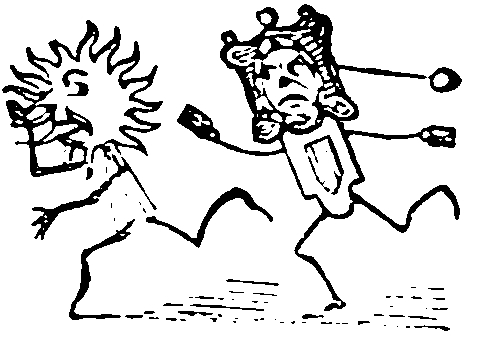
Clock after Sun.
21. St. Thomas, the shortest day.
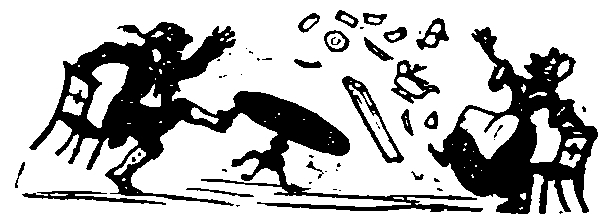
25. Christmas Bills:—
Note now, oh! reader, the denotements of my prophet sketch: open your eyes upon the symbols which I symbolize. Behold the Cross and the Crescent in neighbourly collision; yet the Crescent is not Burton Crescent, nor the Cross, King's Cross, though these localities approximate in as close degrees: but they tell of Europe cooking the Goose of a Pacha for the Turkey of a Sultan; and, by this time, the bird is plucked and basted, and may be considered as thoroughly done. Witness, too, how the dismayed tee-totaller gazes on the wreck of the Chinese world below. But Bull is in the heart of the shop; no juggler could save the jugs; every cup is a cup too low; the plates are dished entirely, and the case of cruelty is equal in atrocity to the murder of Ware. Now is exemplified the difference between a Man-darin and a daring man. It is breaking-up time, but no holidays. Loud is the music of Handle among the crockery, but its verbal oratory is demolished by the entire annihilation of spout. It is going to pot with a vengeance, and occasions, in China, the perfect distortion of every human mug. Tea, however, is scarce for a season. They refuse to give us their green for our gunpowder: they mix their mixed with poison, and it is now "How queer!" instead of "How-qua!" They refuse the bidding 292of Pidding! But turn from hieroglyphic revealments to the signs and prognostics of the domestic world. Is your curiosity moved to interest in the play of Destiny? I then will act the part of Tell. Upon the palace of Victoria I behold the shining of a new sun; the hopes of royalty may now be boy-ed up, and a fair young passenger lately arrived by the first royal train will move to another station, and take a place lower, by reason of what has taken place. I see the world settling, like cards, into pax. Peace coming a-pace-is: war we shall pose with repose. The political horizon shows clear. There will be an improvement in the State; and notwithstanding the recent explosion of Dr. Church's engine, I foresee no danger to Church. On the contrary, the sun will shine on Parson's Green; and, as regards the revenue, there is every chance for a surplice; probably owing to the New Church rate at which the said engine is going.
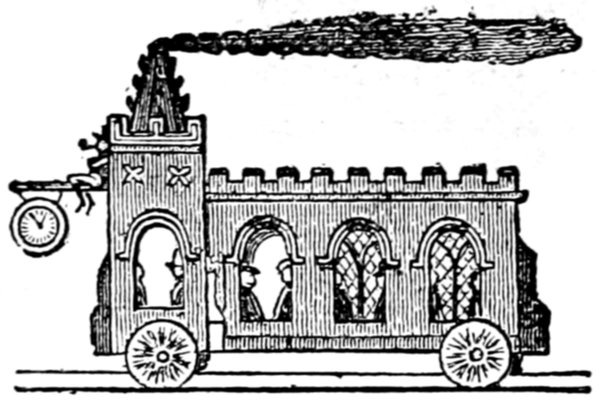
DR. CHURCH'S ENGINE.
Nov. 21st, 1840.—Princess Royal brought in, and "ordered to be laid on the table," like a bill.
Dec. 3rd.—Bill Jones found under the table, and ordered to be sent to the Counter like a willain. ("So much for Buckingham!")
Sept. 23.—Birmingham Musical Festival.—Ordered a cab; made for Euston-square Station; landed awkwardly; got into port; ran against a man; trod on his toe; gave my own port-man-teau to the porter. Paid my fare; had the satisfaction of hearing the clerk say, "That's the ticket!" Was told I must be sure to shew it when called upon; said, "Very well;" always did like to have something to shew for my money. Travelled briskly; steam engine a giant apparatus—a sort of Colossus of Roads; found they'd got me into a line; couldn't help it; obliged to go; been a long while going. Arrived at last; put up at the Hen and Chickens; thought, from the sign of the house, charges might be fowl; agreeably surprised to find them fair.
Monday.—Attended rehearsal. Splendid hall; grand interior; glorious outside; ruined the builders. Brought the stone from the Isle of Anglesea; sent the architects to the Isle of Dogs. Good rehearsal; noble orchestra; organ finely developed. Knynett acted non-conductor; stamped as if he was paying stamp duty; very droll; took the flats in, put the orchestra out. Glorious array of singers: Miss Birch stuck to her perch; Miss Hawes obeyed the laws; Dorus Gras—made no faux pas; Braham's throat gave tenor note; Phillips shone in barritone; big Lablache gave bass sans tache; Cramer led with cap on head; Loder and Cooke played by book; Dragonetti and Linley worked very well-o, on deep contra basso and violoncello; bassoon of Beauman bothered no man; horn of Platt came in pat; Harper's trumpet obligato, capitally took its part-o; Cook played show-boy with his hautboy; and, to end without a blunder, Chipp's drum had, its leather under, half a ton of smothered thunder. Heard 'em play; remembered the railroad, and couldn't help thinking that I'd got off the line into the chords.
Tuesday.—Festival began. Shop full; a crammer for Cramer. You've heard of the Chiltern Hundreds, they're nothing to the Birmingham thousands. The seats were all uniform, but no uniform for the staff officers, only ribbons in their button-holes; beaux with bows. Singers came on, and performance went off admirably.
Wednesday.—Town crowded; weather wet, but the people pouring in faster than the rain; music hall made fine shelter; full again; Mendelsohn's hymn of praise produced lots of praise of him; people delighted; performance stupendous; singers tired; Phillips almost knocked up; went out to refresh himself; strolled too far, and was quite knocked down; robbed of his purse by three brutal button-makers; he treated them to some sovereigns; they treated him to an extra allowance of punch; he was bruised considerably, 294but his watch and his barritone escaped without injury; heard a tallow chandler say, that Phillips and Mendelsohn were the heroes of the day, but that Mendelsohn had the glory of the composition, and Phillips of the whacks!
Thursday.—Influx of nobility—nobs and bobs—Sir Robert Peel among the latter.
Friday.—Festival over; grand fancy ball at night:
Drinking, dancing, all revel, no rest; proggery, toggery, all of the best; whisking, frisking, whirling about, till daylight comes, driving the candle-light out: then tired, not fired, their pillows they clinch, and the festival's come to its very last pinch.

The wonderful cures effected by these ingredients have made such a noise in the world, that we cannot resist the temptation to publish a few facts and testimonies which have fallen under our immediate knowledge.
The first case was that of a poor man, who had been for years a martyr to the gout, and being desirous of trying the effects of the miraculous compound, but unable to purchase the ingredients, he tried another plan, and perfectly succeeded in removing every symptom of inflammation, by merely sitting a quarter of an hour with one foot in a brandy-keg, and the other in a salt-box.
"Dear Sir,—May I beg your insertion of the following?—I was terribly afflicted with cancer, heartburn, chilblains, thickness of breathing, warts, headach, numbness of the joints, deafness, sore throat, lumbago, toothach, loss of appetite, falling off of the hair, corns, &c. &c., when I was recommended to try the newly-discovered panacea; and, I am happy to say, after two bottles of the stuff, I am perfectly recovered. You are at liberty to make what use you think proper of this letter.
"N.B.—None but the best French brandy will do, some very fine samples of which are on hand at my Warehouse, No. 99¾, Gammon Street, Hoaxton."
"sur—i Take the libberty of adressing yew about the brandy & sawlt. i was aflicted with dredfull lownes of sperits & rewmatism wich having freely aplide the abuv has boath Disapeard. sir my way of Aplying is the sawlt outside wonst a day & the brandy in twice evvery our. its effex is sumtims realy Asstonishing. my wife allso takes the abuv Meddisin in her tea, & finds grate bennifits.
"P.S.—sir a neyber of min Tride the abuv on his wife bean Bad skalded kiling a pig but Unlukky forgot to Put in the sawlt. owevver it was awl Verry wel, for the brandy aloan Cured his wife & now he's got the Sawlt to Cure his bakun."
[The following Extracts from the Proceedings of this illustrious Body, at the Meeting of 1840, will be read, no doubt, with the interest they deserve.]
Some very curious statistical and general reports were made by Mr. Colley Wobble, on the street refreshments of London. It appeared that the proportion of baked potatoe receptacles, or, as they were commonly termed, "hot tator cans," over kidney-pudding stalls, was as six to one. Of these 298cans one in seven was surmounted with lamps; one in three had a spare valve, to let off steam; and five out of nine used condensed Dorset scrapings, averaging about fourpence per pound. The kidney-pudding stalls appeared to confine their stations to the neighbourhoods of the minor theatres, and he could trace the effect of their nourishing principle in those thrilling and passionate outbursts, which melodramatic actors threw into such phrases as—"It is my daughter!" "Begone, sir! and learn not to insult virtuous poverty;" and the like class. Some of the stalls were embellished with singularly curious transparent lanterns, representing theatrical subjects on their four sides.
Mr. Bobbledabs inquired what species of light was burnt inside these transparencies?
Mr. Colley Wobble defined it as produced by the combustion of atmospheric air, acting on a half-consumed continuity of a twopenny thick, set in argillaceous candlesticks. He was led to make these observations from having perceived a hole burnt in the lantern, where the candle had tumbled over. The learned gentleman added, in continuation, that one of the most favourite exhibitions was "Kerim and Sanballat fighting for a kidney-pudding, from Timour the Tartar." He had likewise observed William Tell shooting a kidney-pudding from Albert's head, and Mr. Stickney riding five kidney-puddings at once for a horse—he meant to say—that is—the Association would know what he meant.
Mr. Snuffantupenny inquired if these piquant preparations were expensive?
Mr. Colley Wobble estimated the general price at one penny each. When purchased, the vendor made a hole in them with the nail of his little finger, and poured in some warm compound, out of a blacking-bottle, with a quill in the cork. The liquid had been analyzed by Mr. Faraway, and was found to contain one part fat, one part furniture oil, two parts infusion of melt, and sixteen parts of hot water, with dirt in solution.
Mr. Gambado then read a talented paper on "The imaginary barrier precluding pickled whelks from the tables of the aristocracy;" and having finished, he begged to propose a Committee of Inquiry—why boiled crabs were sold at three a penny in Union Street, Middlesex Hospital, when you might purchase four, for the same sum, on Kennington Common?
Mr. Bobbledabs trusted his talented friend would remember that Kennington Common was nearer the sea-coast than Union Street.
Mr. Gambado sat corrected. While they were on the subject, however, he wished to say a few words on the connexion supposed to exist between the anatomical school of the said hospital—that was to say, the Middlesex—and the number of shops for the sale of old bones and doctors' phials, with which Union Street abounded; and why so many dissecting cases were to be seen in the window of the pop-shop at the corner.
Dr. Corfe thought the reason was obvious. The scalpels hybernated with the watches towards the end of November, and the students were thus, unavoidably driven to use penknives for lancets, and the small ends of tobacco-pipes for probes and blowpipes.
10. King of Hanover claims some of the Crown Jewels of England.
20. West Middlesex Assurance bubble burst. Creditors in the suds.
Short days.
This elegant production was painted on a sheet of paper with a lace border, and presented a singular mixture of sentiment and improbability, viz.—a little boy, in a species of undress which the police would certainly prohibit from becoming the general fashion, riding in a car, like an enormous periwinkle shell turned topsy-turvy, upon wheels, and drawn by two pigeons—a proceeding of which every thinking mind must admit the impracticability, since the atmospheric resistance of the birds' wings could never afford sufficient fulcrum to draw so large a vehicle with any momentum, especially with cowslip collars and rosebud traces.—[See Proceed. of Chawturmut Lit. and Scien. Inst., p. 30.] A church with a pointed spire and two windows was seen in the distance, perfecting this tasteful composition of protestant mythology. At each corner were intricate red loops, like mud-worms in convulsions, termed true lovers' knots; and below were eight exquisite and novel lines, of which we present the reader with the termini, leaving him to fill them up as he pleases:—"heart—smart," "languish—anguish," "flame—name," "you be mine—Valentine."
What do you think? Mr. Pippy, the young apothecary, who came down here to take our union of fourteen parishes at £20 a-year, has sent me a Valentine. Not a common, impudent penny one of an old maid, with cats and parrots all about her, but a beautiful picture of a little Cupid—such a love!—riding in a thingemygig, drawn by two what-d'ye-call-'ems, with—oh, my!—eight lovely verses underneath. I know it's from him, because it's scented all over with the best Turkey rhubarb and oil of peppermint, and I found a small piece of pill adhering to the envelope—how a trifle betrays the secrets of the heart! My mind is all in a titter-totter—do come and see me.
The auricles of my heart contract with accelerated circulation as I pen these lines. I can no longer conceal that my love is as firmly fixed upon you, as with a solution of gum-arabic. Are your affections free for me? and may they be taken immediately, and repeated every four hours with one of the powders?—alas! I scarce know what I write. I have already directed a dozen draughts to the wrong people: one old lady has swallowed half a pot of ringworm ointment, and Mrs. Jones has been rubbing her little boy's head with lenitive electuary. You alone can write the prescription that shall administer to my incertitude.
We have given a small party, and he has formally proposed. He was very timid at first, but it was the red wine negus that did it, for Mamma very kindly made it pretty strong, and gave him a good dose, immediately upon my singing—"I'd marry him to-morrow." He says he has loved me "ever since he first saw me at church in that beautiful cloak." My dear, it was my old pelisse, which I had turned, made into a capucine, and lined with blue Persian; but love gilds everything by its magic: possibly it converted my last year's straw bonnet into a Tuscan chip. It is pouring in torrents, and they say if it goes on we must have a flood. He is sitting at his surgery window, looking at me, between the red and blue bottles, with a spy-glass.
How uncertain is everything in this world! I was to have been married to-day to the loveliest of her sex, but the floods have so risen, that nothing but the roof of the church is visible. It began yesterday morning, when the canal banks broke, and increased with such rapidity, that I was compelled to spend the day on the dining-table, and am now driven to the second floor, with no provision but a flask of lamp oil and some tooth powder. The sick paupers of the Union I attend have just arrived on a barge, which has got aground on the bridge. The bell-ringers, also, who were practising in the belfry when the irruption took place, are fast enclosed therein—the doors being under water, and the windows too small to get out at. They are ringing for help, and the sound is awfully painful, as it was to have been my bridal peal. A letter has just been brought by Tom Johnson, in a mash-tub, from my adored Celia; I hasten to read it.
Do not, I implore you, think too much of Hero and Leander. Our rustic Hellespont is far too cold for you to plunge into and swim across, and such a proceeding might excite the gossip of our neighbours. Let us endure this trial with patience. The waters are certainly abating, as the French bed in our back room is now visible, and John has caught three fine eels in the pillow-case, which I send you, as well as my pet Carlo, who will swim back with any answer you may have to send.
Married, on the 28th inst., Phineas Pippy, Esq., to Celia, daughter of Anthony Potts, Esq. The ceremony, which was delayed by the late floods, was performed as soon as the waters sufficiently fell—the party going to the altar in a punt.
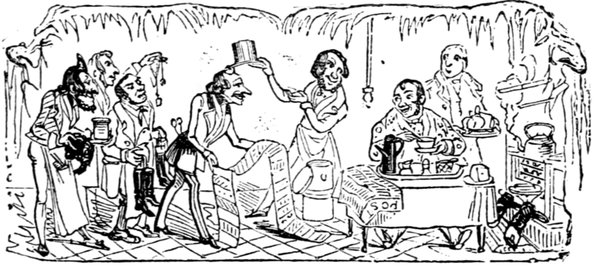
14. Crockford cuts the cards, and throws up the game.
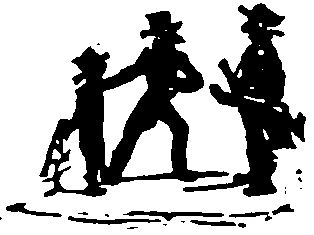
"Not guilty, on my honour."
16. Lord Cardigan's trial and acquittal.
21. The Pennard Cheese.
26. Explosion of the great projectile in Essex.—Lots of calves frightened to death, all for the public weal.
28. Conviction at Worship-street, for selling spurious T, which shows the necessiT of avoiding an uncertainT.
It is at all times a pleasing task to chronicle heroic deeds, and we hasten to immortalize the proceedings of this gallant body of veterans during the past year. Amongst their most daring and successful attempts, have been the taking possession of Eel Pie Island; the storming of the baked apple-stand, at Temple Bar; the blockade of Bolt-court, and the celebrated passage of the Paddington Canal, under the direction of General Blackrag, the great city undertaker, to whom the attack was entrusted, from his experience, as he himself stated, in marching at the head of the corps. He was ably seconded by his usual auxiliary, Dr. Bluelight, the former providing the shells, and the latter the mortars, the combined effects of which produced terrific execution. From the usual habits of the troop, it may readily be conceived that counter marching was the manœuvre at which they felt most at home; in fact, the only idea they had of "a regular march," was the one between February and April. During their encounters, they have given and taken no quarter, except an occasional fore one of lamb; whilst their undaunted courage was well shown in the speech of Ensign Miggins, who declared "that he would never shrink from coming to the pint, even against a rampart of quartz;" and his unshaken energy in bearing the standard was never known to flag, firm as its contemporary in Cornhill. Their acknowledged love of card-playing having induced some unpleasant gambling transactions, it has been resolved, by the head of the members, to prevent all legs from bearing arms in their body; and a late regulation orders the colour of their plumes to be a deep crimson, not only as emblematical of blood and glory, but from its precluding the possibility of any one, at any time, showing a white feather. It is truly delightful to contemplate the harmony which reigns amongst them at present; and it it somewhat remarkable, considering their aptitude for catches of all sorts, that they have made no prisoners. The only approach to anything like discord in the troop, was upon the occasion of the dispute relative to a contemplated attack upon Burgundy and Madeira; but even this added to the general harmony, since, although the dinner service was demolished in the contention, this one war was productive of one hundred peaces; and it furthermore enabled the members to present to their friends several unique pieces of plate, at a small outlay. We are indebted to their laureate for the following—
7. A wooden spoon presented by an old woman to the Queen.
14. Reported destruction of the Falls of Niagara.

Ball practice. Finishing lesson.
Some excitement has been caused among the learned bodies on the Continent, by the discovery of a new Chlorine Bleaching Fluid, of novel and unexampled powers, the invention of which is due to Professor Jügler, of Scampsburgen. Not only has it the power of removing the most permanent stains from a person's character, but it also clears the most muddy conscience in the course of a few applications; and a small quantity applied to the head as a lotion is gradually absorbed and filters through the brain, removing in its course all unpleasant reminiscences and uncomfortable thoughts. Its mollifying powers have been tested on a number of the hardest substances, including the heart of a metaphysician, which, in a few seconds, it entirely humanized. Diluted with water, and sprinkled on the floor, it purifies Houses of Parliament, Lawyers' Offices, Private Lunatic Asylums, Cheap Schools, and Race-course Betting-stands; and, used medicinally, a few drops, taken internally, blunt the intellect, and if administered before a trial, will totally destroy any souvenir of a former event that it may be deemed advisable to get rid of in a principal witness. We ought in justice to add, that the Mnemonic Tincture was also the discovery of the talented Jügler, which is equally useful in causing persons to recollect things that never happened at all.
311Photographic Portraits. Whilst the Adelaide Gallery and Polytechnic Institution of London are vying with each other for superiority in producing those remarkably pleasant-looking and cheerful representations, Mons. Le Cœur, of Paris, has adopted his new system of taking them, which it seems he addresses especially to young engaged people. The optical structure of the human eye, it is well known, forms a Camera Obscura, by whose action the lineaments of the loved one are correctly stamped upon the heart. The chief difficulty has been experienced in fixing the picture so formed; for it appears that, after marriage, there are few, if any, traces of the features that were impressed there before.
Amongst the Patents taken out during the past year, the Polyglossographic Adamant Steel Pen ranks high in estimation. It is particularly recommended to the notice of the public, for the facility with which it enables people, not only to write in any language they like, but to transcribe with grammatical elegance.
The Parvenu Medium Point is invaluable to those ladies and gentlemen who have experienced a sudden rise in their fortunes; as it saves them from exposing their want of education to their epistolary friends.
The Platino-Zincoid Poetical Nib will write Stanzas to Mary, and lines to a Moss Rose, in any quantity; peculiarly adapted for Albums and Fashion Books. To paid, regular contributors to Annuals and Magazines, who revel in the mill-horse style of writing, it will be found of incalculable advantage.
The Romance Rhodium Quality will furnish tales for newspapers at a column an hour, varying in thrilling intensity, or historical epoch, according to the ink used, which may, it appears, be procured with the pens. The Newgate Writing Fluid is the most popular at present.
The Patent Circumslogdollagizing Leader Pen will prove highly advantageous to gentlemen of the Public Press, from the facility with which it produces leading articles on any popular theme. We had the satisfaction of trying a Corn Law pen, which answered admirably; and we hear the ingenious inventor has manufactured Chartist, Commentary, and Abusive pens, on the same principle, as well as Review Nibs.
The Engineer of the North-south-east-western Counties Railway undertook, for a trifling wager, to travel at the rate of twenty miles a second, and actually arrived at the appointed station some time before he quitted the terminus! He states that this intense velocity is obtained by using gin and water in the engine, instead of water alone, which imbues it with a species of temporary intoxication.
The Leviathan steamship, to run between England and America, will be launched early in the Spring. Great fears are, however, entertained as to whether there will be room enough in the Atlantic for her to turn round, without damaging her bowsprit between Liverpool and New York.
6. The will of Wood of Gloucester litigated.
9. One Boa Constrictor, at the Zoological Gardens, swallows the other.
11. Military Flogging on Sunday—Lesson for the day.
Bailie Mucklescratch dwelt at Glasgow, in the Candleriggs. He was what is called a "warm" man; that is, one who had rubbed on well in the world, as indeed it is probable most of his customers did, the Scots being a people celebrated for playing the rubber of life. The baillie kept, in American phraseology, a "store"—in London vernacular, a chandler's shop; a bazaar, whose staple consisted of oatmeal and red herrings, esculents in great esteem north of Tweed. It has long been the opprobrium of philosophy that no satisfactory reasons have been assigned for the proneness, in Caledonia, towards porridge and salt fish. With unqualified satisfaction the announcement is here made that their large pewter Minerva medal will be presented, at the next meeting of the British Association, for the best treatise on the "causes and effects" of a taste, evident on the most superficial glance at the natives of that country. He also kept an only son, Sandy Macalister Mucklescratch, who kept——but that is not part of our present affair.
Now, though the elder Mucklescratch evinced no ambition in selecting a worldly position for himself, he had an itching about the appearance of his heir. To this end, after a course of "humanities" at home, he consigned him to a member of the College of Surgeons, an establishment renowned for the sobriety and decorum of its disciples. No youth since the days of Esculapius was ever in so fair a way to dignify the profession of medicine as the young Glasgovian, if his own account was to be believed; and who was so likely to possess the real facts of the case? To be sure, the honour was not attained free of expense; but could it enter even the heart of a Scottish chandler to suppose that his son might carve at the same table with Sir Benjamin Brodie, or Sir Astley Cooper, without sharing the cost of the entertainment. Day by day accounts arrived from the medical student; those who observed their effects upon the receiver might have concluded they were not quite satisfactory; but what could be expected from an old fellow who lived upon "cock-a-leekie" in the Candleriggs? Fortunately, some of these letters have been preserved; we copy one, to show the progress made by the writer in other composition as well as that peculiar to Materia Medica.
"Governor,—Science can't be purchased without dibbs. When we want subjects, we must shell-out. My share, for next lecture night (as there will only be four of us), will take the shine out of a ten pound stiff. Send the price of the spread, old trump, to your dutiful son,
However well calculated such studies might have been to procure patients for the son, they dealt differently with the patience of the father. Indeed, it can hardly be held unreasonable that a man who had existed for half a century on fourpence a day should feel a little disposed to inform himself how ten sovereigns could be required for the fourth of a supper bill. Full of this natural curiosity, the man of groats went to Edinburgh, embarked smack for 314London, and presently domiciled himself on a lower floor in the neighbourhood of Upper Gower Street, where, as the bill in the window implied, "gentlemen were taken in, and done for." The traveller was weary: with his nightcap mounted, and his chamber's light ignited, he was about to seek Nature's restorer. What scared him from his purpose?
The clock had told ten, and in the drawing-room apartments vertical, four of the "Won't-go-home-till-morning" club assembled to pass the day. "Gentlemen," shouted the chairman, "here's CONFUSION TO ALL ORDER! Now the Charter chant, if you please, with honours." Then rose the company, and while each executed a rigadoon to his particular taste, all pealed forth in chorus—
Thus, from night to morn the carouse continued, and each returning sun was the signal for its repetition. There was but a choice of evils for the ground-floor tenant—to remain where he was, and be killed by the inch, or rather, by the foot, or pay a se'nnight's rent for a night's lodging—which would have despatched him at once. All day did the miserable meal-man seek his hopeful, with sorrow, and no success, and all night (truth compels the confession) over the sire's head did the son perform the dance of death. A shocking bad life was "Sandie" leading: both the elder and the younger Scot were pursuing the M.D. after a fashion Maximé Deflendum. The week ended, leaving the Glasgow magistrate with just enough of life to assist him back to the Candleriggs. A trusty friend in the Great Metropolis, however, was commissioned to discover the retreat of the prodigal, and compass his restoration to the disconsolate parent. After a time, and a rigid stoppage of supplies, this was effected; and Macalister Mucklescratch's career of dissipation ended, as many a similar course has terminated, in his being sent to the Old Baillie!
Far north as he was born, the ancient Scot had a warm heart. Kindness worked its accustomed office; and it was not long before the prodigal son became the pride and comfort of his father's house. A pleasant thing it is to see the pair seated together, and hear the old man, with glistening eyes, repeat his especial bon mot. "Eh, Sandie, my lad, when you and I were practising 'ABOVE' 'BELOW,' wha would ha' thought it would have ended in
12. Mr. Muntz complains of the ventilation of "the House," and advocates "more hair."
29. Restoration day. Hearts of oak cut their sticks.
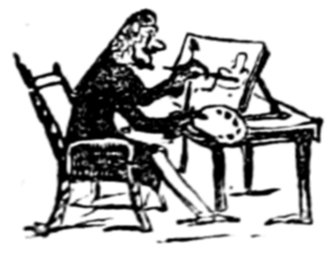
Draft Horse.
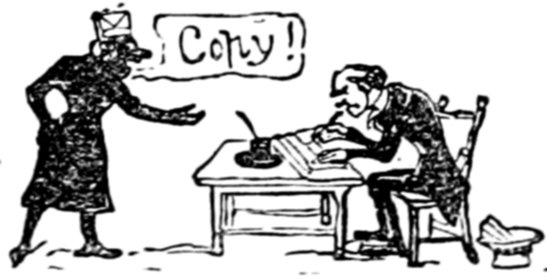
Hunter and Hack.
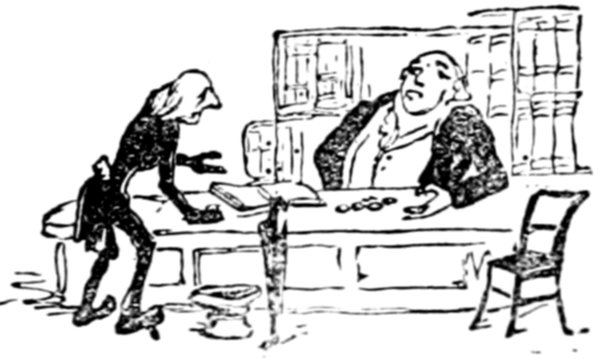
Seller and Buyer.
"Our life is twofold," Byron says; and it's very certain that we pass an equal part before and behind the curtain;—from the chandler, whose trade's his prop, and contrives, all the week, to stop behind the counter of his shop, in the midst of red-herrings and split peas, French eggs, Prussian blue, Irish butter, and Dutch cheese, with many other articles similar to these—but Sunday he gives up to ease; and, "cutting the cheese" for the day, with his shay, makes a little display, and off for a trip drives away, with his wife in a toilet most gay, to 'bide by his side, with the pride of a bride, for a ride where their own wishes guide.
Then there's the gentleman some folks call a fop, who lodges very near the house-top, and dines off a solitary chop, in a coat too worn even to pop, and which no old clothesman would swop—that's the shop!—Then he turns out a dandy complete, to swell up and down Regent Street, with neat polished boots on his feet, not in dread of the friends he may meet, nor anxious to shuffle away—that's the shay!
And next, Mrs. Brown, in a fright, that her seventeen daughters, in spite of their figures so slight, and eyes bright, do not marry as fast as they might, determines her friends to unite, and sends out to each an invite; and all the day's in a sad plight, herself putting up each wax light, in order that all may go right, as she trusts the blanc mange will be white, and not spoilt by her own oversight; and, by evening, is ready to drop—that's the shop!—And when night comes, rewarding their pains, her daughters, in mousselain-de-laines, with flushed cheeks and quick-throbbing veins, to the cornet-à-piston's shrill strains, are flying about with their swains, whom they hope to entrap in their chains, as fast as a set of mail trains; and all is as gay as a bright summer day—that's the shay!
And the young opera danseuse, who goes to learn how to walk on her toes, or study each elegant pose, to an audience of empty pit rows, in her toilet of everyday clothes, with her cheeks pale as death, and her nose, from the cold, almost couleur de rose, the which she incessantly blows, as she goes through each posture and hop—that's the shop!—And, at night, from her place at the wing, she comes on the stage with a spring, and plaudits throughout the house ring, at the sight of so sylph-like a thing, and her lover's the son of a king, round whose neck her white arms fondly cling, until pulled aloft by a string, she floats on a bright canvas sunbeam away—that's the shay!
And the poor scribbling author, whose will is a few brilliant thoughts to distil, that may flow with his ink from his quill: who grinds his brains just like a mill, in his garret deserted and chill, and thinks till he makes himself ill, in the hopes that his pockets may fill, when the publisher praises his skill, and who trusts, from his efforts, to reap a good crop—that's the shop!—And when his said work proves a hit, and the sharpest reviewers admit, that it shows many traces of wit, and he's thought for their coteries fit, and soon of his debts can get quit, no longer obscurely to flit, but soar in the day—that's the shay!
To find it a rapid thaw when you have purchased a new pair of skates, and have invited a party of ladies to see your performance.
Getting soaked through, on your way to the Epping Hunt, and being told that you have only taken your share of the Easter-dews.
Driving your feet hastily into a pair of new Wellingtons, in order not to miss the train (time and boots a tight fit), and finding, by the feel, that the straps are at their bottoms;—boot-jack not to be found.
Being asked to dine, on a New-year's day, with a family, in which the children always expect presents.
Taking a box at a theatre for the express purpose of hearing the wonderful new vocalist, and finding, when you get there, only "indisposition" and a stale comedy.
Being "not at home" to an old friend, and coming downstairs, in a forgetful fit, before he has had time to leave the house.
Bowing, in your usual bland and affable manner, to a gentleman in the street, whom you recollect, as soon as he has passed, that you ought to have kicked.
"Popping the question" in a pair of tight boots; the lady seeming in no hurry, and to enjoy your agony.
Going out to be godfather, and remembering, at the proper crisis for presentation, that you must have left "the" silver cup in some omnibus.
To be interrupted while writing a Bill-et-doux, by the recollection of a bill over due.
Being asked to carve, if you are a musician or literary man.
Being compelled, in a party, to sit down to whist; and hearing your favourite part in an Italian quartet, which you had studied for a week before, sung by a murderous wretch whom you long to strangle.
Writing an appointment to a lady, and a disappointment to a tailor, and cross-directing them.
Paying your rent punctually, on quarter-day, to your landlord, and being distrained on the next day by his landlord.
Having ascertained, by a peep down your friend's area, that there is a turkey on the spit, and calling, accidentally, of course, about dinner-time, you feel rather sheepish when the cold mutton is brought up, and learn, in the course of the evening, that the kitchen fire had been lent for the dinner party of the next-door neighbour.
Abusing a person whom you have never seen, to a respectable-looking stranger, who, after apparently nodding assent, with the patience of a martyr, quietly observes that he is the man. The unpleasant anticipation of loose teeth, as you see him making up his bunch of fives.
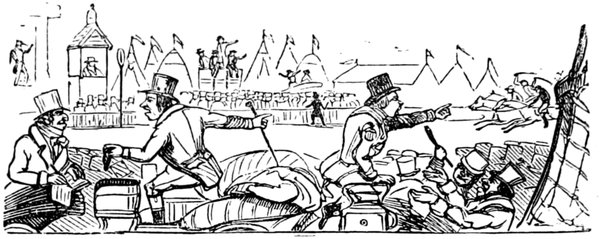

Floored by the Leger.
Starting Post.
Winning Post.
Neck and Neck.
Racers.
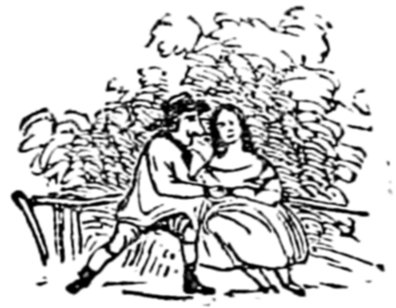
Hedging a Bet.
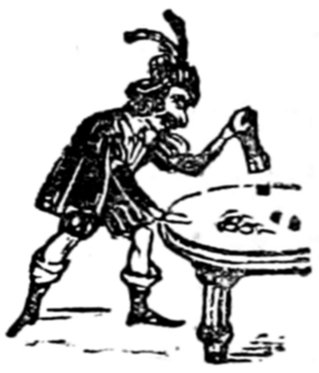
Don-Caster.
The celebrated Primrose Hill, which is estimated to be nearly one hundred feet above the level of the Regent's Canal, forms one end of the great chain of the Metropolitan Alps, which comprises the respective hills of Highgate, Ludgate, Snow, Saffron, Mutton, Addle, Tower, Corn, Constitution, and many other peaks. Whilst the enterprises of Sherwill, Clarke, De Saussure, Auldjo, and others, had carried them to the summit of Mont Blanc, and M. Agassiz had overcome the hitherto impracticable Jungfrau, and given their published accounts to the world, it is somewhat strange that no narrative has hitherto been published of the ascent of Primrose Hill. To supply this void in our literature, as well as to furnish an account to Peter Parley, which, in the event of his refusing, I should have sent to the "Penny Magazine," I was induced to undertake the excursion. Although the time of year was somewhat against me, yet, from the noble offer of Mr. Vult, whom I met casually in the diving-bell at the bottom of the tank in the Polytechnic Institution, I determined, at all risks, to make the attempt.
On inquiry, we found that the charity boys of the district schools were best acquainted with the localities, and we therefore engaged four of them as guides. Their parents did not seem to comprehend our intentions, but possibly this arose from reluctance to allow their children to join our venture: but we overcame their scruples by offers of liberal payment, and named the eldest ("Plucky Simmuns" as he was familiarly termed by his fellows) as our chief guide. We also contracted with a broom merchant in Kentish Town for our ice-poles.
The next morning at nine o'clock, and in a deep snow, we left the Albany Tavern, amidst a crowd collected to see us start; and crossing some palings and a piece of broken ground, prepared to ascend. Our progress soon became one of extreme peril, as the snow had been collected from Park Village, and shot out on this waste, forming vast hills, which required great labour to surmount. Once I completely stuck fast, and before I was extricated nearly left one of my cloth boots behind me. Our respiration also became very difficult, evidently from the rarefaction of the air at so great a height, although Mr. Vult persisted in attributing it to the hot rolls we had eaten at breakfast. We crossed this large confusion of snow, which we presumed to be part of the Chalk Farm Glacier, and were astonished, on arriving at the opposite side, to see a man in these wild solitudes. He was evidently a child of the mountain, and proffered for sale an article he termed "ginger cocktail," which he assured us would prove most palatable. We bought some, and went on.
The conduct of our guides was most remarkable: in circumstances of the utmost peril they betrayed a levity almost unnatural, and more than once took to snowballing each other, as if they had been on level ground. We continued to ascend until the dreary waste of the Hill opened on us in all its awful grandeur. No living thing was visible, and the earth below was fading in the misty distance, leaving no trace of its existence but the tops of the tall chimneys on the Birmingham Railway. Once, and once only, Mr. Vult fancied he heard the squeak of a train coming in: this might or might 320not have been the case. The cold was most intense, but we had made up our minds to succeed or die, and we pushed bravely up the last slope.
At half-past eleven we reached the summit—and never shall I forget the eventful moment. My companions partook of my excitement, with the exception of Mr. Vult, who having had the care of the brandy flask in the ascent, and not being a teetotaller, had indulged in so many tastes, that his conduct was most unscientific. He insisted on trying to waltz with Simmons, and threw his new hat at a bird that flew over our heads. A passing breeze carried it down the Hill with as much ease as if it had been its namesake production of the fields—the work of the Aranea Sylvestris, or Gossamer Spider of Linnæus.
With respect to the view, so dense was the fog reigning around, that we saw nothing beyond twenty yards from us. What lay within that radius was, however, very magnificent, consisting of a deep layer of snow, broken only by our footsteps. In answer to my inquiry of Simmons, if avalanches were common in the winter, he replied, with much candour, "That he didn't disactly know, but he believed there was lots of nuts and brandy-balls, now and then." Having satisfied our eyes, we prepared to act similarly towards our stomachs: and we were glad to find our elevated situation had no other effect upon our animal economy than wonderfully increasing our appetites. The guides feasted at a small distance from us; their provision consisted principally of cold bacon, which they had tied up in their neckcloths, where it acted as a stiffener. We allowed a bottle of Guinness amongst them, fearing, if we gave them more, they would get confused, and unable to find their way down again. After dinner I proposed "Prosperity to Science," which Mr. Vult insisted upon giving with three times six, and finished by falling down on the snow, quite overcome. The sentiment given by Plucky was simple, and indicative of pastoral feeling. He merely exclaimed, as he slapped his hand against his yellow-leather indispensables, "Here's luck!" and drank up nearly all the bottle at a draught, to show how much in earnest he was.
I wrote some notes in pencil for our friends to keep as souvenirs, and made several scientific observations. On endeavouring to ascertain, from the fall of the mercury in my barometer, at what height we stood, I was surprised to see no traces at all of the mercury on the index plate. I subsequently found Mr. Vult had tumbled on it, and all the quicksilver had run out.
As afternoon advanced we prepared to descend, dreading lest night should overtake us in these wild solitudes. Our guides showed us a method of coming down the declivities, at which they seemed very expert. They sat on the snow, and glided down with the rapidity of a railroad. Not liking to trust myself alone, Plucky took me behind him, and we got down safely. Mr. Vult, however, over valiant, would go by himself, and consequently, after sliding at a fearful rate, he suddenly disappeared, having, as we imagined, slipped into some tremendous crevice of the glacier. We found that he had fallen into a hole where the railway navigators had been digging for clay, the water in which had got slightly frozen over, and then covered with snow. This accident somewhat checked our ardour, but we congratulated ourselves upon its fortunate result. At length we reached the level ground, and returned to our inn, highly gratified with our excursion, although we would recommend no one to undertake so perilous a task from mere motives of curiosity.
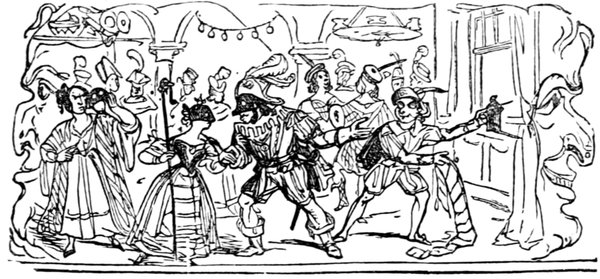

Champagne.
Real Pain.
Ice-Cream.
Dominoes.
Tongue and Chicken.
Census return. All the madmen included.
August, 1841.—At the Annual Meeting of the British Fill-us-off-ical and Feeding Association, at Ply-mouth, the following ingenious plan was promulgated—for a Company for the Confusion of Useless Knowledge. It is needless to say that so praiseworthy a project met with the unbounded sympathy and concurrence of all the members present.
It is intended by the Company to supply the present enormous mental appetite of the public with a full feed of science and literature in a series of sixpenny bits, or bites. To prevent the appetite from becoming cloyed by too continuous a fare of any one kind, the bits will be so intermingled and diversified as to keep the biters always expecting and never satisfied. Thus, the biography of Bacon will be relieved by a bit of the history of Greece; a bit of Astronomy, by a bit of Brewing; a bit of Roman History, by a bit of Algebra; a bit of Chemistry, by a bit of Commerce; a bit of the History of the Church, by a bit of Sir Christopher Wren. Vegetable Physiology, bit I., will be probably followed by a Treatise on Probability; from the study of which the reader may, if he please, try to find out when he is likely to see Vegetable Physiology, bit II. The whole will thus form, in the mind of the student, a most desirable complication of the Novum Organon, Athens, Malting and Mash-tubs, the Cæsars, Logarithms, Oxygen, Tariffs, Telescopes, the Arian Controversy, the building of St. Paul's, Cellular Tissues, and Reversionary Interests.
The success of various topographical works, which, in their periodical production, illustrate perhaps a description of Northumberland, with views in Norfolk or Middlesex; and of the Encyclopædias, which accompany the article Entomology, with probably the plates of Clockwork, or Geometry, justify the Company in adopting a similar mode of arrangement.
The Company propose, in order to insure the greatest possible degree of ultimate perfection, to commence some of the subjects with bits, developing the present notions of the scientific world, and to keep them incomplete till they can conclude them with the discoveries of the next generation on the same topics; so that the statements in bit No. 1 will probably be corrected by the subsequent discoveries in bit No. 2 of the same subject, to be produced ten years hence; but, considering the philanthropic views of the Company, they will consider themselves quite at liberty to abandon, incomplete, any of the subjects which it may not be very easy for them to finish; considering it to be fully in accordance with their general object to leave to their followers that glorious desideratum of the aspiring and energetic mind—
| 324 | |
| AUGUST. | [1842. |
|---|---|
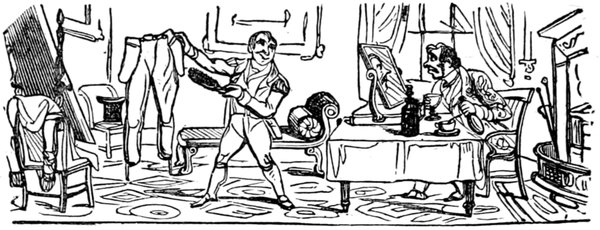
Mr. Green is, with all deference to the gentleman of another colour who generally assumes that title, the real Prince of the Air. He rides upon the whirlwind where he lists: the atmosphere welcomes him with hail! and the bridled tempest offers him its rains. If the perfection of the science of aërostation be so perfectly within his grasp, it is plain the elements must long since have yielded: he knows all their economies, and regards the zephyrs as familiar airs. The mischievous wind, so often presuming on its intangibility, by committing all sorts of depredations, and then scudding off, is compelled to confess its inability to cope with him, and to own the presence of "Green in its eye." Hecate is, compared to him, a dull, powerless agent; for his spirits do not wait for him on the rather uncertain tenement of a foggy cloud—which, from its surchargement with aqueous vapour in suspension, stands a chance of converting them into weak grog—but lie neck and heels at the bottom of his car, assimilating, in their nature, to bottle imps. When other people call a coach he unconcernedly takes a fly, and floats up like down. Other blessings attend his aërial wanderings. His champagne and stout are sure to be up; his cold pheasant is palatably high; and his other refreshments range far above all imitations. He takes leave of the world, not as an anchorite, but to enter a livelier grade of superior society, moving in an elevated position; and bears with philosophical indifference the wide reverses of his existence, from the most rapid rise to a subsequent decline and fall; although, at the same time, no man has more uniformly good prospects. We only wonder how he can tolerate our dull earth, and wager he never feels so secure with the flags of the pavement as he does with those of his own balloon. His very nature must have been reduced to what it works in—the atmosphere: and those who may eventually succeed to his possessions can be no other than the Airshire legatees. The rise and fall of the stocks affect him not—his own keep pace with his situation; and the glance of his eye sweeps the whole range beneath him with a bird's-eye wipe. There are but few difficulties on earth that he cannot grapple with. His balloon is his substantial and impregnable castle in the air, which he has built himself: and he always has his wits about him cool and collected, though, like a wool-gathering ruminator, he is constantly in the clouds. Although Mr. Green was long connected with the Polytechnic Institution, where his aëronautic whirligigs used to demonstrate the power he had acquired in guiding balloons, we are convinced he never went down in a diving-bell, for he would have been literally out of his element; unless the galvanic experiments at the same time could have chemically decomposed the water around it into its constituent gases, and he would then have gone aloft with his darling hydrogen. We once saw him contemplating the diving-bell; but it was with the air of an eagle of the sun gazing at a dabchick, apparently lost in wonder, not at the machine, but at the eagerness of the visitors to descend in it, to the chilly depths of the tank. It was evident that he no more regarded them as of his own species than the brilliant libellula, rising in the sunshine, owns the immature chrysalis lying at the bottom of the pool.
We ourselves, who are not a prey to such flights of ambition, hold the Polytechnic Institution, and its million wonders, in especial reverence from beginning to end, and think it fortunate that its professors live in enlightened times, or they would be assuredly burnt for necromancers, and form their own fire-clouds; producing photographic shadows of themselves, by the glare of 326their own faggots. Not being inclined to soar aloft, we rather approve of the diving-bell, and often pay it a visit. It affords matter of gratification to everybody. The scientific man goes down to measure the pressure of the atmosphere upon the drums of his ears, and see the displacement of water by air; the sightseer and curiosity-hunter, to experience a novel sensation; the hair-brained lounger, fresh from Regent-street, with his little stick and blotting-paper-coloured Chesterfield, to "put up a lark," although the bottom of a tank of water is certainly rather an unlikely place to find such a creation; and the lover of display, to gratify a trifle of ambition in becoming the pro-tempore lion of the place, as he emerges from the bell on its emersion from the water, in the bright eyes of the pretty girls who are looking down on his sub-aqueous venture from the galleries above.
The diving-bell, in the present era of compound-progressive science, is only in its infancy—its tinkle will, ere long, be changed to a toll: we speak metaphorically, and do not allude to the shilling paid for entrance. We have passed the adventures in the picture which illustrate the article "Bell-Diving," in the Encyclopædias, representing two gentlemen, who have secured places inside, holding air-tubes, and one, more venturesome, who has strolled to take a cold without, carrying a small bell on his head, and a boat-hook in his hand, amidst rocks and sea-weeds. Bolder schemes are in progress. The bell will open a new line for travellers to the Antipodes, by going right through the sea at once, and thus curtailing the journey by the geometrical relation which the diameter bears to half the circumference. Neither should we be surprised if people, addicted to go down to watering-places, go down at once to the very bottom, and choose waterproof summer villas on the beds of our lakes and rivers, exempt from land-tax and ground-rent; when, stationed in the water, they fling defiance at the law of the land. Such a position would be a fitting site whereon Father Mathew and his proselytes could erect a temple to the Genius of Teetotalism.
We need not add, it will take some time to bring the public mind to an idea of the security of these abodes. The shilling'sworth of flurry and ear-ache which the adventurers purchase so readily, still, however, finds a rapid sale. We descended the other day with a lady who had a great deal of the former commodity for her money. Her fright was extreme, when the huge monster that contained us first swung off its perch; and, when its mouth touched the water, she gave way to the wildest despair, even to attempt breaking the windows with her parasol. The only moment of security she experienced was when she reached the bottom. Here she fairly jumped down off her seat, on which it had required great exertion to retain her, and begged to be left where she was, now she had once reached the ground again, observing, we might go back in the bell if we chose, but, for her part, she preferred substantial footing to again trusting herself in such a crack-me-crazy vehicle.
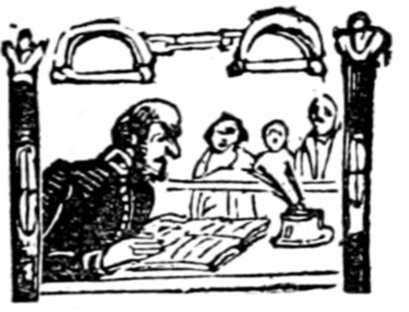
Black Eyes and Blue Jackets.
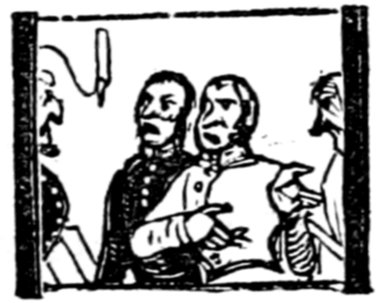
Tremendous charge of the Blues.
1. Why is the back of a hare like a narrow escape?
29. Rent Day—Landlords' levée.
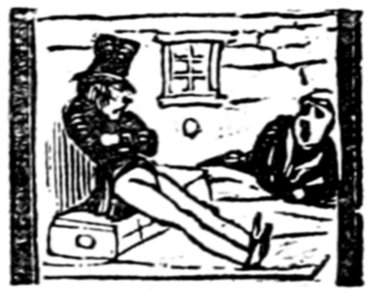
In cool grot and mossy cell.
Star-gazing in season.
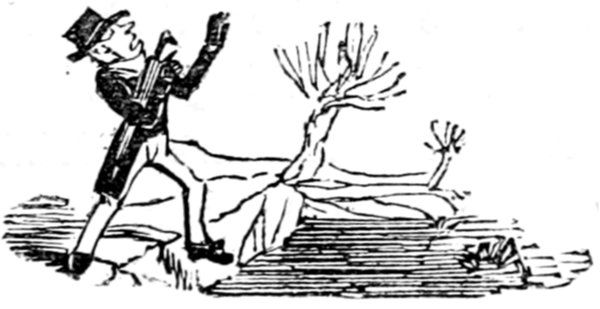
"The Beauty of the Heavens."
The indefatigable Mr. Swallow has obligingly forwarded to us the following list of valuable relics, which were rescued from the "devouring element," during the late conflagration at the Tower:—
Half of the lid of a pot, inscribed—"Fox's Circassian Cream," and supposed to have belonged to Renard, the Spanish Ambassador at the Court of Queen Mary.
The handle of the warming-pan which was used for the bed of the young princes the night previous to their being smothered.
The bowl of the identical pipe with which the executioner of Guy Fawkes composed himself, after he had accomplished his unpleasant duty.
A portion of a bottle, which contained the liquid used to polish the Bluchers of Edward the Black Prince; part of the label, with the letters WAR——still in high preservation, and clearly indicating the determined resolution of that undaunted hero.
A tile, with the initials "W.R.," and which, it is judged from the caligraphy, belonged to the time of William Roof-us.
A massive trowel, the state of its edge proving that there must have been a "strike" of Masons in former days.
A spice-box, supposed to have contained the mace of the ancient Lord Mayors of London.
A fragment of a Cigar, very probably a portion of the Regalia.
A five-shilling piece, in an imperfect state; doubtless the crown that Richard the Second resigned to Henry of Lancaster.
A constable's truncheon, with a certificate of its having formed the Duke of Wellington's staff at Waterloo.
The feet of the gridiron that cooked the last chop, but one, for the ill-fated Duke of Buckingham.
A pitch-er, used by the tars to drink grog out of, after the dispersion of the Spanish Armada.
Glasses, tables, pictures, chairs, Dutch ovens, and beds;—and knots of men upon the stairs, with knots upon their heads;—and the dining-room table put in the front drawing-room, and covered by the back parlour carpet,—supporting the auctioneer, and the clerk, and catalogues, and desk, altogether enough to warp it.—And each hale porter stout is "drawing lots" about, which, if brittle, you may think fortunate, if from the room they are thrust whole,—from the specimen post of the best front bed, and the book muslin covers, that once were red, to the cinder-sieve and knife-board, in the dust-hole.—"Any advance upon seven—eight, nine, ten, eleven—going!—thank you, sir—twelve, thirteen. Tap! gone for thirteen—the cheapest bargain ever seen; they are yours, sir; if you pay, they may go at once away. Six iron hoops, a water-butt, a bottle-rack, and broom."—"Oh, Mr. Auctioneer, there's some mistake, I fear, for not a word I said."—"But, sir, you nodded your head."—"Oh, yes, to a friend in the room!"—And when the sale of the silver things is going to begin, the room's so hot, and the crowd so dense, from the people scrowdging in;—and the struggle for the loss is so great 'mongst those who compete, that you'd say there was a race for the plate in a general heat.—And there's a great Jew upholder, that I'm forced to uphold on my shoulder—leaning upon my chair, with long, black, greasy hair, that would make Sir Peter Laurie swear, and a coat as rough as a bear; it's rather too bad to let him in amongst respectable people, in his bear-skin; and I don't know what he can mean, but I suppose it's his fat that makes him lean.—"Ladies and gentlemen, I must beg silence,—for the babel of your tongues may be heard a mile hence.—I first offer to your notice an article of vertu, as old as the world itself, both curious and rare too, that was dug up beneath some ruins in the Sicilies,—and is from the undoubted chisel of Praxiteles—representing a Venus, without legs, arms, or head; au reste,—the trunk is very beautiful, so is the chest."—"Mr. Auctioneer, your classic knowledge is rather queer; and I don't wish to hurt you, but I cannot understand Venus being an article of virtue; and if this mutilated image is Venus coming from the sea, as you say, I should rather incline to think that the sharks had been following in 330her lee all the way."—"We have here a fine painting by Vandyke,—a correct portrait of anybody you like—and a bust of the celebrated ballad-singer, Homer,—who, throughout the towns of Greece, was a roamer,—where 'tis known, by even the most illiterate dunce, that he'd the luck to be born in seven different cities at once;—but all his endeavours to raise a penny from each of these places seemed to fail,—for he never got out-door relief from any, although it seems to have been a Union on a most extensive scale.—I'll thank you to give me a good bidding, if you please—for you rarely see such authentic originals as these—which I have offered to the gaze of the beholders.—The bust upon which you have all bent your eyes was buried in Pompeian lava for centuries,—where it, all that time, had lain."—"Then, perhaps, sir, you can explain the meaning of the motto 'Austin and Seeley,' on the shoulders."—And in the midst of this general din the rafters of the floor all tumble in,—and down to the parlour the company and auctioneer go,—which rather cumflusticates those who are sitting below; and so,—amidst the general confusion and rout,—we ourselves will contrive to scramble out—from the room in which we were crammed;—and, on gaining the fresh air, we are almost tempted to swear, if we go there again we'll be—shot!
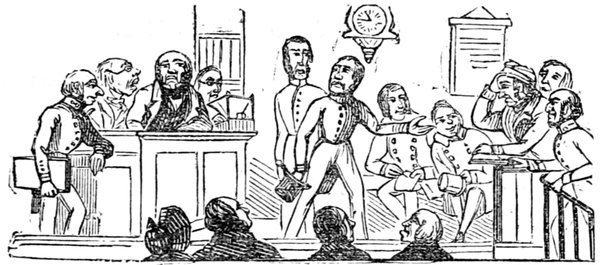
15. The Ladies at the Palace, hearing that at the expected birth Royal salutes were to be given, petitioned the Prince that they might not be overlooked in the arrangement.
24. A tidey overflow of the Thames.
30. Affair of the Caroline—M'Leod's acquittal.
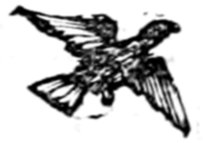
Mount! Eagle.
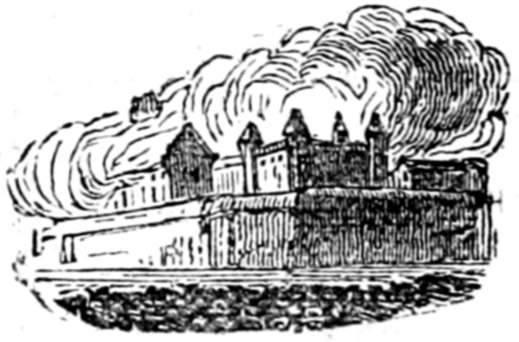
Making light of it.
A burning shame.
No third-floor front that ever looked upon the golden waters of Ball's Pond harboured swain more favoured by nature and art than the young Augustus Kutitphat. His father was the renowned Orlando Kosenem Von Kutitphat who, passing over from Germany to this country in three ships, became arbiter elegantiarum at Hockley-in-the-Hole, and his mother was nearly related to that unprecedented Simpson who conferred immortality upon the bowers of Vauxhall. At the age of nineteen Augustus was bereaved of his parents, from whom he inherited a mine of brass (in his face), and a harvest of curls (hair-looms) unparalleled in the annals of (Bear's) Greece. He was not, as he himself asserted, critically handsome, but eminently genteel. "Manners make the man," he was accustomed to observe, "but the tailor, the gentleman: appearance is the premium where-with you can discount society; it's gammon to talk about the aristocracy of birth; why there's a second fiddle at Astley's that no Duke in the 'Red Book' is fit to hold a candle to: I never had a grandfather, and is there any mistake about me?"
In this way of thinking, and a primrose satin waistcoat, Augustus proceeded to essay the truth of his philosophy. A great poet has said, "All the world's a stage;" had he added, "licensed only for the performance of pantomime," the fancy would have well assorted with the fact. To succeed in the drama of life the performer needs only activity—to keep his eyes open, and his heart and his mouth shut. The two former of these elements of success Kutitphat possessed; had the three been combined, he might have become Lord Mayor. Though a denizen of Islington, inhabiting a chamber which, had the house been another remove from town (at the Antipodes), would have been the cellar—by grace of patent-leather Wellingtons and a Polish tailor, he himself achieved a polish that not one in a thousand would have known from the true metal. Even the ingenious youth who, with a red coatee and nose to correspond, enacts the esquire at Crockford's, looking after the coursers of the knights-errant who there do congregate—even he, albeit as good an authority in such matters as the Lord Chamberlain himself, was almost led into the indiscretion of a bow. Augustus had just turned into St. James's Street, when our Cad-Crockfordian caught sight of him. His right hand had all but reached the bit of felt that did duty for the rim of his hat; but it fell ere the error was irretrievable. "No," he soliloquized; "it ain't not qvite the ticket, but unkimmin good at the price: blest if I warn't nearly had—wont he step into some on 'em. At first, wouldn't I have pounded it he was a real swell; but, now I twig him nearer, his mother don't know as he's a taking of the air."
333Angelina Ampletin was one of the prettiest girls in Pimlico, and, if there was any truth in rumour, very far from one of the worst catches. Papa had retired from business at Billingsgate, with money enough to found a dozen joint-stock banks, and leave a handsome surplus. In fact, his turbot and salmon were all gold and silver fish! Now, as Augustus entered the enclosure of the Park, Angelina and one of her friends were studying ornithology on the margin of the stream that meanders between the Horse Guards and Buckingham Palace. A glance of soul-speaking sympathy passed between the youth and maiden—and, behold! the tiny hand of her Breguet had not accomplished another revolution ere they were in confidential communication. Let us not dwell on the progress of their loves; day by day did they perambulate the sylvan shades of Kensington Gardens (so called because destitute of both flower and fruit); and at length the critical avowal was made—Angelina blushed her passion—"she lived only for her Augustus; would he, indeed, fondly love on to the close?" History is divided concerning the exact nature of his reply. According to one account he is said to have declared that, if false, nothing should prevent his being "jiggered;" while another asserts that, in evidence of immutability, he called upon the zephyrs that sighed around them, then and there to "blow him tight." Alas! for Augustus, that which the figure of his form had built up, the figure of his rhetoric laid desolate. Angelina was the soul of refinement and education, having been finished at Turnham Green. With a look of horror she fled the presence of Kutitphat—that blow was the unkindest cut of all!
It was November, but still the weather was delicious. All the gay things of nature were abroad; and even the wretched sought to borrow a ray of the rich sunshine. Over the still verdant carpet of Hyde Park were gliding graceful groups of fair women; while, among them, moved a form that seemed to have little business there at such a time. Bless ye! dear muffs and boas, no heresy is here intended, for instinct would curl the nose of an angel in Eden who should chance upon a fellow in the débris of an ancient Taglioni, and no shirt. Was it a wonder, then, that Angelina gave a wide berth to Augustus when she encountered him in such a category? Where were now his airs and graces? All—all gone! The station, like "the herald Mercury," exchanged for a posture between a faint and a sneak; the glance of scorn, for the mien of supplication; the sheen of promise, for the sear of despair! People speak of Brummel frying his own tripe as if it were something to wonder at. Let them take a turn in St. James's Park, any day between the first of January and the last of December, and, unless they shut their eyes, they will discover more than one member of the Kutitphat family at a discount.
2. Michaelmas Term begins.
Chamber Practice.
A Brief.
Deeds carefully abstracted.
9. The Lord Mayor takes water at Westminster Hall, and wine at Guildhall.
Royal Babby born
Pray, Mrs. Lilly, when is His Royal Highness to be dressed en grande tenue? Don't know, my lady; at present he is dressed in the nursery.
1. Bernard Cavanagh detected.
9. Prize Cattle Show—Blank faces.
21. Ladies scold least.
25. Dine out (if you can).
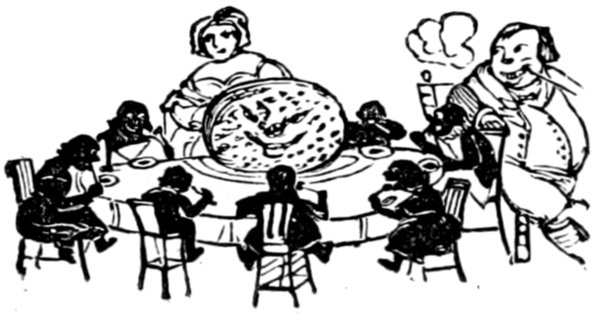
A round game at Christmas.
[Our country readers may probably not be aware that there exists in London a body of pleasant-minded gentlemen, constituting a society bearing the above name, who collect, with never-wearying application and research, the various statistical reports connected with every subject of the day. Their proceedings are duly chronicled in the different scientific and literary reviews, but as these may not be within the reach of all, we have collected the most interesting points discovered by their labours, during the past twelvemonth, and present them as a "Year Book of Facts" to our admirers.]
Some valuable particulars have been gained in connection with the supper taverns of London. Of every twenty visitors, it appears that eight order Welsh rabbits, six ditto broiled kidneys, four ditto poached eggs, and two ditto chops or steaks, as their taste may direct; and that these numbers are divided into seven medical students, five lawyers' clerks, three gentlemen from the country, the same number of men about town, and two shop-boys or single tradesmen, who imagine they are so. Of these, more than one-third call the waiters "Charles," or "Tom;" two in five join loudly in the burdens of "The Pope," and "The Monks of Old;" and one in four encores the comic songs by striking his fists upon the table, until the cruets commence performing an intricate figure of their own, and finally tumble down upon the floor.
The statistics of Camberwell Fair are exceedingly interesting; and the following return of the state of fifty dolls there purchased, at the end of a week from the time of buying, will be read, we are assured, with avidity:
| Had their eyes poked in, and rattling loose in the head | 12 |
| Ditto picked out | 8 |
| Despoiled of their wigs | 6 |
| Lost their arms and legs | 9 |
| Melted before the fire | 3 |
| Had their noses beaten flat against the bars | 7 |
| Totally destroyed | 4 |
| In tolerable preservation | 1 |
| —— | |
| Total | 50 |
As the affection of a child for its doll proverbially increases according to the dilapidated state of the latter, the above tables afford an interesting view of the probable existing proportion of nursery attachments at the present moment. One child in three, at the Fair, had a mouth covered with gingerbread crumbs, and five in twelve had the stomach-ache. The promenade Concert d'Eté, which lasted all day long, embraced twenty-two penny trumpets, or cornets-à-bois, nineteen musical fruits, six fiddles with packthread strings, and four drums, varying in price from sixpence to two shillings. A solo, by a very young performer, on a tin rattle filled with peas, was very much admired.
A paper, involving some singular points of manufacturing economy, has been written, entitled, "What becomes of all the pins?" It appears, from Professor Partington, that twenty millions of pins are daily manufactured in 339this country. These get into general circulation, and after a time, entirely disappear; but the remarkable fact is, that, like the swallows, nobody knows where they go to. It is proved that, were it possible to recall these lost articles, a quantity might be collected sufficient to build the projected foot-bridge at Hungerford Market, and the residue might be cast into one enormous pin, which should be erected as a column in any part of London best suited for its elevation, and to be called "Victoria's Pin," in opposition to "Cleopatra's Needle," at Alexandria. There would be a winding staircase in the interior, with a saloon in its head, and it might serve, not only as a land-mark in stormy weather for the fourpenny steamboats plying between Vauxhall and London Bridge, but, since the setting up of statues to everybody that dies is getting into fashion, the column could be crowned with an image of Shakspeare, Byron, or any other inferior character who has not yet been so honoured, in London, beyond the lobbies of the theatres and Madame Tussaud's.
From the visiting report "On the Lunatic Asylums of the United Kingdom," we learn that the persons of unsound or slightly cracked intellects in England, amount to ninety per cent., but that straight-waistcoats have gone out of fashion, being superseded by straight pea-jackets with the majority of the aberrated. Of a great quantity of lunatics now in Bedlam, five out of thirteen are addicted to punching the crowns out of their hats, and then putting them on topsy-turvy; and two in seventeen are not quite clear whether they are the Secretary of State or Julius Cæsar, but collect small pebbles, which they call petrified bears' heads and five-shilling pieces. Ninety-one and a half per cent. believe they are perfectly sane, and that all the rest are stark mad; whilst two in nine are preparing to bring an action against the Queen for breach of promise of marriage. Of three hundred wooden bowls allowed them for their gruel, twenty-four had been thrown at the nurses and keepers in one day; and, in a single instance, one had been converted into a species of cap, which was put on with much solemnity, and the wearer then kept close watch in the yard for the whole week over a strawberry-pottle, which he represented to be Windsor Castle. At Hanwell, from the proximity of the asylum to the railway, twenty per cent. believe that they are first-class carriages, and have a habit of whistling loudly when they approach, that the others may get out of the way; a proceeding which is generally advisable.
A statement has also been made connected with the omnibuses of the metropolis, from which it appears that, when you are waiting at the corner of any street for an omnibus, seven out of eight are going the wrong way. Ninety per cent. of the cads ask if you will ride outside when you hail them; and, out of thirteen passengers, three wear kid gloves, eight sport brown Berlin, and two none at all.
I.—The Society shall be called the Catnach Society.
II.—The chief object of the Society shall be to reprint rare and unedited ballads and handbills, printed, at various times, by Messrs. Catnach, Birt, and Pitt, of Great St. Andrew Street, Seven Dials.
340III.—The Society shall consist of as many subscribers as can be got together, and, as a precaution against bolting, the subscriptions shall be paid in advance.
IV.—A subscription of a guinea a year shall entitle the members to receive a copy of all the works issued by the Society.
1.—The Greenacre Garland; or, a Merrie Manual for Midnight Murderers: A collection of the most remarkable dying-speech bills issued within the last forty years; comprising letters written, and hymns composed by the malefactors the night before their executions, speeches on the scaffold, copies of verses detailing the crime, and written for music, with views of the execution, and occasional portraits of the felons. Edited by the late Thomas Cheshire, Esq., of Newgate, Middlesex.
2.—A Collection of Political Songs and Ballads, having reference to some local particulars connected with a county election in 1833. As the allusions in these relics are but imperfectly understood, and the interest has quite gone by, this forms a valuable addition to the works already published.
3.—The Street Anthology of the Nineteenth Century; comprising notices of the most popular itinerant musicians of the day: to which is added, an inquiry into the probable author of "Jim along Josey;" with memoirs of the following eminent perambulators—viz., the little man in the soldier's coat, with the "jolly nose," who indulges in Billy Barlow and Follow the Drum, under a very diminutive and dilapidated umbrella, on certain evenings in Leicester Square; the professional gentleman in the oil-skin cap, and whiskers inclining to auburn, who sings to the dulcimer and attends the races; the ambiguous character who ties his hair in bows, wears sandals, carries a fan, and sings "She promised to buy me a bunch of blue ribbons," and dances to the chorus—"Tilly ung de rung tung de rung day," as he plays an imaginary piano on his ribs; the two young gentlemen who black their faces with soot and tallow, and sing "Sich a getting up stairs," standing upon their heads, and dancing with their feet in the air; the conjuror who wears a scarlet coat, does the doll trick, and tries to imitate "Jerry," but who does not succeed therein.
4.—Merrie England in the Modern Time; or, Richardson and his Friends. A singular collection of showbills and street advertisements, edited by the late Mr. Richardson, of travelling-theatre celebrity; including details of the various fairs he attended, and embracing endless anecdotes of his contemporaries—the learned pig, black wild Indian, white Negress, Scotch giant, fat boy, Welsh dwarf, young Saunders, Mr. Samivell, the equestrian, &c.; interspersed with many outlandish songs and recitations, and dialogues between masters of shows and Mr. Merriman.
5.—Three Yards for a Penny. A répertoire of some reprinted popular lyrical poems prevalent at the commencement of the reign of Queen Victoria; including "Happy Land," "Claude du Val," "Woodman, spare that Tree," "Nix my Dolly," "Wanted a Something," &c. &c.
To the Editor of the Comic Almanack.
I am incurably in love with a young lady, residing in the country, but have reason to think, from what passed between us at our last interview, that she has some misgivings respecting my fidelity. I therefore beg you will insert these lines in your Almanack, which, as it circulates everywhere, will show everybody that my intentions are strictly honourable.
Is it likely—that the young Prince can lead any other than the life of a soldier, since he is already in arms?
Is it likely—that you can ride in an omnibus, without catching one pane, through the absence of another?
Is it likely—that you can ever get the work you particularly want at a Subscription Library?
Is it likely—that you can be riding within half a mile of the theatres, in the evening, without having twenty playbills thrust in at your coach-windows?
Is it likely—when attending a meeting of creditors, where time is asked for, that you will ever hear of less than the probability of thirty shillings in the pound?
Is it likely—that anybody on the Free List ("the public press excepted") can gain admittance at a theatre when there is anything worth seeing or hearing?
Is it likely—that any account of a fire can be inserted in the newspapers, unaccompanied by "further particulars?"
Is it likely—that an unfavourable review of a work can appear, without the author's declaring that the writer has been actuated by private malice?
Is it likely—that you will find the National Gallery, or British Museum, open at the day or hour a country cousin has selected for visiting it?
Is it likely—that you can receive a present of game from the country without paying, in carriage, more than it is worth, and being expected to send a basket of fish in return?
Is it likely—that your servant will find a coach or cab, on the nearest stand, when you are in a hurry?
Is it likely—that a friend will remember to return your umbrella until the dry weather sets in?
Is it likely—when you get into an omnibus at the Bank, that you will arrive at Bond-street in the time in which you could have pedestrianised the distance twice over?
Is it likely—that the "positively last night" of a dramatic Star will be the end of his performances?
344Is it likely—that a publisher will omit to announce a work as "just ready," when it is not even written by the author?
Is it likely—that you will hear the popular preacher whose fame has attracted you five miles on a foggy November Sunday morning?
Is it likely—that you can remember the number of the coach in which you have left your new silk umbrella?
Is it likely—that the street musicians will pass on under double the usual time, if you happen to be in a particularly ill-humour, or are engaged in the miseries of authorship?
Is it likely—that a day can pass without the manager of a theatre receiving ten applications, from "particular friends," for the use of the stage-box?
Is it likely—that you can listen to a traveller, without hearing "when I was abroad," twenty or thirty times repeated?
Is it likely—for a snuff-taker to offer his box, without observing, "that it is a bad habit, but he cannot do without it?"
Is it likely—for your country friends not to have seen more of the London lions than you, who have been in town all your life?
Is it likely—that a friend will refuse to lend you a hundred pounds, without giving you plenty of advice?
Is it likely—that you can take a trip to a watering-place, without ever-last-ingly running against your shoemaker, and finding your butcher there, "cutting it fat?"
Is it likely—that you can put on a new pair of boots, without wishing the maker of them at—a pretty considerable distance; and driving a hole in the floor with your stamp of—anything but approbation?
Is it likely—that a young lady can be induced to sit down to the piano-forté, until after she has raised fifty objections?
There never were such times as these! A barrister could once, with ease, have got as many fees, by merely signing pleas, as would have given him something more than bread and cheese; but destiny's decrees have made it feasible no more to get such fees; and if the lawyers please to live, they can no longer live by pleas.
Those days, alas! are flown, when seeds of litigation, shrewdly sown, were very often known, not through a single life alone to have thriven and grown, but to have reach'd the state that's call'd full blown, in time for the attorney's son to make the crop his own. But now the lawyers are thrown over—the system's overthrown.
The common law is common now no more; full many a clause in Acts of Parliament has clipped its claw. The time is o'er, when, for an hour, one could jaw about the spelling of the man who did the indictment draw, and whose mistake, or clerical faux paw, had floored poor ill-used justice by a literal flaw.
If Eldon now could rise and see the changes made since he would doubt and disagree e'en with his own decree, what would the great man's feelings be? He'd say this seems not like the Court of Chanceree, in whose old customs I had hoped that we had an estate in fee; such suits as these would not have suited me!
Oh! who would once have dared to dream that judges could have worked by steam? Although, without a joke, justice would very often end in smoke; and, from the speeches still preserved on paper, we find that legal eloquence was often only vapour; while law itself contained, as it would seem, the element and principle of steam; for those who ever had a bout of it, found it hot water, and were very glad when they got out of it. Mechanics' principles the lawyers knew, and made amazing use of two—the wedge and screw! But of the third, in early legal cases, there is little heard; for though to scientific men of old the lever was well known, as we are told, the lawyers seem to have refused it, or never used it. The lever they despised; at least we find them not leaving anything they could take behind them! But it is also thought some early barristers so often moved in court, that they had something like a notion of coming to perpetual motion.
This was a case of ejectment. Gabble (Q.C.) for plaintiff.—"This is a clear case of ouster (Shower, 2); but if the tenant in possession disputes the title of tenant in tail, he cannot plead laches (Campbell, 1)." In this case the remainder man was regularly let in, but the widow cannot now claim dower (Blackstone, 3). Suppose the mortgagee had been anxious to foreclose, then plaintiff must have been guided by the rule in Shelly's case (Adolphus and Ellis, 6.) Here there is nothing of the kind. If defendant takes anything, it is in the character of tenant in reversion after the possibility of issue extinct (Shower, 1).
Thumpus (Serjeant) contra.—Doe takes only a chattel interest, or, at most, a base fee (Taunton, 6). The court must presume that the outstanding term is satisfied (East, 6). The rule is not now as Coke laid it down, for Mansfield (C. J.) declined taking it up. This is a case of common ouster. Doe walked in as trustee, and was kicked out in tail. There is no relief for him at common law (Bracton). The door was shut upon him by defendant's son, and the parent is not answerable for the act of the boy (Chitty). Judgment was now delivered by the court.
Mither (C.J.)—This is an uncommon case. Doe was never regularly in, nor was Roe regularly out. Both took as devisees of the same testator. The case in Shower cannot guide us here, though the rule laid down has been recognised. I do not think there is much in the objection to the widow's claim of dower, though I see I have got it upon my notes. A mortgagee may suffer by laches, but then the defendant should have pleaded the tort. There is nothing of this on the record, and the verdict must go accordingly.
Puny (J.)—I am of the same opinion. My brother Thumpus has referred us to Bracton. I know the point in Bracton, and have decided it twice the other way. But here I think the rule in Shelly's case comes in and carries the verdict.
Twaddle (J.)—There are four points in this case; three of them amounted to nothing, and the fourth has been conceded. The laches ought to have appeared on the pleadings. There cannot be a use upon a use (Sanders), but a trustee may take by the common law, which the statute, Jac. II., c. 14, did not interfere with. The provisions of the act removed much abuse, and the eighty-fourth is a particularly wholesome section. Here these questions do not arise, and, as the rule is clear, the verdict must follow it.
Shiver (J.)—I am of the same opinion.
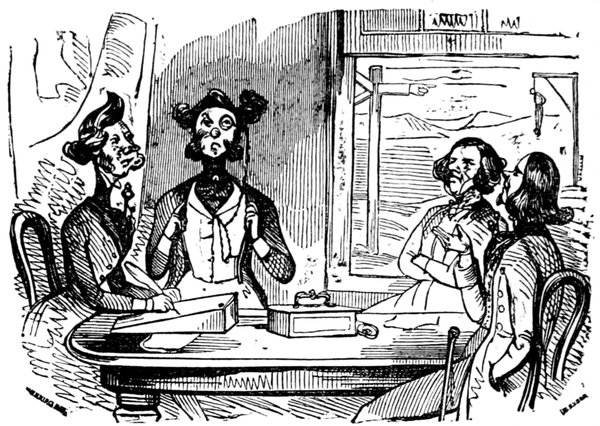
(Gentlemen in the Direction.)
Several Members took the oaths, and the Speaker took his seat, when six-and-twenty members all at once were on their feet. The standing order then to move some dozen did begin; and, in compliance with it, the Speaker ordered in, for all the honourable members, each "a go" of gin.
The worthy representative of Monmouth Street began to bring before the house his well-digested plan, for making up the deficit, by taxing every man who should be found to own a baked potato-can.
He went into the history of taturs, from the day when first the sun of science shone with resplendent ray, and pointed out for baking them the most delicious way: he traced the rise of cans from the very first of all, when they used to manufacture them particularly small, until the later era, when they made them very tall, with half-a-dozen lanterns, from which the light would fall, the notice of the populace unto the can to call, and, like a very basilisk, the little boys enthral.
The member then for Battersea, in an impressive speech, brought on his promised motion for giving Chelsea Reach, and also Twickenham Meadows, another member each. He said, and while he said it, he acknowledged it was true, that those who lived at Battersea and Twickenham were few, but unto them the suffrage undoubtedly was due, because it had been given to Hammersmith and Kew.
The great election compromise was then at length discussed, and it was soon decided that the sitting member must, upon a charge of bribery, from out his seat be thrust; because he had corrupted, with a pot of beer, a crust, and bit of cheese, a voter who took away the dust.
The watercress and radish trade presented a petition, complaining very bitterly of their distressed condition, and praying that the Parliament would put a prohibition on foreign cress and radishes, which caused a competition that threatened to annihilate at once the home vendition. The House, in tongues as numerous as e'er were heard at Babel, expressed at once a wish to do whatever it was able, and ordered the petition, then, to lie upon the table.
But now the long discussion was eagerly resumed, upon the knotty question, whether those who wern't illumed with a knowledge 350of the reading art, could ever be presumed fit persons unto whom the nation's guidance should be doomed? 'Twas argued very cleverly, and was by all confessed, that, as the members had not been by property oppressed, enabling them to sympathize much more with the distressed, and, as they were with very slight qualifications blessed, perhaps, if they had none at all, it would be for the best.
The House was now impatient, and many rose to say, that they had listened long enough, and wished to get away; for they had sat sufficient time to constitute a day, and therefore hoped the Speaker no longer would delay, in ordering to each of them their ordinary pay.
With this the feeling of the House appeared to coincide; the Speaker to the treasurer for funds at once applied, and at the sight of money there arose, from every side, one universal clamour of—"Divide! divide! divide!"
The United Female Chartist Washerwomen met a deputation from the Infant Society of Universal Suffrage and Vote by Ballot Orphans, in the long room of the Institution belonging to the former, when a discussion ensued on the subject of the Charter.
It was at length resolved to extend the five pints to six; and it was finally agreed that three quarts should constitute the measure they are jointly going for.
Upon a proposition that they should adopt the principle of the whole hog, a discussion arose as to whether the gammon was to be included; but it was soon decided that the whole hoggites would be nothing at all, if it were not for the gammon, which was accordingly retained by a large majority.
The following subscriptions, in aid of the "Victim Fund," were then read by the secretary, who stated that the amounts were in the hands of the treasurer who was absent from indisposition:
| £ | s. | d. | |
|---|---|---|---|
| Eight-and-twenty patriotic mothers | 0 | 0 | 9 |
| Three charwomen, who are ready to scour the country in aid of the good cause | 0 | 0 | 3 |
| Nine tailors, who feel as one man | 0 | 0 | 1 |
| Ten patriotic grandmothers, who would see their grandchildren enjoying their freedom in the land of their grandfathers | 0 | 0 | 5 |
| The hands employed upon St. Martin's clock | 0 | 0 | 6 |
The great petition was then brought forward for additional signatures, when it was resolved, that knowing how to write should not be a sine quâ non for signing it. Several chartist children were permitted to put their marks, and the grand master of the lodge of juvenile levellers was appointed as controller of the sand and blotting paper.
In the evening tea was served, and several rounds of patriotic toasts were given.
26. Bonaparte escaped from Elba, 1815.
It is a fact that Mr. Graball has resigned his very lucrative situation, and that he thus relinquishes a thousand a year—but he has received another appointment with a salary of fifteen hundred.
It is a fact that Mr. Skinflint put half-a-crown into the plate at the last charity sermon—but it was a bad one.
It is a fact that the once dissipated and extravagant Mr. Meltall remained at home every evening last week—but he had no money to go out with.
It is a fact that the improvident and faithless Mr. Squander took up a bill for ten pounds—but he gave one for twenty on the previous day, in order to accomplish the object.
It is a fact that the master of one of the Union Workhouses shed a tear—but he was standing near the cook who was scraping horse-radish.
It is a fact that Mr. Overhead can place his hand upon his heart, and declare he does not owe a shilling in the world—but he has just taken the benefit of the Insolvent Act.
It is a fact that Lord Stingy patronised the performances at Covent Garden Theatre twice last season—but he went with an order on each occasion.
It is a fact that the benevolent Mr. Bountiful gave his watch and purse to a miserable object on Hounslow Heath—but he perceived a stout bludgeon peeping from beneath the rags of the mendicant.
It is a fact that the coffer-dam of the Hungerford Suspension Bridge was drained completely dry—but it was full of water a week afterwards.
It is a fact that Oxford Street is at last paved with wood—but the alteration has caused much annoyance to the heads of the parish.
It is a fact that the Society for the protection of life against fire were on the spot with their apparatus—but it was two days after the conflagration had happened.
It is a fact that Mr. Feeling expresses great sympathy for the poor—but he was never known to feel in his pocket for their relief.
It is a fact that some of the low-priced bakers give full weight—but they are very liberal of alum.
The Meteorological Society held their great meeting on Waterloo Bridge, to watch the nature of the March winds, and several very interesting phenomena were made manifest. A member having placed himself in one of the recesses, waited the coming of a gust from the north, and was presently in a position to relate the following particulars.
His first sensation was that of a severe blow in the face, which drew moisture from both his eyes, and sent out his hair into a number of almost horizontal lines, some of them forming right angles with his forehead. On turning his back, for the purpose of further experiments, his hat underwent such rapid rarefaction, that, becoming considerably lighter than the air, it was carried, in a slanting direction, a few inches from his head, when the expansive power of the atmosphere having ceased to take full effect, the gossamer fell by its own specific gravity to the earth, and revolved on its own axis as far as the toll-gate.
A most interesting experiment was then tried with an ordinary umbrella, upon which, in its closed state, the March wind was found to have no particular power, though it was ascertained that there was an equal atmospheric pressure on every part of the gingham. On putting the umbrella up, and presenting it to the wind, the holder of the machine was carried gently backwards, but on his turning round, the sight became very animating to the bystanders. The umbrella was completely turned inside out, and, at length, the whole concern collapsed with a frightful crash—the points to which the gingham was fastened being compressed together in a reverse position to that which they were intended to occupy. The iron rods attached to the whalebone immediately fell into angular figures, and it was not thought advisable to proceed further with the experiment.
It was proved, beyond the possibility of doubt, that if the human eye be kept wide open in a March wind, the dust will be carried upwards until it reaches the organ of vision. This was experienced in two or three cases; and an enthusiast in the cause repeated the experiment several times, when it was found to fail in no single instance.
5. A protocol signed, announcing Mehemet Ali's unconditional submission to the Sultan.
31. The Allied Sovereigns entered Paris, 1814, and on the last day of the month ended their march.
9. Fire Insurances due.
The British Association for the Advancement of Science, which began its meetings at Bristol, has since been strongly recommended to go to Bath; and if it is not sent permanently to Coventry before the year 2043, we may conceive its having reached by that time a state of stagnancy in the neighbourhood of Bloomsbury. As there will, of course, be antiquarians among them, imagination can easily picture them clinging fondly to St. Giles's, as the quarter inhabited by the Anglo-Greeks; and the members will, no doubt, be searching, a hundred years hence, for the fossil remains of petrified crows in the neighbourhood of the Rookery.
The following is an anticipatory report of the meeting of the Association, after having been cradled in the laps of time during the lapse of a couple of centuries.
Your Committee have the satisfaction to state that, their funds being thoroughly exhausted, they have been enabled to save the usual expense of travelling, and have taken advantage of the liberality of the Government for the purpose of visiting the British Museum. Your Committee remained some time at the outer gate, for the purpose of making some observations on two boxes, which it is understood have been there for sentries; but, as they have not discovered what a sentry is, your Committee conclude that the word must be a corruption of centuries.
On going through the court-yard the Association made some experiments upon the atmosphere, with the view of calculating the difference (by means of the differential calculus) between the air inside the gates and that which circulates on the outside; but your Committee are unable to state any satisfactory result to their arduous experiment.
On entering the hall of the Museum your Committee have to complain of being deprived of their walking-sticks; but this annoyance was in some degree compensated by their receiving in exchange some very curious pieces of tin, which are, no doubt, of very ancient origin. They were at once referred to the chairman of the mineralogical section, who pronounced them to be the coin generally in use in the nineteenth century, for the word tin is frequently met with, in old books, where money is clearly the article alluded to.
Upon reaching the great room your Committee were met by an officer of the Museum, who conducted them over the building, and pointed out to your Committee the chief objects of interest.
The Association had the satisfaction of looking at a very ancient machine, called the stocks, which served the double purpose of punishing offenders and regulating the money market. The chairman of your Committee was appointed to sit on the stocks, and did so for a considerable time, in the course of which he fully ascertained how they might have been available for punishment, but he is still at a loss to discover the monetary uses which our ancestors evidently put them to. It must be regarded as one of the lost arts, like chuck-farthing, and other mysteries, which are now only left to us in the pages of history.
Your Committee were greatly delighted by a series of portraits of a tribe of individuals, carrying flagelli, or whips, and whose noses were made the subject 360of a very learned paper by your president. The extreme redness of the point was formerly supposed to arise from drinking brandy; but your president having taken several successive draughts of that spirit, without any peculiar redness in the nose becoming immediately obvious, was prevented by exhaustion, ending in utter prostration, from continuing his very ingenious and interesting experiment. It is believed, by your Committee, that the redness of nose, which was characteristic of the old auriga, or coach-driver, arose from a constant habit of blushing, which the peculiar modesty of the race, as it is found alluded to in reports of police cases in past ages, would account for easily.
But the great attraction to your Committee consisted in the two celebrated figures of antiquity, known to the public as the Whig and Tory, by whom, according to old writers, this country was torn for a considerable period. Your committee congratulate themselves that they do not live in those shocking times, when, according to contemporary writers, the Whigs ruined the British Constitution four times in six years, and the Tories gave, in the same period, eleven death-blows to public liberty. How the Constitution ever was restored to health, or how liberty was brought to life, has greatly puzzled your Committee; but they have at last discovered that there were, in those days certains pills which eradicated everything; and, as mention is made in old books of various pillars of the state, your Committee have no hesitation in attributing the wondrous cures to the means alluded to.
Your Committee had almost forgotten to mention a very curious old machine, called a drop; and, taken in connexion with the black-letter phrase of "a drop too much," there can be no doubt that the drop now in the Museum was that which is constantly spoken of as "too much," by the old chroniclers.
The remains of a gibbet also gave rise to a curious discussion in one of the sections, and your Committee at last decided that the instrument was used by a hanging committee attached to a society of painters, who, under the pretext of executing justice, were in the habit of resorting to all sorts of cruelty.
The Association were likewise favoured with the perusal of a very scarce old volume, mysteriously labelled, "A tax-gatherer's Book;" from which your Committee are led to infer, that there were formerly a class of marauders who traversed the kingdom, going from door to door, and exacting sums of money from the inhabitants. To show the frivolous pretexts that sufficed for these plunderers to carry on their system of rapine, your Committee have only to observe that a demand was made on account of light and air, which were actually in those days paid for by the people in the form of what was called a window-tax.
Your Committee having concluded their inspection of the British Museum, returned into the open air; and a shower of rain coming on, they had an opportunity of making a series of observations on the effect which moisture produces upon the skin, and the power of the animal caloric, in the human foot, to resist for a time the chill ultimately engendered by walking into puddles.
| 361 | |
| 1843.] | MAY. |
|---|---|
The Commissioners for inquiring into the state of the public health have forwarded to each of their assistants a copy of the following questions, with instructions to put them to all persons residing in, visiting, or passing through the district:—
Q. How are you?
This was the first and most obvious inquiry that the Commissioners ordered to be addressed to the population; but, as the returns were by no means so full as could be desired, it was determined to add another question, which should distinguish those cases in which disease has been inherited. For this purpose it was arranged that a second, or supplementary question should be framed, and the Commissioners drew up the following:—
Q. How is your mother?
To both these questions the Commissioners have received numerous replies, most of them short and concise; but it has been observed that considerable soreness has been exhibited in some cases, in which it has been thought advisable to ask for information under the second head. The habits, or, perhaps, the Commissioners ought rather to say, the prejudices of the English people are averse to any investigation into their domestic affairs; and many, when the health of their mothers has been inquired into, have manifested a spirit that the Commissioners have found very detrimental to the success of their efforts.
It occurred to the Commissioners that the chemists' shops in poor neighbourhoods would supply a vast mass of statistical information on the subject of the public health, and they have ordered a return of all the prescriptions made up within the last year, classing them under the two heads of cathartic and stimulant. The Commissioners have also ordered a schedule to be drawn up of all medicine-bottles purchased at the rag-shops, and have instructed their assistants to drain the contents of those which were not quite empty, for the purpose of ascertaining their properties, with a view to classing them under the heads already mentioned.
It has been clearly ascertained that, in nine cases of acute tooth-ache, in a very low neighbourhood, six "had it out," one applied a leech to the gum, and two did nothing. In a series of ninety-four cases of cough, it has been calculated that four ounces of Spanish liquorice were consumed, while about one moiety of the patients very patiently waited to see what time would do for them.
The Commissioners observe, with regret, that the ordinary sneeze has been lately prevalent, but it does not appear that any safe mode of treatment has yet been discovered for checking it. The Commissioners think it better to trust to nature in such a matter, though they have known the operation of drawing the finger smartly along the bridge of the nose, towards the forehead, sometimes successfully resorted to.
Here I am in Chainy, and its rather hominous that, after all your jellessy of Nancy, I should have been brought to Chuse-Ann; but that's nayther here nor their, for I've only my duty to my kernel, which lays in a nutshel. If I'd a been one of the unattached, it would not have signeyfied, but the War Office is nothing but stone, as anybody may see, who looks at it with half a high, and the Horse Guards is, by natur, as illumered as the illumernatured clock at the top of it. But never mind; though Guvament sends my legs on a march that lasts from Jannivary to Deesember, my art can stay in the deepot of your affexions. Yes, there, without the aid o' barracks, it is reglarly barrackaded. But I spose you'd like me to tell yer something about Chainy and the Chainees. Well, yew no the plates called the villa pattern, with three fellers on a bridge, looking as if they vus a goin fishin—the vun vith a boatook, tother vith a deal board, and the thurd vith a cricket ball tied to the hend uv a walkin stik. Nou, I dare say yew think that's a korrect drawin of Chainees men and manner; but, spoonies as they are, I never seed 'em makin such preshious hasses of themselves, as they are in all the plates yure muther has of 'em. Then the tree with the horanges, is only to puff off the real Chainy, as they sells for two a penny in the streets; bekause if they vus only half as big as the hartist has made 'em they'd be whoppers indeed, and the Chainees karacter is rayther the other way; for they're always whopt themselves, instead of being whoppers.
Ven I new I vus a goin to Chainy, I took a number of Chambers; I don't meen that I highered a sweet of rooms, but I bort the Hinformation for the Peeple, treatin (as they calls it, though one has to pay for the treat) of Chainy. Akordin to the book, I find that the natives call Chainy the middle country, and it really is among the middlins, for everything about it is werry indifferent. The Great Wall runs so far that one can't say where it goes to, vich is exakly the way with the troops, though it's ony in the long run that they are anything like the wall, for they don't behave at all like bricks in any other partickler. A good deal has been said about the sighs of the Grate Wall of Chainy, and won says won thing, and won another; so that I've come to the konklusion that it's just as broad as it's long, and that settles it. One side of the place is bounded by the Pacific; and I spose it's bathing in the Pacific that makes the natives fight so preshusly shy of fightin. I hunderstand the hurth used to be a good deal given to hurthquaking; but the ground has given up that game, and the quakin bisness is now dun by the military, who are no great shakes after all, xsept in that rispect.
The natives say that Chainy is older than the deluge, but this must be a delugion. At hall events it's not much like a place of the furst vater. I think they make a mistake about the time when the flood happened, for they were overrun by a tremendous great Khan, who plunged them into hot water, and poured the cream of the Tartar troops all over them. This made such a heffervescence as never was; and as all the provinces was swamped, it's like enuff they mistook the bursting out of this great Khan for the reglar deluge.
The Hemperor is called the Brother of the Moon; and I shouldn't wunder if he's related in sum way, for I think he's crack'd, which is a common thing enuff in Chainy. They say he's the father of his peeple, and the mother two but I don't see how they make both of 'em aparent. The 364Guvament robs the natives vith vun hand, and pitches into 'em vith the other; so that betwixt being bamboozled and bambooed, they get a nice time of it. They used to be werry klever in science, but they're losing their hearts like winking; and though they don't paint particklarly good picters, they're great dabs at colours. Indeed, dying is the only thing they seems to excel in, as the returns of their killed will prove, to anybody's satisfakshun. As to ourselves, I've very little noose—hardly enuff to hang a line upon. Of korse you hurd of the affair at the Bogue, and the pretty Tilt we had with 'em! but it was such a farce, that I thought of sending the report to Messrs. Tilt and Bogue, for their Comic Allmyknack. The knavy of the poor fellers is quite stationary, which means to say that it's little better than brown paper; and as to their artillery, I don't believe their gunpowder would be strong enuff to shake the nerves of an old washerwoman. The soldiers all of 'em ware tails, and seem to be wery proud on 'em, for they always turn 'em to us direktly they cum into akshun. Poor Lin, who was to be the grate card, has turned out anything but a trump; and I shouldn't wonder if he gets cut at last by a chop from the Hemperor. The Chainees are werry proud of their feet, which I don't wunder at, considerin that, in battle, they owe so much to 'em. The wumen's shoes are so small that it hinterferes with rithmetic, and makes a foot only three or four inches. It only shows how cramped they are in their hunderstandings. I've urd it said that, sum day or anuther, the Chainees will adopt our abbits. Only fancy the Hemperor in a coat down to his eels, and knee britches, vitch, they say, will ewentually be the long and the short of it. As to our fashonable kustoms, they'd easy enuff fall into them, for I've seen 'em dance at a ball in the most natral manner.
But I must konklude; for a Chainee regiment of 600 is cummin on, and I'm ordered to relieve guard, with my six men, a quarter of an hour before the time, so as to kill two burds with wun stone, by changing the sentries and frightnin away the henemy.—Your dewoted
This stupendous work is finished, and Wapping has reason to be proud of such a truly wapping undertaking. Perhaps no enterprise ever had so much cold water thrown upon it, and never was there a project which it seemed at one time so difficult to go through with. The engineer has worked like a horse, and has scarcely ever been out of the shaft.
The original shareholders, whose pockets were well drained, in fruitless efforts to drain the tunnel, have now the satisfaction of once more running through their property. For some time the ardour of the projectors was damped by the works going on rather too swimmingly. When accidents were every-day occurrences the Tunnel was a matter of interest; but since the water has been effectually kept out, it has become a dry subject.
On more than one occasion the Company would have been swamped, in spite of all hands being put to the pumps, if Government had not lent their sucker. The funds, in fact, were at low-water mark long before the works reached the same desirable point; and the more the Tunnel was set afloat the more were the shareholders aground in their undertaking.
But the perils are now past, and the Tunnel remains as a monument to British enterprise. We should call it, perhaps, a pillar to the fame of the engineer, if it were not that a pillar is incomplete without two things, one of which—the shaft—has been taken away, while the proprietors have long since lost sight of the capital.
| 365 | |
| 1843.] | JUNE. |
|---|---|
1. Lord Howe's victory, 1794.
21. Queen Victoria proclaimed. The longest day.
Perhaps the best method of ascertaining the fact of its being warm or cold is to go out into the air; but if you are unable to do this, and a person coming in from out of doors is seen to rub his hands, you may presume that the atmosphere is chilly.
An infallible method of ascertaining whether it is wet is to watch the puddles in the streets, and if you see them agitated you may conclude that rain is descending.
If there has been a frost at night you may look for ice in the morning, and, in winter, if you have no thermometer, you may get some valuable information from the state of your pitcher.
The rattling of tiles overhead indicates wind; and a descent of soot down your chimney foretells rainy weather.
The approach of winter may generally be prognosticated by a general display of Chesterfield Wrappers, at the doors of cheap tailors' shops; but when 25,000 straw bonnets are seen in linendrapers' windows, spring may be confidently looked forward to.
When the water-carts are particularly active you may expect rain; and if a flash of lightning is visible, prepare for thunder.
When you see the advertisement of a flower-show, it would be prudent to provide yourself on the day named with an umbrella.
If your water has not come into your cistern, you may conclude there has been frost, unless you happen to be in arrear with your rates, when the phenomenon may be otherwise accounted for.
Well, here we are, safe and sound at the bottom of the Bay of Biscay, where we intend to sleep one night, for the purpose of testing the qualities of the bed of the ocean, which consists, as you will suppose, of several sheets of water, and plenty of wet blankets, with billows instead of pillows on the top of it.
Not being able to keep my head above water I determined on making a bold plunge, and therefore took my passage in the submarine steamer, where several others, who were, like myself, over head and ears, were anxious to keep out of the way, and having sunk all my available capital, I thought it better to sink myself by way of looking after it.
We have had a very delightful voyage, but we met on our way with some very odd fish, who stared rather rudely in at our cabin windows, and a party of lobsters looked exceedingly black as we passed very near to them. The mermaids were much alarmed at first, but soon became reconciled to our appearance, and, when we talked of weighing our anchor, they, with much simplicity, offered us the use of their scales.
You are aware that a company is forming for the purpose of turning the tide of emigration towards the bottom of the sea; and if people can live under water, they ought not, from mere motives of pride, to be above it. There will, of course, be some difficulty in dealing with the natives, but we have taken the precaution to treat with an influential oyster, who, however, keeps extremely close, and, if he will not manifest a little more openness, it is expected 368that war to the knife must be resorted to. We at first anticipated some hostility from the sharks, but, as we purposely abstained from bringing any lawyers among the first settlers, we have now very little fear of a collision on account of conflicting interests.
The appearance of our vessel has caused a considerable sensation among the inhabitants of the ocean, but we have followed the plan of the early emigrants to strange parts, and endeavoured to propitiate the various fish by trifling presents. We threw a box of antibilious pills to a large party of Cockles, and we pitched overboard a quantity of false collars to a group of salmon, whose gills seemed sadly out of condition. We also distributed copies of Crabbe and Shelley to as many of the crustaceous fish as approached near enough to our vessel to enable us to do so; while to a dog-fish we presented a fine specimen of bark, which he did not appear very much to relish. We met on our way down with one of the white sharks, which are known to be the terror of mariners. The creature stared at us with both its eyes, and, while we maintained an awful silence, the shark seemed to respond to our muteness by holding its jaw in the most alarming manner: the extended cavity of its frightful mouth presented a harrowing exhibition, and it seemed as if, like other exhibitions, it might be "open from ten to four," and then it would have been ten to one if we had escaped from being drawn into it. The tremendous teeth seemed clearly to indicate that there would be "no admittance except on business," and we at length sheered off from sheer timidity.
If we can only manage to get up a colony down here, there will be plenty of patronage at our disposal; and if we are allowed the appointment of a bishop, where can there be a finer see than that which is here open to him? I have already issued prospectuses of a grand Oceanic Agricultural Association, to be established for the purpose of regularly ploughing the deep, and dividing the proceeds among the shareholders. I state, in my advertisement, that, as we know the sea has produced sea-weed, we may reasonably expect that other vegetable matter may be reared, and as irrigation is the chief expense of agriculture, the saving in the article of water alone must keep the thing afloat—to say nothing of what will naturally flow into the coffers of the company.
I must now conclude my letter, for the vessel is about to start; and, as "tide and time wait for no man," you will perceive that I am so far tied to time as to be unable to add more than that I am
P.S.—We have not yet visited the extensive locker of Davy Jones, Esquire, but we intend very shortly doing so.
30. Penn died, 1718.
| 369 | |
| 1843.] | JULY. |
|---|---|
Everybody is beginning to draw in to meet the necessity for pulling out. Tradesmen are reducing their expenses in all directions, and a respectable grocer has just dismissed an assistant who suited him to a T. A cook-shop boy, who used to be kept purposely to carry out the provisions to the customers, has been sent away, in order to enable the proprietor to carry out the provisions of the income tax. A large linendrapery house in the Westminster Road has cut off "a young man," who is thus thrown, as it were, as a burden on the rest of the community.
Individuals in a respectable sphere of life, who could formerly keep a page, have been obliged to turn over a new leaf; and it is a positive fact that a Conservative peer intends, in the ensuing Session, putting down a Brougham.
But it is not only among old and established interests that the burden will be felt, for it is ascertained beyond doubt that the boys will be alarming sufferers. The toffey dealers have already commenced manufacturing an inferior article, which is being palmed off upon the juveniles as the genuine Everton. We have personally analysed a piece of Albert rock, under the new system, and we have discovered an increased proportion of sand in its composition. It is also a lamentable fact that a baked potato man has stopped up—we hope not permanently—one of the chimneys of his apparatus, besides extinguishing one of the fine lanterns with which it is adorned—a piece of retrenchment that will fall first on the oilman, and ultimately on the whale-fishing interests.
An influential publican has shockingly reduced his only potboy, and the unhappy lad is walking about the streets on a salary four per cent. under that of last year—a miserable victim to the income-tax, and a martyr (of course) to Tory ascendancy.
Respectable families, who never before considered the matter worth a thought, are looking narrowly to the candle-ends, giving, it is true, a momentary impulse to the trade in save-alls, but the flush is feverish, and will, of course, be followed by depression. The perquisites thus lost, by a stoppage in the kitchen-stuff commerce, can only be made up by the servants taking it out of their masters' bones, which used formerly to be abandoned to the grubbers, who must in future look for grub in some other direction.
The penny-a-liners have also been lowered, in order to enable some of the newspaper proprietors to pay the income-tax, but it is expected this reduction will be counterbalanced by the increase in the number of cases of real distress, and the other raw articles which form the staple of paragraphs.
| 372 | |
| AUGUST. | [1843. |
|---|---|
Blow off dust from plants in flower—using the mouth for the more delicate sorts, and taking the bellows for those that are of stronger constitution. Pull back ivy from adjacent gardens, and train up against your own wall, with pieces of old waistcoating.
For borderings, you may now resort freely to the planting of oyster-shells, which you can procure in large quantities from the boys, after the grottos are demolished. It is not advisable to have recourse to box, though, if you have planted it very close in the previous season, you may fill up the spaces that you will now find, with the oyster-shells. They are not so liable to be attacked by the grubs, and the cats do not displace them so readily by running over them.
The borough is in commotion; the public spirit of the place, which is cold without excitement, has become warm with; and every one, with the understanding of an infant, is in arms for one or the other of the candidates.
The bill-stickers are beginning to stick up for the different parties to the approaching contest, and a linendraper has cut his principles to ribbons by selling his favours to both sides. The Liberal candidate has just come into the town, and has taken an oath that he will not spend a shilling in the contest; so that, unless his agents understand business better than he does, his return to Parliament is out of the question; but his return to the place from whence he came would be the wisest step possible.
The Tory candidate has taken another course, and all the voters in his interest are reeling drunk about the streets, prepared to fight, or in fact to do anything but to stand up for him.
The nomination took place yesterday, when the show of hands was decidedly in favour of the Liberal; but, on the Tory being proposed, there was an extensive show of cabbage-stalks, one of which was transplanted into the eye of the honourable candidate. Most of the hands that were held up had something upon the nail; and it is generally rumoured that all the ten-pounders were loaded to the muzzle, at a dinner given by a committee-man from London, on the popular side, who ran away with the money entrusted to him to pay the bill, rather than damage the good cause by letting in a proof of agency. He preferred, like a true patriot, letting in the landlord.
The Corn Laws are, of course, the subject of much difference of opinion; and one of the candidates is in favour of a sliding scale, while the other declares that skates are the only things that ought to come in upon it. He expressed also his conviction that we have no less an authority than that of Lord Nelson for resisting, and even for evading the fixed duty; "for," he exclaimed, "were not these the last words of the gallant hero—'England expects every man to do his duty'?—which is equivalent to a strong recommendation to every man 'to do' the authorities who collect the duty at the custom-house."
The Income Tax has caused an immense sensation in the borough, and the blind beggar who stands at the corner of the street, who evidently sees the matter in its true light, is indignant at having to expose the amount of his earnings. He says it is an immoral law, for it places a tax on the offerings of benevolence; but he admits that the Tariff offers him some equivalent, by letting in timber at a lower rate, and giving buoyancy to the trade in lucifers. Many declare they do not know what their income is, and on being told they must find it out, reply that they certainly cannot find it at home; while others, when called on for a return of what they have made, ask for a return of what they have lost, a query by which the assessor is generally much mystified. Moore and Murphy have sent back their papers without filling them up, but in answer to the demand for an account of their last year's profits, have sent copies of their respective almanacks, in every line of which "no prophets" is glaringly written.
374Our Liberal candidate speaks very plainly on the subject, and declares that he would rather see his constituents without any incomes at all, than that they should be liable to the odious measure. His views on the Tariff are of the same bold and startling character. He denounces the Government for letting in more asses, and plainly tells the electors that they ought to stand up for themselves, and assert the sufficiency of native asses for all reasonable purposes.
The Tory has been trying the old game of kissing the children, and chatting with the wives, but the independent electors are not to be gammoned in this manner, as they formerly used to be. He nursed Mrs. Snooks's twins for half an hour yesterday, and having had them so long in his arms, he, of course, spoke the truth when he said he knew what it must be to have a young family on one's hands, and how very glad the parents must be to get them off as soon as possible. He has also bought cats enough, at ten pounds a head, to stock an island the size of St. Kitts; but ten to one if the voters come to the scratch after all, and if they do there will be the clause in the new act that will be sure to catch hold of him. The election will proceed to-morrow, and arrangements have been made with an extensive rubbish carter to bring up the out-voters, who are expected to prove regular out-and-outers in favour of the Liberal. The Tory is compelled to resort to the truck system, on account of his opponent having taken all the other modes of conveyance, and there is no doubt that a vehicle for party purposes will be made of it.
The hustings have just come to the earth with a frightful crash, the scaffolding having given way just as a poll was being loudly demanded. The confusion was, of course, dreadful. An unbending Whig fell on to the bald head of a Tory; and a stickler for the "five points," which are always in his mouth, received between his teeth the end of a walking-stick. A free-trader, who expresses openly his antipathy to anything in the shape of protection, was fortunately saved by a plank falling in a slanting direction over him; and a well-known participator in the late strike got a severe blow on both arms, which must keep the hands unemployed for a long period. The rival candidates are being looked for among the rubbish, and a man is at work with a spade, so that it may be supposed then situation is somewhat infra dig. at present. Both must have received a few plumpers, and the state of their respective polls must be rather unsatisfactory.
7. Hammersmith Suspension Bridge, 1825.
15. A Treaty concluded between the Danish and British governments, relative to the passage of the Sound. The affair was managed by means of Mr. Curtis's voice-conductor.
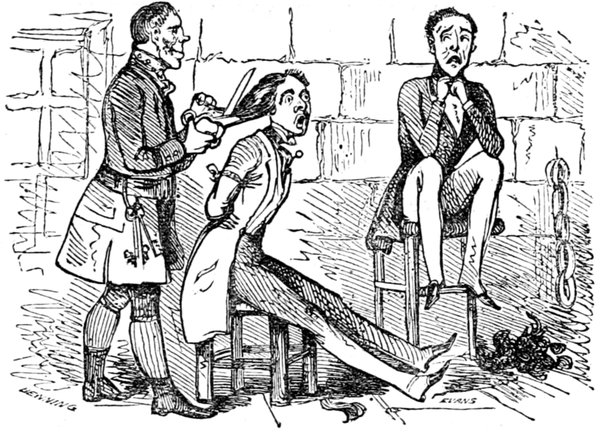
The grand aim of modern infant education is to make learning very attractive; to invest Lindley Murray with a magnetic power over the pupil's mind, and dress Dilworth in an adhesive plaster that shall cause all the little boys in the kingdom to stick to it. If Mavor's Spelling can be converted into a magic spell, there is a hope that the infant population may be charmed into an appreciation of ba, be, bi, bo, bu; and such will be the progress of education that we may have, before the expiration of a century, universities at which the wet nurse and the professor may be alike required to attend to the physical and intellectual wants of the infant students. A Bachelor of Arts will not only be entitled to the distinction of B.A., but may add the letters B.Y. to complete his description. It has already been suggested that philosophy should be taught by toys, and it will be easy to give a lecture on the laws of motion, illustrated by a game at marbles, or to explain the theory of equations by reference to the pleasing pastime of nine-pins.
The Pons Asinorum, that has puzzled many of our modern youth, will be much more easily overcome when a real donkey-ride is resorted to; and the difficult process of looking for the square root will be greatly facilitated by a spade, when the student finds himself sent forth to dig in the garden of science.
Already has the worthy Mr. Wilderspin introduced, in many places, the agreeable system of making fun of school; and if he would only consent to put his infant pupils into the fantastical caps and gowns which are worn at the universities, the joke would be still richer than it is at present. "To that complexion we shall come at last;" and if education is to be made game of, the sooner we go "the whole hog," the better.
The following is an extract from a report that is intended to illustrate the enormous success of the Wilderspin system:—
Teacher. What is this I hold in my hand?
Children. A piece of glass.
Teacher. What can you do with it?
Children. Scrape slate pencil.
Teacher. What else? what can your eyes do with it?
Children. Look at it.
377Teacher. If you put it to your eye can you see through it?
Children. Not if you shut your eye.
Teacher. Can you break glass?
Children. We'll try (one child breaks a window).
Teacher. Then glass is brittle?
Children. Rather.
Teacher. Will the shutter break?
Children. We are not going to try that.
Teacher. (Striking the shutter violently). Now, what have I done?
Children. Made a great noise, and hurt your own knuckles.
Teacher. What is wax?
Children. A soft substance.
Teacher. Is there any other sort of wax that is not soft?
Children. Yes, the whacks you give us when we don't know our lessons.
Teacher. What does a cow give us?
Children. Nothing.
Teacher. Well, what does the milkman give us?
Children. He gives us nothing; we buy it.
Teacher. What do we buy from him?
Children. Milk and water.
Teacher. What's this?
Children. A frying-pan.
Teacher. What use does your mother make of it?
Children. She sometimes beats father about the head with it.
Teacher. Has your mother got a mangle?
Children. No, she's sold it.
Teacher. What colour is the orange?
Children. Orange colour.
Teacher. How large is this orange which I hold in my hand?
Children. As big again as a half.
Teacher. How long will oranges keep in this climate?
Children. Not a day, when you get hold of them.
Teacher. That will do; you may go home.
Children. Thankee, sir.
| 378 | |
| OCTOBER. | [1843. |
|---|---|
The Society for washing the physical blackamoor morally white, and altering the complexion of Indian society, has sent out 1000 copies of "Major A. on Short Whist," in the hope that a friendly rubber may do more towards rubbing off the rust of barbarism than any other hitherto-attempted experiment. It is thought by the Society in question that, as among Europeans those who are called blacklegs generally succeed best at cards, the niggers, who have the advantage of being black all over, may compete successfully with the most accomplished member of Crockford's. The reports on the subject are not yet very encouraging, for though there can be but one odd trick in the course of a single deal, the Indian disciples of Major A. perform a series of the very oddest tricks all through the game; and when their instructor endeavoured to make them understand, by signs, that clubs were led, they followed suit in good earnest, and began scoring away at a tremendous rate with their tomahawks. It is feared that the idea of teaching the blacks by the card must be discarded. The only game for which they show a natural inclination is cribbage, at which their hands are always excellent.
Among the observations and notes of the emissaries sent out by the Society, we find it recorded, as a curious fact in natural history, that, though perfectly black in the hand, the Indians have all the characteristics of the light-fingered population of this country.
It is thought impossible to wean the natives at once from the eccentric habit of scalping; but it has been ingeniously suggested that the propensity may be directed to proper objects, and it is in contemplation to put pots of porter before one of the tribes, when, if they proceed as usual to decapitation, leaving nothing but the headless beer, it will not at all signify.
29. Raleigh beheaded. You don't say so? raly!
15. Izaak Walton died, 1683.
This fine old force is still upon a peace footing, and the Government has refused new regimentals to any of the men, who are nearly all grown too corpulent to wear their old ones. The coat of the colour-sergeant of the Lancashire Lights has been pieced in the back, and is now made to meet in front; and a false hem having been made to his regulation ducks, he is enabled, by the aid of very lengthy straps, to wear the uniform of the regiment. The band has dwindled to a solitary drum, and, as the War Office will not allow of any augmentation, the adjutant, who plays a little on the flute, takes a part on public occasions, when the staff is expected to attend muster.
There is now a field day once in six months, when the regiment, which consists of seven superannuated sergeants and one private, go through a sham fight; and on the last occasion they carried the pound by a coup de main, in spite of the beautiful manœuvring of the adjutant, who personated the garrison.
During the recent strike in the North the militia's instructions were to act as a reserve, and they followed the recommendation to the letter, for such was their modesty that they were not to be drawn out from their dépôt on any pretext whatever. The thanks of the city were afterwards presented to the adjutant in a congreve box, and he received an autograph letter from the mayor, speaking strongly of the forbearance that the militia had exhibited.
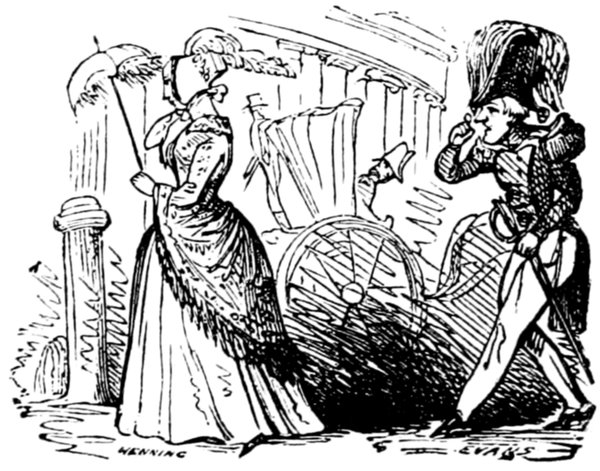
PEACE ESTABLISHMENT
17th.—Prince Albert laid the first stone of the new Royal Exchange. Every one present greatly admired the manner of the Prince, and the stone itself was particularly struck by him.
25th.—A holiday at the Law Courts. Nothing doing, and nobody done.
31st.—The King of Prussia visited Newgate in the morning, and Drury Lane Theatre at night. His Majesty saw murderers at both places, and admired the new drop at each.
3rd.—The Queen opened Parliament in person with a speech from the throne, showing her readiness at all time to put in her spoke for the common wheel.
20th.—The Corn Law Debate brought to a close. The duty of eight shillings a quarter objected to by a county member, on the ground that it would amount to thirty-two shillings a year.
11th.—Sir R. Peel made his financial statement, and declared his intention of increasing the duty on whisky; an announcement that had not the effect of raising Irish spirits.
16th.—The day fixed for the earthquake that was to have broken London into little bits. It, however, broke nothing but its appointment.
18th.—The Queen and Prince Albert having visited Drury Lane Theatre, the house was full, and the royal pair gave an audience to the manager.
4th.—The House of Commons resolved itself into a Committee of Ways and Means, when Sir R. Peel's ways of getting means were much objected to.
18th.—Discussion in the House of Lords on the New Corn Bill, when the Duke of Buckingham plainly intimated that the Premier deserved to be turned out, for having taken others in.
22nd.—A dispute between Mr. Lumley and Signor Mario, when the latter complained of hoarseness, and the former declared that he also was taken by the throat.
2nd.—Presentation of the Chartist's petition. Its weight made a deep impression on the floor of the House, but none at all on the members.
12th.—The Queen's Ball Masque. Several old ladies endeavoured to conceal their years by appearing in the costumes of the middle age.
21st.—Prince Albert sat for six hours as judge in the Stannaries Court, and performed the judicial office so well that two things were tried at once—the cause before him and his own patience.
23rd.—Execution of the murderer Good. A good riddance.
In the course of this month the Whigs charged the Tories with the greatest assurance in having taken up the former's policy.
3rd.—Continuance of the sugar duties moved by the Chancellor of the Exchequer. He contended that though the tax was little in separate pounds of moist it amounted to a great deal in the lump.
4th.—Proclamation issued on the subject of certain sovereigns discovered to be light. The new regulation not to affect India, where the natives princes are all of a dark complexion.
13th.—The Queen made her first trip by railway, and the Court expected to adopt the fashion of trains.
23rd.—A question put to Sir R. Peel on the subject of the Nelson Monument, the base of which had not been proceeded with for want of the capital.
Several attempts made to retard the public business by incessantly moving the adjournment of the House, and bring the Premier to a stand by perpetual motion.
2nd.—A letter exploded at the Post-office—a proof of its being in a great hurry to go off.
3rd.—Attempt of the varlet Bean on the life of Her Majesty. It appeared that the little deformity was given to sentiment, and that the hump on his back weighed heavily on his mind.
7th.—Mr. Hume moved for a Return of the actual services of all flag officers, which was refused from a fear that many of them would turn out to be much below the standard. He was denied similar information respecting general officers, since so many of them had not done anything particular, and had never been in any action except as defendants.
10th.—M. Claudet, the patentee of the Daguerreotype, undertook to do likenesses, on a first attempt, in less than a second.
13th.—Mr. Hume complained that at the British Museum no children are admitted under eight; and he declared that juvenile capacity for instruction was much under-eighted.
The same honourable member censured the locality and the expense of the New Houses of Parliament, objecting to the site of the building, and the sight of money required for completing it.
1st.—Miss A. Kemble married to a count, and will, it is to be hoped, find her account in the step taken.
5th.—Prince Albert shot ninety-six rabbits in the royal preserves. The animals, anxious for the honour of seeing the Prince, fell the unhappy victims of a too fatal curiosity.
6th.—A gentleman having received a newspaper sealed with the motto, "Time flies," was charged full postage on account of "information" contained on the wrapper.
14th.—Gooseberries, apples, and pears selling for a mere nothing in Covent Garden Market, being, as the growers declared, the fruits of the Tariff.
25th.—Trial of the vagabond Bean, who was found to be one of a very inferior kidney.
1st.—The Queen landed at Edinburgh, the tide having risen before the Provost was out of bed.
2nd.—A return presented to Parliament of the condition of the inmates of Greenwich Hospital, when it was found that there were thirty-six pensioners who had only the right leg left.
3rd.—Covent Garden Theatre was advertised to open, but Miss Adelaide Kemble was too hoarse to sing; and though her father had so much at stake in the theatre, it was found that his daughter had no voice at all in it.
6th.—Mr. Carter bitten severely in the thumb by one of his lions. The animal was recently purchased and not used to his master, who was trying a few tricks merely to get his hand in.
12th.—An investigation into the Dover cropping case. The jailor, finding he was not to cut the hair of the prisoners, cut his own stick, and resigned his situation.
21st.—A calculation made, that the shelves of the King's Library at Paris extend to twenty miles—a proof of what extraordinary lengths some writers will go to.
1st.—It was generally suggested that banking-houses should close at four, because the system of shutting at five (after which hour there is still much to be done) has the effect of driving their business very often to sixes and sevens.
10th.—News arrived of Akbhar Khan being prepared to treat; but from such a Khan nothing can be expected but half-and-half measures.
12th.—Miss Briers and Mary Ann Morgan brought to Union Hall on a charge of having conspired to lead Mr. Woolley into another union against his will. Mr. Woolley, though evidently on thorns, and regularly caught by the Briers, declared his intention not to prosecute; he, however, commenced a suit for divorce against Mary, in reference to whom he refused to be Molly-fied.
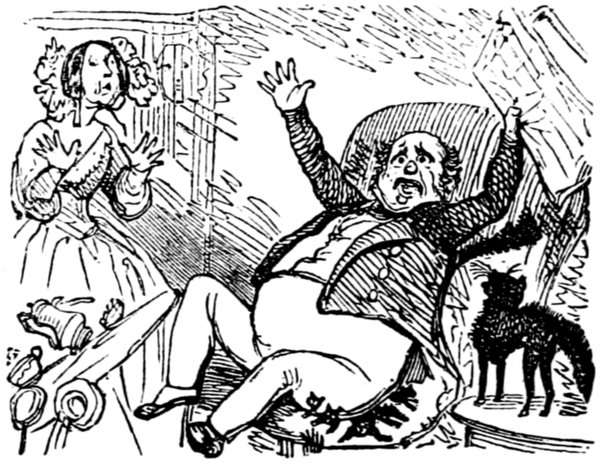
HORRID MURDER.